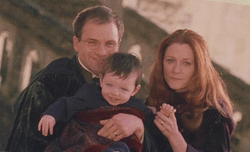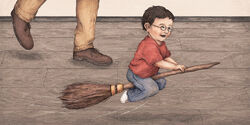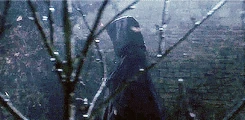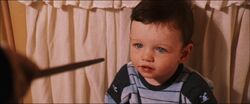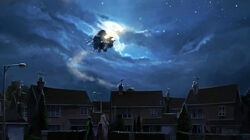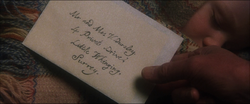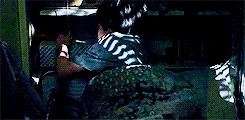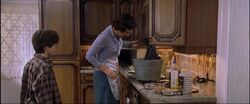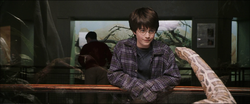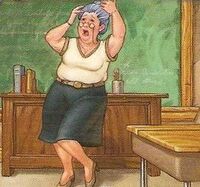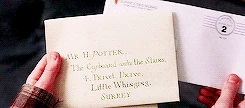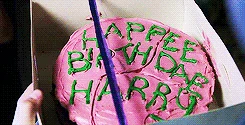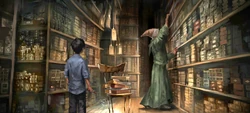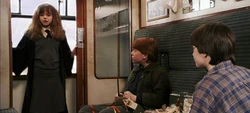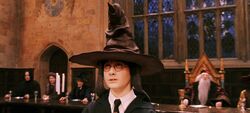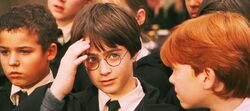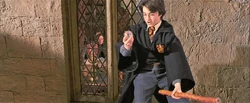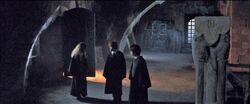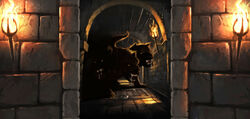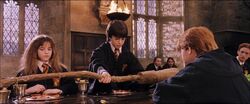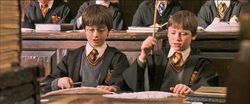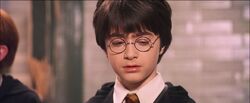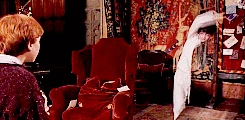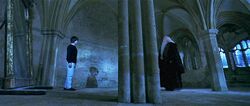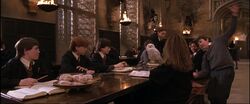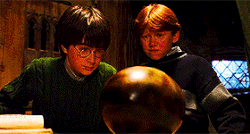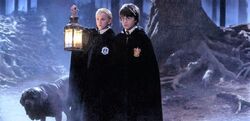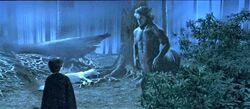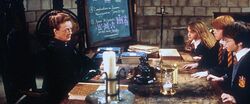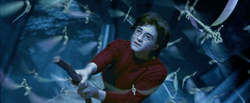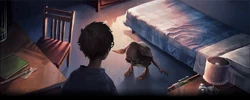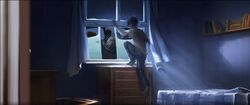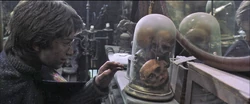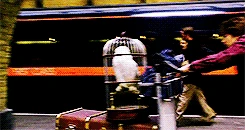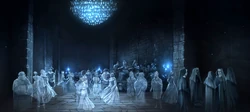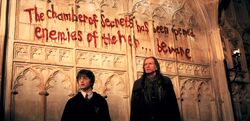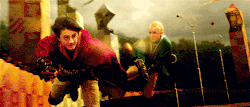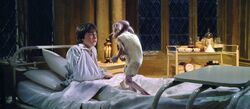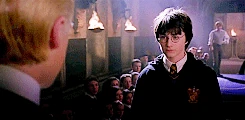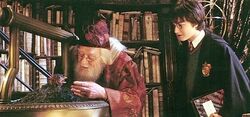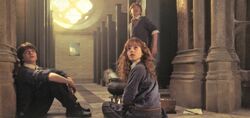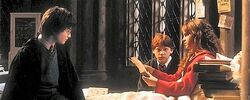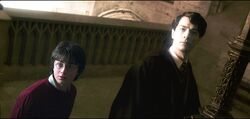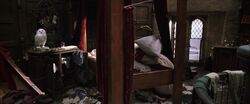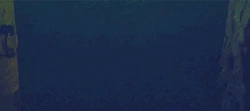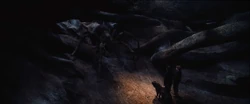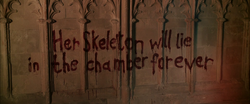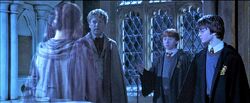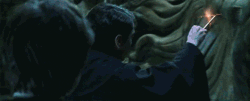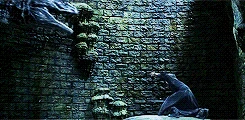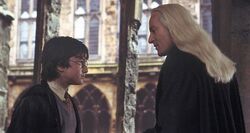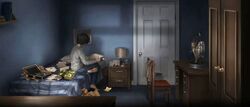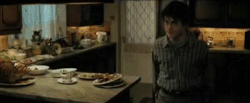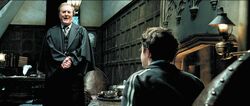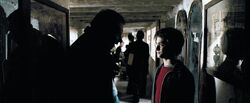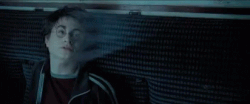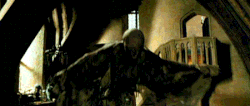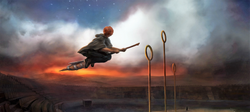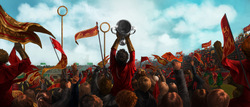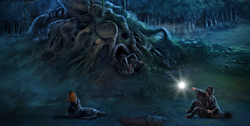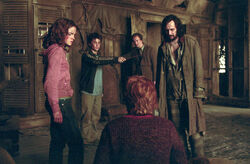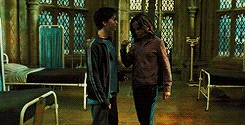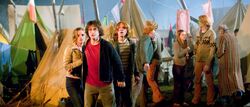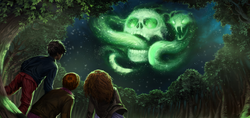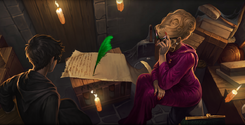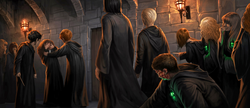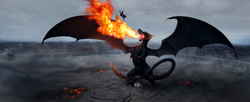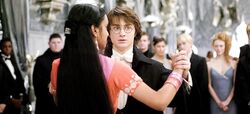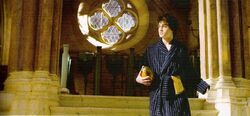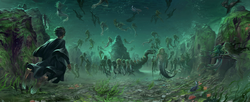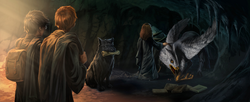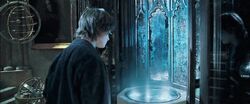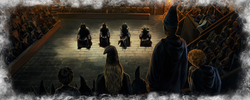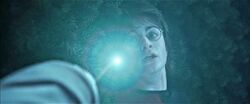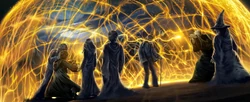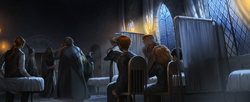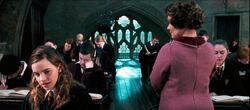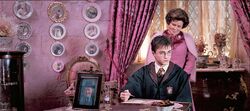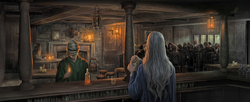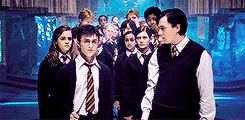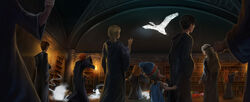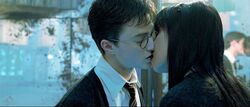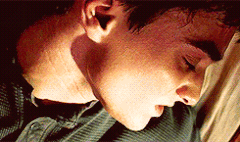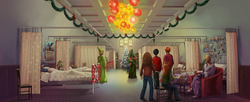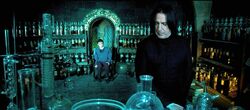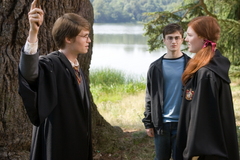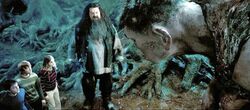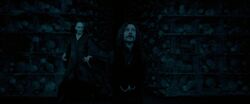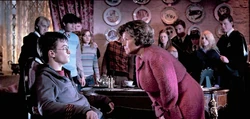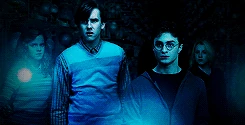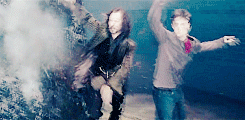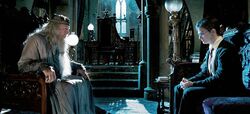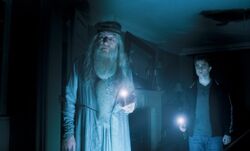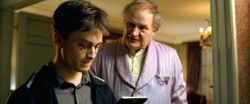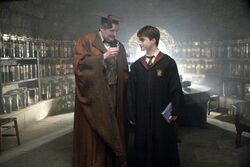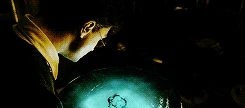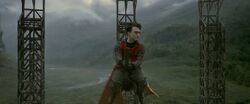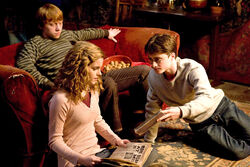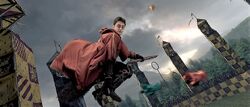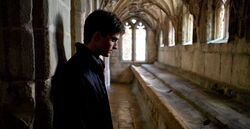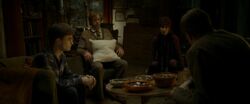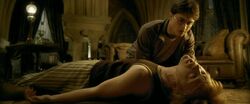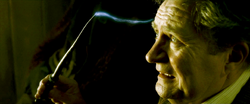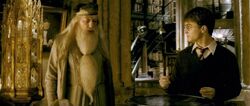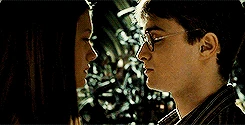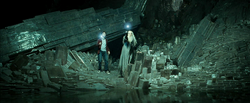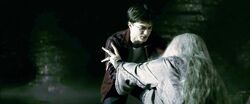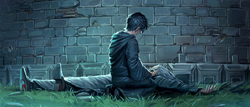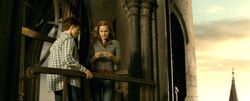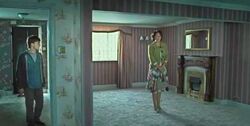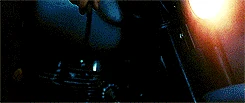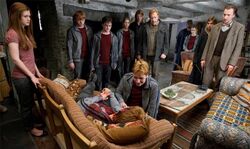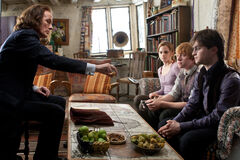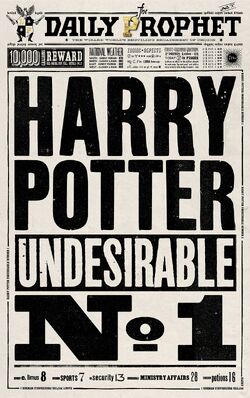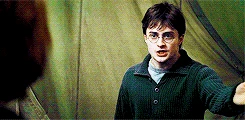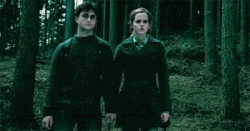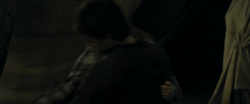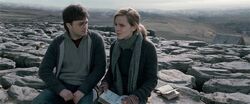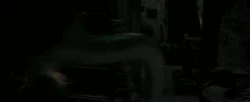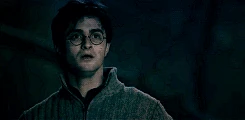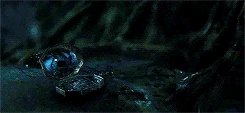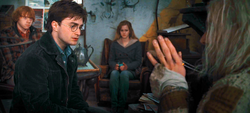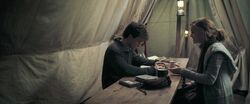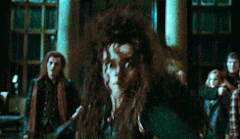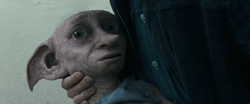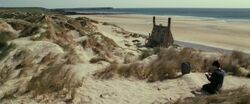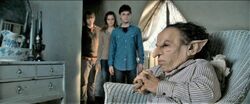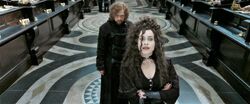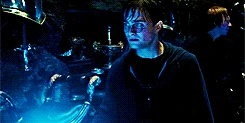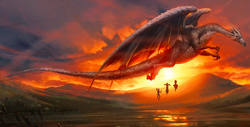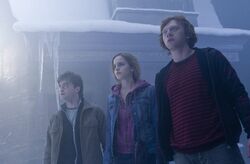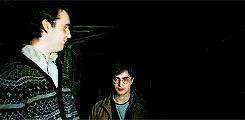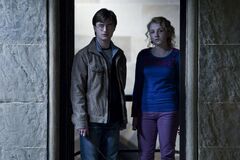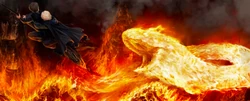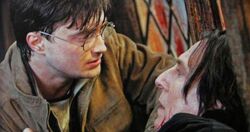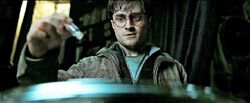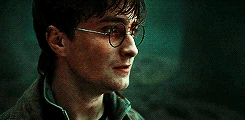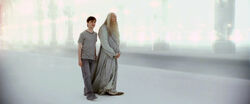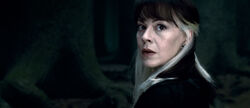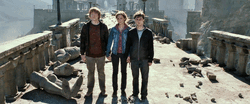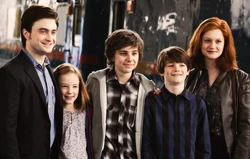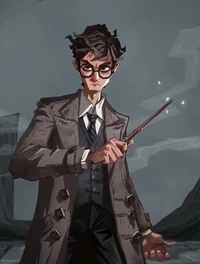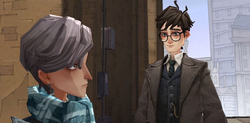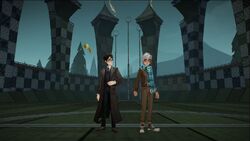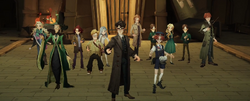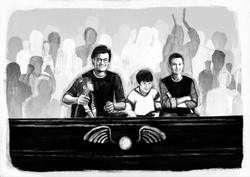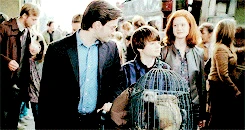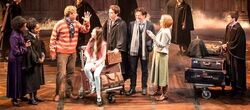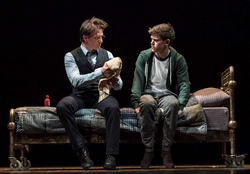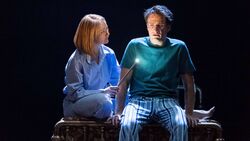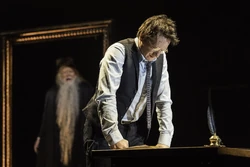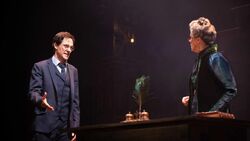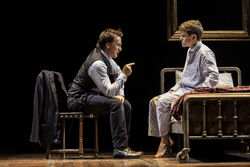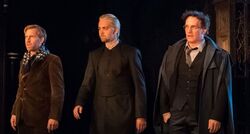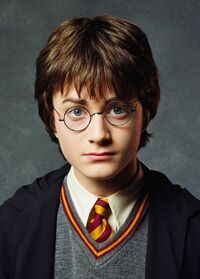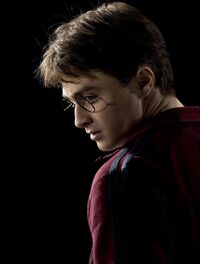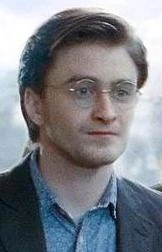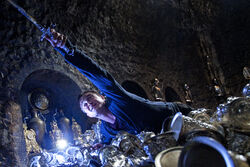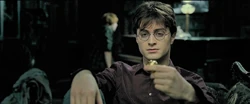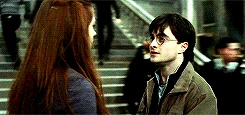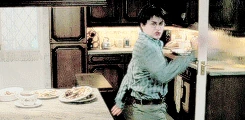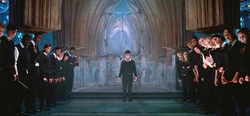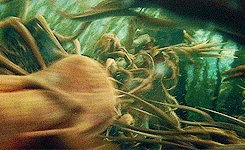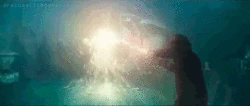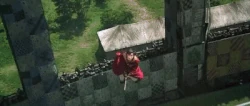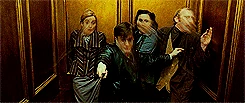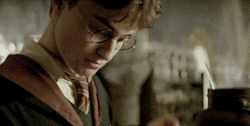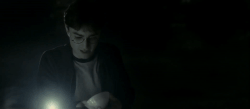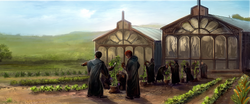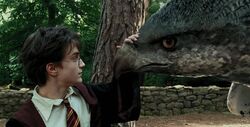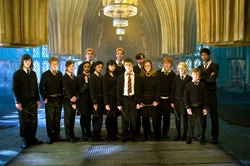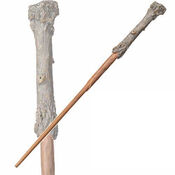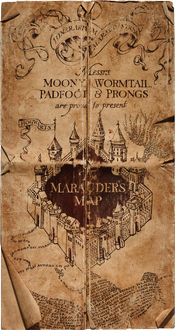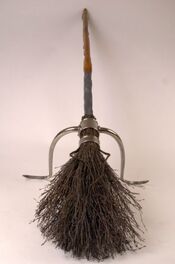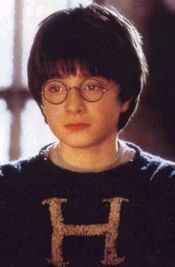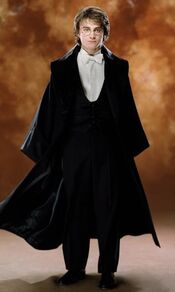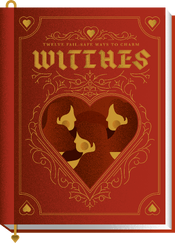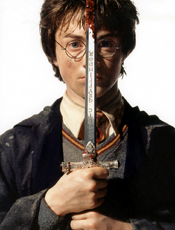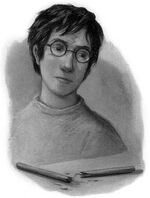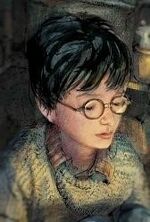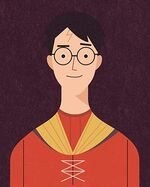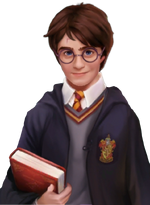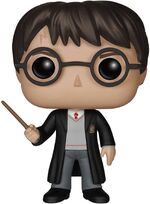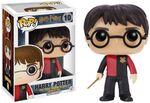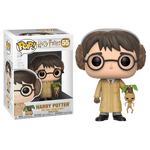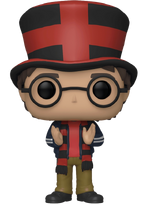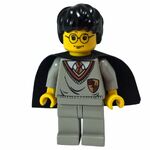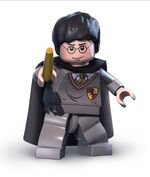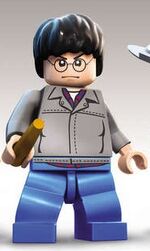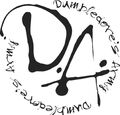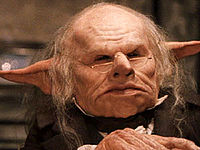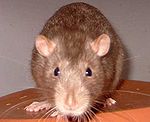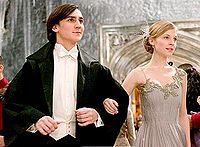Бесплатный переводчик онлайн с английского на русский
Хотите общаться в чатах с собеседниками со всего мира, понимать, о чем поет Билли Айлиш, читать английские сайты на русском? PROMT.One мгновенно переведет ваш текст с английского на русский и еще на 20+ языков.
Точный перевод с транскрипцией
С помощью PROMT.One наслаждайтесь точным переводом с английского на русский, а для слов и фраз смотрите английскую транскрипцию, произношение и варианты переводов с примерами употребления в разных контекстах. Бесплатный онлайн-переводчик PROMT.One — достойная альтернатива Google Translate и другим сервисам, предоставляющим перевод с английского на русский и с русского на английский.
Нужно больше языков?
PROMT.One бесплатно переводит онлайн с английского на азербайджанский, арабский, греческий, иврит, испанский, итальянский, казахский, китайский, корейский, немецкий, португальский, татарский, турецкий, туркменский, узбекский, украинский, финский, французский, эстонский и японский.
Harry Potter is a series of seven fantasy novels written by British author J. K. Rowling. The novels chronicle the lives of a young wizard, Harry Potter, and his friends Hermione Granger and Ron Weasley, all of whom are students at Hogwarts School of Witchcraft and Wizardry. The main story arc concerns Harry’s conflict with Lord Voldemort, a dark wizard who intends to become immortal, overthrow the wizard governing body known as the Ministry of Magic and subjugate all wizards and Muggles (non-magical people).
 |
|
|
|
| Author | J. K. Rowling |
|---|---|
| Cover artist | Thomas Taylor, Cliff Wright, Giles Greenfield, Jason Cockcroft |
| Country | United Kingdom |
| Language | English |
| Genre | Fantasy |
| Publisher | Bloomsbury |
| Published | 26 June 1997 – 21 July 2007 (initial publication) |
| Media type |
|
| No. of books | 7 |
| Website | www.wizardingworld.com |
The series was originally published in English by Bloomsbury in the United Kingdom and Scholastic Press in the United States. All versions around the world are printed by Grafica Veneta in Italy.[1] A series of many genres, including fantasy, drama, coming-of-age fiction, and the British school story (which includes elements of mystery, thriller, adventure, horror, and romance), the world of Harry Potter explores numerous themes and includes many cultural meanings and references.[2] According to Rowling, the main theme is death.[3] Other major themes in the series include prejudice, corruption, and madness.[4]
Since the release of the first novel, Harry Potter and the Philosopher’s Stone, on 26 June 1997, the books have found immense popularity, positive reviews, and commercial success worldwide. They have attracted a wide adult audience as well as younger readers and are widely considered cornerstones of modern literature.[5][6] As of February 2023, the books have sold more than 600 million copies worldwide, making them the best-selling book series in history, and have been available in 85 languages.[7] The last four books consecutively set records as the fastest-selling books in history, with the final instalment selling roughly 2.7 million copies in the United Kingdom and 8.3 million copies in the United States within twenty-four hours of its release.
The original seven books were adapted into an eight-part namesake film series by Warner Bros. Pictures. In 2016, the total value of the Harry Potter franchise was estimated at $25 billion,[8] making Harry Potter one of the highest-grossing media franchises of all time. Harry Potter and the Cursed Child is a play based on a story co-written by Rowling.
The success of the books and films has allowed the Harry Potter franchise to expand with numerous derivative works, a travelling exhibition that premiered in Chicago in 2009, a studio tour in London that opened in 2012, a digital platform on which J. K. Rowling updates the series with new information and insight, and a pentalogy of spin-off films premiering in November 2016 with Fantastic Beasts and Where to Find Them, among many other developments. Themed attractions, collectively known as The Wizarding World of Harry Potter, have been built at several Universal Parks & Resorts amusement parks around the world.
Plot
Early years
The series follows the life of a boy named Harry Potter. In the first book, Harry Potter and the Philosopher’s Stone, Harry lives in a cupboard under the stairs in the house of the Dursleys, his aunt, uncle and cousin. The Dursleys consider themselves perfectly normal, but at the age of eleven, Harry discovers that he is a wizard. He meets a half-giant named Hagrid who invites him to attend the Hogwarts School of Witchcraft and Wizardry. Harry learns that as a baby, his parents were murdered by the dark wizard Lord Voldemort. When Voldemort attempted to kill Harry, his curse rebounded and Harry survived with a lightning-shaped scar on his forehead.
Harry becomes a student at Hogwarts and is sorted into Gryffindor House. He gains the friendship of Ron Weasley, a member of a large but poor wizarding family, and Hermione Granger, a witch of non-magical, or Muggle, parentage. Harry encounters the school’s potions master, Severus Snape, who displays a dislike for him; the rich pure-blood Draco Malfoy whom he develops an enmity with; and the Defence Against the Dark Arts teacher, Quirinus Quirrell, who turns out to be allied with Lord Voldemort. The first book concludes with Harry’s confrontation with Voldemort, who, in his quest to regain a body, yearns to gain the power of the Philosopher’s Stone, a substance that bestows everlasting life.
Harry Potter and the Chamber of Secrets describes Harry’s second year at Hogwarts. Students are attacked and petrified by an unknown creature; wizards of Muggle parentage are the primary targets. The attacks appear related to the Chamber of Secrets, a fifty-year-old mystery at the school. Harry discovers an ability to speak the snake language Parseltongue, which he learns is rare and associated with the Dark Arts. When Hermione is attacked, Harry and Ron uncover the chamber’s secrets and enter it. Harry discovers that the chamber was opened by Ron’s younger sister, Ginny Weasley, who was possessed by an old diary in her belongings. The memory of Tom Marvolo Riddle, Voldemort’s younger self, resided inside the diary and unleashed the basilisk, an ancient monster that kills those who make direct eye contact. Harry draws the Sword of Gryffindor from the Sorting Hat, slays the basilisk and destroys the diary.
In the third novel, Harry Potter and the Prisoner of Azkaban, Harry learns that he is targeted by Sirius Black, an escaped convict who allegedly assisted in his parents’ murder. As Harry struggles with his reaction to the dementors – creatures guarding the school that feed on despair – he reaches out to Remus Lupin, a new professor who teaches him the Patronus charm. On a windy night, Ron is dragged by a black dog into the Shrieking Shack; Harry and Hermione follow. The dog is revealed to be Sirius Black. Lupin enters the shack and explains that Black was James Potter’s best friend; he was framed by another friend of James’ Peter Pettigrew, who hides as Ron’s pet rat, Scabbers. As the full moon rises, Lupin transforms into a werewolf and bounds away; the group chase after him but are surrounded by dementors. They are saved by a mysterious figure who casts a stag Patronus. This is later revealed to be a future version of Harry, who traveled back in time with Hermione using the Time Turner. The duo help Sirius escape on a Hippogriff.
Voldemort returns
The former 1st floor Nicholson’s Cafe now renamed Spoon in Edinburgh where J. K. Rowling wrote the first few chapters of Harry Potter and the Philosopher’s Stone
In Harry’s fourth year of school (detailed in Harry Potter and the Goblet of Fire), he is unwillingly entered in the Triwizard Tournament, a contest between schools of witchcraft and wizardry. Harry is Hogwarts’ second participant after Cedric Diggory, an unusual occurrence that causes his friends to distance themselves from him. He competes against schools Beauxbatons and Durmstrang with the help of the new Defence Against the Dark Arts professor, Alastor «Mad-Eye» Moody. Harry claims the Triwizard Cup with Cedric, but in doing so is teleported to a graveyard where Voldemort’s supporters convene. Moody reveals himself be to Barty Crouch, Jr, a Death Eater. Harry manages to escape, but Cedric is killed and Voldemort is resurrected using Harry’s blood.
In the fifth book, Harry Potter and the Order of the Phoenix, the Ministry of Magic refuses to believe that Voldemort has returned. Dumbledore re-activates the Order of the Phoenix, a secret society to counter Voldemort; meanwhile, the Ministry appoints Dolores Umbridge as the High Inquisitor of Hogwarts. Umbridge bans the Defense Against the Dark Arts; in response, Hermione and Ron form «Dumbledore’s Army», a secret group where Harry teaches what Umbridge forbids. Harry is punished for disobeying Umbridge, and dreams of a dark corridor in the Ministry of Magic. Near the end of the book, Harry falsely dreams of Sirius being tortured; he races to the Ministry where he faces Death Eaters. The Order of the Phoenix saves the teenagers’ lives, but Sirius is killed. A prophecy concerning Harry and Voldemort is then revealed: one must die at the hands of the other.
In the sixth book, Harry Potter and the Half-Blood Prince, Snape teaches Defense Against the Dark Arts while Horace Slughorn becomes the Potions master. Harry finds an old textbook with annotations by the Half-Blood Prince, due to which he achieves success in Potions class. Harry also takes lessons with Dumbledore, viewing memories about the early life of Voldemort in a device called a Pensieve. Harry learns from a drunken Slughorn that he used to teach Tom Riddle, and that Voldemort divided his soul into pieces, creating a series of Horcruxes. Harry and Dumbledore travel to a distant lake to destroy a Horcrux; they succeed, but Dumbledore weakens. On their return, they find Draco Malfoy and Death Eaters attacking the school. The book ends with the killing of Dumbledore by Professor Snape, the titular Half-Blood Prince.
In Harry Potter and the Deathly Hallows, the seventh novel in the series, Lord Voldemort gains control of the Ministry of Magic. Harry, Ron and Hermione learn about the Deathly Hallows, legendary items that lead to mastery over death. The group infiltrate the ministry, where they steal a locket Horcrux, and visit Godric’s Hollow, where they are attacked by Nagini. A silver doe Patronus leads them to the Sword of Gryffindor, with which they destroy the locket. They steal a Horcrux from Gringotts and travel to Hogwarts, culminating in a battle with Death Eaters. Snape is killed by Voldemort out of paranoia, but lends Harry his memories before he dies. Harry learns that Snape was always loyal to Dumbledore, and that he himself is a Horcrux. Harry surrenders to Voldemort and dies. The defenders of Hogwarts continue to fight on; Harry is resurrected, faces Voldemort and kills him.
An epilogue titled «Nineteen Years Later» describes the lives of the surviving characters and the impact of Voldemort’s death. Harry and Ginny are married with three children, and Ron and Hermione are married with two children.
Style and allusions
Genre and style
The novels fall into the genre of fantasy literature, and qualify as a type of fantasy called «urban fantasy», «contemporary fantasy», or «low fantasy». They are mainly dramas, and maintain a fairly serious and dark tone throughout, though they do contain some notable instances of tragicomedy and black humour. In many respects, they are also examples of the bildungsroman, or coming of age novel,[9] and contain elements of mystery, adventure, horror, thriller, and romance. The books are also, in the words of Stephen King, «shrewd mystery tales»,[10] and each book is constructed in the manner of a Sherlock Holmes-style mystery adventure. The stories are told from a third person limited point of view with very few exceptions (such as the opening chapters of Philosopher’s Stone, Goblet of Fire and Deathly Hallows and the first two chapters of Half-Blood Prince).
The series can be considered part of the British children’s boarding school genre, which includes Rudyard Kipling’s Stalky & Co., Enid Blyton’s Malory Towers, St. Clare’s and the Naughtiest Girl series, and Frank Richards’s Billy Bunter novels: the Harry Potter books are predominantly set in Hogwarts, a fictional British boarding school for wizards, where the curriculum includes the use of magic.[11] In this sense they are «in a direct line of descent from Thomas Hughes’s Tom Brown’s School Days and other Victorian and Edwardian novels of British public school life», though they are, as many note, more contemporary, grittier, darker, and more mature than the typical boarding school novel, addressing serious themes of death, love, loss, prejudice, coming-of-age, and the loss of innocence in a 1990s British setting.[12][13]
In Harry Potter, Rowling juxtaposes the extraordinary against the ordinary.[14] Her narrative features two worlds: a contemporary world inhabited by non-magical people called Muggles, and another featuring wizards. It differs from typical portal fantasy in that its magical elements stay grounded in the mundane.[15] Paintings move and talk; books bite readers; letters shout messages; and maps show live journeys, making the wizarding world both exotic and familiar.[14][16] This blend of realistic and romantic elements extends to Rowling’s characters. Their names are often onomatopoeic: Malfoy is difficult, Filch unpleasant and Lupin a werewolf.[17][18] Harry is ordinary and relatable, with down-to-earth features such as wearing broken glasses;[19] the scholar Roni Natov terms him an «everychild».[20] These elements serve to highlight Harry when he is heroic, making him both an everyman and a fairytale hero.[19][21]
Each of the seven books is set over the course of one school year. Harry struggles with the problems he encounters, and dealing with them often involves the need to violate some school rules. If students are caught breaking rules, they are often disciplined by Hogwarts professors. The stories reach their climax in the summer term, near or just after final exams, when events escalate far beyond in-school squabbles and struggles, and Harry must confront either Voldemort or one of his followers, the Death Eaters, with the stakes a matter of life and death – a point underlined, as the series progresses, by characters being killed in each of the final four books.[22][23] In the aftermath, he learns important lessons through exposition and discussions with head teacher and mentor Albus Dumbledore. The only exception to this school-centred setting is the final novel, Harry Potter and the Deathly Hallows, in which Harry and his friends spend most of their time away from Hogwarts, and only return there to face Voldemort at the dénouement.[22]
Allusions
The Harry Potter stories feature imagery and motifs drawn from Arthurian myth and fairytales. Harry’s ability to draw the Sword of Gryffindor from the Sorting Hat resembles the Arthurian sword in the stone legend.[24] His life with the Dursleys has been compared to Cinderella.[25] Hogwarts resembles a medieval university-cum-castle with several professors who belong to an Order of Merlin; Old Professor Binns still lectures about the International Warlock Convention of 1289; and a real historical person, a 14th-century scribe, Sir Nicolas Flamel, is described as a holder of the Philosopher’s Stone.[26] Other medieval elements in Hogwarts include coats-of-arms and medieval weapons on the walls, letters written on parchment and sealed with wax, the Great Hall of Hogwarts which is similar to the Great Hall of Camelot, the use of Latin phrases, the tents put up for Quidditch tournaments are similar to the «marvellous tents» put up for knightly tournaments, imaginary animals like dragons and unicorns which exist around Hogwarts, and the banners with heraldic animals for the four Houses of Hogwarts.[26]
Many of the motifs of the Potter stories such as the hero’s quest invoking objects that confer invisibility, magical animals and trees, a forest full of danger and the recognition of a character based upon scars are drawn from medieval French Arthurian romances.[26] Other aspects borrowed from French Arthurian romances include the use of owls as messengers, werewolves as characters, and white deer.[26] The American scholars Heather Arden and Kathrn Lorenz in particular argue that many aspects of the Potter stories are inspired by a 14th-century French Arthurian romance, Claris et Laris, writing of the «startling» similarities between the adventures of Potter and the knight Claris.[26] Arden and Lorenz noted that Rowling graduated from the University of Exeter in 1986 with a degree in French literature and spent a year living in France afterwards.[26]
Like C. S. Lewis’s The Chronicles of Narnia, Harry Potter also contains Christian symbolism and allegory. The series has been viewed as a Christian moral fable in the psychomachia tradition, in which stand-ins for good and evil fight for supremacy over a person’s soul.[27] Children’s literature critic Joy Farmer sees parallels between Harry and Jesus Christ.[28] Comparing Rowling with Lewis, she argues that «magic is both authors’ way of talking about spiritual reality».[29] According to Maria Nikolajeva, Christian imagery is particularly strong in the final scenes of the series: Harry dies in self-sacrifice and Voldemort delivers an «ecce homo» speech, after which Harry is resurrected and defeats his enemy.[30]
Rowling stated that she did not reveal Harry Potter‘s religious parallels in the beginning because doing so would have «give[n] too much away to fans who might then see the parallels».[31] In the final book of the series Harry Potter and the Deathly Hallows, Rowling makes the book’s Christian imagery more explicit, quoting both Matthew 6:21 and 1 Corinthians 15:26 (King James Version) when Harry visits his parents’ graves.[31] Hermione Granger teaches Harry Potter that the meaning of these verses from the Christian Bible are «living beyond death. Living after death», which Rowling states «epitomize the whole series».[31][32][33] Rowling also exhibits Christian values in developing Albus Dumbledore as a God-like character, the divine, trusted leader of the series, guiding the long-suffering hero along his quest. In the seventh novel, Harry speaks with and questions the deceased Dumbledore much like a person of faith would talk to and question God.[34]
Themes
Harry Potter‘s overarching theme is death.[35][36] In the first book, when Harry looks into the Mirror of Erised, he feels both joy and «a terrible sadness» at seeing his desire: his parents, alive and with him.[37] Confronting their loss is central to Harry’s character arc and manifests in different ways through the series, such as in his struggles with Dementors.[37][38] Other characters in Harry’s life die; he even faces his own death in Harry Potter and the Deathly Hallows.[39] The series has an existential perspective – Harry must grow mature enough to accept death.[40] In Harry’s world, death is not binary but mutable, a state that exists in degrees.[41] Unlike Voldemort, who evades death by separating and hiding his soul in seven parts, Harry’s soul is whole, nourished by friendship and love.[40]
Love distinguishes Harry and Voldemort. Harry is a hero because he loves others, even willing to accept death to save them; Voldemort is a villain because he does not.[42] Harry carries the protection of his mother’s sacrifice in his blood; Voldemort, who wants Harry’s blood and the protection it carries, does not understand that love vanquishes death.[28]
Rowling has spoken about thematising death and loss in the series. Soon after she started writing Philosopher’s Stone, her mother died; she said that «I really think from that moment on, death became a central, if not the central theme of the seven books».[43] Rowling has described Harry as «the prism through which I view death», and further stated that «all of my characters are defined by their attitude to death and the possibility of death».[44]
While Harry Potter can be viewed as a story about good vs. evil, its moral divisions are not absolute.[45][46] First impressions of characters are often misleading. Harry assumes in the first book that Quirrell is on the side of good because he opposes Snape, who appears to be malicious; in reality, Quirrell is an agent of Voldemort, while Snape is loyal to Dumbledore. This pattern later recurs with Moody and Snape.[45] In Rowling’s world, good and evil are choices rather than inherent attributes: second chances and the possibility of redemption are key themes of the series.[47][48] This is reflected in Harry’s self-doubts after learning his connections to Voldemort, such as Parseltongue;[47] and prominently in Snape’s characterisation, which has been described as complex and multifaceted.[49] In some scholars’ view, while Rowling’s narrative appears on the surface to be about Harry, her focus may actually be on Snape’s morality and character arc.[50][51]
Rowling said that, to her, the moral significance of the tales seems «blindingly obvious». In the fourth book, Dumbledore speaks of a «choice between what is right and what is easy»; Rowling views this as a key theme, «because that … is how tyranny is started, with people being apathetic and taking the easy route and suddenly finding themselves in deep trouble».[52]
Academics and journalists have developed many other interpretations of themes in the books, some more complex than others, and some including political subtexts. Themes such as normality, oppression, survival, and overcoming imposing odds have all been considered as prevalent throughout the series.[53] Similarly, the theme of making one’s way through adolescence and «going over one’s most harrowing ordeals – and thus coming to terms with them» has also been considered.[54] Rowling has stated that the books comprise «a prolonged argument for tolerance, a prolonged plea for an end to bigotry» and that they also pass on a message to «question authority and… not assume that the establishment or the press tells you all of the truth».[55]
Development history
In 1990, Rowling was on a crowded train from Manchester to London when the idea for Harry suddenly «fell into» her head. Rowling gives an account of the experience on her website saying:
«I had been writing almost continuously since the age of six but I had never been so excited about an idea before. I simply sat and thought, for four (delayed train) hours, and all the details bubbled up in my brain, and this scrawny, black-haired, bespectacled boy who did not know he was a wizard became more and more real to me.»
Rowling completed Harry Potter and the Philosopher’s Stone in 1995 and the manuscript was sent off to several prospective agents.[57] The second agent she tried, Christopher Little, offered to represent her and sent the manuscript to several publishers.[58]
Publishing history
The logo used in British, Australian, and Canadian editions before 2010, which uses the typeface Cochin Bold[59]
After twelve other publishers had rejected Philosopher’s Stone, Bloomsbury agreed to publish the book.[60] Despite Rowling’s statement that she did not have any particular age group in mind when beginning to write the Harry Potter books, the publishers initially targeted children aged nine to eleven.[61] On the eve of publishing, Rowling was asked by her publishers to adopt a more gender-neutral pen name in order to appeal to the male members of this age group, fearing that they would not be interested in reading a novel they knew to be written by a woman. She elected to use J. K. Rowling (Joanne Kathleen Rowling), using her grandmother’s name as her second name because she has no middle name.[62][63]
Harry Potter and the Philosopher’s Stone was published by Bloomsbury, the publisher of all Harry Potter books in the United Kingdom, on 26 June 1997.[64] It was released in the United States on 1 September 1998 by Scholastic – the American publisher of the books – as Harry Potter and the Sorcerer’s Stone,[65] after the American rights sold for US$105,000 – a record amount for a children’s book by an unknown author.[66] Scholastic feared that American readers would not associate the word «philosopher» with magic, and Rowling suggested the title Harry Potter and the Sorcerer’s Stone for the American market.[67] Rowling has later said that she regrets the change.[68]
The second book, Harry Potter and the Chamber of Secrets, was originally published in the UK on 2 July 1998 and in the US on 2 June 1999. Harry Potter and the Prisoner of Azkaban was published a year later in the UK on 8 July 1999 and in the US on 8 September 1999.[69] Harry Potter and the Goblet of Fire was published on 8 July 2000 at the same time by Bloomsbury and Scholastic.[70] Harry Potter and the Order of the Phoenix is the longest book in the series, at 766 pages in the UK version and 870 pages in the US version.[71] It was published worldwide in English on 21 June 2003.[72] Harry Potter and the Half-Blood Prince was published on 16 July 2005.[73][74] The seventh and final novel, Harry Potter and the Deathly Hallows, was published on 21 July 2007.[75] Rowling herself has stated that the last chapter of the final book (in fact, the epilogue) was completed «in something like 1990».[76]
Rowling retained rights to digital editions and released them on the Pottermore website in 2012. Vendors such as Amazon displayed the ebooks in the form of links to Pottermore, which controlled pricing.[77] All seven Harry Potter novels have been released in unabridged audiobook versions, with Stephen Fry reading the British editions and Jim Dale voicing the series for the American editions.[78][79] On Audible, the series has been listened, as of November 2022, for over a billion hours.[80]
Translations
The Russian translation of The Deathly Hallows goes on sale in Moscow, 2007.
The series has been translated into more than 80 languages,[7] placing Rowling among the most translated authors in history. The books have seen translations to diverse languages such as Korean, Armenian, Ukrainian, Arabic, Urdu, Hindi, Bengali, Bulgarian, Welsh, Afrikaans, Albanian, Latvian, Vietnamese and Hawaiian. The first volume has been translated into Latin and even Ancient Greek,[81] making it the longest published work in Ancient Greek since the novels of Heliodorus of Emesa in the 3rd century AD.[82] The second volume has also been translated into Latin.[83]
Some of the translators hired to work on the books were well-known authors before their work on Harry Potter, such as Viktor Golyshev, who oversaw the Russian translation of the series’ fifth book. The Turkish translation of books two to seven was undertaken by Sevin Okyay, a popular literary critic and cultural commentator.[84] For reasons of secrecy, translation on a given book could only start after it had been released in English, leading to a lag of several months before the translations were available. This led to more and more copies of the English editions being sold to impatient fans in non-English speaking countries; for example, such was the clamour to read Harry Potter and the Order of the Phoenix that its English language edition became the first English-language book ever to top the best-seller list in France.[85]
The United States editions were adapted into American English to make them more understandable to a young American audience.[86]
Cover art
For cover art, Bloomsbury chose painted art in a classic style of design, with the first cover a watercolour and pencil drawing by illustrator Thomas Taylor showing Harry boarding the Hogwarts Express, and a title in the font Cochin Bold.[87] The first releases of the successive books in the series followed in the same style but somewhat more realistic, illustrating scenes from the books. These covers were created by first Cliff Wright and then Jason Cockroft.[88]
Due to the appeal of the books among an adult audience, Bloomsbury commissioned a second line of editions in an ‘adult’ style. These initially used black-and-white photographic art for the covers showing objects from the books (including a very American Hogwarts Express) without depicting people, but later shifted to partial colourisation with a picture of Slytherin’s locket on the cover of the final book.[citation needed]
International and later editions have been created by a range of designers, including Mary GrandPré for U.S. audiences and Mika Launis in Finland.[89][90] For a later American release, Kazu Kibuishi created covers in a somewhat anime-influenced style.[91][92]
Reception
Commercial success
The popularity of the Harry Potter series has translated into substantial financial success for Rowling, her publishers, and other Harry Potter related license holders. This success has made Rowling the first and thus far only billionaire author.[93] The books have sold more than 600 million copies worldwide and have also given rise to the popular film adaptations produced by Warner Bros. Pictures, all of which have been highly successful in their own right.[94][7] The total revenue from the book sales is estimated, as of November 2018, to be around $7.7 billion.[95] The first novel in the series, Harry Potter and the Philosopher’s Stone, has sold in excess of 120 million copies, making it one of the bestselling books in history.[96][97] The films have in turn spawned eight video games and have led to the licensing of more than 400 additional Harry Potter products. The Harry Potter brand has been estimated to be worth as much as $25 billion.[8]
The great demand for Harry Potter novels motivated The New York Times to create a separate best-seller list for children’s literature in 2000, just before the release of Harry Potter and the Goblet of Fire. By 24 June 2000, Rowling’s novels had been on the list for 79 straight weeks; the first three novels were each on the hardcover best-seller list.[98] On 12 April 2007, Barnes & Noble declared that Deathly Hallows had broken its pre-order record, with more than 500,000 copies pre-ordered through its site.[99] For the release of Goblet of Fire, 9,000 FedEx trucks were used with no other purpose than to deliver the book.[100] Together, Amazon.com and Barnes & Noble pre-sold more than 700,000 copies of the book.[100] In the United States, the book’s initial printing run was 3.8 million copies.[100] This record statistic was broken by Harry Potter and the Order of the Phoenix, with 8.5 million, which was then shattered by Half-Blood Prince with 10.8 million copies.[101] Within the first 24 hours of its release, 6.9 million copies of Prince were sold in the U.S.; in the United Kingdom more than two million copies were sold on the first day.[102] The initial U.S. print run for Deathly Hallows was 12 million copies, and more than a million were pre-ordered through Amazon and Barnes & Noble.[103]
Fans of the series were so eager for the latest instalment that bookstores around the world began holding events to coincide with the midnight release of the books, beginning with the 2000 publication of Harry Potter and the Goblet of Fire. The events, commonly featuring mock sorting, games, face painting, and other live entertainment have achieved popularity with Potter fans and have been highly successful in attracting fans and selling books with nearly nine million of the 10.8 million initial print copies of Harry Potter and the Half-Blood Prince sold in the first 24 hours.[104][105]
The final book in the series, Harry Potter and the Deathly Hallows became the fastest selling book in history, moving 11 million units in the first twenty-four hours of release.[106] The book sold 2.7 million copies in the UK and 8.3 million in the US.[74] The series has also gathered adult fans, leading to the release of two editions of each Harry Potter book, identical in text but with one edition’s cover artwork aimed at children and the other aimed at adults.[107]
Literary criticism
Early in its history, Harry Potter received positive reviews. On publication, the first book, Harry Potter and the Philosopher’s Stone, attracted attention from the Scottish newspapers, such as The Scotsman, which said it had «all the makings of a classic»,[108] and The Glasgow Herald, which called it «Magic stuff».[108] Soon the English newspapers joined in, with The Sunday Times comparing it to Roald Dahl’s work («comparisons to Dahl are, this time, justified»),[108] while The Guardian called it «a richly textured novel given lift-off by an inventive wit».[108]
By the time of the release of the fifth book, Harry Potter and the Order of the Phoenix, the books began to receive strong criticism from a number of literary scholars. Yale professor, literary scholar, and critic Harold Bloom raised criticisms of the books’ literary merits, saying, «Rowling’s mind is so governed by clichés and dead metaphors that she has no other style of writing.»[109] A. S. Byatt authored an op-ed article in The New York Times calling Rowling’s universe a «secondary secondary world, made up of intelligently patchworked derivative motifs from all sorts of children’s literature … written for people whose imaginative lives are confined to TV cartoons, and the exaggerated (more exciting, not threatening) mirror-worlds of soaps, reality TV and celebrity gossip.»[110]
Michael Rosen, a novelist and poet, advocated the books were not suited for children, as they would be unable to grasp the complex themes. Rosen also stated that «J. K. Rowling is more of an adult writer.»[111] The critic Anthony Holden wrote in The Observer on his experience of judging Harry Potter and the Prisoner of Azkaban for the 1999 Whitbread Awards. His overall view of the series was negative – «the Potter saga was essentially patronising, conservative, highly derivative, dispiritingly nostalgic for a bygone Britain,» and he speaks of «a pedestrian, ungrammatical prose style».[112] Ursula K. Le Guin said, «I have no great opinion of it […] it seemed a lively kid’s fantasy crossed with a ‘school novel,’ good fare for its age group, but stylistically ordinary, imaginatively derivative, and ethically rather mean-spirited.»[113] By contrast, author Fay Weldon, while admitting that the series is «not what the poets hoped for», nevertheless goes on to say, «but this is not poetry, it is readable, saleable, everyday, useful prose.»[114]
The literary critic A. N. Wilson praised the Harry Potter series in The Times, stating, «There are not many writers who have JK’s Dickensian ability to make us turn the pages, to weep – openly, with tears splashing – and a few pages later to laugh, at invariably good jokes … We have lived through a decade in which we have followed the publication of the liveliest, funniest, scariest and most moving children’s stories ever written.»[115] Charles Taylor of Salon.com, who is primarily a movie critic,[116] took issue with Byatt’s criticisms in particular. While he conceded that she may have «a valid cultural point – a teeny one – about the impulses that drive us to reassuring pop trash and away from the troubling complexities of art»,[117] he rejected her claims that the series is lacking in serious literary merit and that it owes its success merely to the childhood reassurances it offers.[117] Stephen King called the series «a feat of which only a superior imagination is capable», and declared «Rowling’s punning, one-eyebrow-cocked sense of humor» to be «remarkable». However, he wrote that he is «a little tired of discovering Harry at home with his horrible aunt and uncle», the formulaic beginning of all seven books.[10][118]
Sameer Rahim of The Daily Telegraph disagreed, saying «It depresses me to see 16- and 17-year-olds reading the series when they could be reading the great novels of childhood such as Oliver Twist or A House for Mr Biswas.»[119] The Washington Post book critic Ron Charles opined in July 2007 that «through no fault of Rowling’s», the cultural and marketing «hysteria» marked by the publication of the later books «trains children and adults to expect the roar of the coliseum, a mass-media experience that no other novel can possibly provide».[120] Jenny Sawyer wrote in The Christian Science Monitor on 25 July 2007 that Harry Potter neither faces a «moral struggle» nor undergoes any ethical growth, and is thus «no guide in circumstances in which right and wrong are anything less than black and white».[121] In contrast Emily Griesinger described Harry’s first passage through to Platform 9+3⁄4 as an application of faith and hope, and his encounter with the Sorting Hat as the first of many in which Harry is shaped by the choices he makes.[122]
In an 8 November 2002 Slate article, Chris Suellentrop likened Potter to a «trust-fund kid whose success at school is largely attributable to the gifts his friends and relatives lavish upon him».[123] In a 12 August 2007, review of Deathly Hallows in The New York Times, however, Christopher Hitchens praised Rowling for «unmooring» her «English school story» from literary precedents «bound up with dreams of wealth and class and snobbery», arguing that she had instead created «a world of youthful democracy and diversity».[124]
In 2016, an article written by Diana C. Mutz compares the politics of Harry Potter to the 2016 Donald Trump presidential campaign. She suggests that these themes are also present in the presidential election and it may play a significant role in how Americans have responded to the campaign.[125]
There is ongoing discussion regarding the extent to which the series was inspired by Tolkien’s Lord of the Rings books.[126]
Thematic critique
The portrayal of women in Harry Potter has been described as complex and varied, but nonetheless conforming to stereotypical and patriarchal depictions of gender.[127] Gender divides are ostensibly absent in the books: Hogwarts is coeducational and women hold positions of power in wizarding society. However, this setting obscures the typecasting of female characters and the general depiction of conventional gender roles.[128] According to scholars Elizabeth Heilman and Trevor Donaldson, the subordination of female characters goes further early in the series. The final three books «showcase richer roles and more powerful females»: for instance, the series’ «most matriarchal character», Molly Weasley, engages substantially in the final battle of Deathly Hallows, while other women are shown as leaders.[129] Hermione Granger, in particular, becomes an active and independent character essential to the protagonists’ battle against evil.[130] Yet, even particularly capable female characters such as Hermione and Minerva McGonagall are placed in supporting roles,[131] and Hermione’s status as a feminist model is debated.[132] Girls and women are more frequently shown as emotional, more often defined by their appearance, and less often given agency in family settings.[128][133]
The social hierarchy of wizards in Rowling’s world has drawn debate among critics. «Purebloods» have two wizard parents; «half-bloods» have one; and «Muggle-born» wizards have magical abilities although neither of their parents is a wizard.[134] Lord Voldemort and his followers believe that blood purity is paramount and that Muggles are subhuman.[135] According to the literary scholar Andrew Blake, Harry Potter rejects blood purity as a basis for social division;[136] Suman Gupta agrees that Voldemort’s philosophy represents «absolute evil»;[137] and Nel and Eccleshare agree that advocates of racial or blood-based hierarchies are antagonists.[138][139] Gupta, following Blake,[140] suggests that the essential superiority of wizards over Muggles – wizards can use magic and Muggles cannot – means that the books cannot coherently reject anti-Muggle prejudice by appealing to equality between wizards and Muggles. Rather, according to Gupta, Harry Potter models a form of tolerance based on the «charity and altruism of those belonging to superior races» towards lesser races.[141]
Harry Potter‘s depiction of race, specifically the slavery of house-elves, has received varied responses. Scholars such as Brycchan Carey have praised the books’ abolitionist sentiments, viewing Hermione’s Society for the Promotion of Elfish Welfare as a model for younger readers’ political engagement.[142][143] Other critics including Farah Mendlesohn find the portrayal of house-elves «most difficult to accept»: the elves are denied the right to free themselves and rely on the benevolence of others like Hermione.[144][145] Pharr terms the house-elves a disharmonious element in the series, writing that Rowling leaves their fate hanging;[146] at the end of Deathly Hallows, the elves remain enslaved and cheerful.[147] The goblins of the world of Harry Potter have also been accused of perpetuating antisemitic caricatures – they are described by Rowling as a «secretive cabal of hook-nosed, greedy bankers», a description associated with Jewish stereotypes.[148][149][150]
Controversies
The books have been the subject of a number of legal proceedings, stemming from various conflicts over copyright and trademark infringements. The popularity and high market value of the series has led Rowling, her publishers, and film distributor Warner Bros. to take legal measures to protect their copyright, which have included banning the sale of Harry Potter imitations, targeting the owners of websites over the «Harry Potter» domain name, and suing author Nancy Stouffer to counter her accusations that Rowling had plagiarised her work.[151][152][153]
Various religious fundamentalists have claimed that the books promote witchcraft and religions such as Wicca and are therefore unsuitable for children,[154][155][156] while a number of critics have criticised the books for promoting various political agendas.[157][158] The series has landed the American Library Associations’ Top 10 Banned Book List in 2001, 2002, 2003, and 2019 with claims it was anti-family, discussed magic and witchcraft, contained actual spells and curses, referenced the occult/Satanism, violence, and had characters who used «nefarious means» to attain goals, as well as conflicts with religious viewpoints.[159]
The books also aroused controversies in the literary and publishing worlds. From 1997 to 1998, Harry Potter and the Philosopher’s Stone won almost all the United Kingdom awards judged by children, but none of the children’s book awards judged by adults,[160] and Sandra Beckett suggested the reason was intellectual snobbery towards books that were popular among children.[161] In 1999, the winner of the Whitbread Book of the Year award children’s division was entered for the first time on the shortlist for the main award, and one judge threatened to resign if Harry Potter and the Prisoner of Azkaban was declared the overall winner; it finished second, very close behind the winner of the poetry prize, Seamus Heaney’s translation of the Anglo-Saxon epic Beowulf.[161]
In 2000, shortly before the publication of Harry Potter and the Goblet of Fire, the previous three Harry Potter books topped The New York Times fiction best-seller list and a third of the entries were children’s books. The newspaper created a new children’s section covering children’s books, including both fiction and non-fiction, and initially counting only hardback sales. The move was supported by publishers and booksellers.[98] In 2004, The New York Times further split the children’s list, which was still dominated by Harry Potter books, into sections for series and individual books, and removed the Harry Potter books from the section for individual books.[162] The split in 2000 attracted condemnation, praise and some comments that presented both benefits and disadvantages of the move.[163] Time suggested that, on the same principle, Billboard should have created a separate «mop-tops» list in 1964 when the Beatles held the top five places in its list, and Nielsen should have created a separate game-show list when Who Wants to Be a Millionaire? dominated the ratings.[164]
Legacy
Influence on literature
Harry Potter transformed children’s literature.[165][166] In the 1970s, children’s books were generally realistic as opposed to fantastic,[167] while adult fantasy became popular because of the influence of The Lord of the Rings.[168] The next decade saw an increasing interest in grim, realist themes, with an outflow of fantasy readers and writers to adult works.[169][170]
The commercial success of Harry Potter in 1997 reversed this trend.[171] The scale of its growth had no precedent in the children’s market: within four years, it occupied 28% of that field by revenue.[172] Children’s literature rose in cultural status,[173] and fantasy became a dominant genre.[174] Older works in the genre, including Diana Wynne Jones’s Chrestomanci series and Diane Duane’s Young Wizards, were reprinted and rose in popularity; some authors re-established their careers.[175] In the following decades, many Harry Potter imitators and subversive responses grew popular.[176][177]
Rowling has been compared to Enid Blyton, who also wrote in simple language about groups of children and long held sway over the British children’s market.[178][179] She has also been described as an heir to Roald Dahl.[180] Some critics view Harry Potter‘s rise, along with the concurrent success of Philip Pullman’s His Dark Materials, as part of a broader shift in reading tastes: a rejection of literary fiction in favour of plot and adventure.[181] This is reflected in the BBC’s 2003 «Big Read» survey of the UK’s favourite books, where Pullman and Rowling ranked at numbers 3 and 5, respectively, with very few British literary classics in the top 10.[182]
Cultural impact
Harry Potter has been described as a cultural phenomenon.[183][184] The word «Muggle» has spread beyond its origins in the books, entering the Oxford English Dictionary in 2003.[185]
A real-life version of the sport Quidditch was created in 2005 and featured as an exhibition tournament in the 2012 London Olympics.[186] Characters and elements from the series have inspired scientific names of several organisms, including the dinosaur Dracorex hogwartsia, the spider Eriovixia gryffindori, the wasp Ampulex dementor, and the crab Harryplax severus.[187]
Librarian Nancy Knapp pointed out the books’ potential to improve literacy by motivating children to read much more than they otherwise would.[188] The seven-book series has a word count of 1,083,594 (US edition). Agreeing about the motivating effects, Diane Penrod also praised the books’ blending of simple entertainment with «the qualities of highbrow literary fiction», but expressed concern about the distracting effect of the prolific merchandising that accompanies the book launches.[189] However, the assumption that Harry Potter books have increased literacy among young people is «largely a folk legend».[190]
Research by the National Endowment for the Arts (NEA) has found no increase in reading among children coinciding with the Harry Potter publishing phenomenon, nor has the broader downward trend in reading among Americans been arrested during the rise in the popularity of the Harry Potter books.[190][191] The research also found that children who read Harry Potter books were not more likely to go on to read outside the fantasy and mystery genres.[190] NEA chairman Dana Gioia said the series, «got millions of kids to read a long and reasonably complex series of books. The trouble is that one Harry Potter novel every few years is not enough to reverse the decline in reading.»[192]
Many fan fiction and fan art works about Harry Potter have been made. In March 2007, «Harry Potter» was the most commonly searched fan fiction subject on the internet.[193]
Jennifer Conn used Snape’s and Quidditch coach Madam Hooch’s teaching methods as examples of what to avoid and what to emulate in clinical teaching,[194] and Joyce Fields wrote that the books illustrate four of the five main topics in a typical first-year sociology class: «sociological concepts including culture, society, and socialisation; stratification and social inequality; social institutions; and social theory».[195]
From the early 2000s onwards several news reports appeared in the UK of the Harry Potter book and movie series driving demand for pet owls[196] and even reports that after the end of the movie series these same pet owls were now being abandoned by their owners.[197] This led J. K. Rowling to issue several statements urging Harry Potter fans to refrain from purchasing pet owls.[198] Despite the media flurry, research into the popularity of Harry Potter and sales of owls in the UK failed to find any evidence that the Harry Potter franchise had influenced the buying of owls in the country or the number of owls reaching animal shelters and sanctuaries.[199]
Awards, honours, and recognition
The Harry Potter series has been recognised by a host of awards since the initial publication of Philosopher’s Stone including a platinum award from the Whitaker Gold and Platinum Book Awards ( 2001),[200][201] three Nestlé Smarties Book Prizes (1997–1999),[202] two Scottish Arts Council Book Awards (1999 and 2001),[203] the inaugural Whitbread children’s book of the year award (1999),[204] the WHSmith book of the year (2006),[205] among others. In 2000, Harry Potter and the Prisoner of Azkaban was nominated for a Hugo Award for Best Novel, and in 2001, Harry Potter and the Goblet of Fire won said award.[206] Honours include a commendation for the Carnegie Medal (1997),[207] a short listing for the Guardian Children’s Award (1998), and numerous listings on the notable books, editors’ Choices, and best books lists of the American Library Association, The New York Times, Chicago Public Library, and Publishers Weekly.[208]
In 2002, sociologist Andrew Blake named Harry Potter a British pop culture icon along with the likes of James Bond and Sherlock Holmes.[209] In 2003, four of the books were named in the top 24 of the BBC’s The Big Read survey of the best loved novels in the UK.[210] A 2004 study found that books in the series were commonly read aloud in elementary schools in San Diego County, California.[211] Based on a 2007 online poll, the U.S. National Education Association listed the series in its «Teachers’ Top 100 Books for Children».[212] Time magazine named Rowling as a runner-up for its 2007 Person of the Year award, noting the social, moral, and political inspiration she has given her fandom.[213] Three of the books placed among the «Top 100 Chapter Books» of all time, or children’s novels, in a 2012 survey published by School Library Journal: Sorcerer’s Stone ranked number three, Prisoner of Azkaban 12th, and Goblet of Fire 98th.[214]
In 2007, the seven Harry Potter book covers were depicted on a series of UK postage stamps issued by Royal Mail.[215] In 2012, the opening ceremony of the 2012 Summer Olympics in London featured a 100-foot tall rendition of Lord Voldemort in a segment designed to showcase the UK’s cultural icons.[216] In November 2019, the BBC listed the Harry Potter series on its list of the 100 most influential novels.[217]
Adaptations
Films
The locomotive that features as the «Hogwarts Express» in the film series
In 1999, Rowling sold the film rights for Harry Potter to Warner Bros. for a reported $1 million.[218][219]
Rowling had creative control on the film series, observing the filmmaking process of Philosopher’s Stone and serving as producer on the two-part Deathly Hallows, alongside David Heyman and David Barron.[220] Rowling demanded the principal cast be kept strictly British, nonetheless allowing for the inclusion of Irish or French and Eastern European actors where characters from the book are specified as such.[221]
Chris Columbus was selected as the director for Harry Potter and the Philosopher’s Stone (titled «Harry Potter and the Sorcerer’s Stone» in the United States).[222] Philosopher’s Stone was released on 14 November 2001. Just three days after the film’s release, production for Harry Potter and the Chamber of Secrets, also directed by Columbus, began and the film was released on 15 November 2002.[223] Columbus declined to direct Harry Potter and the Prisoner of Azkaban, only acting as producer. Mexican director Alfonso Cuarón took over the job, and after shooting in 2003, the film was released on 4 June 2004. Due to the fourth film beginning its production before the third’s release, Mike Newell was chosen as the director for Harry Potter and the Goblet of Fire, released on 18 November 2005.[224] Newell became the first British director of the series, with television director David Yates following suit after he was chosen to helm Harry Potter and the Order of the Phoenix. Production began in January 2006 and the film was released the following year in July 2007.[225] Yates was selected to direct Harry Potter and the Half-Blood Prince, which was released on 15 July 2009.[226][227] The final instalment in the series, Harry Potter and the Deathly Hallows was released in two cinematic parts: Part 1 on 19 November 2010 and Part 2 on 15 July 2011.[228][229]
Spin-off prequels
A new prequel series consisting of five films will take place before the main series.[230] The first film Fantastic Beasts and Where to Find Them was released in November 2016, followed by the second Fantastic Beasts: The Crimes of Grindelwald in November 2018 and Fantastic Beasts: The Secrets of Dumbledore in April 2022 with two more to be released. Rowling wrote the screenplay for the first three instalments,[231] marking her foray into screenwriting.
Games
A number of non-interactive media games and board games have been released such as Cluedo Harry Potter Edition, Scene It? Harry Potter and Lego Harry Potter models, which are influenced by the themes of both the novels and films.
There are thirteen Harry Potter video games, eight corresponding with the films and books and five spin-offs. The film/book-based games are produced by Electronic Arts (EA), as was Harry Potter: Quidditch World Cup, with the game version of the first entry in the series, Philosopher’s Stone, being released in November 2001. Harry Potter and the Philosopher’s Stone went on to become one of the best-selling PlayStation games ever.[232] The video games were released to coincide with the films. Objectives usually occur in and around Hogwarts. The story and design of the games follow the selected film’s characterisation and plot; EA worked closely with Warner Bros. to include scenes from the films. The last game in the series, Deathly Hallows, was split, with Part 1 released in November 2010 and Part 2 debuting on consoles in July 2011.[233][234]
The spin-off games Lego Harry Potter: Years 1–4 and Lego Harry Potter: Years 5–7 were developed by Traveller’s Tales and published by Warner Bros. Interactive Entertainment. The spin-off games Book of Spells and Book of Potions were developed by London Studio and use the Wonderbook, an augmented reality book designed to be used in conjunction with the PlayStation Move and PlayStation Eye.[235] The Harry Potter universe is also featured in Lego Dimensions, with the settings and side characters featured in the Harry Potter Adventure World, and Harry, Voldemort, and Hermione as playable characters. In 2017, Warner Bros. Interactive Entertainment opened its own Harry Potter-themed game design studio, by the name of Portkey Games, before releasing Hogwarts Mystery in 2018, developed by Jam City.[236]
Stage production
Harry Potter and the Cursed Child: Parts I and II is a play which serves as a sequel to the books, beginning nineteen years after the events of Harry Potter and the Deathly Hallows. It was written by Jack Thorne based on an original new story by Thorne, Rowling and John Tiffany.[237] It has run at the Palace Theatre in London’s West End since previews began on 7 June 2016 with an official premiere on 30 June 2016.[238] The first four months of tickets for the June–September performances were sold out within several hours upon release.[239] Forthcoming productions are planned for Broadway[240] and Melbourne.[241]
The script was released as a book at the time of the premiere, with a revised version following the next year.
Television
On 25 January 2021, it was reported that a live action television series has been in early development at HBO Max. Though it was noted that the series has «complicated rights issues», due to a seven-year rights deal with Warner Bros. Domestic TV Distribution that included U.S. broadcast, cable and streaming rights to the franchise, which ends in April 2025.[242]
Attractions
Hogwarts Castle as depicted in the Wizarding World of Harry Potter, located in Universal Orlando Resort’s Island of Adventure
Universal and Warner Brothers created The Wizarding World of Harry Potter, a Harry Potter-themed expansion to the Islands of Adventure theme park at Universal Orlando Resort in Florida. It opened to the public on 18 June 2010.[243] It includes a re-creation of Hogsmeade and several rides; its flagship attraction is Harry Potter and the Forbidden Journey, which exists within a re-creation of Hogwarts School of Witchcraft and Wizardry.[244]
In 2014 Universal opened a Harry Potter-themed area at the Universal Studios Florida theme park. It includes a re-creation of Diagon Alley.[245] The flagship attraction is the Harry Potter and the Escape from Gringotts roller coaster ride.[246] A completely functioning full-scale replica of the Hogwarts Express was created for the Diagon Alley expansion, connecting King’s Cross Station at Universal Studios to the Hogsmeade station at Islands of Adventure.[247][248] The Wizarding World of Harry Potter opened at the Universal Studios Hollywood theme park near Los Angeles, California in 2016,[249][250] and in Universal Studios Japan theme park in Osaka, Japan in 2014. The Osaka venue includes the village of Hogsmeade, Harry Potter and the Forbidden Journey ride, and Flight of the Hippogriff roller coaster.[251][252]
The Making of Harry Potter is a behind-the-scenes walking tour in London featuring authentic sets, costumes and props from the film series. The attraction is located at Warner Bros. Studios, Leavesden, where all eight of the Harry Potter films were made. Warner Bros. constructed two new sound stages to house and showcase the sets from each of the British-made productions, following a £100 million investment.[253] It opened to the public in March 2012.[254]
Supplementary works
Rowling expanded the Harry Potter universe with short books produced for charities.[255][256] In 2001, she released Fantastic Beasts and Where to Find Them (a purported Hogwarts textbook) and Quidditch Through the Ages (a book Harry reads for fun). Proceeds from the sale of these two books benefited the charity Comic Relief.[257] In 2007, Rowling composed seven handwritten copies of The Tales of Beedle the Bard, a collection of fairy tales that is featured in the final novel, one of which was auctioned to raise money for the Children’s High Level Group, a fund for mentally disabled children in poor countries. The book was published internationally on 4 December 2008.[258][259] Rowling also wrote an 800-word prequel in 2008 as part of a fundraiser organised by the bookseller Waterstones.[260] All three of these books contain extra information about the wizarding world not included in the original novels.
In 2016, she released three new e-books: Hogwarts: An Incomplete and Unreliable Guide, Short Stories from Hogwarts of Power, Politics and Pesky Poltergeists
and Short Stories from Hogwarts of Heroism, Hardship and Dangerous Hobbies.[261]
Rowling’s website Pottermore was launched in 2012.[262] Pottermore allows users to be sorted, be chosen by their wand and play various minigames. The main purpose of the website was to allow the user to journey through the story with access to content not revealed by JK Rowling previously, with over 18,000 words of additional content.[263] The site was redesigned in 2015 as Wizardingworld.com and it mainly focuses on the information already available, rather than exploration.[264][verification needed]
See also
- The Worst Witch
- Mary Poppins
References
- ^ «In uscita l’ottavo Harry Potter, Grafica Veneta è ancora la tipografia di fiducia del maghetto». Padova Oggi (in Italian). 22 September 2016. Retrieved 13 August 2021.
- ^ Sources that refer to the many genres, cultural meanings and references of the series include:
- Fry, Stephen (10 December 2005). «Living with Harry Potter». BBC Radio 4. Archived from the original on 21 October 2014. Retrieved 10 December 2005.
- Jensen, Jeff (7 September 2000). «Why J.K. Rowling waited to read Harry Potter to her daughter». Entertainment Weekly. Archived from the original on 5 September 2015. Retrieved 19 August 2015.
- Nancy Carpentier Brown (2007). «The Last Chapter» (PDF). Our Sunday Visitor. Archived from the original (PDF) on 13 October 2007. Retrieved 28 April 2009.
- J. K. Rowling. «J. K. Rowling at the Edinburgh Book Festival». Archived from the original on 20 August 2006. Retrieved 10 October 2006.
- ^ Greig, Geordie (11 January 2006). «There would be so much to tell her…» The Telegraph. London. Archived from the original on 11 March 2007. Retrieved 4 April 2007.
- ^ Mzimba, Lizo (28 July 2008). «Interview with Steve Kloves and J.K. Rowling». Quick Quotes Quill. Archived from the original on 9 May 2015.
- ^ Allsobrook, Dr. Marian (18 June 2003). «Potter’s place in the literary canon». BBC News. Archived from the original on 9 January 2008. Retrieved 15 October 2007.
- ^ Bartlett, Kellie (6 January 2005). «Harry Potter’s place in literature». The Chronicle of Higher Education. Retrieved 18 January 2023.
{{cite news}}: CS1 maint: url-status (link) - ^ a b c «Scholastic Marks 25 Year Anniversary of The Publication of J.K. Rowling’s Harry Potter and the Sorcerer’s Stone» (Press release). New York, New York: Scholastic. 6 February 2023. Retrieved 6 February 2023.
- ^ a b Meyer, Katie (6 April 2016). «Harry Potter’s $25 Billion Magic Spell». Money. Archived from the original on 14 May 2021. Retrieved 4 November 2016.
- ^ Anne Le Lievre, Kerrie (2003). «Wizards and wainscots: generic structures and genre themes in the Harry Potter series». CNET Networks. Retrieved 1 September 2008.[dead link]
- ^ a b King, Stephen (23 July 2000). «Wild About Harry». The New York Times. Archived from the original on 17 April 2009. Retrieved 9 August 2010.
…the Harry Potter books are, at heart, satisfyingly shrewd mystery tales.
- ^ «Harry Potter makes boarding fashionable». BBC News. 13 December 1999. Archived from the original on 28 December 2008. Retrieved 1 September 2008.
- ^ Ellen Jones, Leslie (2003). JRR Tolkien: A Biography. Greenwood Press. p. 16. ISBN 978-0-313-32340-9.
- ^ A Whited, Lana (2004). The Ivory Tower and Harry Potter: Perspectives on a Literary Phenomenon. University of Missouri Press. p. 28. ISBN 978-0-8262-1549-9.
- ^ a b Natov 2002, p. 129.
- ^ Butler 2012, pp. 233–34.
- ^ Butler 2012, p. 234.
- ^ Park 2003, p. 183.
- ^ Natov 2002, p. 130.
- ^ a b Nikolajeva 2008, p. 233.
- ^ Ostry 2003, p. 97.
- ^ Ostry 2003, pp. 90, 97–98.
- ^ a b Grossman, Lev (28 June 2007). «Harry Potter’s Last Adventure». Time. Archived from the original on 27 August 2008. Retrieved 1 September 2008.
- ^ «Two characters to die in last ‘Harry Potter’ book: J.K. Rowling». CBC. 26 June 2006. Archived from the original on 30 June 2006. Retrieved 1 September 2008.
- ^ Alton 2008, p. 216.
- ^ Gallardo & Smith 2003, p. 195.
- ^ a b c d e f Arden, Heather; Lorenz, Kathryn (June 2003). «The Harry Potter Stories and French Arthurian Romance». Arthuriana. 13 (12): 54–68. doi:10.1353/art.2003.0005. JSTOR 27870516. S2CID 161603742.
- ^ Singer 2016, pp. 26–27.
- ^ a b Farmer 2001, p. 58.
- ^ Farmer 2001, p. 55.
- ^ Nikolajeva 2008, pp. 238–39.
- ^ a b c Adler, Shawn (17 October 2007). «‘Harry Potter’ Author J.K. Rowling Opens Up About Books’ Christian Imagery». MTV. Archived from the original on 14 October 2017. Retrieved 3 April 2018.
- ^ Sedlmayr, Gerold; Waller, Nicole (28 October 2014). Politics in Fantasy Media: Essays on Ideology and Gender in Fiction, Film, Television and Games. McFarland & Company. p. 132. ISBN 9781476617558.
During this press conference, Rowling stated that the Bible quotations in that novel «almost epitomize the whole series. I think they sum up all the themes in the whole series» (reported in Adler).
- ^ Falconer, Rachel (21 October 2008). The Crossover Novel: Contemporary Children’s Fiction and Its Adult Readership. Routledge. p. 69. ISBN 9781135865016.
These New Testament verses (Matthew 6:19 and 1 Corinthians 15:26) together denote the promise of resurrection through the Son of God’s consent to die.52 In interview, Rowling has stressed that these two quotations ‘sum up – they almost epitomize the whole series’.
- ^ Cooke, Rachel. «ProQuest Ebook Central». CC Advisor. doi:10.5260/cca.199425.
- ^ Ciaccio 2008, pp. 39–40.
- ^ Groves 2017, pp. xxi–xxii, 135–136.
- ^ a b Natov 2002, pp. 134–36.
- ^ Taub & Servaty-Seib 2008, pp. 23–27.
- ^ Pharr 2016, pp. 20–21.
- ^ a b Los 2008, pp. 32–33.
- ^ Stojilkov 2015, p. 135.
- ^ Pharr 2016, pp. 14–15, 20–21.
- ^ Groves 2017, p. 138.
- ^ Groves 2017, p. 135.
- ^ a b Shanoes 2003, pp. 131–32.
- ^ McEvoy 2016, p. 207.
- ^ a b Doughty 2002, pp. 247–49.
- ^ Berberich 2016, p. 153.
- ^ Birch 2008, pp. 110–13.
- ^ Nikolajeva 2016, p. 204.
- ^ Applebaum 2008, pp. 84–85.
- ^ Max, Wyman (26 October 2000). ««You can lead a fool to a book but you cannot make them think»: Author has frank words for the religious right». The Vancouver Sun. p. A3. ProQuest 242655908.
- ^ Greenwald, Janey; Greenwald, J (Fall 2005). «Understanding Harry Potter: Parallels to the Deaf World» (Free full text). The Journal of Deaf Studies and Deaf Education. 10 (4): 442–450. doi:10.1093/deafed/eni041. PMID 16000691.
- ^ Duffy, Edward (2002). «Sentences in Harry Potter, Students in Future Writing Classes». Rhetoric Review. 21 (2): 177. doi:10.1207/S15327981RR2102_03. S2CID 144654506.
- ^ «JK Rowling outs Dumbledore as gay». BBC News. 21 October 2007. Archived from the original on 22 October 2007. Retrieved 21 October 2007.
- ^ Rowling, JK (2006). «Biography». JKRowling.com. Archived from the original on 21 April 2006. Retrieved 21 May 2006.
- ^ Kirk 2003, p. 73.
- ^ Smith 2002, pp. 156, 159–161.
- ^ «Harry Potter Books (UK Editions) Terms and Conditions for Use of Images for Book Promotion» (PDF). Bloomsbury Publishing Plc. 10 July 2007. Archived from the original (PDF) on 10 July 2007. Retrieved 7 September 2012.
- ^ Smith 2002, pp. 159–160.
- ^ Huler, Scott. «The magic years». The News & Observer. Archived from the original on 18 December 2008. Retrieved 28 September 2008.
- ^ Kirk 2003, p. 76.
- ^ Savill, Richard (21 June 2001). «Harry Potter and the mystery of J K’s lost initial». The Daily Telegraph. London. Archived from the original on 20 December 2008. Retrieved 27 September 2008.
- ^ «Harry Potter and the Philosopher’s Stone». Bloomsbury Publishing. Archived from the original on 26 June 2015. Retrieved 27 November 2016.
- ^ «Wild about Harry». NYP Holdings, Inc. 2 July 2007. Archived from the original on 21 August 2009. Retrieved 27 September 2008.
- ^ Rozhon, Tracie (21 April 2007). «A Brief Walk Through Time at Scholastic». The New York Times. p. C3. Archived from the original on 16 April 2009. Retrieved 21 April 2007.
- ^ Errington 2017, p. 145.
- ^ Whited 2015, pp. 75.
- ^ «A Potter timeline for muggles». Toronto Star. 14 July 2007. Archived from the original on 20 December 2008. Retrieved 27 September 2008.
- ^ «Speed-reading after lights out». London: Guardian News and Media Limited. 19 July 2000. Archived from the original on 31 December 2013. Retrieved 27 September 2008.
- ^ Harmon, Amy (14 July 2003). «Harry Potter and the Internet Pirates». The New York Times. Archived from the original on 3 April 2009. Retrieved 21 August 2008.
- ^ Cassy, John (16 January 2003). «Harry Potter and the hottest day of summer». The Guardian. London: Guardian News and Media Limited. Archived from the original on 31 December 2013. Retrieved 27 September 2008.
- ^ «July date for Harry Potter book». BBC News. 21 December 2004. Archived from the original on 29 December 2008. Retrieved 27 September 2008.
- ^ a b «Harry Potter finale sales hit 11 m». BBC News. 23 July 2007. Archived from the original on 25 December 2008. Retrieved 21 August 2008.
- ^ «Rowling unveils last Potter date». BBC News. 1 February 2007. Archived from the original on 28 December 2008. Retrieved 27 September 2008.
- ^ «Rowling to kill two in final book». BBC News. 27 June 2006. Archived from the original on 3 August 2009. Retrieved 25 July 2007.
- ^ Clark & Phillips 2019, p. 47.
- ^ Rich, Mokoto (17 July 2007). «The Voice of Harry Potter Can Keep a Secret». The New York Times. Retrieved 6 September 2019.
- ^ «Harry Potter Audiobooks and E-Books». Mugglenet. Dose Media. Retrieved 6 September 2019.
- ^ «Harry Potter: Fans have listened to books for one billion hours». BBC Newsround. 30 November 2022. Retrieved 8 February 2023.
- ^ Wilson, Andrew (2006). «Harry Potter in Greek». Andrew Wilson. Archived from the original on 21 June 2008. Retrieved 28 July 2008.
- ^ Castle, Tim (2 December 2004). «Harry Potter? It’s All Greek to Me». Reuters. Archived from the original on 19 January 2008. Retrieved 28 July 2008.
- ^ LTD, Skyron. «Harry Potter and the Chamber of Secrets (Latin)». Bloomsbury Publishing. Archived from the original on 5 September 2015. Retrieved 13 August 2015.
- ^ Güler, Emrah (2005). «Not lost in translation: Harry Potter in Turkish». The Turkish Daily News. Archived from the original on 30 September 2007. Retrieved 9 May 2007.
- ^ «OOTP is best seller in France – in English!». BBC News. 1 July 2003. Archived from the original on 13 June 2017. Retrieved 28 July 2008.
- ^ «Differences in the UK and US Versions of Four Harry Potter Books». FAST US-1. 21 January 2008. Archived from the original on 19 March 2015. Retrieved 17 August 2008.
- ^ Taylor, Thomas (26 July 2012). «Me and Harry Potter». Thomas Taylor (author site). Archived from the original on 23 September 2015. Retrieved 23 September 2015.
- ^ Thorpe, Vanessa (20 January 2002). «Harry Potter beats Austen in sale rooms». The Observer. Guardian News and Media Limited. Archived from the original on 13 June 2014. Retrieved 21 November 2010.
- ^ Rowling, J.K. Harry Potter and the Deathly Hallows; American edition; Scholastic Corporation; 2007; Final credits page
- ^ «Illustrator puts a bit of herself on Potter cover: GrandPré feels pressure to create something special with each book». Today.com. Associated Press. 8 March 2005. Retrieved 12 February 2007.
- ^ Liu, Jonathan H. (13 February 2013). «New Harry Potter Covers by Kazu Kibuishi». Wired. Archived from the original on 12 July 2015. Retrieved 6 July 2015.
- ^ Hall, April (15 August 2014). «5 Questions With… Kazu Kibuishi (Amulet series)». www.reading.org. Archived from the original on 18 April 2015. Retrieved 6 July 2015.
- ^ Watson, Julie (26 February 2004). «J. K. Rowling and the Billion-Dollar Empire». Forbes. Archived from the original on 11 December 2007. Retrieved 3 December 2007.
- ^ «All Time Worldwide Box Office Grosses». Box Office Mojo. 1998–2008. Archived from the original on 3 November 2010. Retrieved 29 July 2008.
- ^ «The Billion Dollar Business Behind ‘Harry Potter’ Franchise». entrepreneur. 18 November 2018. Retrieved 22 December 2020.
- ^ Chalton, Nicola; Macardle, Meredith (15 March 2017). 20th Century in Bite-Sized Chunks. Book Sales. ISBN 978-0-7858-3510-3.
- ^ «Burbank Public Library offering digital copies of first ‘Harry Potter’ novel to recognize the book’s 20th anniversary». Burbank Leader. 5 September 2018. Retrieved 3 September 2020.
- ^ a b Smith, Dinitia (24 June 2000). «The Times Plans a Children’s Best-Seller List». The New York Times. Archived from the original on 21 June 2009. Retrieved 30 September 2008.
- ^ «New Harry Potter breaks pre-order record». RTÉ.ie Entertainment. 13 April 2007. Archived from the original on 18 April 2007. Retrieved 23 April 2007.
- ^ a b c Fierman, Daniel (21 July 2000). «Wild About Harry». Entertainment Weekly. Archived from the original on 31 March 2007. Retrieved 26 October 2019.
When I buy the books for my grandchildren, I have them all gift wrapped but one…that’s for me. And I have not been 12 for over 50 years.
- ^ «Harry Potter hits midnight frenzy». CNN. 15 July 2005. Archived from the original on 21 December 2006. Retrieved 15 January 2007.
- ^ «Worksheet: Half-Blood Prince sets UK record». BBC News. 20 July 2005. Archived from the original on 4 February 2007. Retrieved 19 January 2007.
- ^ «Record print run for final Potter». BBC News. 15 March 2007. Archived from the original on 25 March 2007. Retrieved 22 May 2007.
- ^ Freeman, Simon (18 July 2005). «Harry Potter casts spell at checkouts». The Times. London. Archived from the original on 15 June 2011. Retrieved 29 July 2008.
- ^ «Potter book smashes sales records». BBC News. 18 July 2005. Archived from the original on 27 December 2008. Retrieved 29 July 2008.
- ^ «‘Harry Potter’ tale is fastest-selling book in history». The New York Times. 23 July 2007. Archived from the original on 8 December 2011. Retrieved 30 March 2010.
- ^ «Harry Potter at Bloomsbury Publishing – Adult and Children Covers». Bloomsbury Publishing. Archived from the original on 28 August 2008. Retrieved 18 August 2008.
- ^ a b c d Eccleshare 2002, p. 10
- ^ Bloom, Harold (24 September 2003). «Dumbing down American readers». The Boston Globe. Archived from the original on 17 June 2006. Retrieved 20 June 2006.
- ^ Byatt, A. S. (7 July 2003). «Harry Potter and the Childish Adult». The New York Times. Archived from the original on 17 April 2009. Retrieved 1 August 2008.
- ^ Sweeney, Charlene (19 May 2008). «Harry Potter ‘is too boring and grown-up for young readers’«. The Times. London. Archived from the original on 15 June 2011. Retrieved 15 January 2011.
- ^ Holden, Anthony (25 June 2000). «Why Harry Potter does not cast a spell over me». The Observer. London. Archived from the original on 24 August 2013. Retrieved 1 August 2008.
- ^ «Chronicles of Earthsea». The Guardian. London. 9 February 2004. Archived from the original on 2 October 2013. Retrieved 2 October 2009.
- ^ Allison, Rebecca (11 July 2003). «Rowling books ‘for people with stunted imaginations’«. The Guardian. London. Archived from the original on 18 May 2014. Retrieved 1 August 2008.
- ^ Wilson, A. N. (29 July 2007). «Harry Potter and the Deathly Hallows by JK Rowling». The Times. London. Archived from the original on 6 July 2008. Retrieved 28 September 2008.
- ^ «Salon Columnist». Salon.com. 2000. Archived from the original on 16 June 2008. Retrieved 3 August 2008.
- ^ a b Taylor, Charles (8 July 2003). «A. S. Byatt and the goblet of bile». Salon.com. Archived from the original on 16 June 2008. Retrieved 3 August 2008.
- ^ Fox, Killian (31 December 2006). «JK Rowling: The mistress of all she surveys». The Guardian. London. Archived from the original on 28 September 2014. Retrieved 10 February 2007.
- ^ Rahim, Sameer (13 April 2012). «The Casual Vacancy: why I’m dreading JK Rowling’s adult novel». The Telegraph. London. Archived from the original on 2 January 2018. Retrieved 28 March 2017.
- ^ Charles, Ron (15 July 2007). «Harry Potter and the Death of Reading». The Washington Post. Archived from the original on 25 July 2008. Retrieved 16 April 2008.
- ^ Sawyer, Jenny (25 July 2007). «Missing from ‘Harry Potter» – a real moral struggle». The Christian Science Monitor. Archived from the original on 27 September 2007. Retrieved 16 April 2008.
- ^ Griesinger, E. (2002). «Harry Potter and the «deeper magic»: narrating hope in children’s literature». Christianity and Literature. 51 (3): 455–480. doi:10.1177/014833310205100308.
- ^ Suellentrop, Chris (8 November 2002). «Harry Potter: Fraud». Slate. Archived from the original on 27 March 2008. Retrieved 16 April 2008.
- ^ Hitchens, Christopher (12 August 2007). «The Boy Who Lived». The New York Times. Archived from the original on 16 April 2009. Retrieved 1 April 2008.
- ^ C. Mutz, Diana (2016). «Harry Potter and the Deathly Donald». Elections in Focus. 49. Archived from the original on 21 September 2018. Retrieved 29 September 2018.
- ^ Wetherill, Louise. «Harry Potter: Merely Frodo Baggins with a Wand?», in Ampthill Literary Festival Yearbook 2015. Ampthill: Literary Festival Committee, 2015. ISBN 978-1-5175506-8-4, pp. 85–92.
- ^ Heilman & Donaldson 2008, pp. 139–41; Pugh & Wallace 2006; Eberhardt 2017.
- ^ a b Pugh & Wallace 2006.
- ^ Heilman & Donaldson 2008, pp. 139–41.
- ^ Berents 2012, pp. 144–49.
- ^ Heilman & Donaldson 2008, pp. 142–47.
- ^ Bell & Alexander 2012, pp. 1–8.
- ^ Heilman & Donaldson 2008, pp. 149–55.
- ^ Barratt 2012, p. 64.
- ^ Barratt 2012, pp. 63, 67.
- ^ Blake 2002, p. 103.
- ^ Gupta 2009, p. 104.
- ^ Nel 2001, p. 44.
- ^ Eccleshare 2002, p. 78.
- ^ Gupta 2009, p. 105.
- ^ Gupta 2009, pp. 108–10.
- ^ Carey 2003, pp. 105–107, 114.
- ^ Horne 2010, p. 76.
- ^ Mendlesohn 2002, pp. 178–181.
- ^ Horne 2010, p. 81.
- ^ Pharr 2016, pp. 12–13.
- ^ Barratt 2012, p. 52.
- ^ Levy, Marianne. «Is this picture of Harry Potter’s goblin bankers offensive?». The Jewish Chronicle. Retrieved 30 September 2022.
- ^ Richer, Stephen (14 July 2011). «Debunking the Harry Potter Antisemitism Myth». Moment Magazine. Retrieved 30 September 2022.
- ^ Berlatsky, Noah. «Opinion | Why most people still miss these antisemitic tropes in «Harry Potter»«. NBC News. Retrieved 30 September 2022.
- ^ «Scholastic Inc, J.K. Rowling and Time Warner Entertainment Company, L.P, Plaintiffs/Counterclaim Defendants, -against- Nancy Stouffer: United States District Court for the Southern District of New York». ICQ. 17 September 2002. Archived from the original on 7 June 2007. Retrieved 12 June 2007.
- ^ McCarthy, Kieren (2000). «Warner Brothers bullying ruins Field family Xmas». The Register. Archived from the original on 3 November 2015. Retrieved 3 May 2007.
- ^ «Fake Harry Potter novel hits China». BBC News. 4 July 2002. Archived from the original on 1 September 2007. Retrieved 11 March 2007.
- ^ O’Kane, Caitlin. Nashville school bans «Harry Potter» series, citing risk of «conjuring evil spirits». CBS News. Retrieved on 3 September 2019. «Rev. Reehil believes, ‘The curses and spells used in the books are actual curses and spells; which when read by a human being risk conjuring evil spirits into the presence of the person reading the text.’ It is unclear if the movies have been banned, since they don’t require children to read spells.» Archived from the original
- ^ Reading Harry Potter: critical essays – Page 54, Giselle Liza Anatol – 2003
- ^ Espinoza, Javier (16 December 2015). «Religious parents want Harry Potter banned from the classroom because it ‘glorifies witchcraft’«. Archived from the original on 10 January 2022 – via www.telegraph.co.uk.
- ^ Bonta, Steve (28 January 2002). «Tolkien’s Timeless Tale». The New American. Vol. 18, no. 2.
- ^ Liddle, Rod (21 July 2007). «Hogwarts is a winner because boys will be sexist neocon boys». The Times. London. Archived from the original on 4 June 2010. Retrieved 17 August 2008.
- ^ American Library Association (26 March 2013). «Top 10 Most Challenged Books Lists». Advocacy, Legislation & Issues. Retrieved 5 March 2021.
- ^ Eccleshare 2002, pp. 7–14.
- ^ a b Beckett, S.L. (2008). «Child-to-Adult Crossover Fiction». Crossover Fiction. Taylor & Francis. pp. 112–115. ISBN 978-0-415-98033-3. Retrieved 16 May 2009.
- ^ Garner, D. (1 May 2008). «Ten Years Later, Harry Potter Vanishes From the Best-Seller List». The New York Times. Archived from the original on 10 February 2009. Retrieved 16 May 2009.
- ^ Bolonik, K. (16 August 2000). «A list of their own». Salon.com. Archived from the original on 4 May 2009. Retrieved 16 May 2009.
- ^ Corliss, R. (21 July 2000). «Why ‘Harry Potter’ Did a Harry Houdini». Time. Archived from the original on 10 March 2010. Retrieved 16 May 2009.
- ^ Levy & Mendlesohn 2016, pp. 8, 164–65.
- ^ Butler 2012, p. 232.
- ^ Eccleshare 2002, pp. 106–8.
- ^ Stableford 2009, pp. xli, lx–lxi, 72.
- ^ Levy & Mendlesohn 2016, p. 161–62.
- ^ Stableford 2009, pp. 72–73.
- ^ Stableford 2009, p. 73.
- ^ Eccleshare 2002, pp. 108–9.
- ^ Eccleshare 2002, pp. 105–6.
- ^ Levy & Mendlesohn 2016, pp. 164–65.
- ^ Levy & Mendlesohn 2016, p. 167.
- ^ Levy & Mendlesohn 2016, p. 168–70.
- ^ Striphas 2009, pp. 158–59, 166–67.
- ^ Mendlesohn & James 2012, p. 167.
- ^ Eccleshare 2002, pp. 33–35.
- ^ Eccleshare 2002, pp. 10–12.
- ^ Mendlesohn & James 2012, pp. 165, 171.
- ^ Mendlesohn & James 2012, p. 165.
- ^ Gunelius 2008, p. 99.
- ^ Taub & Servaty-Seib 2008, p. 13.
- ^ Gunelius 2008, p. 121.
- ^ Popple 2015, pp. 194–95.
- ^ Kean, Danuta (27 January 2017). «Harry Potter character provides name for new species of crab». The Guardian. Archived from the original on 23 February 2017.
- ^ Knapp, N.F. (2003). «In Defense of Harry Potter: An Apologia» (PDF). School Libraries Worldwide. International Association of School Librarianship. 9 (1): 78–91. Archived from the original (PDF) on 9 March 2011. Retrieved 14 May 2009.
- ^ Penrod, D (December 2001). «The Trouble with Harry: A Reason for Teaching Media Literacy to Young Adults». The Writing Instructor. Professional Writing Program at Purdue University. Archived from the original on 16 December 2008. Retrieved 16 May 2009.
- ^ a b c Heilman 2008, p. 2
- ^ «To Read or Not to Read; A question of national consequence» (PDF). National Endowment for the Arts. November 2007. Archived (PDF) from the original on 15 November 2015.
- ^ Rich, Motoko (11 July 2007). «Harry Potter has limited effect on reading habits». The New York Times. Archived from the original on 23 February 2017.
- ^ Hurd, Gordon (20 March 2007). «Fantastic Fiction». Yahoo!. Archived from the original on 22 December 2007. Retrieved 7 April 2007.
- ^ Conn, J.J. (2002). «What can clinical teachers learn from Harry Potter and the Philosopher’s Stone?». Medical Education. 36 (12): 1176–1181. CiteSeerX 10.1.1.463.8854. doi:10.1046/j.1365-2923.2002.01376.x. PMID 12472752. S2CID 22560995.
- ^ Fields, J.W. (2007). «Harry Potter, Benjamin Bloom, and the Sociological Imagination» (PDF). International Journal of Teaching and Learning in Higher Education. 19 (2). Archived (PDF) from the original on 18 August 2010. Retrieved 15 May 2009.
- ^ «Potter sparks pet owl demand». 18 December 2001. Archived from the original on 15 August 2017. Retrieved 12 April 2018.
- ^ Paul, David (19 May 2012). «Hundreds of pet owls abandoned after Harry Potter craze fades». mirror. Archived from the original on 12 April 2018. Retrieved 12 April 2018.
- ^ «Harry Potter tour accused of cruelty for use of live ‘Hedwigs’«. The Independent. 23 March 2015. Archived from the original on 12 April 2018. Retrieved 12 April 2018.
- ^ Megias, Diane A.; Anderson, Sean C.; Smith, Robert J.; Veríssimo, Diogo (4 October 2017). «Investigating the impact of media on demand for wildlife: A case study of Harry Potter and the UK trade in owls». PLOS ONE. 12 (10): e0182368. Bibcode:2017PLoSO..1282368M. doi:10.1371/journal.pone.0182368. ISSN 1932-6203. PMC 5627891. PMID 28976986.
- ^ Bill, Neto (19 April 2021). «Fiction Genres». eBooks Discounts. Retrieved 19 April 2021.
- ^ «Book honour for Harry Potter author». BBC News. 21 September 2001. Archived from the original on 28 December 2008. Retrieved 28 September 2008.
- ^ «JK Rowling: From rags to riches». BBC News. 20 September 2008. Archived from the original on 13 July 2012. Retrieved 28 September 2008.
- ^ «Book ‘Oscar’ for Potter author». BBC News. 30 May 2001. Archived from the original on 27 December 2008. Retrieved 28 September 2008.
- ^ «Harry Potter casts a spell on the world». CNN. 18 July 1999. Archived from the original on 26 July 2008. Retrieved 28 September 2008.
- ^ «Harry Potter: Meet J.K. Rowling». Scholastic Inc. Archived from the original on 4 June 2007. Retrieved 27 September 2008.
- ^ «2001 Hugo Awards». Hugo Awards. 26 July 2007. Retrieved 19 April 2021.
- ^ «Harry Potter beaten to top award». BBC News. 7 July 2000. Archived from the original on 28 December 2008. Retrieved 28 September 2008.
- ^ Levine, Arthur (2001–2005). «Awards». Arthur A. Levine Books. Archived from the original on 29 April 2006. Retrieved 21 May 2006.
- ^ Fenske, Claudia (2008). Muggles, Monsters and Magicians: A Literary Analysis of the Harry Potter Series. Peter Lang. p. 3.
- ^ «The Big Read: The Top 100» Archived 31 October 2012 at the Wayback Machine. BBC. Retrieved 7 December 2016
- ^ Fisher, Douglas; et al. (2004). «Interactive Read-Alouds: Is There a Common Set of Implementation Practices?» (PDF). The Reading Teacher. 58 (1): 8–17. doi:10.1598/RT.58.1.1. Archived from the original (PDF) on 7 December 2013. Retrieved 19 August 2012.
- ^ National Education Association (2007). «Teachers’ Top 100 Books for Children». Archived from the original on 20 September 2012. Retrieved 19 August 2012.
- ^ «Person of the Year 2007 Runners-up: J. K. Rowling». Time. 23 December 2007. Archived from the original on 21 December 2007. Retrieved 23 December 2007.
- ^ Bird, Elizabeth (7 July 2012). «Top 100 Chapter Book Poll Results». A Fuse #8 Production. Blog. School Library Journal (blog.schoollibraryjournal.com). Archived from the original on 13 July 2012. Retrieved 19 August 2012.
- ^ «Owls get the sack, Harry Potter gets a set of stamps». The Guardian. Retrieved 22 September 2022.
- ^ Bell, Crystal (27 July 2012). «London Olympics: Voldemort, Mary Poppins Have An Epic Duel». The Huffington Post. Archived from the original on 14 April 2017. Retrieved 15 August 2017.
- ^
«100 ‘most inspiring’ novels revealed by BBC Arts». BBC News. 5 November 2019. Retrieved 10 November 2019. - ^ Gunelius 2008, pp. 8, 37.
- ^ Smith 2002, p. 210.
- ^ «Warner Bros. Pictures mentions J. K. Rowling as producer». Business Wire. 20 September 2010. Archived from the original on 27 December 2010. Retrieved 24 February 2011.
- ^ «Harry Potter and the Philosopher’s Stone». The Guardian. London. 16 November 2001. Archived from the original on 30 September 2013. Retrieved 26 May 2007.
- ^ Linder, Bran (28 March 2000). «Chris Columbus to Direct Harry Potter». IGN. Archived from the original on 13 January 2008. Retrieved 8 July 2007.
- ^ «Harry Potter and the Chamber of Secrets (2002)». Yahoo! Inc. Archived from the original on 24 July 2008. Retrieved 18 August 2008.
- ^ «Goblet Helmer Confirmed». IGN. 11 August 2003. Archived from the original on 29 June 2007. Retrieved 29 July 2007.
- ^ Daly, Steve (6 April 2007). «Sneak peek: Harry Potter and the Order of the Phoenix«. Entertainment Weekly. p. 28. Archived from the original on 6 April 2007. Retrieved 26 October 2019.
- ^ «Coming Sooner: Harry Potter Changes Release Date». TV Guide. Archived from the original on 18 April 2009. Retrieved 15 April 2009.
- ^ «Harry Potter and the Half-Blood Prince». Market Watch. 14 August 2008. Archived from the original on 20 August 2008. Retrieved 17 August 2008.
- ^ Boucher, Geoff (13 March 2008). «Final ‘Harry Potter’ book will be split into two movies». Los Angeles Times. Archived from the original on 17 May 2008. Retrieved 13 March 2008.
- ^ «Last Day 12 June 2010». Snitchseeker.com. Archived from the original on 17 August 2010. Retrieved 24 February 2011.
- ^ «Fantastic Beasts: JK Rowling confirms there will be five films in Harry Potter spin-off series». Independent.co.uk. 14 October 2016. Archived from the original on 8 January 2017. Retrieved 7 January 2017.
- ^ «Fantastic Beasts 3 cast, release date, plot, title and everything you need to know». Digital Spy. 10 December 2018. Archived from the original on 29 December 2018. Retrieved 28 December 2018.
- ^ «All Time Top 20 Best Selling Games». 21 May 2003. Archived from the original on 21 February 2006. Retrieved 1 December 2006.
- ^ EA Harry Potter Archived 10 March 2012 at the Wayback Machine Retrieved 19 June 2010.
- ^ EA Harry Potter gameplay Retrieved 19 June 2010. Archived 1 July 2010 at the Wayback Machine
- ^ Robinson, Andy (5 June 2012). «E3 2012: Sony announces intriguing Wonderbook for PS3 – Harry Potter author on board». Computer and Video Games. Archived from the original on 8 June 2012. Retrieved 5 June 2012.
- ^ Mayo, Benjamin (24 April 2018). «Harry Potter: Hogwarts Mystery game now available on iPhone and iPad, but it’s an obnoxious free-to-play game». 9to5Mac. Archived from the original on 25 April 2018. Retrieved 25 April 2018.
- ^ «Harry Potter and the Cursed Child». Harry Potter The Play. harrypottertheplaylondon.com. 2016. Archived from the original on 26 September 2016. Retrieved 26 July 2016.
- ^ Lyall, Sarah (7 June 2016). «‘Harry Potter and the Cursed Child’ Begins Previews in London, as Magic Continues». The New York Times. Archived from the original on 10 April 2017. Retrieved 29 June 2016.
- ^ «First batch of Harry Potter and the Cursed Child tickets sell out». BBC News. 29 October 2015. Archived from the original on 29 October 2015. Retrieved 29 October 2015.
- ^ Gerard, Jeremy (4 May 2017). «‘Harry Potter And The Cursed Child’ Sets April 22, 2018 Broadway Opening». Deadline. Archived from the original on 4 May 2017. Retrieved 4 May 2017.
- ^ «Harry Potter and the Cursed Child | Melbourne». Harry Potter and the Cursed Child | Melbourne. Archived from the original on 24 October 2017. Retrieved 25 October 2017.
- ^ Goldberg, Lesley (25 January 2021). «‘Harry Potter’ Live-Action TV Series in Early Development at HBO Max (Exclusive)». The Hollywood Reporter. Retrieved 25 January 2021.
- ^ Garcia, Jason (17 June 2010). «Big day is here: Universal hopes Harry Potter’s magic will last». Orlando Sentinel. Archived from the original on 5 September 2012. Retrieved 19 June 2010.
- ^ «Wizarding World of Harry Potter theme park opens». Australia Times. 19 June 2010. Archived from the original on 6 July 2011. Retrieved 19 June 2010.
- ^ Niles, Robert (July 8, 2014). «The Wizarding World of Harry Potter – Diagon Alley opens officially at Universal Studios Florida». Theme Park Insider. Archived from the original on September 15, 2014. Retrieved September 15, 2014.
- ^ Kohler, Chris (2014). «What to Expect From the Wild New Harry Potter Ride, ‘Escape From Gringotts’«. Wired. Archived from the original on 2 July 2014.
- ^ Goldman, Eric (May 8, 2013). «Details on Expansion of Wizarding World of Harry Potter in Orlando Confirmed, Including Diagon Alley as Second Location». IGN. Archived from the original on October 8, 2013. Retrieved May 8, 2013.
- ^ MacDonald, Brady (May 9, 2013). «What may come to Wizarding World of Harry Potter 2.0 at Universal Orlando». Los Angeles Times. Archived from the original on May 10, 2013. Retrieved May 18, 2013.
- ^ Barnes, Brooks (8 April 2014). «A Makeover at Universal Studios Hollywood Aims at Disney». The New York Times. Universal City, California. Archived from the original on 12 September 2014. Retrieved 12 September 2014.
- ^ «What to expect when the Wizarding World at Universal Studios Hollywood opens in April». Los Angeles Times. 14 January 2016. Archived from the original on 3 April 2016. Retrieved 3 April 2016.
- ^ Bevil, Dewayne (18 April 2014). «Universal Studios Japan: Wizarding World of Harry Potter to open July 15». Orlando Sentinel. Archived from the original on 12 September 2014. Retrieved 12 September 2014.
- ^ Cripps, Karla (16 July 2014). «Universal Studios Japan’s ‘Wizarding World of Harry Potter’ opens». CNN. Archived from the original on 12 September 2014. Retrieved 12 September 2014.
- ^ «Harry Potter tour to open at Leavesden studios in 2012». BBC News. 5 March 2011. Archived from the original on 25 March 2011. Retrieved 18 May 2011.
- ^ «Harry Potter tour at Leavesden Studios reveals new sets». BBC News. 19 December 2011. Archived from the original on 22 February 2012. Retrieved 16 February 2012.
- ^ Atkinson, Simon (19 July 2007). «How Rowling conjured up millions». BBC News. Archived from the original on 28 December 2008. Retrieved 7 September 2008.
- ^ Comic Relief : Quidditch Through the Ages. Albris. Archived from the original on 26 July 2008. Retrieved 7 September 2008.
- ^ «The Money». Comic Relief. Archived from the original on 29 October 2007. Retrieved 25 October 2007.
- ^ «JK Rowling book fetches £2 m». BBC News. 13 December 2007. Archived from the original on 15 December 2007. Retrieved 13 December 2007.
- ^ «The Tales of Beedle the Bard». Amazon UK. Archived from the original on 17 December 2007. Retrieved 14 December 2007.
- ^ Williams, Rachel (29 May 2008). «Rowling pens Potter prequel for charities». The Guardian. London. Archived from the original on 2 October 2013. Retrieved 30 March 2010.
- ^ Chan, Melissa. «J.K. Rowling Is About to Release 3 New ‘Harry Potter’ Books». Time. Archived from the original on 16 December 2016. Retrieved 22 December 2016.
- ^ «Waiting for Pottermore?». Pottermore Insider. 8 March 2012. Archived from the original on 10 March 2012. Retrieved 9 March 2012.
- ^ Gilder Cooke, Sonia van (23 June 2011). «‘Pottermore’ Secrets Revealed: J.K. Rowling’s New Site is E-Book Meets Interactive World». Time. Archived from the original on 29 August 2012. Retrieved 6 January 2013.
- ^ «Pottermore». Pottermore. Pottermore. Archived from the original on 26 September 2015. Retrieved 8 October 2015.
Sources
- Anatol, Giselle Liza, ed. (2003). Reading Harry Potter: Critical Essays. Westport, Connecticut: Praeger. ISBN 978-0-313-32067-5. OCLC 50774592.
- Carey, Brycchan (2003). «Hermione and the house-elves: the literary and historical contexts of J. K. Rowling’s antislavery campaign». In Anatol, Giselle Liza (ed.). Reading Harry Potter: Critical Essays. Praeger. ISBN 9780313320675.
- Gallardo, Ximena; Smith, C. Jason (2003). «Cinderfella: J. K. Rowling’s wily web of gender». In Anatol, Giselle Liza (ed.). Reading Harry Potter: Critical Essays. Praeger. ISBN 9780313320675.
- Ostry, Elaine (2003). «Accepting Mudbloods: the ambivalent social vision of J. K. Rowling’s fairy tales». In Anatol, Giselle Liza (ed.). Reading Harry Potter: Critical Essays. Praeger. ISBN 9780313320675.
- Park, Julia (2003). «Class and socioeconomic identity in Harry Potter’s England». In Anatol, Giselle Liza (ed.). Reading Harry Potter: Critical Essays. Praeger. ISBN 9780313320675.
- Shanoes, Veronica (2003). «Cruel heroes and treacherous texts: educating the reader in moral complexity and critical reading in J. K. Rowling’s Harry Potter books». In Anatol, Giselle Liza (ed.). Reading Harry Potter: Critical Essays. Praeger. ISBN 9780313320675.
- Barratt, Bethany (2012). The Politics of Harry Potter. New York: Palgrave Macmillan. doi:10.1057/9781137016546. ISBN 978-0-230-60899-3.
- Bell, Christopher, ed. (2012). Hermione Granger Saves the World: Essays on the Feminist Heroine of Hogwarts. Jefferson, North Carolina: McFarland & Company. ISBN 978-0-7864-7137-9.
- Bell, Christopher; Alexander, Julie (2012). «Introduction». In Bell, Christopher (ed.). Hermione Granger Saves the World: Essays on the Feminist Heroine of Hogwarts. McFarland & Company.
- Berents, Helen (2012). «Hermione Granger goes to war». In Bell, Christopher (ed.). Hermione Granger Saves the World: Essays on the Feminist Heroine of Hogwarts. McFarland & Company.
- Berndt, Katrin; Steveker, Lena, eds. (22 April 2016). Heroism in the Harry Potter Series. Routledge. doi:10.4324/9781315586748. ISBN 978-1-317-12211-1.
- Berberich, Christine (22 April 2016). «Harry Potter and the idea of the gentleman as hero». In Berndt, Katrin; Steveker, Lena (eds.). Heroism in the Harry Potter Series. Routledge.
- McEvoy, Kathleen (22 April 2016). «Heroism at the margins». In Berndt, Katrin; Steveker, Lena (eds.). Heroism in the Harry Potter Series. Routledge.
- Nikolajeva, Maria (22 April 2016). «Adult heroism and role models in the Harry Potter novels». In Berndt, Katrin; Steveker, Lena (eds.). Heroism in the Harry Potter Series. Routledge.
- Pharr, Mary (22 April 2016). «A paradox: the Harry Potter series as both epic and postmodern». In Berndt, Katrin; Steveker, Lena (eds.). Heroism in the Harry Potter Series. Routledge.
- Singer, Rita (22 April 2016). «Harry Potter and the battle for the soul: the revival of the psychomachia in secular fiction». In Berndt, Katrin; Steveker, Lena (eds.). Heroism in the Harry Potter Series. Routledge.
- Blake, Andrew (2002). The Irresistible Rise of Harry Potter. London: Verso Books. ISBN 1-85984-666-1. OCLC 49594480.
- Butler, Catherine (2012). «Modern children’s fantasy». In James, Edward; Mendlesohn, Farah (eds.). The Cambridge Companion to Fantasy Literature. Cambridge University Press. doi:10.1017/CCOL9780521429597. ISBN 978-0-521-42959-7.
- Clark, Giles; Phillips, Angus (2019). Inside Book Publishing. Routledge. ISBN 978-1-351-26571-3.
- Eberhardt, Maeve (2017). «Gendered representations through speech: The case of the Harry Potter series». Language and Literature. 26 (3): 227–246. doi:10.1177/0963947017701851. S2CID 149129001.
- Eccleshare, Julia (2002). A Guide to the Harry Potter Novels. London: Continuum. ISBN 978-1-84714-418-8. OCLC 229341237.
- Errington, Philip W. (2017). J.K. Rowling: A Bibliography. Bloomsbury Publishing. ISBN 978-1-4742-9737-0.
- Farmer, Joy (2001). «The magician’s niece: the kinship between J. K. Rowling and C. S. Lewis». Mythlore. 23 (2): 53–64. ISSN 0146-9339. JSTOR 26814627.
- Groves, Beatrice (2017). Literary Allusion in Harry Potter. Routledge. doi:10.4324/9781315269337. ISBN 978-1-315-26933-7.
- Gunelius, Susan (2008). Harry Potter: The Story of a Global Business Phenomenon. Palgrave Macmillan. doi:10.1057/9780230594104. ISBN 978-0-230-59410-4.
- Gupta, Suman (2009). Re-Reading Harry Potter (2nd ed.). London: Palgrave Macmillan. doi:10.1057/9780230279711. ISBN 978-0-230-21958-8.
- Heilman, Elizabeth E., ed. (7 August 2008). Critical Perspectives on Harry Potter (2nd ed.). Routledge. doi:10.4324/9780203892817. ISBN 978-1-135-89154-1.
- Alton, Anne Hiebert (7 August 2008). «Playing the genre game: generic fusions of the Harry Potter series». In Heilman, Elizabeth E. (ed.). Critical Perspectives on Harry Potter (2nd ed.). Routledge.
- Applebaum, Peter (7 August 2008). «The great Snape debate». In Heilman, Elizabeth E. (ed.). Critical Perspectives on Harry Potter (2nd ed.). Routledge.
- Birch, Megan L. (7 August 2008). «Schooling Harry Potter: teachers and learning, power and knowledge». In Heilman, Elizabeth E. (ed.). Critical Perspectives on Harry Potter (2nd ed.). Routledge.
- Ciaccio, Peter (7 August 2008). «Harry Potter and Christian theology». In Heilman, Elizabeth E. (ed.). Critical Perspectives on Harry Potter (2nd ed.). Routledge.
- Heilman, Elizabeth E.; Donaldson, Trevor (7 August 2008). «From sexist to (sort-of) feminist representations of gender in the Harry Potter series». In Heilman, Elizabeth E. (ed.). Critical Perspectives on Harry Potter (2nd ed.). Routledge.
- Nikolajeva, Maria (7 August 2008). «Harry Potter and the secrets of children’s literature». In Heilman, Elizabeth E. (ed.). Critical Perspectives on Harry Potter (2nd ed.). Routledge.
- Taub, Deborah J.; Servaty-Seib, Heather L. (7 August 2008). «Controversial content: is Harry Potter harmful to children?». In Heilman, Elizabeth E. (ed.). Critical Perspectives on Harry Potter (2nd ed.). Routledge.
- Horne, Jackie C. (2010). «Harry and the other: answering the race question in J. K. Rowling’s Harry Potter». The Lion and the Unicorn. 34 (1): 76–104. doi:10.1353/uni.0.0488. S2CID 143738308. ProQuest 221753179.
- Kirk, Connie Ann (2003). J.K. Rowling: A Biography. Greenwood Press. ISBN 0-313-32205-8. OCLC 49991592.
- Levy, Michael; Mendlesohn, Farah (2016). Children’s Fantasy Literature: An Introduction. Cambridge University Press. doi:10.1017/CBO9781139087421. ISBN 978-1-107-01814-3.
- Los, Fraser (2008). «Harry Potter and the nature of death». Alternatives Journal. 34 (1): 32–33. JSTOR 45033580.
- Mendlesohn, Farah; James, Edward (2012). A Short History of Fantasy. Libri Publishing. ISBN 978-1-907471-66-7. OCLC 857653620.
- Nel, Philip (2001). J.K. Rowling’s Harry Potter Novels: A Reader’s Guide. New York: Continuum. ISBN 0-8264-5232-9. OCLC 47050453.
- Popple, Jennifer E. (2015). «Embracing the magic: Muggle Quidditch and the transformation of gender equality from fantasy to reality». In Brenner, Lisa S. (ed.). Playing Harry Potter: Essays and Interviews on Fandom and Performance. McFarland & Company. ISBN 978-1-4766-2136-4.
- Pugh, Tison; Wallace, David L. (Fall 2006). «Heteronormative heroism and queering the school story in J.K. Rowling’s Harry Potter series». Children’s Literature Association Quarterly. 31 (3): 260–281. doi:10.1353/chq.2006.0053.
- Smith, Sean (2002). J.K. Rowling: A Biography. Arrow Books. ISBN 0-09-944542-5. OCLC 51303518.
- Stableford, Brian M. (2009). The A to Z of Fantasy Literature. Scarecrow Press. ISBN 978-0-8108-6345-3. OCLC 1200815959.
- Striphas, Theodore G. (2009). «Harry Potter and the Culture of the Copy». The Late Age of Print: Everyday Book Culture from Consumerism to Control. New York: Columbia University Press. pp. 141–174. ISBN 978-0-231-14814-6. OCLC 256532755.
- Stojilkov, Andrea (2015). «Life(and)death in ‘Harry Potter’: the immortality of love and soul». Mosaic: An Interdisciplinary Critical Journal. 48 (2): 133–148. ISSN 0027-1276. JSTOR 44030425.
- Whited, Lana A., ed. (2002). The Ivory Tower and Harry Potter: Perspectives on a Literary Phenomenon. Columbia, Missouri: University of Missouri Press. ISBN 978-0-8262-6330-8. OCLC 56424948.
- Doughty, Terri (2002). «Locating Harry Potter in the ‘Boys’ Book’ market». In Whited, Lana A. (ed.). The Ivory Tower and Harry Potter: Perspectives on a Literary Phenomenon. University of Missouri Press. ISBN 9780826214430.
- Mendlesohn, Farah (2002). «Crowning the king: Harry Potter and the construction of authority». In Whited, Lana A. (ed.). The Ivory Tower and Harry Potter: Perspectives on a Literary Phenomenon. University of Missouri Press. ISBN 9780826214430.
- Natov, Roni (2002). «Harry Potter and the extraordinariness of the ordinary». In Whited, Lana A. (ed.). The Ivory Tower and Harry Potter: Perspectives on a Literary Phenomenon. University of Missouri Press. ISBN 9780826214430.
- Whited, Lana A. (2015). «A survey of the critical reception of the Harry Potter series». In Grimes, M. Katherine; Whited, Lana A. (eds.). Critical Insights: The Harry Potter Series. Salem Press. ISBN 978-1-61925-520-3. EBSCOhost 108515151.
Further reading
- Agarwal, Nikita; Chitra Agarwal (2005). Friends and Foes of Harry Potter: Names Decoded. Outskirts Press. ISBN 978-1-59800-221-8.
- Burkart, Gina (2005). A parent’s guide to Harry Potter. InterVarsity Press. ISBN 978-0-8308-3288-0.
Harry Potter.
- Duriez, Colin (2007). Field Guide to Harry Potter. IVP Books. ISBN 978-0-8308-3430-3.
- Mulholland, Neil (2007). The psychology of Harry Potter: an unauthorized examination of the boy who lived. BenBella Books. ISBN 978-1-932100-88-4.
- Silvester, William (2010). Harry Potter Collector’s Handbook. Krause. ISBN 978-1-4402-0897-3.
External links
This audio file was created from a revision of this article dated 2 January 2011, and does not reflect subsequent edits.
- Harry Potter, an external wiki
- J. K. Rowling’s personal website
- Harry Potter movies – Official website (Warner Bros.)
- Harry Potter at Bloomsbury.com (International publisher)
- Harry Potter at Scholastic.com (US publisher)
- Harry Potter at Raincoast.com (Canadian publisher)
- Works by or about Harry Potter in libraries (WorldCat catalog)
- Harry Potter collected news and commentary at The Guardian
- Harry Potter collected news and commentary at The New York Times
- The Wizarding World of Harry Potter at Orlando resort, Florida
harry potter — перевод на русский
And does Mr. Harry Potter have his key?
А у мистера Гарри Поттера есть ключ?
It was easily better than Harry Potter… which me thought was very childish.
В тыщу раз лучше Гарри Поттера… он какой-то детский совсем.
Dobby has to protect Harry Potter.
Добби должен спасти Гарри Поттера.
Then Dobby must do it, sir, for Harry Potter’s own good.
-Тогда Добби должен сделать это, сэр, для блага Гарри Поттера.
Dobby thought his Bludger would be enough to make Harry Potter see…
Добби думал, что его мяча достаточно, чтобы напугать Гарри Поттера…
Показать ещё примеры для «гарри поттера»…
Good luck Harry Potter.
Удачи тебе Гарри Поттер.
It’s Harry Potter!
Это же Гарри Поттер!
Mr. Harry Potter wishes to make a withdrawal.
Мистер Гарри Поттер желает снять деньги.
Holy cricket, you’re Harry Potter!
Святое пламя, да ты же Гарри Поттер!
Harry Potter has come to Hogwarts.
Гарри Поттер прибыл в Хогвартс.
Показать ещё примеры для «гарри поттер»…
When his resemblance to Dobby the house elf in the Harry Potter films was pointed out.
Он разозлился и даже ударил кого-то, за то, что ему напомнили о его сходстве с домовым Добби из фильмов о Гарри Поттере.
And speaking of that I will say to something on Harry Potter to them.
И раз уж зашла речь об этом, я хочу кое-что сказать о Гарри Поттере.
And the same could be said of Bugs Bunny and Superman and Harry Potter.
И то же самое можно сказать и о Bugs Bunny и Супермене и Гарри Поттере.
As long as she has her harry potter book And a bowl of ice cream, she’s happy as a clam.
Пока у нее есть книжка о Гарри Поттере и мороженое, она счастлива, как моллюск.
Now, my guest tonight played a character in Harry Potter who, in olden times, would have been burned at the stake.
Мой сегодняшний гость снимался в Гарри Поттере и в древние времена его бы поджарили как стейк
Показать ещё примеры для «гарри поттере»…
— Harry Potter!
-Гарри Поттер!
Harry Potter, such an honor it is.
-Гарри Поттер, какая честь для меня.
Harry Potter mustn’t be angry with Dobby.
-Гарри Поттер не должен сердиться на Добби.
Harry Potter must say he’s not going back to school.
-Гарри Поттер должен пообещать что не вернется в колледж.
Harry Potter!
-Гарри Поттер!
Показать ещё примеры для «-гарри поттер»…
I just rode up the elevator with five Britney Spears and a sweaty Harry Potter.
Я сейчас ехала в лифте с пятью Бритни Спирс и потным Гарри Поттером.
Harry Potter, if he existed, the whore on the street corner, your mother— we’re all one.
Гарри Поттером, если он вообще судествует, шлюхой на углу, твоей матерью… — все мы единое целое.
Cock off, Harry Potter!
Задолбали с Гарри Поттером!
Dobby is happy to be with his friend Harry Potter.
Добби счастлив быть со своим другом.. Гарри Поттером.
Can you introduce me to Harry Potter?
Можете познакомить меня с Гарри Поттером?
Показать ещё примеры для «гарри поттером»…
Second of all, I don’t think Harry Potter should compete
А Во-вторых, думаю, Гарри не стоит участвовать в нем
And I even think Snape might be trying to kill Harry Potter
Снейпом. Чтобы убить Гарри
Hey, even if I did believe that Harry Potter was in danger He has to compete! You see that cup?
Даже если я поверю в то, что Гарри в опасности — он должен участвовать!
What happened Harry Potter? You…
Что произошло, Гарри?
Drop the attitude Harry Potter
Цени хорошее отношение к себе, Гарри.
Показать ещё примеры для «гарри»…
And third to Mr. Harry Potter for pure nerve and outstanding courage I award Gryffindor house 60 points.
В третьих мистеру Гарри Поттеру за полнейшую уверенность и несравненную отвагу я присуждаю Гриффиндору 60 очков.
— Friends who don’t write to Harry Potter?
-Друзья, которые не пишут Гарри Поттеру?
But if you happen to come up with the next Harry Potter… we may need it to pay the ganef lawyers.
Но если ты появишься к следующему Гарри Поттеру нам пригодится, чтобы проучить этих горе-юристов.
It also says that Hogwarts goes to Harry Potter My chocolate factory goes to Charlie And Toontown goes to the Toons!
Также Хогвартс отходит Гарри Поттеру, Шоколадная Фабрика – Чарли [«Чарли и Шоколадная фабрика»] и мультяшный город – мультяшкам!
Dobby will always be there for Harry Potter.
Добби всегда придёт на помощь Гарри Поттеру.
Показать ещё примеры для «гарри поттеру»…
Severus Snape is trying to kill Harry Potter just about as much as he’s trying to kill me
Северус Снейп хочет убить Поттера?
Well we made sure Harry Potter’s name was drawn from the cup and soon he will be ours
Мы подстроили, чтобы Кубок выбрал Поттера, и скоро он будет наш!
I’m in shape for Harry Potter
Для Поттера. Что?
And you don’t want to kill Harry Potter anymore?
И ты больше не хочешь убить Поттера?
I haven’t even seen Harry Potter, John.
Я даже не видела Поттера, Джон
Отправить комментарий
- «You are protected, in short, by your ability to love! The only protection that can possibly work against the lure of power like Voldemort’s! In spite of all the temptation you have endured, all the suffering, you remain pure of heart, just as pure as you were at the age of eleven, when you stared into a mirror that reflected your heart’s desire, and it showed you only the way to thwart Lord Voldemort, and not immortality or riches. Harry, have you any idea how few wizards could have seen what you saw in that mirror?«
- — Albus Dumbledore describing Harry’s rare nature[src]
Harry James[58] Potter (b. 31 July 1980)[1] was an English half-blood[2] wizard, and one of the most famous wizards of modern times. The only child and son of James and Lily Potter (née Evans), Harry’s birth was overshadowed by a prophecy, naming either himself or Neville Longbottom as the one with the power to vanquish Lord Voldemort, the most powerful and feared Dark wizard in the world. After half of the prophecy was reported to Voldemort, courtesy of Severus Snape, Harry was chosen as the target due to his many similarities with the Dark Lord. In turn, this caused the Potter family to go into hiding.
Voldemort made his first attempt to circumvent the prophecy when Harry was a year and three months old. During this attempt, he murdered Harry’s parents as they tried to protect him, but this unsuccessful attempt to kill Harry led to Voldemort’s first downfall. This downfall marked the end of the First Wizarding War, and to Harry henceforth being known as «The Boy Who Lived»,[5] as he was the only known survivor of the Killing Curse due to being magically protected by his mother’s loving sacrifice. In accordance with the terms of the prophecy, this attempt on his life also established him, not Neville, as Voldemort’s nemesis.
One consequence of Lily’s sacrifice was that her orphaned son had to be raised by her only remaining blood relative, his Muggle aunt Petunia Dursley, and her husband, uncle Vernon Dursley. While in their care, he would be protected from Lord Voldemort due to the Bond of Blood charm that Albus Dumbledore placed upon him.[59] This powerful charm would protect him until he either came of age, or no longer called his aunt’s house home. Due to Petunia’s resentment of her sister and her magical abilities, Harry grew up abused and neglected.
Shortly before Harry’s eleventh birthday, there were several attempts from Hogwarts School of Witchcraft and Wizardry to send him a letter inviting him to not only come to Hogwarts, but also to explain his magical heritage. Though Vernon Dursley ultimately made the decision to leave their residence at 4 Privet Drive temporarily to evade the letters, his attempts were ultimately for naught. On his eleventh birthday, Harry learned from Rubeus Hagrid that he was a wizard.[60] Rubeus Hagrid took Harry from the Dursley family the next day to Diagon Alley. This is where Harry withdrew some of his money from Gringotts Wizarding Bank, where Hagrid bought Harry’s snow-white owl, Hedwig. While he was in Diagon Alley, Harry also got his school supplies (i.e., books from Flourish and Blotts, his robes from Madam Malkin’s Robes for All Occasions, and his potion equipment from Slug & Jiggers Apothecary). Harry began attending Hogwarts in 1991. The Sorting Hat told Harry that he would do well in Slytherin House, but Harry pleaded «not Slytherin«. The Hat heeded this plea and sorted the young wizard into Gryffindor House.[56] At school, Harry became best friends with Ron Weasley and Hermione Granger. He was also the youngest Seeker in a century, making the house team in his first year when Minerva McGonagall introduced him to Oliver Wood, Gryffindor’s Quidditch captain at the time. He later became the captain of the Gryffindor Quidditch Team in his sixth year, winning two Quidditch Cups.[61] While in school, Harry also demonstrated an extraordinary talent for Defence Against the Dark Arts.[62][63][64][65][66]
He became even better-known in his early years for protecting the Philosopher’s Stone from Voldemort, saving Ron’s sister Ginny Weasley, solving the mystery of the Chamber of Secrets, slaying Salazar Slytherin’s basilisk, and learning how to conjure a corporeal Patronus at the age of thirteen, which took the form of a stag. In his fourth year, Harry won the Triwizard Tournament, although the person had to be seventeen to enter, and Harry was only fourteen. The competition ended with the tragic death of Cedric Diggory and the return of Lord Voldemort. During the next school year, in defiance of Dolores Umbridge’s and the Ministry of Magic’s strict regime against the teaching of Defence Against the Dark Arts and the continued introduction of the new Educational Decree, Ronald Weasley and Hermione Granger first had the idea of creating an illegal Defence Against the Dark Arts group called Dumbledore’s Army. Harry was initially reluctant to the idea, but he gradually came to like it and eventually agreed to start the group. He also fought in the Battle of the Department of Mysteries, during which he lost his godfather, Sirius Black, and the prophecy was destroyed.
Harry played a significant role in many other battles of the Second Wizarding War. During what would have been his seventh year, he, Ron, and Hermione hunted down and destroyed Voldemort’s Horcruxes. During the Battle of Hogwarts, Harry personally saw the deaths of Severus Snape and Fred Weasley while learning that Remus Lupin, Nymphadora Tonks, Colin Creevey, and many others had fallen in the battle as well. He encountered Voldemort and nearly sacrificed himself, knowing that his doing so was the only way to destroy the fragment of Voldemort’s soul inside of him. While in limbo, after Voldemort cursed him in the forest clearing, Dumbledore gave Harry advice and background information on the Dark Lord. When told that he could choose to live or to «move on,» Harry ultimately chose to live. After he awoke, Harry confronted Voldemort and defeated him once and for all.
Harry was also noted for being the only known Master of Death, having united the three Deathly Hallows at the mere age of seventeen.
After the war, Harry became an Auror and helped reform and revolutionise the Ministry of Magic.[54] At some point, he married Ginny, with whom he had three children: James Sirius, Albus Severus, and Lily Luna. He was also named the godfather of Edward «Teddy» Remus Lupin. In 2007, Harry was promoted to Head of the Auror Office at the age of 26,[67][53] and would occasionally deliver Defence Against the Dark Arts lectures at Hogwarts.[54] He was later promoted to Head of the Department of Magical Law Enforcement by the summer of 2020.[55]
Biography
Family lineage
- «The Potter family is a very old one, but it was never (until the birth of Harry James Potter) at the very forefront of wizarding history, contenting itself with a solid and comfortable existence in the backwaters.«
- — Early description of the Potters[src]
Harry as an infant with his parents
The Potters were an old and wealthy pure-blood family,[68] dating back to their founding patriarch Linfred of Stinchcombe. Linfred was given the nickname «Potterer», which was changed simply to «Potter» over the years. The family took on the simplified nickname as a surname, thus leading to future generations calling themselves Potter.[45]
The Potters were also descended from the Peverell family, via Hardwin Potter’s marriage to Iolanthe Peverell.[45] As such, they are related to Ignotus Peverell, one of the three brothers that created the Deathly Hallows, who passed the Cloak of Invisibility down to his descendants as a family heirloom. The Gaunt family were also descended from the Peverells through Cadmus Peverell, who passed the Resurrection Stone as an heirloom, set in a signet ring.[69] The Potters were thus indirectly related to the Gaunts as well, and by extension, Lord Voldemort.[70]
Before the start of the 17th century, some of Harry’s ancestors migrated to the United States, and held strong ties with the Magical Congress of the United States of America.[71] These ties developed as a result of Abraham Potter being one of the original twelve Aurors of MACUSA. This distant relation of Harry’s was uncovered by genealogists centuries after Abraham’s death.[71]
The Potters were related to many other wizarding families in Britain, largely through the marriage of Charlus Potter to Dorea Black, who was, in fact, the great-aunt of Sirius Black, Harry’s godfather and best friend of his father, James Potter. It is very likely that both Charlus and Dorea were closely related to Harry.
Two members of the Potter family had held positions on the Wizengamot. The first was Ralston Potter and the second Henry Potter. Harry inherited much wealth from his grandparents Fleamont and Euphemia, as Fleamont invented Sleekeazy’s Hair Potion, which quadrupled the family gold.[72] Harry’s father James Potter was born late in the couple’s lives. By that time, his parents were both elderly (even by wizarding standards), and he grew up in a doting household to the point where he became a proud yet arrogant boy. But deep down, James was a good person.[73]
Conversely, Harry’s mother Lily J. Evans was a Muggle-born, who was introduced to the wizarding world via her friendship with Severus Snape, who lived nearby. The discovery of Lily being a witch caused a rift between her and her older sister Petunia, who envied her abilities.[74]
James and Lily first met when they attended Hogwarts School of Witchcraft and Wizardry together in 1971. Their relationship was a rocky one; while James was a popular student and talented Quidditch player, Lily was unimpressed with him. This had to do with James’ hostile relationship with Snape, who was falling in with a gang of Slytherins aspiring to join the Death Eaters.[75]
By their seventh year, James lost the less savoury aspects of his personality and was even appointed Head Boy, despite the fact that he had not been a prefect. This impressed Lily, who was appointed Head Girl, and the two began dating.[75]
The couple eventually married after graduation in 1978, and served as members of the original Order of the Phoenix at the height of the First Wizarding War. They personally defied Voldemort on three occasions, the first being when they refused to join his cause when he tried to recruit them (possibly at Snape’s request).
Early life (1980–1991)
- Harry: «But what happened to Vol — Sorry, I mean, You-Know-Who?«
- Rubeus Hagrid: «Good question, Harry. Disappeared. Vanished. Same night he tried to kill you. Makes yeh more famous. That’s the biggest myst’ry, see … he was gettin’ more an’ more powerful — why’d he go?«
- — Hagrid and Harry discussing Voldemort[src]
Harry James Potter was born on 31 July 1980, at Godric’s Hollow in the West Country, England, only hours after his future classmatee Neville Longbottom.[76] Around this time, a prophecy regarding a boy born at the end of July with the power to defeat Voldemort was stated to wizards.[77] Harry’s christening was quiet and quick, with only mother, father, and Sirius Black in attendance.[78] Harry spent his infancy in hiding with his parents in the Potter cottage.[22]
A young Harry having a jolly time on his toy broomstick
For Harry’s first birthday, Sirius bought him a toy broomstick. Lily’s letter to Sirius mentioned that this broomstick had been Harry’s favourite present and that he had smashed a horrible vase that had been a gift from Petunia and nearly killed their cat. In the letter, Lily also included a picture of Harry flying around on the broom and James chasing after him. Lily also stated in the letter that Harry looked pleased with himself while flying around on the toy broom. Lily and James also hosted a very quiet birthday tea. The only ones in attendance were them, Harry, and Bathilda Bagshot also used to dote on infant Harry. The Potters owned a cat, but what happened to it after Voldemort’s attack it remains unknown.
Voldemort arriving at Godric’s Hollow, planning to murder the infant Harry
When it became clear that Voldemort marked the Potters for death in regards to the prophecy, Albus Dumbledore suggested that they use the Fidelius Charm to keep them safe. He even offered to be the Potter’s Secret Keeper, but the Potters had already planned to make Sirius their Secret Keeper instead. On Sirius’s advice, they changed this designation to Peter Pettigrew, who they thought would be less suspicious.[79] In a terrible turn of fate, Pettigrew was a Death Eater spy, and betrayed the Potters’ whereabouts barely a week later.[80]
Attack at Godric’s Hollow (1981)
- «This boy will be famous, a legend. I wouldn’t be surprised if today was known as Harry Potter day in future. There will be books written about Harry, every child in our world will know his name!«
- — Minerva McGonagall regarding Harry’s future in the wizarding world[src]
The Potter family home under attack, as Lily Potter was being murdered by Lord Voldemort
On the evening of Hallowe’en in 1981, Lord Voldemort arrived at Godric’s Hollow and murdered James and Lily. He murdered James first, who tried to distract the Dark Lord; unfortunately, he did not have his wand with him and was killed immediately. Voldemort then advanced on Lily, who died trying to protect Harry.[81] Her sacrifice prevented the Killing Curse from working on Harry, resulting in her love for Harry becoming a barrier to protecting him. When Voldemort attempted the curse on Harry, it backfired on the caster and instead of murdering Harry, Voldemort lost all his powers and his physical form was obliterated.
Harry as an infant facing death for the first time at the hands of Lord Voldemort
Voldemort was saved from death by the five Horcruxes he had made up to that point, including his diary, Gaunt’s ring, Slytherin’s locket, Hufflepuff’s cup, and Ravenclaw’s diadem.[82] This later included Harry himself also, because a piece of Voldemort’s unstable soul latched onto the only living being present. This gave him some of Voldemort’s abilities such as the ability to speak Parseltongue. This event made Harry the only person to have survived the Killing Curse, thus giving him the title the «Boy Who Lived». The failed curse left a lightning-bolt scar on his forehead, marking him as Voldemort’s equal. The scar would be both a bane and a blessing to Harry in the years to come, as it opened a telepathic link between Lord Voldemort and himself, giving each some awareness of each other’s thoughts.
Rubeus Hagrid delivering baby Harry to 4 Privet Drive
Rubeus Hagrid rescued Harry from the house, partially destroyed by Voldemort’s faulty killing curse, and was given specific orders from Albus Dumbledore to take him to his aunt and uncle. As Hagrid left, he was intercepted by Sirius Black, a close friend of the Potters, who pleaded for Hagrid to give the baby to him, as he was the chosen guardian in the event of James and Lily’s death. Hagrid refused, saying that he was under orders from Dumbledore to take Harry to his relatives. Sirius reluctantly relented and gave Hagrid his flying motorcycle to take Harry to Privet Drive, and left to find Pettigrew, who subsequently faked his death and framed Sirius for his death and that of twelve Muggles.[83]
Hagrid delivered Harry to Dumbledore late on the evening of 1 November 1981.[5] Dumbledore left a letter of explanation to the family living in the house, the Dursleys, who did not want to take care of Harry.[59]
On 1 September 1984, Albus Dumbledore mentioned Harry Potter’s name at the Start-of-Term Feast to the residents of Hogwarts, telling them that he was safe, and that when old enough, he too would attend Hogwarts.[84]
Life at Privet Drive
- «I’m not having one in the house, Petunia! Didn’t we swear when we took him in we’d stamp out that dangerous nonsense?«
- — Vernon Dursley refusing that Harry was a wizard[src]
Dumbledore leaving the infant Harry with a note at the doorstep of 4 Privet Drive
As the Dursleys were Muggles, they could not use magic. They knew about its existence, but refused to associate with witches and wizards. They proudly considered themselves a «normal» family and despised anything out of the ordinary, even if it had nothing to do with witches, wizards, and magic. They lied to Harry about his parents’ death, claiming they had died in a car crash. They also claimed that the lightning-bolt scar on Harry’s forehead was from the same crash.[85] Whenever Harry tried to remember it, all that he could vaguely recall (as if he ‘strained his memory’) was a green flash of light and a high, cold laugh. He tried to understand what it was, or if it was from the car crash, but he simply could not. Petunia and Vernon Dursley, Harry’s new guardians, forbade him from asking questions, particularly those regarding his parents. In addition, the Dursleys refused to have pictures of Lily and James, and did their best to avoid the subject of Harry’s parents altogether.[86]
They resented Harry for his magic, which was sporadic but evident, and strongly discouraged any sort of imagination. They neglected Harry, verbally and emotionally abused him, and inflicted cruel punishments, like depriving him of meals and locking him into the cupboard under the stairs on him whenever something «unusual» occurred. Their behaviour was left unreported to authorities. In his youth, Harry could make strange things happen without understanding why he could, as no one had told him that he was a wizard.
For instance, after Petunia had sheared off all of his messy hair using a pair of kitchen scissors in her fury that it would not lay flat, leaving him almost completely bald with only the fringe at the front, it had grown all the way back, and to its previous messy state at that, by the next morning. Harry was punished, even though he had not done anything on purpose. Another time, Dedalus Diggle bowed to him in a shop, and Petunia furiously interrogated Harry as to know how he knew the man before leaving the shop hastily.[85]
Harry living in a cupboard beneath the staircase
The Dursleys spoiled and pampered their son, Dudley, and paid almost no attention to Harry with what little attention they did pay to him being negative in its entirety. All his clothes were hand-me-downs from Dudley and were far too large for Harry. He was forced to sleep in the Cupboard Under the Stairs, while his cousin got two bedrooms to himself (one for sleeping in and one for storing all his toys). They also made Harry do household chores for them, such as making food and getting the post. In time, Dudley started bullying Harry. The Dursleys took Dudley and his friend Piers Polkiss to someplace spectacular every year for his birthday, but the only thing Harry ever got for his birthday was one of Vernon’s old socks or a coat-hanger.
The Dursleys always hid evidence of Harry’s existence by not having pictures of him in the house. Among the few people who did know about Harry were Petunia’s friend Yvonne and Vernon’s sister Marge, the latter of whom the boy was forced to consider an aunt to him, despite not being a relative of his. Aunt Marge showed the most dislike for the frail boy while visiting Privet Drive during Dudley Dursley’s fifth birthday, when she whacked Harry around the shins to stop him from beating Dudley at musical statues, and on holidays like Christmas, when she brought a computerised robot for Dudley and a box of dog biscuits for Harry to apparently eat. She eventually made a fool out of the young Potter during Dudley’s tenth birthday, when Harry accidentally stepped on the paw of her favourite pet bulldog Ripper, causing the enraged dog to chase him out into the garden and up a tree. Dudley laughed himself silly at the sight of his cousin then, and to the Dursleys’ delight, Marge refused to call Ripper off until past midnight.[87]
Harry with his aunt in the kitchen of 4 Privet Drive
Harry’s hardship, however, was highly necessary as by returning to live with his mother’s only living blood relative, the protection that Lily gave Harry would continue. While Harry could call that place home he could not be harmed. However, the Bond of blood charm would be broken when Harry turned seventeen years old, or when he no longer called 4 Privet Drive his home.[59]
Unknown to Harry, one of his neighbours, Arabella Figg, was a Squib who had been ordered by Albus Dumbledore to keep an eye on Harry but to not reveal anything of the wizarding world to him. Unfortunately for Harry, to maintain favour with the Dursleys, she was forced to give him a lousy time whenever she had to look after him, as the Dursleys would never have let him go if they knew Harry was enjoying himself, a possibility that infuriated them. Harry discovered her connection to the wizarding world when it was revealed during the summer before his fifth year that she worked undercover for the Order of the Phoenix to keep tabs on Harry for his safety.[88]
Potter speaking Parseltongue to a boa constrictor at the zoo
On 23 June 1991, Dudley’s eleventh birthday, the Dursleys went to the zoo with Dudley and Piers. Unfortunately for the Dursleys, they had to take Harry with them, as Mrs Figg had broken her leg and there was no one to take Harry, and they refused to leave him alone in their house. At the zoo, Harry spoke with a boa constrictor and unintentionally made the glass of its enclosure disappear. This allowed the snake to slither out of his cage which scared Dudley into thinking it was after him. Harry was able to communicate in Parseltongue with the freed boa, which thanked Harry briefly, then slithered out of the reptile house calmly.[85] After this incident, the enraged Dursleys sentenced Harry to his cupboard until the beginning of the summer holidays.[89]
St. Grogory’s Primary School
- «At school, Harry had no one. Everybody knew that Dudley’s gang hated that odd Harry Potter in his baggy old clothes and broken glasses, and nobody liked to disagree with Dudley’s gang.«
- — The reason Harry had no friends at school[src]
Harry attended St. Grogory’s Primary School,[90] a Muggle primary school, with Dudley. He had no friends there, since all the students were afraid of Dudley’s tough friends, who hated Harry simply because Dudley did. Dudley and his friends liked to play a unique game — ‘Harry Hunting’ — which involved chasing Harry for hours on end. Although Harry was good at sports, he was always the last picked for a team because no one wanted to admit to Dudley that they liked him, rather than because he was no good.
Harry accidentally turned his teacher’s wig blue
Harry got decent, if not good grades at school. On one occasion, Harry accidentally turned his teacher’s wig blue; on another, he accidentally apparated onto the school kitchen roof when escaping from Dudley’s gang; and on a third, he made Dudley’s old jumper shrink as Aunt Petunia tried to shove it over his head. These incidents always enraged the Dursleys, and after each, they would punish Harry by throwing him into the cupboard — except for after the jumper incident because Aunt Petunia thought that the jumper had shrunk in the wash.
If Harry had not gone to Hogwarts, then he would have attended Stonewall High, a Muggle secondary school that Harry dreaded attending.[91]
Discovery of being a wizard
- Rubeus Hagrid: «Harry — yer a wizard.«
- Harry: «I’m a what?«
- Rubeus Hagrid: «A wizard, o’ course, an’ a thumpin’ good’un, I’d say once yeh’ve been trained up a bit. With a mum an’ dad like yours, what else would yeh be? An’ I reckon it’s about time yeh read yer letter.«
- — Hagrid informing Harry of his heritage[src]
Potter’s Hogwarts acceptance letter
Harry had no birthday celebrations until the day he turned 11, which was the same day that he discovered the exceptional reality about his identity. On the week of Harry’s birthday, hundreds of letters began arriving at the Dursleys’ home, addressed to him from a place called Hogwarts School of Witchcraft and Wizardry. When the Dursleys saw the first letter was addressed as «cupboard under the stairs«, they panicked at the thought of Harry’s ill treatment being observed and transferred him to Dudley’s second bedroom out of fear of being arrested for child abuse, which soon appeared on letters as the smallest bedroom.
When Uncle Vernon first read the letter, he turned a pale porridge grey out of fear that witches and wizards were trying to contact Harry. Because of this, Vernon tried to destroy the letters in a futile attempt to keep Harry from his destiny. But the letters kept coming in increasingly larger quantities, to the point where they started flying out of the fireplace by the dozens, and as they did, the Dursleys saw no alternative, but to flee from them. This was not enough to let the Dursleys avoid the letters, however, as the owls carrying these letters followed them wherever they went. On 30 July 1991, In a final desperate move on, the Dursleys moved to a shack on a rocky island at the edge of the sea.[89]
Potter receiving a birthday cake from Hagrid on his eleventh birthday
At midnight on Harry’s birthday, Rubeus Hagrid appeared in person to find out why Harry had not received his letter. He was infuriated by the Dursleys and explained to Harry, in spite of Vernon’s obstinate protests, that he was a wizard, how his parents died, that Dumbledore demanded him to take Harry from the ruined house to his hated relatives, and that he was to be sent to Hogwarts School of Witchcraft and Wizardry.[60]
This would be Harry’s first birthday celebration and Hagrid gave him a small homemade birthday cake and later, a snowy owl. Harry named her Hedwig, a name he had found from his textbook (A History of Magic by Bathilda Bagshot). This was the first birthday present Harry ever received. Hagrid took Harry to the Leaky Cauldron, where he learned that he was famous. He met Quirinus Quirrell, his soon-to-be Defence Against the Dark Arts teacher at Hogwarts, the Inn-keeper Tom, a witch named Doris Crockford, and Dedalus Diggle — the man who had bowed to Harry several years earlier. Hagrid then took Harry to Diagon Alley, where he learned more about his fame in the wizarding world and that his parents had left him a small fortune in a vault at Gringotts Wizarding Bank.
Potter at Ollivander’s on Diagon Alley buying his wand
Harry bought his first wand from Ollivander’s that very day. The wand that chose Harry was made of holly wood and had a phoenix feather core; it was 11″, nice and supple. The phoenix feather at its core came from Dumbledore’s phoenix Fawkes. It was crafted by Garrick Ollivander, who had also created a twin wand. This wand had been made from yew, and contained the only other feather supplied by Fawkes. This twin wand had chosen Tom Riddle as its master long ago. But after turning to evil and assumed the alias of Lord Voldemort, Riddle ended up using this wand to attack Harry and his parents. Sharing the same phoenix origin, the two wands had a unique connection that would prevent them from successfully duelling against each other in the years to come.
Hogwarts years (1991–1997)
First year
- Harry: «But why couldn’t Quirrell touch me?«
- Albus Dumbledore: «Your mother died to save you. If there is one thing Voldemort cannot understand, it is love. He didn’t realise that love as powerful as your mother’s for you leaves its own mark. Not a scar, no visible sign… to have been loved so deeply, even though the person who loved us is gone, will give us some protection forever. It is in your very skin. Quirrell, full of hatred, greed, and ambition, sharing his soul with Voldemort, could not touch you for this reason. It was agony to touch a person marked by something so good.«
- — Albus Dumbledore regarding the power of love[src]
Aboard the Hogwarts Express
Harry was guided further to his destiny on 1 September, 1991, when he was dropped off by the Dursleys at King’s Cross Station. Vernon helped Harry wheel his things to the platforms and left laughing about how Platform Nine and Three-Quarters had not yet been built. The family then drove off, leaving Harry at the busy station all alone. With only ten minutes left until the train’s departure at eleven a.m., Harry was panicking when he overheard a red-headed family complaining about the station being packed with Muggles, and he noticed that they had an owl with their belongings.
Harry meeting the Weasleys for the first time at King’s Cross Station
Harry watched as the older boys magically passed through the barrier between platforms nine and ten. Harry nervously interrupted them and was introduced to their youngest son Ron, who was starting his first year as well. Molly (Ron’s mother) kindly gave him instructions on how to board the platform. Harry quickly ran through the barrier, followed by Ron, and arrived on the Platform, catching his first sight of the Hogwarts Express. As most of the compartments were full, Harry pushed his things to near the end of the train, and with some help from twins from the red-headed family, was able to get his things aboard.[92]
While helping, the twins noticed his scar and recognised that he must be Harry Potter. While Harry sat near the window in his compartment watching the family, the twins Fred and George Weasley reported this discovery to the amazement of their little sister Ginny and their older brother Percy who was a Prefect and had already changed into his robes. After boarding, the train soon departed and Ron asked if he could sit with Harry, who agreed. Ron asked Harry about his scar, and Harry asked if Ron’s whole family were wizards, which they are except for his mother’s second cousin, who was an accountant. When the trolley witch came by around half-past twelve, Harry bought some of all the treats from the cart and shared them with Ron.
The trio meeting for the first time aboard the Hogwarts Express
Neville Longbottom soon came by searching for his lost toad, Trevor. While Ron was attempting a magic spell to change his rat Scabbers, Hermione Granger interrupted trying to help find Trevor. After Ron’s spell failed, Hermione introduced herself and upon learning Harry’s name, informed him that he was in several books on magical history. While speculating which house they might be in, Harry and Ron were interrupted by Draco Malfoy, Vincent Crabbe, and Gregory Goyle. Although Draco attempted to ingratiate himself, Harry refused to shake his hand after he insulted Ron and his family. When Goyle attempted to take some of their Chocolate Frog Cards, Scabbers bit his finger and helped drive them off. Ron afterwards explained that the Malfoy family were on Voldemort’s side, but came back saying they had been bewitched, although his father did not believe it.[92]
Upon arriving, Hagrid gathered all the first years together and they followed a path down to the edge of a Great Lake. In groups of no more than four, they climbed aboard a little fleet of small boats, and sailed across the lake to an underground harbour. Helping to remind Neville to take his toad, Hagrid took them up a passageway to the gates of the castle.[92]
The Sorting Ceremony
- «It is our choices, Harry, that show what we truly are, far more than our abilities.«
- — Harry’s choice to be sorted into Gryffindor[src]
The new students were greeted at the castle door by Professor Minerva McGonagall, who explained the four houses of Hogwarts: Gryffindor, Hufflepuff, Ravenclaw, and Slytherin, as well as the rules of the House Cup. McGonagall led the first years into a small room off the Entrance Hall and told them to wait until she returned. When she did, they were led into the Great Hall, where they were greeted by the rest of the students, and more importantly, a shabby wizard’s hat on a small stool.
Harry during the Sorting Ceremony
Harry was particularly anxious, as he did not feel that any of the Houses as they were described in the Hat’s song were right for him. Harry noted that Draco Malfoy, whom Harry had met in Diagon Alley, was instantly placed in Slytherin, and remembered what Hagrid and Ron had told him about Slytherin’s reputation for turning out Dark wizards, and that Voldemort had been in Slytherin. When Harry put on the Hat, it slipped down past his eyes, and the hat told him that he «would do well in Slytherin». Thinking of Voldemort, Harry desperately repeated the phrase «not Slytherin». The Hat heeded Harry’s request and placed Harry in Gryffindor along with Ron and Hermione Granger. In his second year during a visit to Dumbledore’s office, the Sorting Hat re-emphasised the idea that Harry «would do well in Slytherin».
The Sorting Ceremony was followed by the Start-of-Term Feast. Having previously never been allowed to eat as much as he wanted, Harry was overwhelmed by the sheer variety of foods in front of him. Dessert arrived, and talk turned to the first-years’ families. Neville Longbottom told the others how his family thought he was a Squib until his great-uncle accidentally dropped him out of a window, and he bounced.
Harry as his scar began to hurt during the Sorting Ceremony after making eye contact with Severus Snape
It was during the feast that Harry’s scar hurt for the first time: Harry was looking up at the staff table at Professor Quirrell when the hook-nosed teacher Quirrell was talking to looked past Quirrell at Harry, who immediately felt a sharp pain in his scar. This was because Lord Voldemort was inhabiting Quirrell’s body as anytime Voldemort was near Harry’s scar hurt. After the last morsels melted from the golden plates and goblets, Dumbledore gave a speech welcoming the new students to the school and the old students back. He added a few warnings about staying away from the Forbidden Forest, and avoiding the third-floor corridor before leading the school in singing the school song and sending everyone off to their dormitories.
First-years’ lessons/classes
- Severus Snape: «What is the difference, Potter, between monkshood and wolfsbane?«
- Harry: «I don’t know. I think Hermione does, though, why don’t you try her?«
- Severus Snape: «…And a point will be taken from Gryffindor House for your cheek, Potter«
- — From this first interaction Harry deduces Snape’s hatred of him[src]
In his first ever Potions class, Harry discovered that Professor Snape hated him, mocking him as the school’s «new celebrity» before teaching the class how to brew a Boil-Cure Potion. Harry and Ron went down to Hagrid’s hut for tea, where they met Hagrid’s huge and fierce-looking dog, Fang. Hagrid told Harry that he was overreacting to Snape’s treatment, asserting that he would have no reason to hate him. Hagrid and Ron began to talk about Ron’s older brother Charlie Weasley. While they were talking, Harry picked up a cutting from the Daily Prophet that was lying on the table. The article detailed a break-in that occurred on Harry’s birthday at Gringotts. The vault that was broken into was number 713, the same vault Hagrid visited with Harry on their trip to Diagon Alley.
The first flying class of the 1991–1992 school year
One of the things that Harry had been looking forward to was learning to fly until he found out that the Gryffindors would be taking flying lessons with the Slytherins. Malfoy had been bragging about his skill to anyone who would listen. Madam Rolanda Hooch taught the class by starting with basic broom control. After learning the theory, the students were told to hover gently off the ground on Madam Hooch’s go-ahead. Terrified of being left behind, Neville panicked and kicked off before anyone else, rising fifty feet in the air before falling off and breaking his wrist. Madam Hooch took Neville to the Hospital Wing after warning the other students to stay on the ground until she got back.
Draco Malfoy nicked Neville’s Remembrall from off the ground and was told to give it to Harry, jeering that he would leave it «up a tree» unless Harry stopped him and took off on his broom. Harry mounted his broom and kicked off after him. As much to his surprise as everyone else’s, he discovered that he could not only fly, but that it was something he did not need to be taught. Bending low on the broom handle, he shot toward Draco, who realised that Harry was a better flyer and threw the Remembrall into the air, daring the famous boy to catch it. Harry raced the ball towards the ground, catching it and coming out of his dive a foot from the ground. He toppled lightly onto the grass amidst the cheers of the Gryffindors, grinning wildly.
McGonagall discovering Harry’s potential as the new Gryffindor Seeker
His euphoria did not last long, however, as Professor McGonagall quickly arrived on the scene. Having seen the dive, she ordered Harry to follow her. Expecting punishment, Harry was instead introduced to Oliver Wood, whom she pulled out of a Charms class. Captain of the Gryffindor Quidditch team, Wood’s confusion at being introduced to a first year quickly turned to excitement and ecstasy upon hearing McGonagall recount the dive. He told her that Harry would need a decent broom if they were to compete, and explained to Harry that he would make an excellent Seeker, perhaps rivalling the legendary Charlie Weasley.
The midnight duel
- Harry: «You’re a lot braver now that you’re back on the ground and you’ve got your little friends with you.«
- Draco Malfoy: «I’d take you on anytime on my own. Tonight, if you want. Wizard’s duel. Wands only — no contact. What’s the matter? Never heard of a wizard’s duel before, I suppose?«
- — Malfoy challenging Harry to a one-on-one duel[src]
Harry told Ron about everything that happened after he left with McGonagall over dinner that night, but warned him that Wood wanted to keep it a secret. Much calmer on the ground, and with his cronies Vincent Crabbe and Gregory Goyle flanking him, Draco came over to taunt Harry about getting in trouble earlier. Enraged that Harry not only escaped trouble, but was instead rewarded, he challenged Harry to a wizard’s duel. In spite of Hermione’s attempt to dissuade them from breaking the school rules, (or perhaps because of it), Harry accepted the challenge.
The trio trespassing in the restricted third-floor corridor
As they left the tower, the trio found Neville (whose wrist had been fixed by Madam Pomfrey) waiting outside, having forgotten the password. Neville decided to go with them and the four arrived at the Trophy Room (the site of the duel), but Malfoy was nowhere to be found. They speculated that he may have chickened out and were deciding what to do next when they heard the school caretaker Argus Filch and his cat, Mrs Norris, enter the room. Realising that Draco tricked them and informed Filch of their location, they attempted to quietly exit the room. A nearby doorknob rattled and Peeves, Hogwarts’ resident poltergeist, burst into the hallway, threatening to expose them.[93]
The trio encountering Fluffy, a three-headed dog, guarding a trap door
Growing desperate, Ron took a swipe at Peeves, who began to bellow their whereabouts as loud as he could, attracting Filch. The four kids ran right to the end of the corridor, where they found themselves stopped by a locked door, which Hermione opened with the Unlocking Charm using Harry’s wand. They hurried inside, thinking themselves out of danger until turning around and coming face-to-face with a monstrous sight: a giant three-headed dog. Choosing Filch over death, the children ran for it, somehow managing to get back to their dormitory without running into anyone along the way. Though shaken by the night’s events, Harry’s interest in exploring was piqued by Hermione’s pointing out that the dog was standing on a trapdoor.
The Nimbus 2000
- «Wood — I’ve found you a Seeker. The boy’s a natural. I’ve never seen anything like it. Was that your first time on a broomstick, Potter?«
- — Harry becoming Gryffindor’s new Seeker[src]
Harry receiving a Nimbus 2000, a gift from Professor McGonagall
Over breakfast the next morning, Harry and Ron were discussing what Fluffy could be guarding when the mail arrived. Harry, who had received no mail apart from Hagrid’s letter, was intrigued as everyone else by the long, oddly-shaped package in the mail that morning, and was even more surprised than the others when he discovered what was inside: a Nimbus 2000, and with a note from Professor McGonagall warning him not to open the package at the table, and that he was to meet Wood that night for Quidditch practice. Taking the broom up to their dormitory, Harry and Ron were stopped by Malfoy, who seized the package and told Harry that first-year students are not allowed their own brooms. When Professor Flitwick walked up to them, he tried to report Harry, but Flitwick, who had been told of Harry’s special permission, just expressed admiration for Harry’s talent.
Hallowe’en
- «But from that moment on, Hermione Granger became their friend. There are some things you can’t share without ending up liking each other, and knocking out a twelve-foot mountain troll is one of them.«
- — Harry and Ron forming a friendship with Hermione[src]
A Hallowe’en lesson on the Levitation Charm
On Hallowe’en, Professor Flitwick began teaching his students how to perform the Levitation Charm. Only Hermione succeeded; offended by her air of superiority, Ron later made a nasty comment that she overheard. The comment was about her lack of friends, causing her to run off to lock herself in the girl’s bathroom in tears and making him and Harry feel slightly guilty. When the two went down to the Hallowe’en feast later, their guilt was forgotten amidst the splendour of the decorations.
Partway into the feast, Quirrell arrived to announce that there was a twelve-foot Mountain Troll in the dungeons before fainting where he stood. The prefects led the students back to their dorms, but Harry realised that Hermione did not know about the troll and convinced Ron to help save her, since they were responsible. They sneaked off to the girl’s bathroom to warn Hermione, locking the troll inside. However, they did not realise their mistake until they heard Hermione’s terrified scream emanate from the bathroom. A horrified Harry and Ron ran back into the bathroom to rescue her. After a brief skirmish, during which Harry stuck his wand up the troll’s nose, Ron finally knocked the troll out, by levitating the troll’s own club to smash into its head.
The mountain troll in the bathroom, where Hermione was hiding
Attracted by the troll’s yells, the teachers arrived to find Harry, Ron, and Hermione covered in dust, and the bathroom in disarray. Professor McGonagall, head of Gryffindor, began scolding the boys for not going straight to their dormitories with the rest of their house, but instead putting themselves in grave danger. Much to Harry and Ron’s surprise, Hermione lied to McGonagall and told her that she had gone looking for the troll, as she thought she could handle them. She claimed that Harry and Ron were looking for her, (which was true), and she would most likely be dead if the boys had failed to rescue her (also true). The three bonded over the shared experience, and were friends thereafter.
Quidditch
- Harry: «I’ve got the Snitch!«
- Marcus Flint: «He didn’t catch it, he nearly swallowed it!«
- — Harry catching the Golden Snitch with his mouth[src]
As the Quidditch season began, Harry became increasingly nervous. The first match of the season was against Slytherin. Harry was under increasing pressure to show that he was not just a famous name. In an attempt to calm his nerves, Harry borrowed a book entitled Quidditch Through the Ages, a book that was comprehensive history of the sport, that Hermione must have checked put from the library. During break on the day before the match, Harry, Ron, and Hermione were huddled together around a jar of flames, which had been conjured by Hermione, to keep warm.
Harry noticing the blood on Snape’s robes and a slight limp when he walked
Snape noticed their guilty faces, and looking for a reason to punish them, confiscated Harry’s book on the feeble pretext that library books were not be taken outside. Harry noticed that Snape was limping, as though his leg was injured, strengthening his suspicions that the Potions Master was after whatever it was that Fluffy was guarding. Nervous about the next day’s match, Harry decided to ask Snape for the book back; realising that he would most likely be in the staffroom and that it would be harder for Snape to bully him if there were other teachers around, Harry decided to confront him. Approaching the door, Harry overheard Snape complaining to Filch about Fluffy. After opening the door, Harry saw Filch helping Snape to bandage his leg. He returned to the Common Room and then told his two friends everything he had seen.
Harry playing in his first Quidditch match against Slytherin
Harry had little time to dwell on Snape’s injury as the first Quidditch match began the very next morning. Harry’s job as being the Gryffindor Seeker was to catch the Golden Snitch. The snitch is a walnut-sized gold ball, that is extremely fast and difficult to see. The entire match rested upon the retrieval of the Snitch. Harry’s first attempt to catch the Snitch was foiled when the Slytherin Seeker blatched him. Though the Seeker was penalised, the move succeeded in stopping Harry from getting to the Snitch.
Soon after, Harry’s broom began bucking uncontrollably as if trying to unseat him. The bucking became even more violent with each passing second, until Harry was hanging from the broom with just one hand. As the crowd looked on with horror, some of the professors had their wands at the ready should he fall. Ron and Hermione began to wonder if the other was at fault. That is until Hagrid, who had arrived to watch the game, noted that it would take powerful dark magic to make a broomstick so hard to manage, magic that powerful was well above the level of a second year and therefore had to have been cast by a qualified wizard. This announcement did nothing to help the worried friends.
Harry catching the Snitch and winning the opening match against Slytherin
Hermione, who had turned her gaze away from Harry, and was scanning the stands, noticed that Snape was staring unblinkingly at Harry and muttering non-stop under his breath. Thinking quickly, Hermione took advantage of the fact that everyone’s attention was now focused on Harry (and the Weasley twins’ attempts to rescue him) to run around the entire stadium, knocking over Professor Quirrell, and ending up behind Snape. Muttering a few «well-chosen words» Hermione lit Snape’s robes on fire with Bluebell Flames; a yell of shock told her she had done her job and she scooped the fire into a jar. Suddenly, up in the air, the spell on Harry’s broomstick was broken and he was once again able to control his broom. The spectators watched in confusion as Harry dove towards the ground, only to clasp his hand to his mouth as if he was being violently sick the instant he landed. In actuality, Harry had caught the Snitch in his mouth. His capture of the Snitch ended the match, resulting in Gryffindor’s victory.
The trio searching for information on Flamel in the Hogwarts Library
After the match, Hagrid took the three back to his hut. Ron and Hermione told Harry and Hagrid about what was happening on the other side of the stands, and how Snape was cursing his broomstick. Hagrid, however, did not believe them, asking why Snape would try to kill Harry; Harry told Hagrid about Snape being bitten by the dog in the third-floor corridor. Surprised by their knowledge, Hagrid involuntarily revealed that the dog belonged to him, and that what the dog was guarding did not concern them, as it was a secret known only to Albus Dumbledore and a man named Nicolas Flamel.
Christmas season
- «It does not do to dwell on dreams and forget to live, remember that.«
- — Albus Dumbledore warning Harry about the Mirror[src]
Impressed as they were with the fact that Harry had managed to hold onto a bucking broomstick, Malfoy soon found that the rest of the school no longer found his taunts that Harry was to be replaced amusing, and so reverted to teasing Harry about having to stay at Hogwarts for the holidays. Harry, however, was looking forward to spending Christmas away from the Dursleys, especially in light of the fact that Ron was also staying at Hogwarts, but also because it would give them some time to look up Nicolas Flamel; they were certain that the librarian would be able to find a book on Flamel in an instant, but were worried that it might be suspicious, and were thus forced to search for themselves.
Harry receiving his father’s Cloak of Invisibility as a Christmas gift
On Christmas day, Harry and Ron awoke to a pile of presents, each at the foot of their beds. At the bottom of the pile, he found a package containing an Invisibility Cloak and an anonymous note telling him only that the cloak once belonged to his father, and to «use it well». That night, Harry thought on the Cloak and decided to try it out. Realising he could go anywhere, he snuck back to the library and headed straight for the Restricted Section. Knowing he had to start somewhere, Harry pulled down one of the heavier books, and let it fall open on his knee. To his shock and horror, the silence was rent by a blood-curdling scream that issued from the book in front of him. He stuffed the book back in its place and ran for the door, knocking over the lantern he brought with him in his haste. Ducking under Filch’s outstretched arms, Harry ran down the dark corridors, away from the library, and away from Filch.
Thinking he had escaped, Harry was scared to hear Filch’s voice approaching, and horrified when he realised whom Filch was talking to: Snape. As Snape and Filch rounded the corner, Harry realised that although his father’s cloak made him invisible, it did not stop him from being solid, and that he had no chance of sneaking past them, as the corridor was particularly narrow. Thinking quickly, (and panicking slightly), Harry noticed a door to his left; slipping inside, he found himself in an abandoned classroom. After Filch and Snape passed his hiding place, Harry relaxed and took in more details about the room he was in.
Harry standing in front of the Mirror of Erised
In doing so, he noticed something he had missed the first time: an old, gilded mirror bearing the inscription “Erised stra ehru oyt ube cafru oyt on wohsi”. Stepping in front of the mirror, Harry very nearly cried out in shock: inside the mirror he saw a large crowd of people standing behind him. Shocked, Harry turned around to look at the room, but saw no one there. Turning back to the mirror and looking more closely, Harry realised that the man and woman in the front looked oddly like him. The man looked just like him, from his untidy hair to his glasses, and the woman, Harry saw, had the same eyes he had. Understanding, Harry focused on other members of the crowd, and saw others who had his untidy hair, his eyes, and even an old man who had Harry’s knees; Harry was looking at his family, for the first time in his life.
The next night, Harry brought Ron with him to the mirror room. Ron did not see Harry’s family in the mirror, but instead saw himself standing alone, tall, holding the House Cup, wearing badges indicating he was Head Boy and Quidditch Captain. The two began arguing over who would be allowed to look in the mirror; Mrs Norris, Filch’s prowling cat, entered the room, attracted by the sounds of their argument. The next day, Ron, worried about being caught and about his friend’s obsession with the mirror, warned Harry not to return; Harry, however, was not to be dissuaded.
Dumbledore advising Harry from seeking out the mirror again
Going to the room that evening, Harry was ready to stay there all night, staring at the family he lost. However, in his haste, he failed to notice Professor Dumbledore standing by the door until after he removed his cloak. Dumbledore, who had been waiting for Harry, explained that the mirror, which was known as the “Mirror of Erised”, displayed the deepest, most desperate desire of whoever looked into it. Harry, who had never known his family, saw them standing around him; Ron, ever overshadowed by his older brothers, saw himself standing alone, the best of them all.
Before sending Harry back to bed, however, Dumbledore warned him that the mirror was a dangerous object; men had been driven mad by what they saw in the mirror, not knowing if what they saw was real, or even possible. He told Harry that the mirror was to be moved to a new location, and warned Harry to not go looking for it. Before he left, Harry asked the headmaster what he saw in the mirror. Much to his surprise, Dumbledore told Harry that he saw himself with a pair of woollen socks. Despite his promise to Dumbledore, Harry found it difficult to forget the image of his parents, until Wood told the team that Snape would be refereeing the next Quidditch match against Hufflepuff.
Harry cheering Neville up after the latter was bullied by Draco Malfoy
Shortly before the match, Malfoy, ever eager to pick on Neville, used the Leg-Locker Curse on Neville, forcing him to bunny hop his way back to the Common Room. Harry told Neville he was «worth twelve of Malfoy» and gave him a Chocolate Frog. Thanking Harry, Neville handed the card back to Harry for his collection. Looking down, Harry noted it was Dumbledore’s card, the first he ever got. He turned the card over and suddenly remembered where he read the name Nicolas Flamel before: on the train on the way to school.
As the Gryffindor vs. Hufflepuff Quidditch match drew nearer, tensions mounted in the school; Gryffindor had failed to overtake Slytherin in the Inter-House Quidditch Cup for seven years, and Harry was worried that it would be impossible with Snape as a referee. Unknown to Harry, Ron and Hermione had been practising the Leg-Locker Curse to use on Snape, should he show any signs of wanting to harm Harry. Before the match began, Wood took Harry aside and reminded him that he needed to catch the Snitch as soon as he could, before Snape could favour Hufflepuff too much. Harry performed his role as Seeker phenomenally, catching the Snitch within five minutes of the game starting, putting Gryffindor in first place for the Quidditch Cup.
Detention
- Firenze: «It will keep you alive, even if you are an inch from death, but at a terrible price. You have slain something pure and defenceless to save yourself, and you will have but a half-life, a cursed life, from the moment the blood touches your lips.«
- Harry: «But — who would choose such a life?«
- — Firenze explaining the properties of unicorn blood[src]
The trio watching a dragon egg hatch while in Hagrid’s Hut
Having realised how much Harry, Ron, and Hermione had worked out about the Stone after running into them in the library, Rubeus Hagrid told them to meet him in his hut later. When the trio arrived later, they noticed that the fire was lit, despite the heat of the day. Although he was reluctant to answer their questions, Hermione managed to manipulate him into talking about the various protections used to guard it: Fluffy, the three headed dog, was Hagrid’s, along with enchantments from Professors Sprout, Flitwick, McGonagall, Quirrell, and Snape. Growing uncomfortable in the heat, Harry asked Hagrid to open a window, something Hagrid refused to do as he had a dragon egg in the fire. Unfortunately, Draco Malfoy discovered the dragon, and decided to use the knowledge to get revenge by getting them into trouble for possessing an illegal dragon. So Malfoy in turn, tried to tell McGonagall of the trio’s activities.
Harry and Hermione waiting on top of the Astronomy tower with baby Norbert
To save everyone involved, Harry, Ron, and Hermione convinced Hagrid to send Norbert off to Ron’s brother Charlie Weasley, who would take Norbert to a Romanian dragon preserve. While helping Hagrid to prepare Norbert for the journey, the dragon bit Ron’s hand, causing it to swell up and forcing Ron to see Madam Pomfrey. On the pre-arranged night, Harry and Hermione managed to smuggle Norbert in a crate up to the Astronomy Tower under Harry’s Invisibility Cloak. On the way up, they witnessed Professor McGonagall hauling Malfoy away for being out of bed at night, who protested that Harry was in possession of a dragon. Harry and Hermione passed the crate off to Charlie’s friends and headed back down the stairs, where they were confronted by a gleeful Argus Filch; they had left the Cloak behind.
Harry in the Dark Forest with Draco Malfoy during their detention
Filch took them to McGonagall’s office, where they found Neville, who had attempted to warn them about Malfoy. Minerva McGonagall, who was very disappointed in them, took fifty points each from Harry, Hermione, and Neville and gave the three detention, which they were to serve along with Malfoy. Riding high on his Quidditch wins, Harry’s popularity plummeted: no one wanted to talk to the «stupid first year» who, along with two others, had lost Gryffindor their chance of defeating Slytherin, and winning the House Cup. A week or so before exams, Harry’s new determination to not meddle in others’ business was tested when he heard Professor Quirrell, whimpering as if he was being threatened. Believing that Snape was the one threatening Quirrell, and that he was going after the Stone, Hermione suggested that they go talk to Professor Dumbledore, but Harry dismissed the idea, as they had no proof.
The next morning, Harry, Hermione, and Neville received notes from Professor McGonagall informing them their detention would begin at eleven that night. Argus Filch took them out to the Forbidden Forest, where Hagrid was waiting for them. Hagrid led them into the Forbidden Forest and showed them a pool of unicorn blood on the ground. They split up, Hagrid taking Harry and Hermione, while Neville and Malfoy went off with Fang. After Malfoy scared Neville into sending up red sparks, Hagrid sent Harry off with Malfoy, deciding that Malfoy would be less likely to scare Harry.
Harry with Firenze in the forest discussing the properties of unicorn blood
As they continued, Harry noticed the pools of unicorn blood they were following seemed to be growing larger and larger, as if the animal had been thrashing around. Eventually, they came to a clearing and found the laying on the ground, and very dead. As they watched, a hooded figure emerged from the bushes and began to drink the unicorn’s blood. Malfoy screamed and bolted away with Fang, leaving Harry, half blinded by the pain in his scar to stumble away from the advancing figure. Harry was saved by Firenze, a palamino centaur, who allowed Harry to ride on his back out of the forest. Firenze told Harry the properties of unicorn blood. Harry realised that there would only be one person who would be so desperate as to kill a unicorn: Lord Voldemort.
The Philosopher’s Stone
- Harry: ««Professor, I think — I know — that someone’s going to try and steal the Stone. I’ve got to talk to Professor Dumbledore.«
- Minerva McGonagall: «Professor Dumbledore will be back tomorrow. I don’t know how you found out about the Stone, but rest assured, no one can possibly steal it, it’s too well protected.«
- — The trio warning McGonagall of the plot to steal the stone[src]
While talking to Ron and Hermione after finishing their exams, Harry realised the strange coincidence that had occurred: Hagrid wanted a dragon more than anything else, only to meet a stranger who had one to give him. They ran down to ask Hagrid more about the man who gave him Norbert, only to find out that the stranger never lowered his hood, something of a fashion in the Hogs head. Hagrid explained that he could not remember much, as the man kept buying him drinks, but said that he thought they talked about Hogwarts and the kinds of creatures Hagrid looks after there.
The trio attempting to tell McGonagall about the plot to steal the Philosopher’s Stone
Focused on remembering what had happened that night, Hagrid accidentally let slip that Fluffy fell asleep when played music. Now convinced that Snape had all the information he needed to get past Fluffy,Harry, Ron, and Hermione decided to go see Professor Dumbledore and tell him their suspicions. While walking across the Entrance Hall, they were stopped by Professor McGonagall, and decided to tell her what they had found out. She insisted that no one could steal the Stone, and told them that Dumbledore was in London for the day.
As the trio set off that night to stop Snape, they were stopped themselves by Neville, who believed that they were sneaking out without reason again, and was worried that they would loose Gryffindor even more points. Desperate as they were for time, Hermione paralysed Neville. When they arrived the third-floor corridor, it was to find Fluffy awake, but a harp by his feet. Remembering what Hagrid told them, Harry began to blow into the wooden flute Hagrid gave him for Christmas. From the first notes, Fluffy’s eyes began to droop, and he quickly fell asleep. Jumping through the trapdoor, they found themselves in Professor Sprout’s room, filled with Devil’s Snare, which almost smothered them.
Harry retrieving the right key from the swarm
The next room, Professor Flitwick’s, held a bunch of flying keys and some broomsticks. Harry found the correct key, caught it, and unlocked the next door with it. The next room was Professor McGonagall’s, and had a large chessboard, for a game of Wizard’s Chess which Ron won at the cost of sacrificing himself. Harry and Hermione continued to the next room (leaving an unconscious Ron where they could return for him), to find an unconscious troll; Professor Quirrell’s room. Lastly, they entered Professor Snape’s room, and found seven potions in bottles along with a roll of paper giving clues on which one to drink to continue: a logic puzzle. Hermione solved the puzzle, and at Harry’s urging, drank the potion that allowed her to head back so that she could get Ron out, while Harry drank the potion to go forward to the final room.
Harry and Quirrell in the Dungeon
Once inside the room, Harry’s attention was drawn to two things: the Mirror of Erised, and Quirrell. Quirrell bound Harry before explaining that the Mirror was the key to finding the Stone. Desperate to distract him from the Mirror, Harry questioned Quirrell, who revealed that he was serving Lord Voldemort, and although Snape hated Harry (because Snape allegedly loathed his father in their time at school), he never wanted him dead. Unable to locate the Stone, Quirrell asked Voldemort for help; much to Harry’s surprise, a voice which seemed to issue from Quirrell himself said «to use the boy».
Looking in the Mirror, Harry saw his reflection pull the Stone out of his pocket and replace it, at which point he felt the real Stone drop his real pocket. He told Quirrell that he saw himself winning the House Cup, but Voldemort, an accomplished Legilimens, informed Quirrell that Harry was lying, and ordered Quirrell to allow him to speak «to the boy». Quirrell unwrapped his turban, and turned away from Harry. Sticking out of the back of Quirrell’s head, Voldemort demanded that Harry give him the Stone. Harry refused, and Quirrell seized him, causing Harry’s scar to sear with pain; but contact with Harry’s skin burned Quirrell’s hands, forcing him to release Harry. Realising that contact caused Quirrell pain, Harry grabbed Quirrell’s arm and held on until he blacked out.
Harry in the Hospital Wing after the attack in the Underground Chambers
He woke in the Hospital Wing, where Albus Dumbledore reassured him that Quirrell did not succeed at getting the Stone, and that the Stone had in fact, been destroyed. Dumbledore then explained the reason why Quirrell could not touch him was that because Harry’s mother had died to save him, granting him protection against Voldemort.
At the End-of-Term Feast, after seemingly congratulating Slytherin on winning the House Cup, Dumbledore awarded Ron and Hermione fifty points, Harry sixty points, and Neville ten, which allowed them to win the cup.
Second year
- «You see? It was a name I was already using at Hogwarts, to my most intimate friends only, of course. You think I was going to use my filthy Muggle father’s name forever? I, in whose veins runs the blood of Salazar Slytherin himself, through my mother’s side? I, keep the name of a foul, common Muggle, who abandoned me even before I was born, just because he found out his wife was a witch? No, Harry — I fashioned myself a new name, a name I knew wizards everywhere would one day fear to speak, when I had become the greatest sorcerer in the world!«
- — Harry meeting Tom Riddle in the Chamber of Secrets[src]
Meeting Dobby
Harry’s second year in 1992 started out badly and gradually got worse. Throughout the preceding summer, the Dursleys became so fearful of his newly discovered magical abilities that they locked away all of his school supplies immediately after his return home to them. They even went as far as to ban him from saying words pertaining or related to magic in general, as evident to Harry getting reprimanded by Uncle Vernon for saying the word «magic» at the breakfast table one day.
This, however, did not stop Harry from exploiting their paranoia in order to have quiet time alone, such as taunting Dudley with made-up magical incantations (like Jiggery Pokery, Hocus Pocus, and Squiggly wiggly) whenever the latter teased him. Furthermore, he had no contact with any of his friends nor any news from the wizarding world, and Hedwig took to making noise out of boredom from being padlocked in her cage.
Harry in the garden at 4 Privet Drive
On 31 July (Harry’s twelfth birthday), Harry felt very lonely from receiving no letters from his friends. Dudley taunted him stating «Who would want to be friends with you?» The Dursleys seemed to have forgotten his birthday too, for they were too busy preparing for a dinner party with a client of Vernon’s at work. The sight of the hedge supposedly staring back startled Harry, but Dudley Dursley came over to bother him as the eyes vanished. Harry tried to scare his cousin away by pretending the use of incantations would set the hedge on fire. Petunia then threatened him with a soapy pan and tasked him with a list of chores to keep him out of her way until Vernon and Dudley returned home from buying dinner jackets.
Dobby introducing himself to Harry
When he was sent up to his bedroom later that evening for the dinner party, he found a house-elf named Dobby waited on his bed to warn him against returning to Hogwarts, as it meant putting himself in great danger. He tried to tell Dobby that Hogwarts was his home and where he belonged. The elf then revealed that he prevented the direct deliverance of the mail from Harry’s friends and promised to give the letters back when Harry complied with the warning.
This bargain failed as well, so Dobby crashed the dinner party downstairs via a Hover Charm on Petunia’s homemade masterpiece of pudding, which splattered everywhere when the spell was lifted, and disappeared. The mess left behind was thus blamed on Harry, who received an official warning from the Ministry of Magic about using magic outside school. Taking advantage of this incident and using it as a means to suppress the magical blood in their nephew, the Dursleys locked him in his room with bars on his window to prevent him from returning to Hogwarts as punishment.
Escape to the Burrow
- Molly Weasley: «Your sons flew that car to Harry’s house and back last night! What have you got to say about that, eh?«
- Arthur Weasley: «Did you really? Did it go all right? I — I mean, that — that was very wrong, boys — very wrong indeed….«
- — Molly Weasley informing her husband Arthur about their son’s use of his flying car[src]
Fred, George, and Ron rescuing Harry from the Dursleys with the use of a Flying Ford Anglia
Three nights later, Harry was rescued from his imprisonment by Ron, who was worried about not hearing from him all summer and flew with his older brothers Fred and George Weasley in a flying Ford Anglia belonging to their father Arthur Weasley, the Head of the Ministry’s Misuse of Muggle Artefacts Office, to break off the bars on Harry’s window and help him retrieve his school things. Hedwig’s screeches soon alerted the Dursleys of the getaway, but they were unable to do anything as the car flew off with Harry in tow. During the flight to the Weasley family’s home the Burrow, Harry told Ron and the twins about Dobby’s warning, which Fred and George concluded must have been part of a joke from Draco Malfoy, whose family was of great wealth.
They arrived at their destination early the next morning to find a worried-sick Molly Weasley waiting in the kitchen to punish her three sons for taking the vehicle without permission by having them and Harry (who volunteered) de-gnome the garden. Mr Weasley came home to discuss the results of his proposed Muggle Protection Act to the Ministry with his family, and was glad to meet Harry once introduced to him, despite his wife berating him for bewitching their car. As a generous measure, the Weasleys welcomed the young wizard into the family fold for the rest of the summer, though this made Ron’s younger sister Ginny Weasley spend the entire day hiding in Harry’s presence.
Welcoming at Flourish and Blotts
- Ron Weasley: «Where did you come out?«
- Harry: «Knockturn Alley.«
- Weasley twins: «Excellent!«
- — Harry’s Floo mishap landing him in Borgin and Burkes[src]
Harry in Knockturn Alley inside Borgin and Burkes
When a Hogwarts acceptance letter for Ginny arrived a week later, the Weasleys set out for Diagon Alley using the Floo Network eight days afterwards to buy some school supplies. Harry ended up at Borgin and Burkes in the adjacent Knockturn Alley. While inside the shop he was forced to hide in a Crushing Cabinet, as Draco Malfoy and his father Lucius Malfoy entered. Draco made many sulky remarks regarding Harry’s talent in Quidditch.
The shopkeeper, Mr Borgin, was surprised that Mr Malfoy was only selling dark and illegally enchanted artefacts and not buying. Mr Malfoy was sealing the items before they could be confiscated by the raids on wizarding households that Mr Weasley was conducting as part of the Muggle Protection Act. Borgin expressed pity to the current decline of blood purity. Draco, on the other hand, had interest in a few of the items already on sale, including the Hand of Glory and a cursed opal necklace, and was stopped from approaching Harry’s hiding place by his father.
Gilderoy Lockhart embarrassing Harry while in Flourish and Blotts
As soon as the Malfoys left, Harry was found leaving the shop himself by Rubeus Hagrid, who brought him out of Knockturn and into Diagon Ally’s Flourish and Blotts, where the Weasleys were in line with Hermione and her parents for a book signing for the arrival of flamboyant but incompetent celebrity author Gilderoy Lockhart, who was recently appointed the new Defence Against the Dark Arts professor at Hogwarts. When Lockhart saw Harry for the first time, he got excited and beckoned him up to the front, allowing the audience to take pictures of them together before giving Harry a set of his books.
Harry was too embarrassed by this publicity stunt, and gave the books to Ginny since he could afford a set of his own. Draco went over to congratulate him for being unable to avoid making the front page when walking into a bookstore, but then his father moved him aside to have a one-on-one argument with Mr Weasley over the latter’s obsession with Muggles (finding an example of which in Hermione’s parents, both Muggle dentists), provoking Weasley into lunging at him. Hagrid broke up the fight just in time, but not before the senior Malfoy slipped a diary into Ginny’s cauldron of school books.
Car flight alongside the Hogwarts Express
- «Brilliant! Inspired! What an entrance! Flying a car right into the Whomping Willow, people’ll be talking about that one for years —«
- — The impressed inhabitants of Gryffindor Tower[src]
Harry and Ron Weasley crossing the magical barrier to Platform 9¾ only to find it blocked
When Harry and Ron tried to get onto Platform 9¾ to join Hermione and the rest of the Weasleys, the barrier mysteriously sealed, and they hit the wall. They missed the Hogwarts Express as a result, and decided to fly the car to Hogwarts, reasoning that they would not be seen due to the Invisibility Booster that Mr Weasley installed. However, the booster failed shortly after takeoff, and the car was spotted by several Muggles as they flew northward alongside the train.
Their day-long flight ended with them crashing into the Whomping Willow, instead of with the graceful landing they imagined. Ron’s wand was inadvertently broken by the resulting impact as the gigantic tree started pounding the car in anger of being hit, but luckily for them, the battered Angila broke free from the branches to eject Harry and Ron out of the front seat with their belongings before driving off into the Forbidden Forest. Both boys were found by Professor Snape watching the Sorting Ceremony from the window. They were taken to his office, where they were given separate detentions by Albus Dumbledore and professor Minerva McGonagall. Ginny Weasley, meanwhile, was sorted into Gryffindor.
Harry helping Lockhart answer fan-mail as detention before he heard the voice inside the walls
The next day at breakfast, Ron received a Howler from his mother, who told him that he would be brought home if he broke another rule. The day only got worse when the Gryffindors attended their first Defence Against the Dark Arts class. Lockhart’s teaching was a disaster, since the first thing he did was give them a pop quiz on himself and claimed the answers could be found in his books. He then let a cage of «freshly caught» Cornish Pixies loose and struggled to round them up, but ran to hide from them leaving his young pupils to save the day.
As the DADA lessons continued, Harry found himself having to act out scenes from Lockhart’s books as he read them in class. Lockhart was in love with fame and kept bothering Harry, who had to help him answer his fan-mail while Ron had to polish the school’s prizes and trophies. But he was not the only one who paid him extra attention: many first-year Gryffindors like Colin Creevey were star-struck by Harry, and Ginny had a huge crush on him that developed over the summer since she first saw the famous Potter on Platform 9¾ at the start and end of his first year. After hours of tedious work, Harry heard a disembodied, sinister voice, which Lockhart was unable to hear.
Deathday Party
- «The Chamber of Secrets has been opened. Enemies of the Heir Beware.«
- — A grim message from the Heir of Slytherin[src]
The trio attending Sir Nicolas’s Deathday Party
In return for distracting Argus Filch just when he was about to give Harry severe punishment for something he did not do, Harry promised he would attend Nearly Headless Nick’s Death-day Party on Hallowe’en. He did this as a favour in order to help boost Nick’s reputation, so that he might achieve his desire of joining the Headless Hunt. He brought Ron and Hermione along, as well. Hermione was excited at the prospect of attending the event, as most living beings have not been to a Deathday Party. Ron on the other hand was not excited at attending the event.
The writing on the wall and the petrified form of Mrs Norris
The event was dismal and dreary. The party entailed a candlelit dinner of rancid, mouldy food, the smell of which caused all three to gag. Harry knew the reason for this was the claim that a ghost can «almost taste» seriously spoiled food. Sir Nicolas was deeply touched that the three students put in an appearance, in part because it gave him a certain status in the eyes of his fellow deceased. But the three of them quickly grew tired of the ghostly party and returned to the Great Hall. Before they got to the Hallowe’en feast, Harry heard the voice (which Ron and Hermione also could not hear). He followed it to the second floor where he found the bathroom flooded and Mrs Norris, Filch’s cat, petrified — coupled with a message on the wall.
Filch became distraught and threatened Harry, as he mistakenly believed Harry to be the culprit. Filch and Snape then tried to get Harry in trouble for this, but Dumbledore said that it was powerful dark magic that no second year student could perform. They decided that Sprout’s mandrakes would be used, once they were mature enough, to create a draught capable of reviving Mrs Norris. This occurrence left the students and staff with a sense of dread and worry, as many believed that the writing on the wall was just the beginning.
History of Magic
- Hermione Granger: «I was wondering if you could tell us anything about the Chamber of Secrets?«
- Cuthbert Binns: «The story goes that Slytherin had built a hidden chamber in the castle, of which the other founders knew nothing. Slytherin, according to the legend, sealed the Chamber of Secrets so that none would be able to open it until his own true heir arrived at the school. The heir alone would be able to unseal the Chamber of Secrets, unleash the horror within, and use it to purge the school of all who were unworthy to study magic.«
- — The legend of the Chamber of Secrets[src]
Professor Binns telling his students the legend of the Chamber of Secrets
Hermione wanted to research the Chamber of Secrets, so she talked History of Magic Professor Cuthbert Binns into telling the class about its origin. To begin the story, Binns explained that it all started with the founding of Hogwarts itself around 990 A.D., at the hands of two of the greatest wizards and two of the greatest witches of the age: Godric Gryffindor, Helga Hufflepuff, Rowena Ravenclaw, and Salazar Slytherin. But Slytherin got into an argument with the other founders about whether Muggle-borns should be admitted and, when the rift grew too large between him and Gryffindor, he left the school.
According to legend, he built a going-away present to the school in the form of a secret chamber that could only be opened by his true heir. This «Chamber of Secrets» allegedly contained a monster that, once released, would purge the school of all Muggle-borns. Professor Binns unsuccessfully tried to assure the class that the Chamber did not actually exist and that the school had been searched many times in vain.
Harry, Ron, and Hermione decided that the heir was probably Draco Malfoy. To try to prove it, Hermione proposed to use the Polyjuice Potion, which can change one’s appearance into somebody else’s for an hour. Hermione warned that the potion would take a month to brew, supposing they gathered all the necessary ingredients (one of which could only be found in Professor Snape’s private inventory) and managed to keep it a secret.
Quidditch
- Harry: «So there is a Chamber of Secrets? And did you say it’s been opened before? Tell me, Dobby!«
- Dobby: «Ah, sir, ask no more, ask no more of poor Dobby. Dark deeds are planned in this place, but Harry Potter must not be here when they happen — go home, Harry Potter, go home. Harry Potter must not meddle in this, sir, ’tis too dangerous —«
- — A midnight visitor and a serious conversation about the Chamber of Secrets[src]
Harry playing against Draco Malfoy in the opening match of the season
During the month that it took the Polyjuice Potion to brew, a Quidditch match between Gryffindor and Slytherin took place. Draco Malfoy had been made Slytherin’s new Seeker, on the merit of his father’s generous contribution to the team: a set of Nimbus 2001 brooms. During the match one of the Bludgers took after Harry and focused completely on him. Malfoy lost no time in making fun of the manoeuvres Harry had to perform in order to avoid the Bludger. Since Bludgers were supposed to attack each and every player, the crowd soon realised that this Bludger had been tampered with.
Harry still managed to catch the Snitch and Gryffindor won. He caught it right out from under Malfoy’s nose, who was more focused on taunting Harry then looking for the Snitch. However, the Bludger broke his arm, and Lockhart, in his attempt to fix it, removed all of the bones instead. Madam Pomfrey gave Harry a potion called Skele-Gro to counter this, and he was forced to stay in the Hospital Wing overnight.
Dobby and Harry in the Hospital Wing, after Harry injured his right arm during a Quidditch match
During that night, Dobby visited Harry and revealed that it was he who made the Bludger chase after Harry and was also responsible for the barrier of platform 9¾ not letting him in. Dobby did this in hopes of Harry leaving or never arriving at Hogwarts. This was a misguided attempt to protect Harry from the monster inside the chamber. Dobby proceeded to ask Harry to leave the school, something he refused to do. He also revealed that the Chamber of Secrets had been opened before and immediately punished himself, as he was not supposed to reveal anything. After Dobby disappeared, Dumbledore, McGonagall, and Madam Pomfrey entered with Colin Creevey, who had apparently been petrified. He was found with a camera containing film that had been burnt to the melting point.
Duelling Club
- Ron Weasley: «You’re a Parselmouth. Why didn’t you tell us?«
- Harry: «I’m a what?«
- Ron Weasley: «A Parselmouth! You can talk to snakes!«
- Harry: «I know. I mean, that’s only the second time I’ve ever done it. I accidentally set a boa constrictor on my cousin Dudley at the zoo once — long story — but it was telling me it had never seen Brazil and I sort of set it free without meaning to that was before I knew I was a wizard —«
- Ron Weasley: «A boa constrictor told you it had never seen Brazil?«
- Harry: «So? I bet loads of people here can do it.«
- Ron Weasley: «Oh, no they can’t. It’s not a very common gift. Harry, this is bad.«
- — Harry and Ron discussing Parseltongue[src]
Meeting of the Duelling club, where Harry and Draco participated in a practice duel
Harry signed up for a Duelling Club, which was (to Harry’s great displeasure) taught by his two least favourite teachers: Lockhart and Snape. The event was scheduled to take place in the Great Hall. During the club’s first meeting Lockhart demonstrated an ineptitude. He was successfully disarmed by Snape and floundered throughout the entire practice duel. Also during a practice battle in the first meeting, Draco Malfoy conjured a snake to attack Harry. Malfoy conjured this snake via instructions from Snape. Lockhart tried to banish it, but all he managed was to set it loose on the students.
Harry saw that the snake was rapidly advancing on a Muggle-born student and Hufflepuff named Justin Finch-Fletchley (who had introduced himself to Harry before this incident) and instinctively told it to stop, which — to Harry’s great surprise — it did. The others students were less than ecstatic about this development, however. All they saw was Harry speaking Parseltongue, the language of snakes, and became afraid. Since they could not understand it, it seemed to them that he was egging the snake on.
It turned out that Parseltongue was a very rare gift that was closely associated with Salazar Slytherin. This was something Slytherin was famous for, hence why the symbol of Slytherin house is a serpent. Due to this, Harry became the number one suspect among students for being the heir of Slytherin. Hermione even told him that since Salazar Slytherin lived so long ago, he might actually be. His ability to speak Parseltongue also caused the student body to spread vicious rumours about him. They claimed that he could not be a decent wizard, since he could speak to snakes.
Harry meeting Fawkes for the first time after finding a petrified Justin
Seconds after leaving a conversation with Hagrid, Harry ran into a petrified Justin Finch-Fletchley and a black, smoking Nearly-Headless Nick. Peeves alerted the whole school, and a Hufflepuff called Ernie Macmillan claimed that Harry had been caught red-handed. For the first time, Harry was taken to Dumbledore’s office, and there he witnessed Fawkes — Dumbledore’s phoenix — bursting into ashes and being reborn. Dumbledore says that he did not believe Harry to be behind the attacks, a belief reinforced by Hagrid backing Harry’s alibi, but a large portion of the school was sure that Harry was Slytherin’s heir.
Disguised as Slytherins
- Hermione Granger: «There might be a way. Of course, it would be difficult. And dangerous, very dangerous. We’d be breaking about fifty school rules, I expect… What we’d need to do is to get inside the Slytherin common room and ask Malfoy a few questions without him realising it’s us.«
- Harry: «But that’s impossible.«
- Hermione Granger: «No, it’s not. All we’d need would be some Polyjuice Potion…«
- — The trio planning to expose the Heir of Slytherin[src]
The trio brewing Polyjuice Potion in an attempt to gain information from Draco Malfoy, disguised as Slytherins
Harry, Ron, and Hermione all signed up to remain at the school during Christmas, since Malfoy, Crabbe, and Goyle had done so as well. This gave them the perfect opportunity to use their Polyjuice potion. When Christmas arrived they drugged Crabbe and Goyle via chocolate cakes, took their hairs and assumed their forms. Hermione tried to use a hair she thought belonged to Millicent Bulstrode, but it was actually her cat’s and Hermione was transformed into a hybrid. Hermione was forced to spend a few weeks in the Hospital Wing.
Posing as Crabbe and Goyle, Harry and Ron interrogated an unsuspecting Malfoy and discovered that Draco was not the Heir of Slytherin. They also heard that the last time the Chamber was opened, a Muggle-born girl died and whoever was responsible was expelled. During the interrogation Malfoy also mentioned Dumbledore and Harry. He relayed his negative opinion of them, stating that Dumbledore was the worst thing to happen to Hogwarts. Malfoy also mentioned his father’s secret stash of illegal artefacts that was kept within Malfoy Manor.
The trio discussing possible theories behind Tom Riddle’s mysterious diary
Weeks later, Ron and Harry overheard Argus Filch complaining about his workload and leaving. They arrive at Myrtle Warren’s bathroom to find it flooded. A sulking ghost, Myrtle explained that she had flooded it because somebody threw a diary at her. Harry picked it up; it turned out to have belonged to a T.M. Riddle and appeared to be completely blank. Ron remembered from his detention that Riddle had won an award for special service to the school fifty years before. Hermione deduced that since this coincided with the last time the Chamber was opened, Tom Riddle might have received his prize for catching whoever was responsible for the attacks back then. Even though all attempts to extract information from the diary failed, Harry felt a strange compulsion to keep it.
On Valentine’s Day, Ron and Harry were dismayed to learn that Lockhart had spread dwarves dressed as cupids throughout the school to receive and deliver Valentines. One cupid-dwarf managed to deliver one to Harry. While struggling to avoid him, the embarrassed Harry tripped and fell, spilling ink all over the contents of his bag. Ginny noticed the diary and assumed a horrified expression.
The secret diary
- «Harry saw at once that it was a diary, and the faded year on the cover told him it was fifty years old. He opened it eagerly. On the first page he could just make out the name «T M. Riddle» in smudged ink.«
- — Harry coming across the diary of Tom Riddle[src]
Later, Harry realised that even though the ink was spilled all over the diary, it was not stained at all. He tried writing to the diary and, to his surprise, the diary — or rather T.M. Riddle — began to write back. Riddle explained that he was the one who caught the person who opened the Chamber of Secrets the last time, and he could show Harry what happened. Harry agreed and got sucked into a «recording» of Riddle’s memory in 1942.
Diary Riddle showing Harry a selected memory of his
Harry witnessed the school’s previous headmaster, Armando Dippet, informing Riddle that the school would be closed and Riddle, apprehensive of this, catching Rubeus Hagrid fiddling with a large spider in a box. Riddle reported Hagrid to Dippet. During the memory, Harry also learned that Riddle was an orphan that did not want to go back to the orphanage, and his full name was Tom Marvolo Riddle. Having seen this, Harry wondered whether Hagrid was the one who opened the Chamber fifty years before and whether he was responsible this time. This was exactly what Riddle wanted.
Harry’s possessions were ransacked by a fellow Gryffindor in search of Tom Riddle’s diary
Harry, Ron, and Hermione decided not to ask Hagrid about it, hoping that the attacks had stopped — and indeed, almost four months after the attack on Justin and Nearly-Headless Nick, the disembodied voice kept quiet and the attacks seemed to have ceased. However, odd things kept happening: Harry returned to his dormitory one day to find it a mess. Ron deduced that somebody had been looking for something, and Harry eventually noticed that Tom Riddle’s diary was gone. This greatly befuddled them, seeing as only a Gryffindor could know the password to enter the dormitory.
Cornelius Fudge
- Rubeus Hagrid: «If anyone wanted ter find out some stuff, all they’d have ter do would be ter follow the spiders. That’d lead ’em right. That’s all I’m sayin’.«
- Ron Weasley: «We’re in trouble now. No Dumbledore. They might as well close the school tonight. There’ll be an attack a day with him gone.«
- — Hagrid’s clue before he was taken to Azkaban[src]
The next day, the scheduled Quidditch match between Gryffindor and Hufflepuff was cancelled due to yet another attack and Harry heard the voice again. This time, Minerva McGonagall called for Harry and Ron personally, and led them to the Hospital Wing, where they saw Hermione petrified. She was found near the library with a Ravenclaw prefect, inexplicably holding a small, circular mirror. This removed Harry as a suspect in the eyes of many of the students, as they knew he would never harm Hermione. Some students even offered him an apology, such as Ernie Macmillan.
Harry and Ron visiting Hagrid right before he was taken to Azkaban
Harry and Ron decided they now must talk to Hagrid. With the now constant supervision on students, this was not easy, but they managed to do it by using Harry’s Invisibility Cloak. When they reach Hagrid’s cabin, Harry and Ron managed to hide just before Dumbledore and Minister for Magic Cornelius Fudge arrived at the scene. Fudge announced that Hagrid, who to the best of his knowledge opened the Chamber of Secrets the last time, would be sent to wizard prison Azkaban as a precaution.
They were shortly joined by Lucius Malfoy, who declared that he and the other Hogwarts governors unanimously voted to suspend Dumbledore, despite the obvious logic that this would only worsen the situation. Both Hagrid and Dumbledore gave last words, but Hagrid covertly suggested to Harry and Ron that if they want the truth, they should «follow the spiders», and Dumbledore said that he would only truly have left the school when none there remained loyal to him. He also stressed that if anybody at Hogwarts needed help, it would always be available.
Visit to Aragog’s lair
- Aragog: «The thing that lives in the castle is an ancient creature we spiders fear above all others.«
- Harry: «What is it?«
- Aragog: «We do not speak of it! We do not name it!«
- — Discussion of the monster within the chamber[src]
Harry and Ron decided to follow the spiders as per Hagrid’s advice. Walking along the trails of the spiders, which were strangely all fleeing Hogwarts, they went into the Forbidden Forest. Even though Ron was deeply arachnophobic, the fact that Hermione had been petrified and that they may be able to help through this investigation gave him the willpower to go along anyway. There, they encountered the Ford Anglia, which had apparently taken to driving through the forest like some sort of wild animal.
Harry and Ron following the spiders, which led them to Aragog
They eventually meet Aragog, a giant spider which had been the monster that Hagrid had been «caught» setting on other students fifty years ago. Aragog explained that Hagrid was innocent, but rather than letting Harry and Ron go, he decided to leave them as dinner for his children. Mr Weasley’s Ford Anglia came blasting through the layers of spiders, however, and assisted the boys’ escape.
After this, Harry and Ron felt that they had reached dead ends everywhere, until one possible last hope occurred to them. Aragog said the monster’s last victim died in a bathroom, and it occurred to Harry that Myrtle Warren might have been that victim. Of course, with the school under such security, it would be almost impossible to sneak in the girls’ bathroom near where the first attack occurred.
The last attack
- «HER SKELETON WILL LIE IN THE CHAMBER FOREVER«
- — The final message on the wall[src]
Later that same day, Harry and Ron managed to trick Lockhart — who was leading them to their next class — into letting them go by stroking his ego. Just as they patted themselves on the back, they were caught by Professor McGonagall, and Harry had to make up an excuse — they were going to see Hermione in the Hospital Wing, where visitors were now barred. They now had to go along to make their story appear convincing, but rather than simply hanging around Hermione’s petrified form, this time Harry noticed a piece of paper tightly clutched in her hand.
Hermione Granger and the other petrified students being visited by Harry and Ron
This piece of paper revealed what Hermione had found out before she was attacked. She discovered, based on strong circumstantial evidence, that the monster in the Chamber of Secrets was a Basilisk (a giant slithering serpent capable of feeding on human and animal aura to cause petrifaction and death to anyone near it via direct eye contact), which explained why only Harry could hear it. But none of its victims died because they did not look directly at its gaze: Colin Creevey saw it through his camera, Justin Finch-Fletchley saw it through Nearly-Headless Nick (who was already dead), Mrs Norris saw its reflection in the waters from the flooded bathroom, and Hermione used a mirror to look around corners after figuring things out. There was also a note about how spiders feared the Basilisk (which explained them fleeing Hogwarts) and the rooster’s call being potentially fatal to it (which explained Hagrid’s roosters having been mysteriously killed during the year). This summed up the year’s events.
The message written on the wall after Ginevra Weasley was taken into the Chamber of Secrets
On the note was also scribbled a single word, «pipes«, which meant that the serpent moved around through the plumbing. Having solved the mystery, Harry and Ron decided to go to the staff room and report to the teachers. When they got there, they overheard the teachers talking about another attack that had occurred. Harry and Ron decided to hide to hear more details, and learning that Ginny had been kidnapped and the heir of Slytherin had left another message under the previous one: Harry and Ron also heard that Hogwarts would be closed the following day. The teachers then forced Lockhart to deal with the monster, as he had been claiming that he could handle whatever was responsible for the attacks, irritating the rest of the staff to no end. Looking very crestfallen, he left for his room.
Discovery in the bathroom
- Moaning Myrtle: «I died in this very stall. I remember it so well… The door was locked, and I was crying, and then I heard somebody come in. They said something funny. A different language, I think it must have been. Anyway, what really got me was that it was a boy speaking. So I unlocked the door, to tell him to go and use his own toilet, and then — I died.«
- Harry: «How?«
- Moaning Myrtle: «No idea. I just remember seeing a pair of great, big, yellow eyes.«
- — Myrtle’s death after she met the deadly gaze of Slytherin’s Basilisk[src]
That night, Harry and Ron felt utterly useless and helpless, until it occurred to Harry that if the serpent used the plumbing to get around and the last time the chamber was opened a girl died, then the chamber entrance must be in the bathroom that Myrtle Warren haunted. Harry and Ron decided that if Lockhart was going to deal with the monster, they might as well tell him what they knew. They went to his room, only to find him frantically packing, having decided to run away. When questioned on why such a talented wizard as himself was leaving, Lockhart admitted that he was a fraud and that he put Memory Charms on the people who really did the things that he claimed to have done in his books.
Harry, Ron, and Lockhart discovering the entrance to the Chamber of Secrets
He then attempted to put a memory charm on Harry and Ron as well. They managed to disarm him and under wand threats took him to Myrtle Warren’s bathroom. Harry then asked Moaning Myrtle about her death, which she happily explained. She stated that the last thing she saw was a pair of enormous eyes by one of the sinks. This sink incidentally had a tap that had never worked. Harry came to the conclusion that the tap can only be opened by the use of Parseltongue. He found a snake carved on the tap and then opened the entrance to the Chamber of Secrets.
The entrance into the main section of the chamber
Harry, Ron, and Lockhart slid down a large pipe and found themselves in maze-like tunnels far under the school. Down there, they encountered a snake skin left by the Basilisk. Just then, Lockhart feigned fainting and stole Ron’s wand. Victoriously proclaiming that he would erase Harry and Ron’s memories and tell everybody that they lost their sanity at the sight of Ginny’s mangled body, Lockhart attempted a spell. Ron’s broken wand caused the charm to backfire, erasing Lockhart’s memory and causing a portion of the ceiling to cave in. This trapped Harry in the direction of the chamber and Ron in the direction of the castle. Ron had no choice but to stay behind and clear a path through the rocks while Harry continued in search of Ginny. Harry then encountered a wall with stone snakes on it, opened it by speaking Parseltongue, and entered the Chamber itself.
The Chamber of Secrets
- Harry: «Why do you care how I escaped? Voldemort was after your time…«
- Tom Riddle: «Voldemort is my past, present, and future, Harry Potter…«
- — Tom Riddle revealing that he was in fact Lord Voldemort[src]
Harry in the entrance chamber of the Chamber of Secrets
Inside, he found Ginny lying on the ground, pale and cold. He dropped his wand and ran to her, trying to get a response from her, but to no avail. He then saw Tom Riddle smiling at him and holding Harry’s wand. Riddle explained his presence in the present by revealing that he was a memory, which had been preserved in his diary for fifty years.
He then explained what had happened. Riddle had opened the Chamber of Secrets fifty years ago and planned to purge the school of Muggle-borns and half-bloods; however, when he learned that the school was going to close down due to the attacks and that Dumbledore (then the Transfiguration teacher) was keeping a closer and closer watch on him, he had no choice but to cease the attacks and frame Hagrid for doing it. Not wanting to waste all the years he had spent on figuring out where the Chamber was and how to get to it, he left behind a diary containing the memory of his sixteen-year-old self in hopes that it would, one day, fall into the hands of an unsuspecting victim who would help him finish his work.
Harry and an unconscious Ginny in the main chamber, with Riddle watching
Ginny had been writing in the diary all year. Riddle had written back sympathetically and Ginny grew to confess her fears, hopes, and feelings to him. She essentially poured some of her soul into him, which was exactly what he wanted. He gradually grew more powerful and eventually managed to pour some of his soul back into her, possessing her and using her body to open the chamber and launch the new series of attacks.
However, Ginny eventually became suspicious of the diary and decided to get rid of it by flushing it down the toilet in Myrtle Warren’s bathroom. This is when Harry found it. When Ginny saw Harry with the diary on Valentine’s Day, she panicked and worried that Riddle had told all of her secrets to Harry, so she stole it back from Harry’s dormitory. It began taking control of her again, but this time with the intention of killing Harry, so he had Ginny write her own farewell on the wall and come down to wait, luring Harry to the rescue and, consequently, his doom.
I am Lord Voldemort
Riddle then asked how Harry managed to defeat the Dark wizard Lord Voldemort as a mere baby. Harry asks Riddle why he cares, as Voldemort existed after his time. Riddle replies that Voldemort was his «past, present and future.» He then wrote his name in the air with Harry’s wand: TOM MARVOLO RIDDLE Riddle then waved the wand and the letters rearrange themselves into I AM LORD VOLDEMORT. Needless to say, this meant that Riddle grew up to become Lord Voldemort. Riddle then revealed he was, in fact, a half-blood, and his mother had named him Tom after his Muggle father and Marvolo after his wizard grandfather, a descendant of Salazar Slytherin. He scrambled his «filthy Muggle father’s name» to create a new one, which he knew that people would fear when he became the most powerful wizard in the world.
Battling the Basilisk
- «Let’s match the power of Lord Voldemort, Heir of Salazar Slytherin, against the famous Harry Potter.«
- — Tom Riddle unleashing the Basilisk[src]
Harry retorted that he must be mistaken, because the greatest wizard in the world, as everybody knew, was not Voldemort, but Dumbledore. Even when Voldemort was at the peak of his power, he was afraid of Dumbledore, and now he was barely alive. Riddle angrily answered that Dumbledore had been driven out the castle by the mere memory of him. Harry yelled that Dumbledore was not as gone as Riddle seemed to believe. In this display of loyalty, he summoned Fawkes the phoenix to him, who also brought with him the Sorting Hat, both assets that Riddle deems extremely useless.
Harry slaying Slytherin’s Basilisk with the Sword of Gryffindor
Riddle then summoned the Basilisk and commanded it to kill Harry. However, Fawkes was not as defenceless as one might initially think, and pecked out the Basilisk’s eyes, thus preventing its gaze from killing. The Basilisk could still smell Harry, however, and remained very dangerous; in desperation, Harry put on the Sorting Hat, wishing against hope for help. Instead of an answer, Harry had a heavy sword with a hilt embedded with rubies fall on his head from inside the hat. After several missed strikes from the blinded Basilisk, Harry plunged the sword into the roof of its mouth, killing it. However, one of its poisonous fangs sank into his arm, injecting a deadly poison. While Riddle gloated over his «win», Fawkes proceeded to cry on the wound and Harry was instantly cured.
Harry stabbing Tom Riddle’s diary with a Basilisk fang (unknowingly destroying one of Voldemort’s Horcruxes)
Harry then stabbed the diary three times with the Basilisk fang to rid himself of Riddle, unknowingly destroying one of Voldemort’s Horcruxes in the process. Riddle’s manifestation exploded, therefore foiling his attempt to return to life. Ink began pouring out of the book and the memory of Riddle faded out of existence; Ginny immediately stirred and woke up, quite distraught. Harry and Ginny travelled back through the Chamber to find Ron and Lockhart, who had no idea of who or where he was.
Escaping the chamber
- Ron Weasley: «He looks like he wants you to grab hold… But you’re much too heavy for a bird to pull up there —«
- Harry: «Fawkes isn’t an ordinary bird.«
- — Harry and others escaping the chamber with the aid of Fawkes[src]
Harry, Ron, Ginny, and Lockhart grabbed onto Fawkes and flew out of the Chamber (another phoenix specialty). They returned to the castle to find Dumbledore, McGonagall, Arthur and Molly Weasley, who were delighted to see them alive. Harry worried that Ginny would get blamed for being the person behind the attacks, but to his great relief, Dumbledore rightly deduced that Voldemort was the culprit. After Ginny left to get a much-needed rest, Harry and Ron both received 200 house points each for Gryffindor and both got an Award for Special Services to the school. Dumbledore then gave Ron Hagrid’s release paper for him to mail and then spoke with Harry alone.
Harry and Dumbledore talking after Harry slayed the Basilisk in the chamber
Harry expressed his concern that he belonged in Slytherin. Dumbledore revealed that Voldemort transferred some of his powers to Harry when he gave him his scar, explaining his ability to speak Parseltongue. He asked Harry why he thought the Sorting Hat put him in Gryffindor if he had so many Slytherin qualities, and Harry admitted that the only reason it did was because he had asked it to. Dumbledore confirmed this and told Harry that «it is our choices, rather than our abilities, that reveal who we truly are«. He also commended Harry for showing him real loyalty in the Chamber, for only that could have called Fawkes to his aid. He pointed out to the sword Harry had drawn out of the hat — Harry now noticed it had Godric Gryffindor’s name on it. Dumbledore said that only a true Gryffindor would be able to draw it out.
Dobby’s reward
- Lucius Malfoy: «You lost me my servant!«
- Dobby: «You shall not harm Harry Potter!«
- — Dobby defending Harry after the latter freed him from servitude[src]
Lucius Malfoy barged into Dumbledore’s office, outraged that Dumbledore had returned to the school after being dismissed. Dumbledore calmly responded that the governors had asked him to return once they heard that Arthur Weasley’s daughter was attacked. They apparently had been blackmailed by Lucius to vote for Dumbledore’s dismissal in the first place on pain of Lucius cursing their families. Dobby followed Lucius into the room, thus showing that his masters were the Malfoys.
Harry freeing Dobby from his enslavement
Dumbledore and Malfoy had a calm and venomous interchange (respectively), during which Dumbledore and Harry (with the help of Dobby’s unspoken hints) essentially exposed Lucius sneaking Riddle’s diary (one of his illegal artefacts) into Ginny’s school things during the fight with Arthur at Flourish and Blotts. This was supposed to frame Ginny for the attacks, with heavy implications on the Muggle Protection Act that Arthur Weasley had been suggesting. Malfoy dared Dumbledore to prove his accusation, and while the Headmaster has insufficient evidence to do that, he cautioned Malfoy against orchestrating further such plots.
Knowing that a master could release his house-elf by giving them some clothes, Harry tricked Malfoy into freeing Dobby by giving Malfoy one of his own socks, which he promptly threw away, and was caught by Dobby. After discovering Harry’s trick, Malfoy attempted to kill Harry, only to be stopped by Dobby. Dobby thanked Harry dearly for freeing him and left. At the ending feast, Dumbledore announced his school treat of cancelling all final exams (much to Hermione’s dismay) and that Lockhart would not return to Hogwarts.
Third year
- Hermione Granger: «Sirius Black escaped to come after you? Oh, Harry… you’ll have to be really, really careful. don’t go looking for trouble, Harry…«
- Harry: «I don’t go looking for trouble. Trouble usually finds me.«
- Ron Weasley: «How thick would Harry have to be, to go looking for a nutter who wants to kill him?«
- — Harry, Ron and Hermione discussing Sirius Black’s escape[src]
Inflation accident
Harry in his bedroom reading a Daily Prophet article
Harry’s third year in 1993 started out almost as bad as the year prior, and gradually got depressing. Throughout the preceding summer, the Dursleys became fearful of his magical abilities getting exposed that they banned him from talking to the neighbours immediately after his return home to them. They even went as far as punishing him for giving their phone number to his friends, as evident to Harry getting reprimanded by Uncle Vernon when the latter received a call from Ron.
This, however, did not stop Harry from studying magic every night by sneaking his school supplies and hiding them in his room one night while Aunt Petunia and Dudley were out admiring Vernon’s new company car. Furthermore, he had little contact with his friends nor any news from the wizarding world since the phone incident, but Hedwig was allowed out of her padlocked cage because the Dursleys could no longer take the noise she made in boredom.
On 31 July (Harry’s thirteenth birthday), which might have made the Dursleys forget about his birthday, for they were too busy preparing for a visit from Aunt Marge. The sight of a copy of the Daily Prophet among the mail from Errol interested Harry, as it said that Ron had returned from a trip to Egypt to visit his oldest brother Bill Weasley (a Curse-Breaker of Gringotts) for which Arthur Weasley paid using seven hundred galleons he won in the Daily Prophet Grand Prize Galleon Draw. The article also showcased a picture of the Weasleys standing in front of a pyramid. It was there that Ron bought Harry the most fascinating present: a Sneakoscope, which was sold for tourists. He also received birthday presents from Hermione and Hagrid as well.
An enraged Harry inflating Marge Dursley
When his Hogsmeade permission form was delivered, Harry was worried of the trouble he’ll probably go through in order to persuade his aunt or uncle to sign it. They agreed to do so the next morning, but only if he behaved during Marge’s visit. However, Marge began insulting the memory of Harry’s mother at the dinner table three days later, describing her as a «bad egg» who ran off with a «scoundrel» and left the Dursleys with Harry as the «result in front of them«. Harry lost his temper to this, inadvertently making Marge’s wine glass explode.
The insults transitioned to his father on the final day of her visit, making him very upset to such extent that he ended up losing all control of his magic powers and accidentally inflated her with the Inflating Charm. Vernon ordered his nephew to put Marge back the way she was, but Harry said no and instead packed up his school things and left the house. He fled out of fear of being expelled from Hogwarts by the Ministry of Magic, for using underage magic outside school, something he had already been warned about.
Later that night, Harry was picked up off the curb of Magnolia Crescent by the triple-decker wizard transport the Knight Bus, which was sent to drive him as two members of the Ministry’s Accidental Magic Reversal Squad were dispatched to deflate and Obliviate Marge. During the ride to the Leaky Cauldron, the bus’ conductor Stan Shunpike gave him a copy of the Daily Prophet with its front page story being about the Ministry’s continuing struggle to recapture Sirius Black, a convicted Voldemort supporter who recently escaped from the wizard prison Azkaban (the first person ever to have done so) after spending twelve years there for the mass-murder of thirteen people with a single Blasting Curse.
Minister Cornelius Fudge personally seeing that Harry was safe
They arrived at their destination to find a relieved-looking Cornelius Fudge waiting at the restaurant door to welcome Harry in for a meeting. To Harry’s relief though, the Minister for Magic took no action against him since accidental uses of magic did not count as a violation to the Decree for the Reasonable Restriction of Underage Sorcery, but described the choice of running away as very irresponsible despite it putting the Ministry in a right flap. As a generous measure, Fudge booked the young wizard a room in the Leaky Cauldron Inn for the rest of the summer, though this made something about Fudge’s tone spike Harry’s suspicion.
Stay at the Leaky Cauldron
- Molly Weasley: «But no one’s really sure that Black’s after Harry.«
- Arthur Weasley: «The guards told Fudge that Blacks been talking in his sleep for a while now. Always the same words: ‘He’s at Hogwarts… he’s at Hogwarts.’ Black is deranged, Molly, and he wants Harry dead.«
- — Harry finding out that Sirius Black supposedly wanted him dead[src]
When finished with his exploration of Diagon Alley for school supplies three weeks later, Harry found Ron and Hermione looking all over for him at Florean Fortescue’s Ice Cream Parlour four days afterwards while the Weasleys were booking a room at the inn. They already heard of his inflation of Marge, and while Ron thought it funny, Hermione was amazed to learn that Harry was not expelled and wondered why Fudge really let him off the hook. Ron, however, was more concerned for his pet rat Scabbers, who was looking very ill since he was brought back from Egypt (possibly due to the stress of the trip), so he and Harry went over to the Magical Menagerie to buy a bottle of rat tonic for him.
Crookshanks in Magical Menagerie right before being purchased by Hermione
While in Diagon Alley, Harry found it very interesting to learn from the saleswoman behind the counter that most rats have an expected life span of three years. He found this odd, since Scabbers originally belonged to Ron’s older brother Percy Weasley. Thus Scabbers lived much longer than Ron could remember, at least 12 years. As Ron declined the Saleswoman’s offer to buy a sleek black rat as a replacement, a half-Kneazle cat named Crookshanks tried to attack Scabbers, who scurried away to hide in a wastepaper bin outside Quality Quidditch Supplies with his owner and Harry following. Hermione spent the early birthday money from her parents to buy the tonic and Crookshanks, much to Ron’s displeasure.
Arthur Weasley warning Harry of the danger that he was possibly in
When the rat tonic was misplaced somewhere around the Leaky Cauldron salon later that night, Harry volunteered to search for it there while Ron was busy helping Percy search for his new Head Boy badge in their room at the inn. But the conversation which a worried Molly Weasley was having with her husband soon caught his attention, so Harry listened to what they were saying about Sirius Black’s escape, and what connection it had to Harry himself. According to Mr Weasley, when Voldemort met his downfall, Black lost everything he hoped to gain, but to that day he remained a faithful servant to the Dark Lord’s cause.
The Ministry feared that the killer’s motive was to use Harry to return his master to full strength, as evident to the report from Fudge’s inspection of Azkaban saying that Black was repeatedly muttering «He’s at Hogwarts» in his sleep. This shook Harry a little to the realisation that Fudge let him go because he was relieved to see Harry all right after running away. Though he was convinced that Hogwarts was a a safe haven because of the presence of Albus Dumbledore, the senior Weasleys agreed that Black could break into the school if he could break out of his Azkaban.
Delay on the Hogwarts Express
- «Standing in the doorway, illuminated by the shivering flames in Lupin’s hand, was a cloaked figure that towered to the ceiling. Its face was completely hidden beneath its hood. Harry’s eyes darted downward, and what he saw made his stomach contract… And then the thing beneath the hood, whatever it was, drew a long, slow, rattling breath, as though it were trying to suck something more than air from its surroundings. An intense cold swept over them all.«
- — Harry’s first encounter with a guard of Azkaban[src]
A Dementor entering the trio, Neville, and Ginny’s compartment
When they got onto Platform 9¾, Mr Weasley moved Harry aside to tell him not to go looking for Black, but Harry claimed that he would never look for someone who wanted him killed. He, Ron, and Hermione found only one empty compartment on the Hogwarts Express, but had to share with a friend of Harry’s parents, Remus Lupin, who was recently appointed Hogwarts’ new Defence Against the Dark Arts professor.
As Harry told his friends of what he heard about Black coming after him until, the train stopped almost halfway to Hogwarts, letting one of the Dementors (a gliding wraith capable of feeding on human happiness to cause depression and madness to anyone near it via mental energy draining) used as the Azkaban guards aboard to determine if Black himself was hiding on it. At some point Ginny and Neville entered the trio’s compartment, as the presence of the Dementors frightened them. Lupin managed to drive the Dementor off with a disguised Patronus.
A Dementor sucking all the happiness out of Harry
Only Harry and Ginny Weasley were the most affected by the creature (since he had the worst past involving the night Voldemort killed his parents, and she had the worst experience of being under the control of the sentient memory within Voldemort’s old school diary the year before), and were about to fall victim to its fatal kiss when Lupin cast a Patronus Charm which drove it away. Harry fainted to the sound of his mother screaming, but recovered when Lupin gave him a piece of chocolate to feel better and sent a letter ahead to Professor Minerva McGonagall saying he was ill.
Elective classes
- «There were, however, things that Harry needed to buy. He went to the Apothecary to replenish his store of potions ingredients, and as his school robes were now several inches too short in the arm and leg, he visited Madam Malkin’s Robes for All Occasions and bought new ones. Most important of all, he had to buy his new schoolbooks, which would include those for his two new subjects, Care of Magical Creatures and Divination.«
- — Harry buying his third-year school supplies[src]
Harry’s first Divination lesson involving tea leaves
Lessons started the next day. Harry, Ron and Hermione headed to the North Tower for their first Divination lesson. They met Sybill Trelawney, who predicted future events using tea leaves. Harry saw a black dog in his tea cup, which Trelawney identified as the Grim, the omen of death.[94] This worried Harry, as he remembered the black dog he saw when he ran away. While in Transfiguration, Professor Minerva McGonagall assured Harry that Trelawney had predicted the deaths of a number of students, none of whom have died.[94]
Harry’s first Care of Magical Creatures lessons involving hippogriffs
For one, Hermione was taking nearly twice as many classes, including some taught at the same time. While Lupin’s lessons were enjoyable, Hagrid’s soon became dreary. In their Care of Magical Creatures lesson, Hagrid taught them about Hippogriffs. Although initially nervous, Harry successfully approached and rode a grey hippogriff named Buckbeak. During the first lesson, Draco Malfoy deliberately provoked the Buckbeak into attacking him.[94]
This in turn cased Draco to tell his father of the provoked attack. Lucius Malfoy, then filed a complaint against Hagrid. Lucius filed this complaint with the Department for the Regulation and Control of Magical Creatures, more specifically the Committee for the Disposal of Dangerous Creatures. Meanwhile, tensions grew between Hermione and Ron over Crookshanks’s continuing habit of trying to harm Scabbers.
Sirius Black’s first break-in
- «Oh yes, Professorhead, he got very angry when she wouldn’t let him, you see. Nasty temper he’s got, that Sirius Black.«
- — Peeves to Professor Dumbledore regarding the Fat Lady[src]
Lupin jumping in front of Harry’s Boggart which had transformed into a Dementor
Harry learnt that Black had been sighted near Hogwarts. During a Potions lesson, Malfoy hinted that Black may be connected to Harry’s past. In Defence Against the Dark Arts, Lupin taught the third-years about Boggarts, shape-shifters that took the shape of a person’s worst fear. The class then took on the Boggart, forcing it to assume a shape they find amusing. When it came to Harry’s turn he was sure the Boggart would turn into a Dementor but Lupin jumped in and repeled the Boggart for him.[95] Faced by Lupin, the Boggart took the shape of a bright glowing orb. Harry was disappointed that Lupin did not let him fight the Boggart, thinking that Lupin felt he was not up to the task.
In October, the Gryffindor Quidditch team practised hard for the upcoming Quidditch season, especially since this was their team captain Oliver Wood’s final year at Hogwarts. Oliver believed that despite the misfortune which occurred during the previous two years their team should be able to win the Quidditch Cup before he graduates. Third-years were also visiting Hogsmeade on Hallowe’en, and only Harry was not allowed, because his uncle did not sign his permission form. Harry spent the day in Lupin’s office, drinking tea with him. Lupin told him that he did not let Harry face the Boggart because he did not want the Boggart to become Lord Voldemort.[96] Shortly afterwards, Snape appeared with a mysterious potion for Lupin. Lupin claimed to simply have an illness, and that he was aided by the potion.
Fat Lady portrait slashed by Sirius Black
A few hours later, Ron and Hermione returned from Hogsmeade. They reached the portrait of the Fat Lady and saw that it was slashed and that the Fat Lady was gone. Using his Animagus form, Sirius was able to enter the castle undetected. He made his way unseen all the way up to the entrance of Gryffindor Tower and changed back to his true form. However, The Fat Lady would not let him in without the password. Frustrated, Black slashed her portrait and fled. Peeves revealed Black to be the attacker, and that he had seen the Fat Lady fleeing through other portraits. Albus Dumbledore, Percy Weasley, and Argus Filch then went to locate her.[96]
Maurader’s Map
- George Weasley: «This, Harry, is the secret of our success.«
- Fred Weasley: «It’s a wrench, giving it to you, but we decided last night, your need’s greater than ours.«
- George Weasley: «Anyway, we know it off by heart. We bequeath it to you. We don’t really need it anymore.«
- Harry: «And what do I need with a bit of old parchment?«
- Fred Weasley: «A bit of old parchment! Explain, George.«
- — Harry being given the Marauder’s Map[src]
During the last weekend before the holidays, while the eligible students visited Hogsmeade, Harry was yet again not able to go. To bring some Christmas cheer to Harry, Fred and George revealed that they knew secret passages in and out of Hogwarts. They gave Harry the Marauder’s Map as a Christmas present and instructed him on how to use it. It showed Hogwarts’ secret passages, corridors, classrooms, offices, common rooms, etc., as well as every person’s location within the castle and the grounds.[83]
Harry using the map to sneak off to Hogsmeade
Harry used the Marauder’s Map to sneak into Hogsmeade. He then met Ron and Hermione in Honeydukes, where they were discussing what kind of sweets to get Harry. They visited the Three Broomsticks, a pub run by Madam Rosmerta. When Cornelius Fudge, Minerva McGonagall, Filius Flitwick, and Rubeus Hagrid arrived, Harry hide underneath their table to avoid being seen. Harry used a tunnel to sneak into Hogsmeade village.
While sneaking back into the school, he overheard a disturbing conversation that had a severe impact on his mental state.[83] Sirius Black was his parents’ best friend, and was his godfather and legal guardian. Black was the Potters’ Secret Keeper and he allegedly divulged the Potters’ secret whereabouts to Lord Voldemort and murdered their friend Peter Pettigrew, as well as twelve Muggle bystanders. Peter left a finger to prove that he had been killed with the twelve Muggles.[83]
The Firebolt
- «It was a Firebolt, identical to the dream broom Harry had gone to see every day in Diagon Alley. Its handle glitteredas he picked it up. He could feel it vibrating and let go; it hung in midair, unsupported, at exactly the right height for him to mount it. His eyes moved from the golden registration number at the top of the handle, right down to the perfectly smooth, streamlined birch twigs that made up the tail.«
- — Harry receiving a Firebolt for Christmas from Sirius Black[src]
Harry receiving a Firebolt for Christmas that was shortly confiscated by McGonagall
After several Dementors approached Harry during a Quidditch match, causing him to faint and fall off his broomstick. Albus Dumbledore stopped Harry’s fall, but his Nimbus 2000 flew into the Whomping Willow and was destroyed, much to Harry’s dismay. At Christmas, Harry received a new, superb Firebolt broomstick, although Hermione suspected Black was the anonymous donor. She reported it to Professor Minerva McGonagall, who confiscated the broom for testing.[97]
Harry and Ron were furious with Hermione and they stopped speaking to her. When the broom was returned some months later, the two boys tried to make up with her, but it went wrong when Ron discovered Scabbers was missing. Ron blamed Crookshanks because he found cat hairs and blood on his dormitory floor. The perceived loss of Scabbers upset Ron greatly, the twins and Harry were unable to cheer Ron up.[98]
The Patronus
- Remus Lupin: «So… The spell I am going to try and teach you is highly advanced magic, Harry — well beyond Ordinary Wizarding Level. It is called the Patronus Charm.«
- Harry Potter: «How does it work?«
- Remus Lupin: «Well, when it works correctly, It conjures up a Patronus, which is a kind of anti-Dementor — a guardian that acts as a shield between you and the Dementor. The Patronus is a kind of positive force, a projection of the very things that the Dementor feeds upon — hope, happiness, the desire to survive — but it cannot feel despair, as real humans can, so the Dementors can’t hurt it. But I must warn you, Harry, that the charm might be too advanced for you. Many qualified wizards have difficulty with it.«
- — Remus Lupin explaining the Patronus Charm[src]
Lupin and Harry’s anti-Dementor lessons, during which Harry produced an incorporeal Patronus
Harry started his lessons with Lupin. Lupin told Harry that the spell to drive off Dementors is called the Patronus Charm. Lupin then instructed him in how to cast one, and lets him practise on a Boggart. Harry failed to produce a Patronus at first. This, however, was to be expected; the Patronus Charm was well beyond O.W.L. standard. During his first lesson, Harry learned that Lupin was a friend of his father James during their days at Hogwarts, and that he knew Sirius Black as well.[98]
By February, Harry had became quite good at producing a Patronus after a few lessons, but did not master it entirely. At the end of a lesson, Lupin explained the concept of a Dementor’s Kiss and revealed that it would be Black’s punishment, as an article in the Daily Prophet confirmed that the Ministry gave the Dementors permission to use the Kiss on Black when they find him. While thinking about the horror of the punishment, Harry ran into McGonagall on his way back to Gryffindor Tower. McGonagall gave Harry back the Firebolt, which had been proven not to be jinxed, and suggested that he practise with it before the match.[98]
Harry letting Ron ride his Firebolt around the Quidditch pitch
Harry met up with Ron and they decided to go make up with Hermione. Outside Gryffindor Tower, they bumped into Neville who was in trouble because he lost a list. After the pair let him in, Neville told Harry and Ron that he made a list of the passwords for Gryffindor Tower because Sir Cadogan was still changing them twice a day but somehow they got lost. Harry attempted to patch things up with Hermione but Scabbers disappeared after they arrived at Gryffindor Tower, ruining any chance for Ron and Hermione’s reconciliation.[98]
Harry winning the Quidditch Cup for Gryffindor
As March arrived, a new Quidditch match approached: Gryffindor vs. Ravenclaw. Harry spent the last practice session before the match getting used to his Firebolt. During the game, just as Harry was about to catch the Snitch, fourth-year Seeker Cho Chang screamed. Harry looked around and saw three Dementors in the stands. He reacted instantly, sending a full-fledged Patronus at the Dementors. Harry caught the Snitch before Cho Chang, which led to Gryffindor winning the match. Gryffindor would later play Slytherin and win the Quidditch Cup.[99]
Cat, rat, and dog
- Sirius Black: «Going to kill me, Harry?«
- Harry Potter: «You killed my parents.«
- Sirius Black: «I don’t deny it… But if you knew the whole story.«
- — The trio confronting Sirius Black inside the Shrieking Shack[src]
After Harry completed his Divination exam, Professor Trelawney entered a trance and predicted that the Dark Lord’s servant would return to him that night. Harry and Ron finally made peace with Hermione, but the trio soon learned that Buckbeak would be executed. When they visited Hagrid to console him, Scabbers appeared, and Ron picked him up. Cornelius Fudge, Albus Dumbledore and the executioner were making their way to Hagrid’s hut, and Harry, Ron, and Hermione made their way out the back door.
Sirius Black capturing Ron and dragging him to the Whomping Willow
As they were walking up the path, they thought they heard Buckbeak executed, when all of a sudden, Scabbers bit Ron, and Ron chased him to the Whomping Willow. A large dog attacked Ron and dragged him and Scabbers into a hole at the tree’s base. Harry and Hermione followed, finding a tunnel leading to the Shrieking Shack. Inside, Harry confronted Sirius Black, who, as an unregistered, and therefore illegal, Animagus, could transform into an animal at will.
The Prisoner of Azkaban
- «The Dark Lord lies alone and friendless, abandoned by his followers. His servant has been chained these twelve years. Tonight, before midnight… the servant will break free and set out to rejoin his master. The Dark Lord will rise again with his servant’s aid, greater and more terrible than ever he was. Tonight… before midnight… the servant… will set out… to rejoin… his master.«
- — Professor Trelawney’s second prediction[src]
The trio encountering Sirius Black in the Shrieking Shack
Lupin, who spotted the group on the Marauder’s Map, suddenly burst in and embraced his old friend Black. Harry, Ron and Hermione refused to believe that Pettigrew was alive, pointing out that he was murdered by Black. Black denied this, and Lupin convinced him to tell Harry the truth of what happened. Lupin told the story about his time at Hogwarts; he had been bitten as a child, and Dumbledore took precautions for his stay at Hogwarts, having the Shrieking Shack and the passage leading to it built to provide Lupin with a safe place to transform.The Whomping Willow was planted on the entrance to the tunnel to prevent anyone from running into the transformed Lupin. The rumours that the Hogsmeade residents started about the Shack being haunted by violent ghosts were allowed to spread to keep people from guessing that it was actually a werewolf making those sounds.[100]
Eventually, Lupin’s friends, Sirius, Pettigrew and James Potter, discovered Lupin’s secret, and became Animagi to support him. Sirius became a dog to keep Lupin under control with James, and Pettigrew became a rat so he could disable the Willow by scurrying under its branches and touching a certain spot on its trunk. Lupin admitted that he has not told Dumbledore about Sirius being an Animagus, as it would have meant admitting that he had betrayed his trust and led three students into illegally becoming Animagi. He also revealed the reason for Snape’s animosity towards him during the year: during their days at school, Sirius had played a near-fatal trick on Snape involving Lupin in his transformed form but James saved him. Snape thought both of them were involved with Sirius’ trick. Just then, Snape arrived using Harry’s Invisibility Cloak, which he had left at the foot of the Whomping Willow.[100]
Sirius and Lupin forcing Pettigrew back into human form
Snape was knocked out by Harry, Ron and, Hermione who all tried to disarm Snape at the same time. Harry was sceptical, until Black and Lupin forced Pettigrew back into his human form. This came as a huge shock to Harry, Ron, and Hermione. It was especially shocking to Ron, as Scabbers had been his pet for the last three years and had slept in their dormitory. Black then explained he discovered that Pettigrew was still alive and escaped Azkaban to seek revenge, as well as to make sure that Pettigrew could not harm Harry. Harry stopped Black and Lupin from murdering Pettigrew, believing that his father would not have wanted his two best friends to become killers.[79]
Saving the innocent
- «f you succeed tonight, more than one innocent life may be spared.«
- — Dumbledore’s parting words to Harry and Hermione[src]
As the group headed back to the castle, the full moon rose, causing Lupin to turn into a werewolf. During the ensuing commotion, Pettigrew escaped, while Sirius turned into his dog form to protect the others from Lupin. Lupin fled, leaving Black badly injured. As Dementors moved in to attack Black, Harry saw a mysterious figure in the distance cast a powerful stag-shaped Patronus, scattering the vicious creatures. Harry became convinced it was his father, or at least his father’s spirit, who produced the Patronus. Black was then captured and taken to the castle where the Dementors intended to suck out his soul.
Harry and Hermione using the Time-Turner in order to save Buckbeak and Sirius Black
Hermione revealed to Harry that she was entrusted with a time-travelling device, called a Time-Turner, which was how she was able to attend so many classes. Prompted by Dumbledore, she and Harry travelled three hours into the past, watching themselves go through the night’s previous events. They freed Buckbeak and returned to the Whomping Willow. As the Dementors were about to attack the «other» Harry and Sirius, Harry realised that the mysterious figure he saw earlier was actually himself. He cast the powerful Patronus that repelled the dementors. Harry and Hermione freed Black, who escaped on Buckbeak, as they rushed back to where they were before. As they saw Dumbledore exiting the hospital wing, they completed their journey.
Harry and Hermione rescuing Sirius and Buckbeak
After Sirius was revealed to have once again escaped, Severus Snape burst into the hospital wing and blamed Harry, but left when he was unable to convince anyone without any proof. Fudge said he would remove the Dementors because they tried to perform their kiss on Harry. Draco Malfoy was furious that Buckbeak escaped, while Hagrid was ecstatic. Professor Lupin resigned after Snape «accidentally» revealed that he was a werewolf. Harry the previous nights events Harry visited Lupin in his office, during which the map was returned to him.
When Harry told Dumbledore about Professor Trelawney’s prophecy, Dumbledore encouraged him to not feel guilty about letting Pettigrew live. On the train back, Harry received a letter from Sirius, telling him that he sent him the Firebolt, and included a letter giving Harry permission to visit Hogsmeade. The letter was delivered by a small minute owl, which Sirius gives to Ron as a replacement for Scabbers. The owl was later named Pigwidgeon by Ginny.
Fourth year
- «You have shown bravery beyond anything I could have expected of you.«
- — Dumbledore regarding Harry’s ecape from Voldemort[src]
Journey to the Quidditch World Cup
Harry woke up from a nightmare at the Dursleys’ house on Privet Drive. He experienced a vivid dream, regarding Muggle Frank Bryce. Bryce had learned of Voldemort’s plans to reward Pettigrew for his help in capturing Bertha Jorkins. Jorkins was a Ministry employee, who Voldemort extracted information from before murdering. Frank was eventually discovered by Voldemort’s snake Nagini. The Dark Lord, unhappy that the elderly gardener was spying on him, cast the Killing Curse, ending the elderly gardener’s life. After which Harry woke up with his scar hurting and considered writing to his friends and even Dumbledore, but eventually decided to write a letter to Sirius. He did not mention the dream, just that his scar was hurting and planned to send the letter once Hedwig returned.
Harry and others watching Bill and Charlie joust with tables at The Burrow
The next day, a letter from Mrs Weasley addressed to the Dursleys arrived and she asked if Harry could join Hermione and the Weasley family to go to the Quidditch World Cup final between Ireland and Bulgaria. The letter upset Vernon and he intentionally said no, but one mention of Sirius Black was enough to convince him to let Harry go. Harry immediately wrote back to Ron and on Sunday afternoon, the Weasleys attempted to use Floo powder to access the Dursley household. They did this unaware that the Dursleys had an electric fireplace, which resulted in Mr Weasley destroying half the sitting room. One of the twins purposely dropped a Ton-Tongue Toffee as a means of product testing, which Dudley ate. Things only got worse form that point forward and resulted in Vernon throwing figurines at Mr Weasley.
Harry attends the 1994 Quidditch World Cup with Herrmione and the Weasleys
On 25 August, 1994 Harry, the Weasley family (besides Mrs Weasley), and Hermione Granger attended the Quidditch World Cup. At Stoatshead Hill, Cedric Diggory and his father, Amos joined them. Once at the camp grounds, they met Ludo Bagman, Barty Crouch Snr with his house-elf Winky, and many other Hogwarts students and their families, including: Seamus Finnigan, Dean Thomas, Oliver Wood, and Draco Malfoy. They were able to see the match between the Irish and Bulgarian national teams up close, because Harry, the Weasleys, and Hermione had seats in the Top Box, thanks to a favour Mr Weasley had done for Ludo Bagman. It was during this World Cup that Harry learned of the existence of foreign wizarding schools, something he had not given any thought to before the cup.
Reappearance of the Dark Mark
- Harry: «Death Eaters? What are Death Eaters?«
- Bill Weasley: «It’s what You-Know-Who’s supporters called themselves. I think we saw what’s left of them tonight…«
- — Discussion of the mysterious crowd[src]
Death Eaters causing a riot, attacking the Muggle Roberts family
The night after the match, while the Irish team’s supporters were still celebrating, a group of black-cloaked, hooded figures held terrifying celebrations of their own by suspending the Muggle camp site manager and his family in air like twisted marionettes done via Levicorpus. They also proceeded to pillage and destroy everything in sight. On Mr Weasley’s orders, Harry fled into the woods near the camp site, along with Ron, Hermione, Fred, George, and Ginny. The group was separated in the woods and the trio were on their own. In the chaos Harry had lost his wand, he speculated that it most have fallen out of his pocket at some point. The trio ran into Draco Malfoy in the woods, and he all but told them that his father was among the cloaked wizards. Malfoy also gave a nasty bit of advice to the trio regarding Hermione’s blood status, saying that she would be safer out of the hooded figures’ sight.
The reappearance of the Dark Mark at the 1994 Quidditch World Cup
Later, Harry learned that Barty Crouch Jnr had stolen his wand from his pocket. While in a clearing in the woods, Harry, Ron, and Hermione heard someone shout the incantation Morsmordre, casting the Dark Mark — a green skull with a snake protruding from its mouth like a tongue — into the sky. Although Harry did not immediately recognise its significance, he soon learned that the Dark Mark had evil implications. Then, Barty Crouch Snr, Amos Diggory, and other Ministry of Magic employees Apparated into the clearing and began to question Harry, Ron, and Hermione about the Dark Mark. After Harry mentioned he had heard another voice conjure the Dark Mark, the Ministry employees searched the area and found the house-elf Winky unconscious in the bushes. Since Harry’s wand was found in Winky’s hand, Mr Crouch fired her for bringing shame to his family.
«Mad-Eye» Moody
- «Not pleasant. And there’s no counter-curse. There’s no blocking it. Only one known person has ever survived it, and he’s sitting right in front of me«
- — Harry was the only known survivor of the Killing Curse[src]
At the Hogwarts start-of-term feast, Professor Dumbledore announced that Hogwarts would host the Triwizard Tournament, a recently revived inter-school competition in which the Beauxbatons Academy of Magic and the Durmstrang Institute would also participate. New rules stated that only students seventeen and older could compete, for safety reasons. Also, during the start of term feast, Dumbledore introduced «Mad-Eye» Moody, an ex-Auror, as the newly appointed Defence Against the Dark Arts professor. This news was greeted with a mixture of responses, as Moody was known to be a great Auror, a little crazy, and to have a magical eye, earning him the nickname «Mad-Eye» Moody.
A Defence Against the Dark Arts lesson on the Unforgivable Curses
During the first lesson with Moody on a Thursday, he reveals tht he will only be staying for the year and decides to show the fourth-year Gryffindors the Unforgivable Curses. Despite some fear amongst the students (especially Neville, who needs comfort from both the trio and Moody after the lesson; Moody later lends Neville a Herbology book to cheer him up), Moody shows the entire class the three curses using spiders as his test subjects: the Imperius Curse, Cruciatus Curse, and Killing Curse . He also reveals the the use of these spells gain the user a one way ticket to Azkaban.
The Goblet of Fire
- Harry: «I didn’t put my name in that Goblet!«
- Ron Weasley: «Yeah, okay.«
- — Ron and the student body were sceptical of Harry[src]
The Goblet of Fire selecting Harry as the unexpected fourth champion
Around Hallowe’en, the students from Beauxbatons Academy of Magic and Durmstrang Institute arrived at the school. The arrival of famous international Quidditch Star Viktor Krum caused a lot of excitement, particularly among girls. Viktor Krum, Fleur Delacour, and Cedric Diggory were all chosen to represent their respective schools in this tournament. However, Harry was mysteriously chosen as a fourth competitor. This came as a shock for all those present, due to the fact that he was under-age and that he never entered his name into the Goblet of Fire during the selection process. Many people (even Ron and fellow Gryffindors) did not believe Harry’s story. They thought this to be nothing but another attempt to gain even more fame and eternal glory. This caused extreme tension between the two friends and they did not speak again for a long time. Ron started spending more time with Dean Thomas and Seamus Finnigan.
Hermione on the other hand «accepted his story without question» and explains the reason behind Ron’s recent actions toward Harry, stating that it steams from jealousy. She later assisted Harry in preparing for the Tournament by teaching him useful spells, such as the Summoning Charm. Harry used this charm in the first task of the Tournament. The champions were to face three dangerous challenges on their way to the Triwizard Cup. These challenges were in correspondence to the four elements.
Rita Skeeter interviewing Harry during the wand weighing ceremony
A few days after his name unexpectedly came out of the Goblet, Harry attended the wand weighing ceremony, where his wand was inspected. After examining the other champion’s wands, Ollivander examines Harry’s and deems it in perfect condition. After the champions and judges go through a long photoshoot, Harry goes to dinner and then returns to Gryffindor Tower. Once in the tower Ron tells him that he has an owl and that their detention starts later. The letter is from Sirius telling Harry he will contact him on 22 November at 1:00 a.m. Harry must be alone at the fireplace in the Gryffindor common room at that time. There the notorious Daily Prophet reporter Rita Skeeter asked him many leading questions, took everything he said out of context, and wrote a ludicrous article about him and Hermione.
The result of Draco and Harry’s duel outside of Potions class, after having teased Harry
This article was titled «HARRY POTTER’S SECRET HEARTACHE«. The piece claimed that Hermione was Harry’s girlfriend and that she was toying him around by seeking the affections of Viktor Krum, who himself was very much smitten with her. Harry faced even more turmoil during this time, as the majority of the student body was making everyday life difficult for him. Hufflepuff believed that Harry was stealing spotlight from their house and Draco Malfoy was doing everything in his power to make Harry even more miserable. He accomplished this by making and mass producing «POTTER STINKS» badges, which many students proceeded to wear around. Malfoy had also taking to commenting and reading aloud Rita Skeeter’s articles every chance he got, making Harry very uncomfortable.
The First Task
- Ludo Bagman: «Look at that! Will you look at that! Our youngest champion is quickest to get his egg! Well, this is going to shorten the odds on Mr Potter!«
- Minerva McGonagall: «That was excellent, Potter!«
- — Harry taking the lead in the Tournament after the First Task[src]
In the first task, each champion needed to get past a dragon in order to collect a golden egg. Harry received help from Hagrid, who showed the dragons to him and Madam Maxime. Realising that every champion but Cedric had found out about the dragons, Harry told Cedric about the first task. He did this as a way of levelling the playing field. The newly appointed Defence Against the Dark Arts professor, Alastor Moody, witnessed Harry telling Cedric but did not report him. Instead he advised Harry to play to his strengths, hinting that he should use his flying ability to get the golden egg.
Harry facing a Hungarian Horntail in the first task of the Triwizard Tournament
Four different dragons were chosen for each of the champions to face. On 24 November, Fleur ended up with the Common Welsh Green, Cedric with the Swedish Short-Snout, Viktor Krum with the Chinese Fireball, and Harry faced the Hungarian Horntail (the most dangerous of the four). Harry used a Summoning Charm to bring him his Firebolt and dodged the Hungarian Horntail to get the golden egg. Harry escaped the dangerous task with a mild cut to the arm, due to being grazed by one of the Horntail’s spikes.
Harry proved to be the fastest when it came to capturing his egg, which earned him a compliment from Professor McGonagall. He and Viktor Krum tied for first at the end of the task. After seeing how dangerous the task was, Ron decided that Harry did not put his own name in the Goblet. He also came to the conclusion that someone was trying to kill Harry and made amends with him after months of not speaking. Harry was so relieved that Ron had come to his scenes that he instantly forgave him.
Yule Ball
- Harry: «Dance partners? I don’t dance.«
- Minerva McGonagall: «Oh yes, you do. That’s what I’m telling you. Traditionally, the champions and their partners open the ball.«
- — The unexpected task of finding a date[src]
Between the first and second tasks, the Yule Ball, a Triwizard Tournament tradition took place on Christmas. Ron, dismayed to discover that Viktor Krum had asked Hermione to go with him, called her out for «consorting with the enemy«, though he and Hermione acted as if they had not fought the following day. Harry asked his long-time crush Cho Chang to attend the Yule Ball with him, but was disappointed to learn that she had already accepted an invitation from Cedric Diggory, a fellow champion. Harry and Ron ended up attending with Parvati and Padma Patil, respectively.
Harry and Parvati dancing at the Yule Ball on Christmas Day
While at the ball both Harry and Ron ended up neglecting their dates. Harry watched Cho with Cedric and Ron was overcome with jealousy for Viktor Krum, who danced with Hermione. After the Yule Ball, Rita Skeeter struck again. She had overheard Hagrid telling Madame Maxime about his family and his heritage. She then wrote an article exposing Hagrid as a half-giant, and he was so ashamed that he stopped teaching and stopped coming to meals in the Great Hall. Dumbledore tried to bring him around by visiting his hut, but to no avail. Only after Harry, Ron, and Hermione proved that they still liked and that it did not matter to them that he was half-giant did he finally return to his post.
Harry in the prefect’s bathroom working out the clue of the golden egg
To prepare for the second task, Harry was told that he had to open the egg he had won from the dragon, but every time he did, it let out a horrifying screech. His rescue from that particular problem came when Cedric Diggory paid him back with the information that he would figure it out if he were to «mull things over in the hot water» with the egg. Harry reluctantly followed this advice and decided to take a bath in the prefects’ bathroom. He had an uncomfortable exchange with Moaning Myrtle, and on the way back to the common room, he ran into Professors Snape and Moody. The latter informed Harry of Barty Crouch Snr’s obsession with catching Dark wizards.
The Second Task
- «Harry Potter used Gillyweed to great effect. He returned last, and well outside the time limit of an hour. However, the Merchieftainess informs us that Mr Potter was first to reach the hostages, and that the delay in his return was due to his determination to return all hostages to safety, not merely his own. Most of the judges feel that this shows moral fibre and merits full marks.«
- — Harry’s performance in the Second Task[src]
Harry meeting the Merpeople colony in the Black Lake during the second task
Harry learned that the second task was going into the Black Lake to rescue «the thing they would miss most» from the merpeople. Harry’s new problem was how he was going to survive underwater for an hour. He got his answer in the form of gillyweed from Dobby, who had come to work at Hogwarts. The second task took place on 24 February. Harry was able to save Ron, but when he reached him he was shocked to find Hermione, Cho, and Gabrielle Delacour (Fleur’s sister), there as well. After the other hostages were rescued, Harry hung around and saved Gabrielle, as well as Ron. The judges were then informed that Harry reached to hostages first. He was outside the hour that had been allotted, although doing so earned him extra points for «moral fibre». After the second task had finished, Harry and Cedric were tied for first, Viktor was in second, and Fleur was in last place.
The trio visiting Sirius in the cave in which he was hiding
After Harry was mysteriously entered in the Triwizard Tournament, Sirius hid in a cave near Hogsmeade, where Harry, Ron, and Hermione occasionally visited him, and provided mostly moral support to Harry during this time. Sirius warned him about Igor Karkaroff, the Durmstrang headmaster, telling Harry that Karkaroff used to be a Death Eater and that he gave up a considerable number of names in exchange for his freedom. Harry told Sirius about seeing the name «Bartemius Crouch» appear on the Marauder’s Map when he was working on the second clue. Sirius admitted that it was fishy, but told Harry to focus on the task at hand and leave the mystery surrounding Crouch to others.
A month before the final task, the Champions were shown the beginnings of the challenge. Harry and Cedric both expressed horror at the sight of the Quidditch pitch being turned into the hedge maze, put were quickly reassured by Bagman that it would be put right after the Tournament. They were told the third and final task was going into a maze filled with obstacles to find the Triwizard Cup. On the way back to the castle, Krum took Harry aside to ask him something. Thinking that this was something important, Harry went with him.
Hermione receiving hate mail from in response to Skeeter’s article about her and Harry
Krum then asked Harry about his relationship with Hermione, in whom Krum was deeply interested. Harry told him that there was nothing between him and Hermione and that she was just a friend. He also told Krum not to believe anything Rita Skeeter, who had recently written in Witch Weekly that there was a Harry-Hermione-Krum love triangle, wrote about him. This supposed love triangle also led to Hermione receiving numerous amounts of hate mail. At that moment, Barty Crouch Snr appeared in the forest disoriented and asking for Dumbledore. He disappeared when Harry went to fetch Dumbledore.
The Dream and the Pensieve
- Albus Dumbledore: «I have a theory, no more than that… It is my belief that your scar hurts both when Lord Voldemort is near you, and when he is feeling a particularity strong surge of hatred.«
- Harry: «But… why?«
- Albus Dumbledore: «Because you and he are connected by the curse that failed. That is no ordinary scar.«
- — The reason behind Harry’s vivid dreams[src]
Harry preparing to enter Dumbledore’s Pensieve without permission
During a Divination lesson, Harry passed out and had a vision of Voldemort being informed of someone’s death and him torturing Wormtail for failing to prevent someone from escaping. Harry awoke with his scar badly hurting and pretended he needed to go to the hospital wing, he actually went to see Dumbledore. Once in the headmaster’s office, Harry overheard an argument between Dumbledore, Moody, and Cornelius Fudge, regarding the Barty Crouch situation: Fudge refused to believe the words that Crouch said about Bertha Jorkins being dead and, while debating what had happened to Crouch, Fudge suggested that Madame Maxime was the likely culprit given her half-giant physiology. Dumbledore then accused the Minister of acting on personal prejudice, which he ignored due to Dumbledore’s friendship with Hagrid. Moody interrupted the debate to explain that Harry had arrived.
Harry witnessing the trial of the Lestranges and Barty Crouch Jnr through the pensieve
Harry was left alone in the office after Dumbledore, Fudge, and Moody left to examine the school grounds. While looking around, Harry noticed Dumbledore’s Pensieve. Through curiosity, Harry peered in and ended up looking into three of Dumbledore’s memories, from the days immediately after the end of the First Wizarding War. The first was the trial of Igor Karkaroff, in which he renounced his support of the Death Eaters and gave the names of existing Death Eaters, including Snape. Dumbledore (in the memory) stated that Snape had defected the Death Eaters and was a spy against Voldemort and no longer a threat.
The second memory showed the trial of Ludo Bagman, who was accused of passing information to Voldemort, but his popularity quickly cleared him. The third was the trial of the Lestranges (Bellatrix, Rodolphus, and Rabastan) and Crouch’s son, for the use of the Cruciatus Curse on Alice and Frank Longbottom. Crouch sentenced them all to a lifetime in Azkaban.
The Third Task
- «Harry was practising hexes at every available moment. He felt more confident about this task than either of the others. Difficult and dangerous though it would undoubtedly be, Moody was right: Harry had managed to find his way past monstrous creatures and enchanted barriers before now, and this time he had some notice, some chance to prepare himself for what lay ahead.«
- — Preparation for the Third Task[src]
To prepare for the final task, Harry, Ron, and Hermione used vacant classrooms to practise spells and jinxes. In Divination class between two of these study periods, Harry dozed off dreaming about Voldemort and left the classroom in a disturbing fashion. Rita Skeeter had witnessed this event and she wrote, on 24 June, 1995, the day of the final task, that Harry was «disturbed and dangerous«. This did nothing to boost Harry’s morale, but when he spent the day with Bill and Molly Weasley, they cheered him up. They also came to watch the final task as his substitute family.[49]
Harry in the hedge maze with an Imperiused Viktor Krum
Harry successfully navigated the maze with the aid of the Four-Point Spell. He got past both a Blast-Ended-Skrewt and a Boggart disguised as a Dementor. Along the way, he heard Fleur scream. Harry rescued Cedric, who had been attacked by an bewitched Krum; Harry managed to stun Krum and send out a signal for Krum to be rescued before he and Cedric moved on. Harry managed to pass a sphinx.[49]
During this final event, Harry saved Cedric from a Acromantula and Cedric being grateful offered Harry the cup. Both Hogwarts champions then showed supreme sportsmanship and cooperation despite the tension brought on by the maze. They agreed to touch the Triwizard Cup simultaneously, as it would be a Hogwarts victory either way, which would result in tie for first place. Harry and Cedric were unaware that the cup was actually a portkey and were transported to the graveyard in Little Hangleton.[49]
Rebirth of Lord Voldemort
- «He knew one thing only, and it was beyond fear or reason: He was not going to die crouching here like a child playing hide-and-seek; he was not going to die kneeling at Voldemort’s feet… he was going to die upright like his father, and he was going to die trying to defend himself, even if no defence was possible….«
- — Harry standing his ground against Voldemort[src]
Cedric’s murder at the hands of Peter Pettigrew and Lord Voldemort
This graveyard was the Riddle family’s final resting place, where Lord Voldemort was waiting. Just as Harry and Cedric are trying to figure out what happened, someone appears and Harry’s scar begins hurting again. Acting on Voldemort’s orders, his servant Wormtail murdered Cedric with the Killing Curse. Harry saw a flash of green light and heard Cedric’s body hit the graveyard’s ground with a thud. Harry is then dragged to a large marble tombstone, with the name Tom Riddle engraved upon were he is bound. From there he was forced to witness a ritual in which Pettigrew used some of Harry’s blood to restore Voldemort’s body. The Death Eaters were summoned to the cemetery.
After his Death Eaters arrived, Voldemort spends time criticising them for failing to seek him out during these last thirteen years, even though they knew that he had found a way to escape mortal death. He then rewards Wormtail for aiding with his rebirth by creating a new silver hand for him. The Dark Lord identifies more Death Eaters and reveals that this servant who is at Hogwarts has ensured that Harry would win the tournament and be brought to the graveyard. Voldemort then frees the injured and weakened Harry and orders him to face him in a duel, wishing to prove who among the two is stronger in front of his minions now that there is no one around to protect Harry.
Harry duelling Voldemort in a battle of wills, triggering the effect of Priori Incantatem
When Harry refused to observe the formalities of a wizard’s duel, Voldemort used the Imperius Curse to force Harry to bow to him. Voldemort then tortured him by subjecting him to the Cruciatus Curse and attempted to use the Imperius Curse again, but Harry was able to resist it the second time. When it didn’t work he tried to murder Harry using the Killing Curse. Harry fired back with the Disarming Charm. The nature of their wands’ mystical connection caused their magical streams to interlock, which created an effect called Priori Incantatem (Reverse Spell effect). Harry and Voldemort then engaged in a battle of will. After Harry was momentarily shielded by the echoes of Lord Voldemort’s previous victims, including Harry’s parents and Cedric. Cedric’s echo asked Harry to return his body to his parents. This bought Harry some time to grab Cedric’s body and the Portkey.
Exposure of Barty Crouch Jnr
- Harry: «You’re mad!«
- Barty Crouch Jnr: «Mad, am I? We’ll see! We’ll see who’s mad, now that the Dark Lord has returned, with me at his side! He is back, Harry Potter, you did not conquer him — and now — I conquer you!«
- — Barty Crouch Jnr before trying to murder Harry[src]
The truth about Barty Crouch Jnr was exposed
Chaos erupted when Harry returned to Hogwarts with Cedric’s dead body in tow. It was uncovered that Barty Crouch Jnr, who had willingly taken the Dark Mark as a young man, was throughout the school year disguised as Defence Against the Dark Arts teacher Alastor Moody. Crouch (disguised as Moody) managed to usher Harry away from the panicking crowd to interrogate him about Voldemort’s return. He wanted to murder Harry, but Albus Dumbledore and several other members of the Hogwarts staff arrived to stop him. Under the influence of Veritaserum, Crouch confessed everything.
The Minister for Magic visiting Harry in the Hospital Wing
In a terrible turn of fate Crouch’s soul was extracted by the Dementor’s Kiss, from the Dementor that accompanied Cornelius Fudge. Fudge felt that his personal safety was in jeopardy, hence why he brought the Dementor. As a result, Crouch Jnr could not give testimony and the Ministry of Magic began to dispute Harry’s and Dumbledore’s insistence that Voldemort had returned. The Minister refused to believe Harry’s account of Voldemort’s return, even when he was supported by Albus Dumbledore. This was due to Fudge not wanting the peace and tranquillity they worked so hard for to be destabilised by this announcement. The Ministry publicly denied the Dark Lord’s return and branded Harry and Dumbledore either liars or nutters in the press. Voldemort and his Death Eaters took advantage of this to operate in secret, while Dumbledore called for a reconstitution of the Order of the Phoenix.
Fifth year
- Molly Weasley: «Watch me. You’ve given Harry plenty of information. Any more and you might just as well induct him into the Order straightaway.«
- Harry: «Why not? I’ll join, I want to join, I want to fight —«
- — Harry’s willingness to fight Voldemort and his followers[src]
Dementor attack
Harry with others in 12 Grimmauld Place preparing to clean
Witnessing Cedric Diggory’s murder was very difficult for Harry, and it was not helpful that he was forced back to number 4 Privet Drive in the school holidays. He suffered constant nightmares and flashbacks. Also his friends, Ronald Weasley and Hermione Granger seemed to block him from information and he was blocked entirely from the wizarding world except for the Daily Prophet that said that Harry was wrong. To make things worse than they were already, on 2 August someone sent Dementors to attack Harry in the Muggle town of Little Whinging, in an attempt to neutralise him. He was forced to perform a Patronus Charm in order to save Dudley and himself.
After Harry explained to the Dursleys about the Dementor’s abilities, Vernon blamed Harry and was ready to throw Harry out. He had always yearned to do so since the family received Harry, when Petunia received a Howler. Before she had an opportunity to open the letter, it burst into flames and a menacing voice said, «Remember my last, Petunia«. Petunia then immediately convinced her husband to let Harry remain at Privet Drive and told him that he needed to stay in his room. Harry, having no idea of what was going on, retreated to his room and proceeded to stay there.
Hearing
- «As you have already received an official warning for a previous offence under section 13 of the International Confederation of Wizards’ Statute of Secrecy, we regret to inform you that your presence is required at a disciplinary hearing at the Ministry of Magic at 9 a.m. on August 12th. Hoping you are well, Yours sincerely, Mafalda Hopkirk«
- — Mafalda Hopkirk’s first Ministry letter to Harry, informing him of his impending trial[src]
Harry’s hearing for using magic in front of a Muggle
Subsequently, Harry was formally accused of performing underage magic in the presence of a Muggle and was expelled, but thanks to Albus Dumbledore’s intervention, this was changed to a disciplinary hearing in front of the entire Wizengamot at the Ministry of Magic on 12 August. In a further attempt to discredit Harry, the Ministry changed the time and location of the hearing at the last minute, but Harry was able to make it there just minutes late. He was threatened with expulsion from Hogwarts, but was exonerated with help from Dumbledore, who had a witness and legal loopholes to help him.
Dolores Umbridge
- «He let out a gasp of pain. The words had appeared on the parchment in what appeared to be shining red ink. At the same time, the words had appeared on the back of Harry’s right hand, cut into his skin as though traced there by a scalpel — yet even as he stared at the shining cut, the skin healed over again, leaving the place where it had been slightly redder than before but quite smooth…«
- — Harry experiencing the Black Quill for the first time[src]
Umbridge teaching a purely theoretical DADA lesson
In retaliation against Dumbledore, Minister for Magic Cornelius Fudge appointed Dolores Umbridge, his Senior Under-Secretary, as the new Hogwarts Defence Against the Dark Arts teacher so that she could spy on the school. She was later appointed Hogwarts High Inquisitor, empowered to arbitrarily change and impose school rules whenever she chose. She made numerous rules that the students were expected to follow and if they did not harsh punishments would be enacted. Umbridge proved to be sadistic and cruel, with a personality that resembled poisoned honey.
Harry hated her on sight and she had a deep dislike for him as well. This dislike bordered on hatred and came about because of her inability to control him. Every time Harry spoke out of turn or even mentioned Voldemort, Umbridge threw him into detention. The detentions he had with her were torturous, forcing him to write with a Black Quill. The Black Quill was of her own invention and it made him write with his own blood, scribed the message «I must not tell lies» onto the back of his hand. Harry had to endure numerous sessions with the quill, so many that the words are now permanently carved into his hand. These detentions however did not sway him from his opinions or make him subservient to Umbridge. They had the opposite effect and strengthen his resolve to stand by his statements of Voldemort’s return.
Harry in detention with Umbridge, being forced to use a Black Quill
However, Umbridge presumed the message had failed to sink in, as Harry spread the word through The Quibbler about the previous year’s events, and thus he was banned from any more Hogsmeade visits. Also once Umbridge found out that he gave The Quibbler an exclusive interview she banned the magazine, which caused the whole student body to take an interest in it. Later in the year Ron was chosen to be a prefect, not him. This surprised everyone, as they all believed that Harry would have gotten the badge instead of Ron.
It was later revealed that Ron was chosen instead of Harry because Dumbledore thought that Harry had «enough responsibility to be going on with«. Harry’s jealousy threatened to affect his friendship with Ron, but he felt better when he discovered that his father was also not chosen as a prefect at school. This suggests that Harry’s desire in becoming prefect was to emulate his father, who was Head Boy in his day, not to inflate a sense of his own importance.
Dumbledore’s Army
- Hermione Granger: «No, I agree, we’ve gone past the stage where we can just learn things out of books. We need a teacher, a proper one, who can show us how to use the spells and correct us if we’re going wrong.«
- Harry: «…Who, then?«
- Hermione Granger: «Isn’t it obvious? I’m talking about you, Harry.«
- — Hermione convincing Harry to teach the legal study group[src]
Because Fudge was raked with paranoia and stubbornly believed that Dumbledore was training an army to overthrow him, Umbridge had the Defence Against the Dark Arts class reduced to reading textbooks. This proved an ineffective teaching method and did nothing to prepare students for what was to come. Hermione proposed the idea that Harry teach the students, as he has previous experience defending himself against the Dark Arts and various monsters.
The meeting of students in the Hog’s Head that would become known as Dumbledore’s Army
The trio held a meeting at the Hog’s Head to discuss with other students the possibility of Harry giving them Defence lessons. Harry is stunned at how many there are various Gryffindors, Ravenclaws, and Hufflepuffs show up. Although he harboured the suspicion that a few, such as Zacharias Smith, only wanted to hear about the night Cedric Diggory was murdered. After some initial scepticism, the students started to list Harry’s achievements: the rescue of the Philosopher’s Stone from a disembodied Voldemort, slaying of Slytherin’s basilisk in the Chamber of Secrets with the Sword of Gryffindor, ability to produce a corporeal Patronus, and winning of the Triwizard Tournament.
Harry instructing Neville Longbottom and others during a D.A. meeting
Giving into Hermione’s persistent urgings Harry secretly trained a group of students in practical defensive magic. In an attempt to make light of the Ministry’s fears the group called themselves Dumbledore’s Army (or the D.A.). Aware that arranging meetings and passing the word about them verbally was not a secure method of communication, Hermione bewitched several coins with a Protean Charm one for each member of the D.A. When activated by Harry, the numbers on each coin would change to inform the bearer of the time and date of the next meeting. Feeling highly anxious and frustrated most of the time Harry found that the D.A. was now his chief source of happiness, and the thing to which he looked forward throughout his school day. This happiness was felt by most members, as all of them (particularly Neville and the Creevey brothers) gained a lot of skills under Harry’s tutelage.
Harry teaching the members of the D.A. the Patronus Charm
Harry taught the group many different spells, ranking from the simplistic Disarming Charm to the highly advanced Patronus Charm. The class progressed at a fair rate, practising the Impediment Jinx, Reductor Curse, Stunning Spell, and various other hexes and jinxes before temporarily breaking up for Christmas break. Lessons continued during the early months of 1996, The class mastered the Shield Charm, and began to work on the Patronus Charm. Some members were even able to produce corporeal Patronuses, Harry thought this might have been due to the lack of Dementors present, as there was nothing to make the students scared.
Christmas on the Closed Ward
- Harry: «I didn’t want anyone to talk to me.«
- Ginny Weasley: «Well, that was a bit stupid of you, seeing as how you don’t know anyone but me who’s been possessed by You-Know-Who, and I can tell you how it feels.«
- — Harry worrying that he might have been possessed by Voldemort[src]
Harry and Cho kissing for the first time underneath mistletoe
Cho Chang also became a member. During the meetings whenever Harry was near, she would become so flustered that she had difficulty casting spells correctly. Before the Christmas holidays, she and Harry were discussing how she had never been able to pull of the Stunning Spell before, when the room generated mistletoe. The room did this due to sensing the tension that was present. Under the mistletoe, the two kissed for the first time. This moment was confusing to Harry, as Cho, clearly still suffering from her ex-boyfriend’s death, had been crying during their kiss. Cho’s crying during the kiss also caused concern in Harry.
Harry later informed Hermione and Ron of his disastrous first kiss and Hermione comforted him saying that it was not his kissing that made Cho cry. However, Harry took on some much more pressing worries later that night. Lord Voldemort, wanting a «secret weapon» against him, had heard of a prophecy hidden in the Ministry’s Department of Mysteries concerning both of them. Voldemort had been obsessing over the door to the Hall of Prophecy for the past few months, and had been inadvertently allowing Harry to read his thoughts through Legilimency. The link between Harry and Voldemort’s minds had been growing stronger for quite a while.
Harry witnessing Nagini’s attack on Arthur Weasley
A result of this growing connection come to pass after Harry fell asleep in the boys dormitory (on the night of his kiss with Cho). Harry witnessed Nagini attack Arthur Weasley in his dream, and felt almost as if he had been the snake. Harry woke the other boys and proceeded to vomit, Professor McGonagall was immediately alerted to the problem. Realising what could happen if the link grew more powerful, Dumbledore commissioned Snape to train Harry in Occlumency in an effort to prevent further problems.
Critically injured, Arthur was taken to St Mungo’s Hospital for Magical Maladies and Injuries. Harry, Ron, Ginny, Fred, and George took a portkey to Grimmauld Place. When they arrive at headquarters, they were greeted by Sirius, who ordered them to stay put and wait for news. Mrs Weasley stated that Arthur survived the attack and was grateful towards Harry. Even though Arthur survived, he was required to take a Blood-Replenishing Potion at regular intervals. Mr Weasley also shared the ward with a man who had been bitten by a werewolf and a woman with a massive chunk out of her leg who refused to tell the Healers what had bitten her, arousing suspicions she had been handling something illegal.
The trio and Ginny seeing Lockhart in the Janus Thickey Ward for spell damage
Hermione joined Harry and the Weasleys at Grimmauld Place for Christmas, and Percy sent back his Weasley jumper, which made his mother cry. Hermione, Ron and Ginny discovered that Neville’s parents were insane and living at St Mungo’s. They were informed of this by Neville’s grandmother, who made it known that Frank and Alice were tortured by Death Eaters for information regarding Voldemort. They also saw their former Defence Against the Dark Arts professor Gilderoy Lockhart. Also Harry finally admitted that he knew what happened to Neville’s parents.
Occlumency
- Severus Snape: «The headmaster has sent me to tell you, Potter, that it is his wish for you to study Occlumency this term.«
- Harry: «Study what?«
- Severus Snape: «Occlumency, Potter. The magical defence of the mind against external penetration. An obscure branch of magic, but a highly useful one.«
- — Harry’s mandatory extra lessons with Snape[src]
Harry’s first Occlumency lesson with Snape
Lessons were given once a week, under the guise of Remedial Potions, much to Harry’s discomfort. Unfortunately, Harry was extremely curious about the door he keep seeing within his dreams. Under Snape’s tutelage, Harry repeatedly had his mind broken into in order to train him. Snape also ordered Harry to close his mind every night as practice. Unfortunately, due to the mutual animosity between the teacher and student, Snape was unkind and discouraging in his methods despite his own mastery of the skill, while Harry did not take Snape’s lessons too seriously, and neglected to practise.[101]
Coupled with Harry being emotionally open at all times, the lessons did not progress much, with only rare instances where Harry was able to resist, if only briefly. If anything, having his mind repeatedly assaulted forced Harry to leave himself more vulnerable, as he barely tried to close it willingly. During a lesson in Occlumency, Snape stepped out of the room, and Harry’s curiosity got the best of him. He looked into the pensieve, which contained Snape’s memories, and, to his dismay, Harry found images of his father bullying Snape and of his mother rushing to his defence. Harry found himself siding with his mother, agreeing that James’ treatment of Snape was wrong and it bordered on being almost cruel.[102]
A memory Harry saw featuring Lily Evans standing up to James Potter
The conflict escalated to the point where Snape called Lily a «Mudblood». Snape attempted to apologise for his actions, but this incident cost him her friendship. Snape himself discovered Harry’s spying. Snape refused to give him any more Occlumency lessons, something that Harry was not particularly concerned about and something he did not inform anyone of. Uncovering the source behind Snape’s hatred for James left Harry seeing his father in a slightly different light. He also found comfort in the fact that at least his mother appeared to be person of strong morals while wondering why she ever agreed to marry James in the first place.
Dumbledore’s escape
- «Dumbledore’s Army, Cornelius. Not Potter’s Army. Dumbledore’s Army.«
- — Dumbledore taking the fall for Harry[src]
Harry in the Headmaster’s office, just prior to Dumbledore’s escape from Hogwarts
As the second term progressed, Harry’s relationship with Cho became more strained. While the two did like each other, Cho was mistakenly jealous of Hermione due to the latter’s closeness with Harry, and Harry still felt awkward about Cho’s feelings over Cedric. When Cho’s friend, Marietta Edgecombe, betrayed the D.A. to Umbridge, the members were all punished and forced to end their meetings.
Harry was furious with Marietta but Cho insisted on defending her friend. Cho even claimed that it was not Marietta’s fault because she was being pressured by her mother. At this point, Cho’s and Harry’s relationship «fell apart», and the two no longer saw each other romantically. Umbridge is appointed Headmistress and imposes even tighter control. Fred and George Weasley rebelled against the new authority at the school. On one occasion, the twins released enchanted fireworks through the castle.
Harry and others watching as Fred and George openly mocked Umbridge’s authority
Fred and George took it easy during the Easter holidays, but then took their rebellion to a new level. They turned a corridor of the school into a swamp to create a diversion for Harry to access the fireplace in Umbridge’s office in an attempt to contact Sirius, and were cornered by Umbridge and members of the Inquisitorial Squad. In a final act of defiance, the twins summoned their brooms, openly mocked Umbridge’s authority, struck the Squad members with a variety of jinxes, and escaped the school behind to pursue a career in their joke shop with the money Harry lent them.
Careers Advice and Grawp
- Rubeus Hagrid: «They were bullyin’ him, Hermione, ’cause he’s so small!«
- Hermione Granger: «Small? Small?«
- Rubeus Hagrid: «Hermione, I couldn’t leave him. See — he’s my brother!«
- Harry: «Hagrid, when you say ‘brother’, do you mean — ?«
- Rubeus Hagrid: «Well — half-brother. Turns out me mother took up with another giant when she left me dad, an’ she went an’ had Grawp here —«
- — Hagrid introducing Grawp to Harry and Hermione[src]
The fifth years began the sessions on the advice of what they would need to do to prepare for the careers they would pursue after graduation. During Harry’s career advice session with Professor McGonagall, he told her that he wanted to be an Auror. During this admission they were rudely interrupted several times by Umbridge; she remarked against Harry’s ambition of becoming an Auror. She stated that applicants could not have a criminal record, and these constant interruptions angered McGonagall. The meeting ended with McGonagall supporting him, and having a screaming argument with Umbridge.
Hagrid introducing Harry and Hermione to the sixteen foot giant Grawp
During the final Quidditch match of the year — in which Harry did not play as Umbridge had banned him for life — Hagrid, who had returned to the school months into the term and very badly beaten, decided to show Harry and Hermione why he was so badly injured. This caused them to miss much of Gryffindor’s Quidditch match. Hagrid also relayed to the trio were he had been during those months that he was away. He along with Madam Maxime were given a mission to the Giant Colony, in order to persuade them to join Dumbledore and his cause. This mission proved to be a failure to the Order, as the giants chose to align with the Death Eaters, due to their shared love of violence and killing.
Hagrid had dragged a giant back with him from his mission over the summer. It transpired that the giant (named Grawp) was Hagrid’s half-brother on his mother’s side, and that Hagrid had been attempting to civilise the giant, but with few results. He made Harry and Hermione promise that they would look after Grawp, should Hagrid be forced to leave the school for any reason. Hagrid was attacked and left the school during O.W.L. examinations, and thus Harry never had to go down to Grawp in the forest.
Skirmish in the Forbidden Forest
- Neville Longbottom: «We were all in the D.A. together. It was all supposed to be about fighting You-Know-Who, wasn’t it? And this is the first chance we’ve had to do something real — or was that all just a game or something?«
- Harry: «No — of course it wasn’t —«
- — The six D.A. members preparing to depart to the Ministry[src]
Harry’s false vision of Voldemort torturing Sirius Black in the Hall of Prophecy
Eventually, late in the O.W.L. examinations on 18 June, while taking his History of Magic exam Harry dozed off. He received a vision of Voldemort torturing Sirius and ordering him to get the prophecy. Harry was prepared to go to the Ministry immediately, but Hermione advised him to check Grimmauld Place first to see if Sirius was still there. Harry used the Floo Network in Umbridge’s office to peer into Grimmauld Place, where Kreacher stated that Sirius was gone. Unfortunately, Umbridge caught Harry and his friends in the act.
Umbridge interrogating Harry and threatening him with the Cruciatus Curse
Umbridge asked Snape to extract information from Harry through the use of Veritaserum, but Snape claimed to have none left in his stocks. Umbridge then resorted to the Cruciatus Curse, revealing that it was she who set the Dementors loose on Harry. Hermione managed to save him by luring Umbridge into the Forbidden Forest. Once in the forest Umbridge attempted to harm Harry and Hermione, but was dragged off by centaurs for calling them «filthy half-breeds! Beasts!» and «creatures of near-human intelligence». Harry and Hermione escaped when Grawp stumbled into the centaur camp looking for Hagrid. The trio, along with D.A. members Ginny Weasley, Neville Longbottom, and Luna Lovegood — who had assisted in Harry’s attempt to contact Grimmauld Place — used Thestrals to fly to London.
Battle of the Department of Mysteries
- Harry: «Don’t do anything. Not yet —«
- Bellatrix Lestrange: «You hear him? You hear him? Giving instructions to the other children as though he thinks of fighting us!«
- Lucius Malfoy: «Oh, you don’t know Potter as I do, Bellatrix. He has a great weakness for heroics; the Dark Lord understands this about him. Now give me the prophecy, Potter.«
- Harry: «I know Sirius is here. I know you’ve got him!«
- Lucius Malfoy: «It’s time you learned the difference between life and dreams, Potter. Now give me the prophecy, or we start using wands.«
- — The start of the Battle of the Department of Mysteries[src]
Death Eaters surrounding the six D.A. members in an attempt to retrieve the prophecy
After reaching the Department of Mysteries, Harry led them all through various rooms in search of Sirius, without finding him. The group became doubtful until they came across a room filled with crystal balls, later to be known as prophecies. One of the prophecies had Harry’s name on it, and he picked it up, much to the displeasure of Hermione. Upon picking up the prophecy Death Eaters appeared, revealing that it was all a ruse to bring him there. Harry then attempts to buy time by fully mocking Voldemort in front of his Death Eaters, which infuriates Bellatrix, yet Lucius stops her from hurting Potter, not through defence, but so that they can protect the prophecy. Harry still refuses to hand over the prophecy, so Lucius then begins to tease him that the prophecy holds the answer to his scar, why Voldemort wishes to kill him, and the cause of the Second Wizarding War.
Harry and Sirius duelling Death Eaters Lucius Malfoy and Antonin Dolohov
Just then, on Harry’s signal, the six D.A. members all use the Reductor Curse to smash the shelves of prophecies, distracting the Death Eaters so that they could flee. Ron, Ginny, and Luna had taken another path and Harry, Hermione, and Neville did not know where they were. Chaos ensued, Harry’s group was chased through various rooms. When in he Death Chamber, all but Harry and Neville were incapacitated in the fighting. Then reinforcements from the Order of the Phoenix, alerted by Snape, arrived to help aid in the battle. In the ensuing fighting, Sirius Black was murdered by a killing curse from his cousin, Bellatrix Lestrange, and fell through a mysterious stone arch. Harry pursued Bellatrix, using the Cruciatus Curse, but he was unable to kill her.
Voldemort appeared, angered by the failures of his Death Eaters. For the second time, he attempted to fatally curse Harry, who was too transfixed to even defend himself, but Dumbledore’s sudden arrival saved him. Voldemort then fully possessed Harry, hoping that Dumbledore would sacrifice Harry in order to kill Voldemort. However, Voldemort was forced to leave Harry’s body when Harry’s grief for Sirius became too overwhelming to bear, as Voldemort did not understand the concept of love. Voldemort then grabbed Bellatrix and Disapparated, but not before the Minister and Ministry employees saw him and finally accepted that he was back.
The prophecy
- «The one with the power to vanquish the Dark Lord approaches… Born to those who have thrice defied him, born as the seventh month dies… and the Dark Lord will mark him as his equal, but he will have power the Dark Lord knows not… and either must die at the hand of the other for neither can live while the other survives…«
- — Sybill Trelawney’s first prophecy[src]
Dumbledore telling Harry the whole prophecy
Back at Hogwarts, Harry appeared in Dumbledore’s office and tried to get out after Phineas Nigellus Black mentioned Sirius, only to find the door locked. Harry was none too pleased about Dumbledore’s name being mentioned by the portraits. When the Headmaster returned, Harry lost his temper and started destroying Dumbledore’s possessions, trying to get Dumbledore to let him out; Dumbledore refused, asking Harry to sit down and listen to what Dumbledore needed to say.
Dumbledore explained to Harry the real reason why Voldemort tried to kill him as an infant. A prophecy stated that he was destined to defeat the Dark Lord, for he had powers Voldemort did not: the ability to love, something that the Department of Mysteries was trying to research in a locked room. As a result of the battle, the Ministry of Magic realised that Lord Voldemort had indeed returned, and Harry and Dumbledore were vindicated along with Sirius (though he didn’t live long enough to enjoy his freedom, but was honoured as hero by the Ministry). Serious steps were taken following this change in policy, such as the dismissal of Umbridge. However, this was not a sea of change, as the Ministry still had a mistrust of Dumbledore.
Sixth year
- Albus Dumbledore: «So, Harry. You have been wondering, I am sure, what I have planned for you during these — for want of a better word — lessons?«
- Harry: «Yes, sir.«
- Albus Dumbledore: «Well, I have decided that it is time, now that you know what prompted Lord Voldemort to try and kill you fifteen years ago, for you to be given certain information.«
- Harry: «You said, at the end of last term, you were going to tell me everything. Sir.«
- — Dumbledore and Harry speak of their upcoming lessons together [src]
Helping recruit Horace Slughorn
In the wake of the Battle of the Department of Mysteries Harry was sent home to 4 Privet Drive for the summer holidays. There, he obsessed and brooded over his godfather’s death where he hardly left his room and refused meals. As the battle had taken place at one point in the famed Hall of Prophecy, many in the wizarding community including the Daily Prophet began to speculate about the relationship between Harry and that place, leading to, accidentally correct reports calling Harry «the Chosen One», the one destined to defeat Lord Voldemort once and for all.
Dumbledore and Harry searching for Horace Slughorn
Early in his summer, Dumbledore requested that Harry join him in some unknown adventure. He arrived to pick Harry up at 4 Privet Drive on a Friday, late in the evening. Harry had not informed his aunt and uncle of this development and it came as a great surprise to them. However, they could not depart immediately, because there was a piece of business to attend to: Sirius’s will. Much to his rage, Harry inherited his godfather Sirius Black’s estate. This included: 12 Grimmauld Place, the Black family vault, and the Blacks’ irritating and half-crazed house elf, Kreacher. Harry still retained animosity towards Kreacher after his involvement in Sirius’ death a few months previous. He also gave Dumbledore permission to continue to use Grimmauld Place as Order headquarters. Afterwards they were off, and Dumbledore Apparated Harry to the small village of Budleigh Babberton, where Harry was introduced to Horace Slughorn.
Harry meeting Horace Slughorn, the former Hogwarts Potions Master
In their time together, Harry and Slughorn discussed some of the professor’s old students and the improved security at Hogwarts. When Harry and Dumbledore made to leave, Slughorn agreed to return to the school if he got a raise and a larger office. Following their visit, Dumbledore dropped Harry off at The Burrow, where Harry spent the rest of the summer playing two-sided Quidditch, but not before informing Harry that he was to be given special lessons by Dumbledore himself. Later in the summer Harry learned that he had achieved seven O.W.L.s: one ‘Outstanding’[66], five ‘Exceeds Expectations’[66], and one ‘Acceptable’[66]. He also received a surprise when he was made Captain of the Gryffindor Quidditch team, which put him on equal standing with prefects.
N.E.W.T. classes
- «This Book is the Property of the Half-Blood Prince.«
- — Harry finding the signature inside the book[src]
Having learned of Professor Slughorn’s propensity for hand-picking favourites. Harry experienced this first-hand. He and many others were invited to join Horace Slughorn’s Slug Club, during the ride to Hogwarts aboard the Hogwarts Express. Harry did not enjoy the experience, and made to leave as soon as he possibly could. Instead of returning to his previous compartment, Harry made to eavesdrop upon Draco Malfoy. Malfoy’s precipitation in meeting weeks earlier had led Harry to believe he had taken the Dark Mark. What he heard did nothing to dispel his suspicions.
Professor Slughorn giving Harry the vial of Felix Felicis
Harry arrived late to the Welcoming Feast, due to an encounter with Malfoy, in which Malfoy realised he was eavesdropping in his Hogwarts Express compartment under his invisbility cloak. Malfoy froze him with the Full Body-Bind Curse and stomped on his nose, breaking it and leaving him there unconscious, where he soon found by Nymphadora Tonks who healed his nose and escorted him to the castle. At the feast, Harry was shocked to learn that Severus Snape had been promoted to Defence Against the Dark Arts professor. While this disappointed Harry greatly, his career as an Auror reopened, as Professor Slughorn would accept his ‘Exceeds Expectations’ score in Potions.
Harry proceeded to take five classes this year: Charms, Defence Against the Dark Arts, Herbology, Potions, and Transfiguration. As Harry had not bothered to buy a text book, Slughorn allowed Harry to borrow an old one from the supply cabinet. When Harry examined it, he found that it once had belonged to a student identified only as the «Half-Blood Prince». The book contained copious handwritten notes that helped Harry excel in Potions for once. In fact, his skills won him a prize from Slughorn — a small vial of Felix Felicis, also known as «liquid luck».
Private lessons
- «I told you everything I know. From this point forth, we shall be leaving the firm founda-tion of fact and journeying together through the murky marshes of memory into thickets of wildest guesswork. From here on in, Harry, I may be as woefully wrong as Humphrey Belcher, who be-lieved the time was ripe for a cheese cauldron.«
- — Assumptions regarding Riddle’s plans[src]
As promised, Dumbledore began the private series of lessons with Harry concerning Lord Voldemort. In the first lesson, Dumbledore showed Harry the first of a number of memories he had collected concerning Voldemort’s past using his Pensieve. These lessons regarding Riddle’s past were in order to learn his secrets and weaknesses. Dumbledore promised Harry that this information would help him survive and would prove crucial to the eventual defeat of Lord Voldemort.
A private lesson with Dumbledore, Harry about to view a memory in the Pensieve
In their first lesson, the pair delved into the origin of the boy Tom Riddle, by viewing the Gaunt family that once lived around Little Hangleton. It showed a former Head of the Magical Law Enforcement Patrol, Bob Ogden visiting a man named Marvolo Gaunt in order to summon his son Morfin to a Ministry hearing in connection with an attack on a Muggle named Tom Riddle Snr. A huge commotion occurred: Morfin attacked Ogden, with Marvolo stoutly defending his son’s actions. Marvolo also tried to attack his daughter Merope after finding out that she had an intense infatuation with Riddle.
After viewing this memory, Dumbledore told Harry that both Marvolo and Morfin were sentenced to six months and three years imprisonment respectively in Azkaban due to their behaviour. During this lesson, Harry also learned who Tom Riddle’s parents were and how they came to be married. He also learned what kind of mindset of the Gaunt family possessed, and how Marvolo and Morfin believed strongly in blood supremacy, something the Voldemort’s mother (Merope) did not share.
Quidditch Captain
- Harry: «I dunno why the team’s this popular all of a sudden.«
- Hermione Granger: «Oh, come on, Harry. It’s not Quidditch that’s popular, it’s you! You’ve never been more interesting, and frankly, you’ve never been more fanciable.«
- — Harry as the new captain and his increased popularity[src]
Quidditch Captain Harry supervising Gryffindor tryouts
The Saturday following Harry’s first lessons, while in the Great Hall the trio find out (courtesy of the Daily Prophet) that Stan Shunpike has been arrested for supposed Death Eater activity. Apparently he was over heard talking about the Death Eaters secret plans while in a pub. Harry believed that Stan most likely knew nothing regarding secret plans, as Stan had a habit of greatly exaggerating. Afterwards Harry, as the new Gryffindor Quidditch Captain held trials to select the team for the annual Quidditch Cup. Due to Harry’s popularity, it proves to be extremely taxing and difficult, with even first-years, Ravenclaws and Hufflepuffs turning up for the trials.
The first test he administered was a basic flying test, something that proved to be a good idea as it became clear to Harry that most of the students present where not adapt flyers. After an arduous morning of tantrums, foolishness, and many complaints Harry picked the members of his team. The three Chasers, one of which was Ginny Weasley (who out flew all her competition and scored seventeen goals), two Beaters, and Ron Weasley as Keeper. Ron had only survived the tryouts with Hermione’s help, who confunded his competition, Cormac McLaggen.
Harry becoming increasingly fascinated with the Half-Blood Prince’s textbook
In studying the Half-Blood Prince’s book, Harry discovered numerous hand-written spells that the Prince supposedly invented himself, such as Levicorpus and Muffliato. He tried these spells and became increasingly fascinated with the book, going as far as having it on him at all times. This was something that his friends were quick to comment on, stating that «all he does is read that bloody book» and that he «practically sleeps with it«.[103] Harry even considered the book to be almost a friend, a teacher and sort of guide.
Hermione disapproved of the book, partly because some of its spells have a dark nature, but mainly because it allows Harry to outperform her in potions. Three times, Slughorn attempts to invite Harry to one of his Slug Club parties, but Harry avoids them. Throughout the autumn, Harry used Quidditch to dodge Professor Slughorn’s Slug Club events, doing this because he disliked the idea and because it was kinder than leaving Ron alone as Hermione had been invited as well.
The Opal Necklace
- Harry: «I think Draco Malfoy gave Katie that necklace, Professor.«
- Minerva McGonagall: «That is a very serious accusation, Potter. Do you have any proof?«
- — Harry’s suspensions regarding Malfoy[src]
The trio watching as Katie Bell was subjected to the curse on the Opal Necklace while in Hogsmeade
In October, during a Hogsmeade visit, Katie Bell was nearly killed after being bewitched to carry a cursed necklace to Dumbledore. Remembering seeing the same necklace in Borgin’s shop, Harry voices his suspicions of Malfoy to Professor McGonagall. But she (like Ron and Hermione) rubbishes his theory, stating that Malfoy did not go to Hogsmeade as he had a detention with her, and that there is no proof that he bought the necklace. Harry felt annoyance towards Ron and Hermione, as they did not back him up, but he did not give up on his theory.
Harry’s lessons were quite sporadic that autumn, and he did not have another one until after tragedy befell someone at Hogwarts. In this lesson, Harry first sees Caractacus Burke talking about Slytherin’s Locket which a pregnant and desperate Merope had sold him, her husband having abandoned her when she stopped giving him love potion. Dumbledore then focused on Tom Riddle just as he was on the cusp of his Hogwarts years, and Harry discovered a troubled orphan who consciously used his magic to bully and intimidate the other children. Also Harry shared his suspicions of Malfoy with Dumbledore during their lesson, only to be rebuffed.
Harry playing as Seeker in the first match of the season
Not long after that meeting, Quidditch season was upon them. In preparation for their first game, Harry replaced the injured Katie Bell with Dean Thomas. The change produced some results, both expected, as the team excelled on the pitch, and unexpected, as Harry found himself in a jealous rage after seeing Dean kissing Ginny after practice. The team’s only problem was Ron, who was suffering from a lack of confidence. In an attempt to boost Ron’s confidence, Harry blatantly acted as if he had spiked Ron’s pumpkin juice with Felix Felicis. Ron took the bait and played a flawless match; however, Hermione took the bait as well and acted unkindly toward Ron and Harry. While she made up with Harry when he told her of the ruse, Ron’s sudden relationship with Lavender Brown led to continued strife, as it spiked jealousy in Hermione.
A Frosty Christmas
- Rufus Scrimgeour: «Dumbledore’s man through and through, aren’t you, Potter?«
- Harry: «Yeah, I am. Glad we straightened that out.«
- — Harry’s refusal to be used by the Ministry[src]
While Harry attempted to reconcile his best friends, the Christmas holidays were fast approaching and with them the Slug Club Christmas party out of which Harry could not wrangle. Since «the Chosen One» rumours had been printed, Harry had received an unnatural amount of attention from the young ladies at Hogwarts. Specifically a fourth year named Romilda Vane, who’s attention bordered on obsession. As Harry could not ask Ginny to the party, he was left to ask Luna Lovegood to attend with him as a friend. This made Luna extremely happy and hugely disappointed the gaggles of giggling girls who awaited Harry below every doorway with mistletoe, they gave him resentful looks.
Harry overhearing a strange conversation between Draco Malfoy and Professor Snape
At the party, Harry was surprised to learn that Hermione attended with Cormac McLaggen, a large Gryffindor seventh year whom Ron despised. Hermione confessed that she did this solely on the fact that fact that it would annoy Ron the most. He told her that it served her right when McLaggen was less than gentlemanly, only talking about himself and Quidditch. Harry was then forced to endure a conversation with both Snape and Slughorn in regards to his potion making skills and his future career choice. Later, after Malfoy was apprehended «gate-crashing» the party by Filch, Harry learned that Malfoy was indeed up to something. He also learned that Professor Snape had made the Unbreakable Vow with Narcissa in order to protect him.
Harry discussing the overheard conversation between Snape and Malfoy during Christmas holidays
Harry’s Christmas was less than enjoyable, as he was cornered by the new Minister for Magic, Rufus Scrimgeour. Scrimgeour had been hoping to speak with Harry for months and used Percy Weasley as his way in. The Minister interrupted the Weasley family Christmas. He tried to persuade Harry to become the Ministry’s mascot, an idea that Harry was not prepared to accept. During the meeting Harry proceeded to tell Scrimgeour why he would not offer the Ministry his support, the main reasons being the Ministry’s ineffectiveness in dealing with the Death Eater threat, the knowledge that Dolores Umbridge still held a position within the Ministry, the Ministry’s refusal to come to his aid when he tried to inform the wizarding community of Voldemort’s return the previous year, the fact that the Ministry had proven throughout the previous year that it was incredibly corrupt and dangerously complacent to the point of being rotten, and the mere fact that Harry had no desire to be used. This discussion left Harry and Scrimgeour on increasingly bad terms.
Poisoned mead
- «Half our family does seem to owe you their lives, now I stop and think about it… well, all I can say is that it was a lucky day for the Weasleys when Ron decided to sit in your compartment on the Hogwarts Express, Harry.«
- — Arthur Weasley expressing his gratitude[src]
Upon returning to Hogwarts, Harry’s sporadic lessons with Dumbledore continued. Early in January, Harry delved into a memory that all but proved that Riddle had murdered his own paternal family after his fifth year at Hogwarts. Then Dumbledore showed Harry a most curious memory, a memory that Professor Slughorn had apparently tampered with, and he gave Harry his first homework assignment: to get the real memory from Slughorn. After impressing Slughorn using a bezoar in class, Harry tried the direct approach only to be instantly shot down.
Harry saving Ron, after the latter ingested poisoned mead
By 1 March, Harry had still not acquired Slughorn’s true memory and had begun to grow more obsessed with Draco Malfoy. That morning he awoke to find Ron under the influence of a very powerful Love Potion, and he took him to Slughorn, only for Ron to end up poisoned. Harry managed to act quickly and save him with a Bezoar. This was enough for Hermione to overcome her animosity toward Ron, and the three became friends again. Ron survived, but was not fit for the upcoming Quidditch match, so he was replaced by McLaggen. This turned out to be a bad choice, as McLaggen accidentally knocked Harry unconscious mid-match. Upon his recovery, Harry had yet another lesson with the Headmaster.
One funeral, two memories
- Harry: «But you won’t help her son. She gave me her life, but you won’t give me a memory.«
- Horace Slughorn: «Don’t say that. It isn’t a question… If it were to help you, of course… but no purpose can be served…«
- Harry: «It can. Dumbledore needs information. I need information. I am the Chosen One. I have to kill him. I need that memory.«
- — Retrieving the true memory from Slughorn[src]
Harry retrieving the true memory from Slughorn
In his lesson with the Headmaster Harry was upbraided by Dumbledore for not completing his assignment, witnessed the young Tom Riddle murder Hepzibah Smith for the famous artefacts (Slytherin’s Locket and Hufflepuff’s Cup) she owned, and jinx the Defence Against the Dark Arts post at Hogwarts. However, Harry still could not figure out how to obtain the memory and focused on Malfoy. His interest was bordering on obsession. It was Ron who came up with the solution to Harry’s dilemma with Slughorn. He suggested Felix Felicis, liquid luck. In the evening, Harry took the potion and not only managed to obtain the memory, but also solved many of his and his friends’s problems, including breaking up not only Ginny Weasley and Dean Thomas, but also Ron and his overly clingy girlfriend Lavender Brown.
Harry and Dumbledore preparing to witness Slughorn’s true memory
Even though it was after midnight, Harry immediately went to Dumbledore with the new memory. It confirmed Dumbledore’s theory that Lord Voldemort had created not one but multiple Dark magical objects called Horcruxes to ensure his immortality. Together, they theorised that the Dark Lord had created Horcruxes out of special objects such as Riddle’s diary and Slytherin’s locket. Before Harry left, Dumbledore promised to let Harry join him if he found another Horcrux. With the memory found, Harry had only Quidditch and Malfoy on his mind.
Sectumsempra
- «Harry looked around; there was Ginny running toward him; she had a hard, blazing look in her face as she threw her arms around him. And without thinking, without planning it, without worrying about the fact that fifty people were watching, Harry kissed her. After several long moments — or it might have been half an hour — or possibly several sunlit days — they broke apart.«
- — Harry and Ginny kissing for the first time[src]
Meanwhile, a recovered Katie had returned to the school, causing Harry to ask her who gave her the necklace. She states that someone Imperiused her in the girl’s bathroom at The Three Broomstick. In the week before the final Quidditch match, Harry discovered Malfoy crying in the toilet and a duel ensued. With Malfoy on the verge of using an Unforgivable Curse, Harry cast Sectumsempra, a curse with unknown effects that he found in the Half-Blood Prince’s book. The curse nearly killed Malfoy and earning Harry indefinite Saturday detentions with Snape and a telling off from McGonagall.
Harry and Ginny kissing for the first time, thus beginning their romantic relationship
Unable to play in the final match, Harry waited with anticipation as he sat through his first detention. When the dentition was finally over he arrived back at Gryffindor Tower and was happy to discover that the team had won the Quidditch Cup without him. Harry having learned previously that Ginny and Dean had split up and having come to terms with his feelings, was still unwilling to ask her out, fearing Ron’s reaction. So in the heat of the moment he spontaneously kissed Ginny while over fifty people watched, about whom he had been thinking quite often. He kissed her after she embraced him in the post-match elation; this marked the beginning of their relationship.
Skirmish in the Horcrux Cave
- Albus Dumbledore: «If I tell to to leave me and save yourself, you will do as I tell you«
- Harry: «Yes, Sir.«
- — Dumbledore making a request of Harry[src]
On 30 June, Dumbledore led Harry out of the castle in search of a Horcrux. Before they left, Dumbledore made Harry swear to obey any order given him, regardless of his feelings about said order. From Hogsmeade, they Apparated to a sea-side cave, where Tom Riddle had traumatised two young children from his orphanage in his youth. Once inside, Dumbledore attempted to locate the Horcrux’s second line of defence. He spoke in a whispered tongue and found a hidden doorway which only opened when it received an offering of blood. The cave was difficult to enter with a toll paid in blood, and to get to the island in the centre of the cave there was only a small boat.
Dumbledore and Harry arriving in the Crystal Cave
They next found themselves in a vast chamber containing an underground lake, with a solitary island at its centre from which a faint green light was visible. After a failed attempt by Harry at Summoning the Horcrux, Dumbledore located a carefully concealed boat that would allow them safe passage across the lake. During the crossing, Harry learned another of the Horcrux’s lines of defence. The lake was filled with Inferi (animated corpses of Voldemort’s previous victims) which would attack anyone who touched the lake’s water. Dumbledore instructed Harry on the use of fire as the weapon of choice against the Inferi, should it become necessary. Inferi fear both light and warmth. The thought of the Inferi hidden below caused Harry unease, but was quickly reassured by Dumbledore.
Harry forcing Dumbledore to continue drinking the emerald potion within the stone basin
Once on the island, Dumbledore found a stone basin from which he could not remove the Horcrux, without drinking the Emerald Potion that the Horcrux resided in. Harry was reluctant that either one of them drink it, as they did not know its effects, but there was no way to avoid it. Dumbledore extracted a promise from Harry that he would force him to drink, no matter how much he tried to persuade him not to. With this promise, Dumbledore drank and Harry watched as Dumbledore was driven out of his mind, but upheld his promise.
Dumbledore drank and experienced intense stomach pains, dehydration and saw visions that mentally tortured him. Harry later thought that Dumbledore saw the duel between him, Aberforth, and Grindelwald. Harry managed to get the potion down Dumbledore’s throat. When they finally finished the potion, Dumbledore fell unconscious. When he was revived by Harry he asked for water. Harry attempted to conjure water for Dumbledore with a Water-Making Charm, but this proved ineffective as the water disappeared before Dumbledore could drink it. This being another defence designed by Voldemort. In desperation Harry filled a cup with water from the lake, triggering the army of Inferi that were waiting below.
Harry was overwhelmed by Voldemort’s army of Inferi
As he splashed the water on Dumbledore’s face, Harry felt something ice cold on his arm and saw a disgusting hand and the Inferi climbing up from the lake. Harry panicked and attempted to fight back with a multitude of spells and curses, including Impedimenta and Sectumsempra. None of the spells worked, since the Inferi were too numerous and could not feel pain. He was overwhelmed and dragged under.
Dumbledore, having regained consciousness, created a ring of fire around them that repelled the Inferi. He pocketed the Locket and drove the Inferi back into the lake while he and Harry escaped in the boat. Harry then proceeded to Apparate them back to Hogsmeade.
Battle of the Astronomy Tower
- «The lightning-struck tower. Calamity. Disaster. Coming nearer all the time.«
- — Prediction of the battle[src]
After a short broomstick ride through the village they landed atop the Astronomy Tower. Once on the tower they discovered that Hogwarts had been invaded by Death Eaters, but Harry’s friends Ron, Hermione, Luna, Neville, and Ginny, who had been ordered by Harry to watch the school lest Malfoy accomplish his nefarious goal. The D.A. members battled alongside the Order of the Phoenix, on the floor below Harry and Dumbledore, with some help from the remainder of Harry’s vial of Felix Felicis. Dumbledore had stopped Harry from fighting and frozen him against a wall with a Full Body-Bind Curse, hidden underneath his Invisibility Cloak, so all he could do was helplessly watch and wait. While waiting Harry witnessed the death of Albus Dumbledore at the hands of Severus Snape.
Harry witnessing Albus Dumbledore’s death at the hands of Severus Snape
Dumbledore’s body plummeted from the tallest tower at Hogwarts. With Dumbledore dead, Harry was free of the spell that petrified him. He immediately set off after Snape, petrifying a Death Eater and seeking revenge. As the Death Eaters made their way out of Hogwarts Castle and on to the grounds, trying to reach the border where they would be able to Apparate again, Harry pursued and faced off against Snape. Harry tried many times to defeat Snape, even weakly attempting the Cruciatus Curse and Snape’s own hand crafted spells, all with no effect. In the process, Snape identified himself as the Half-Blood Prince, and escaped Hogwarts with Draco Malfoy and the other Death Eaters.
Harry kneeling net to the body of the recently deceased Albus Dumbledore
Hagrid found Harry and together they managed to extinguish the fire that burnt Hagrid’s hut (caused by Thorfinn Rowle) with the Water-Making Charm. Harry then told Hagrid that «Snape killed Dumbledore«, but Hagrid refused to believe him. Harry and Hagrid returned to the castle to find people staring at Dumbledore’s crippled and lifeless body. Harry moved forward the base of the Astronomy Tower and found his mentor’s body lying still upon the ground and Hagrid finally believed him. Harry proceeded to stay next to Dumbledore’s body thinking that everything that previously happened that night had been all for naught. Harry started crying over Dumbledore’s corpse as well as straightening his half-moon spectacles upon his crooked nose and Harry wiping a trickle of blood from the dead Headmaster’s mouth with his (Harry’s) own sleeve. Hagrid tried many times to get Harry to move, but did not succeed. It was only when he was comforted by Ginny that Harry finally consented to move.
Harry and Hermione reading the note from Regulus Black inside the fake locket
Harry remembering the locket, took it from Dumbledore’s robes. He was absolutely beside himself when he learned it was just a plain bit of jewellery. It was in fact a decoy; there was a note inside the locket that revealed the real Horcrux was taken by someone called ‘R.A.B.’. It appeared to Harry that Dumbledore had died in vain and that they had achieved nothing that night. Harry was still processing this information while Ginny escorted him to the Hospital Wing on McGonagall’s orders, all the while holding his hand as means of comfort. Later at the end of the year, Harry would inform Hermione and Ron of the decoy locket.
Once in the Hospital Wing he found a injured Neville apparently asleep in bed, as well as: Ron, Hermione, Luna, Tonks, Lupin, Madam Pomfrey, and Ron’s brother Bill Weasley. At some point during the battle Bill had been horribly scarred by Fenrir Greyback. When Ginny announced that Dumbledore was dead, everyone appeared horrified. Lupin actually lost control for a moment, while Madam Pomfrey burst into tears and McGonagall was weak-kneed. Harry explained to everyone what had happened on the Astronomy Tower and when he was finished, they were all shocked by what he had said. Harry also revealed Dumbledore’s apparent reasons for trusting Snape and allowing him a second chance.
Funeral of Albus Dumbledore
- «And he knew, without knowing how he knew it, that the phoenix had gone, had left Hogwarts for good, just as Dumbledore had left the school, had left the world… had left Harry.«
- — Fawkes leaving represented Dumbledore’s departure[src]
After leaving the hospital wing McGonagall questions Harry about what he and Dumbledore were doing, but Harry under orders from Dumbledore not to tell anyone except Ron and Hermione, refuses. The teachers then discuss the future of Hogwarts, and plans for Dumbledore’s funeral. Harry turns his back on the Half-Blood Prince’s book, and regrets ever possessing it. Hermione and Ron comfort him, stating that nothing in the book ever indicated that he was capable of murder.
Harry attending Dumbledore’s funeral (left side, sixth row)
Following the death of Albus Dumbledore, his funeral was carried out. Harry was disgusted to see that Dolores Umbridge and Rita Skeeter had the nerve to attend his funeral, but he did not want to make a scene at Dumbledore’s funeral and bit his tongue. Knowing that he would have to hunt down Voldemort’s Horcruxes and, fearing for her safety, Harry took Ginny aside, and broke off their romance. Ginny told him that she did not care about the danger of being his girlfriend, but Harry still thought it was best if the two stopped seeing each other. He then spoke to Ron and Hermione, who committed to forgoing their final year at Hogwarts in order to accompany him, despite his protests.
Horcrux hunt (1997–1998)
- Hermione Granger: «You said to us once before that there was time to turn back if we wanted to. We’ve had time, haven’t we?«
- Ron Weasley: «We’re with you, whatever happens mate.«
- — A vow to help Harry with his hunt for Horcruxes[src]
Harry and Petunia saying their goodbyes to each other
After Albus Dumbledore’s death (Dumbledore was the one who began the hunt in July 1996) at the hands of Severus Snape during the Battle of the Astronomy Tower, the mission fell to Harry Potter to complete. He had to complete it if he was to finally defeat Voldemort. He was joined by Hermione Granger and Ron Weasley. With four Horcruxes remaining (plus the unknown soul fragment residing inside Harry) the trio made plans.
Harry, Hermione, and Ron all remained committed to their goal to locate and destroy Voldemort’s Horcruxes. To protect their families Hermione altered her parents’ memories so that they forgot they had a daughter, then instructed them to move to Australia, and with some help from Fred, George, and their father, Ron transfigured the family ghoul to resemble himself with Spattergroit. Harry’s aunt and uncle were taken into hiding by several members of the Order of the Phoenix, such as Dedalus Diggle and Hestia Jones, despite many misgivings on the part of the Dursleys.
Battle of the Seven Potters
- Hermione Granger: «I told them you’d take it like this.«
- Harry: «If you think I’m going to let six people risk their lives — !«
- Ron Weasley : «— because it’s the first time for all of us.«
- — The trio arguing over the seven Potters plan[src]
The seven Potters
Harry stayed at 4 Privet Drive for a time, but the Order of the Phoenix needed to evacuate him to the Burrow before he turned seventeen. On 27 July the Order sent the Dursleys into hiding first. Harry was surprised by Dudley’s gratitude towards him for saving his soul and his sincere goodbye. Six out of thirteen of Harry’s escorts took Polyjuice Potion to take on Harry’s appearance in order to be diversions if they were attacked, despite Harry’s protests. Harry also secretly thought that he wished they would respect his body more. Upon leaving, the group was attacked by over thirty cloaked Death Eaters. Harry rode with Hagrid on his godfather Sirius’ old motorbike, that had been modified. They were attacked by multiple Death Eaters, including an Imperiused Stan Shunpike and eventually Lord Voldemort himself, who had invented and mastered unsupported flight.
Harry’s wand retaliating automatically against Voldemort during the battle
Harry’s owl Hedwig was hit by a stray Killing Curse a Death Eater sent Harry’s way. When Voldemort caught up with them, Harry thought this was the end, but his wand acted on its own to strike out at the man who was both «kin and mortal enemy«, destroying Voldemort’s borrowed wand. The chaos ended when Harry and Hagrid passed the protective enchantments placed over the house of Nymphadora Tonks’ parents, although Harry was still completely grief-stricken over the death of his beloved owl. After finding Hagrid safe and sound, the pair took a Portkey to the Burrow, where he found a worried Molly and Ginny Weasley standing watch outside in the darkness.
Harry and others safely at the Burrow after participating in the sky battle earlier that night
Harry was relieved to see that Hermione and Ron were fine, but was shocked when Remus Lupin arrived with George Weasley, who had lost an ear. Everyone else arrived safely, but Alastor Moody who had been murdered by Voldemort and Mundungus Fletcher, who had Disapparated as soon as the fight started. Many amongst those gathered at the Burrow believed that they had been betrayed, but Harry refused to believe any of those he loved would sell him to Voldemort, much to the chagrin of Remus Lupin. Harry then stormed outside, where he was struck by a vision of Voldemort torturing Ollivander.
Time at the Burrow
- Rufus Scrimgeour: «Remembered you’re not at school, have you? Remembered that I am not Dumbledore, who forgave your insolence and insubordination? You may wear that scar like a crown, Potter, but it is not up to a seventeen-year-old boy to tell me how to do my job! It’s time you learned some respect!«
- Harry: «It’s time you earned it.«
- — A row during the reading of Albus Dumbledore’s will[src]
Once settled in at the Burrow, Harry, Ron, and Hermione helped prepare the wedding ceremony of Bill Weasley and Fleur Delacour. The day before the wedding, the group celebrated Harry’s seventeenth birthday. Harry received a watch from Mr and Mrs Weasley, a traditional coming-of-age gift. Ginny also gave him the most passionate kiss they have ever shared. It was something to remember her by in case he «meets some veela» during the Horcrux hunt. Harry responded by saying that «dating opportunities will be thin«. The pair was then interrupted by Ron and Hermione.
Scrimgeour giving the first Snitch Harry caught, willed to him by Albus Dumbledore
At the party that night, Minister for Magic Rufus Scrimgeour arrived to release the contents of Albus Dumbledore’s will. Harry was left the first Snitch he had ever caught in a Quidditch match and Godric Gryffindor’s Sword; Scrimgeour withheld this second gift, claiming that it was a historical magical item and was not exclusively Harry’s property. Noting that Harry, Ron, and Hermione were the only students mentioned by name in the will, he asked the trio why this was; the three were unable to give him an answer.
On 1 August, Harry attended Bill and Fleur’s wedding disguised as a distant Weasley cousin, Barny Weasley. They used polyjuice potion and the hairs of a red-haired Muggle boy from the village to disguise him. During the party, Harry met Luna Lovegood’s father, Xenophilius, (who wore a necklace bearing an Triangle-Eyed symbol) and Viktor Krum, (who dislikes the symbol for it is synonymous with the dark wizard Grindelwald, who attended Krum’s school, Durmstrang). The reception was interrupted when the Patronus of Kingsley Shacklebolt arrived and announced the fall of the Ministry of Magic and the death of Rufus Scrimgeour. Chaos erupted and guests started to flee, while Harry and Hermione drew their wands and grabbed Ron before Disapparating to Tottenham Court Road.
The trio duelling Antonin Dolohov and Thorfinn Rowle in Luchino Caffe
There, Hermione revealed that she had planned ahead, packing supplies in her bag, which had an Undetectable Extension Charm on it. Ron changed, and Harry put on his Invisibility Cloak, and the three then entered a nearby café to hang low for a while. Whilst at the café, Ron and Hermione discussed the events of the wedding and Voldemort’s coup. They unwittingly broke the Taboo that had been placed on Voldemort’s name when the Death Eaters overthrew the Ministry of Magic, alerting Death Eaters Antonin Dolohov and Thorfinn Rowle to their location. After a brief skirmish, the trio defeated the Death Eaters, whose memories Hermione wiped at Harry’s suggestion. Harry, Ron, and Hermione then found refuge at 12 Grimmauld Place.
Infiltrating the Ministry of Magic
- «You’re going to leave here with us. Go home, grab your children, and get out, get out of the country if you’ve got to. Disguise yourselves and run. You’ve seen how it is, you won’t get anything like a fair hearing here.«
- — Harry freeing prisoners from the Muggle-Born Registration Commission[src]
Harry labelled as «Undesirable No. 1» by the Ministry
Having found no leads regarding the Horcruxes over the summer, Harry discovered R.A.B. during the trio’s first morning at 12 Grimmauld Place. Once Hermione remembered that the locket had been in the house during its occupation by the Order of the Phoenix, Harry summoned Kreacher, and they learned that it had been stolen by Mundungus Fletcher. When the trio questioned him about it, he revealed that it was now in the possession of Dolores Umbridge. On the same day, Remus Lupin had been to visit. He asked Harry if he could join them, but once Harry found out that Tonks was pregnant, he refused. This caused a temporary rift between the two of them.
For the following month, the trio would take turns under the Invisibility Cloak to watch the Ministry entrance. On 2 September after formulating their plans, they managed to infiltrate the Ministry. Using Polyjuice Potion Harry transformed into Albert Runcorn. Once inside the Ministry it became apparent that the trio did not plan well enough, as they focused all their attention on how to get in and not what they were going to do once inside. Harry searched Umbridge’s office but did not find the locket. He did, however, take Moody’s eye from her door. Finding Umbridge trying Muggle-borns for «stealing» magic, Hermione managed to trick Umbridge into revealing the locket, and she lied about how she obtained it.
Harry casting his stag Patronus at Dementors, right before capturing Slytherin’s locket
Furious, Harry stunned both her and Yaxley. He and Hermione freed the Muggle-borns who were being held by the Muggle-Born Registration Commission, and Hermione conjured a copy of the locket while they took the real thing. They met up with Ron again and escaped, though Yaxley grabbed Hermione’s arm while they were Disapparating. She evaded him with a Revulsion Jinx, but the location of 12 Grimmauld Place was revealed to him, and they were forced to abandon it as a hide-out. But instead Hermione took them to the woods that were once the location of the Quidditch World Cup.
Ron’s departure
- Harry: «I thought you knew what you’d signed up for.«
- Ron Weasley: «Yeah, I thought I did too.«
- Harry: «So what part of it isn’t living up to your expectations? Did you think we’d be staying in five-star hotels? Finding a Horcrux every other day? Did you think you’d be back to Mummy by Christmas?«
- Ron Weasley: «We thought you knew what you were doing! We thought Dumbledore had told you what to do, we thought you had a real plan!«
- — Harry and Ron having a nasty row before the latter’s departure[src]
After securing Slytherin’s locket, the three friends took turns wearing it, to ensure it was not lost. The locket had a negative influence on all of them, straining relations and causing them to all act moody and inclined to get into petty arguments. They overheard a goblin saying that the sword protected by Snape was a fake. They learned that the Sword of Gryffindor in Snape’s office was a copy of the real sword, and that they would have to trace the location of the real sword.
Harry and Ron Weasley rowing before Ron abandoned the hunt
Harry and Hermione were excited at knowing what object they could use to destroy Horcruxes, but the locket’s negative energy pushed Ron over the edge. Knowing that they now had something they were not close to destroying, Ron and Harry got into a horrible row. Ron accused Harry of not knowing what he was doing and not being very concerned when they learned that Ginny Weasley had been punished for attempting to steal Gryffindor’s sword for them, along with Neville Longbottom and Luna Lovegood. Ron then abandoned his friends accusing Hermione of preferring Harry to himself.
Harry and Hermione Apparating away
Ron’s departure left both Harry and Hermione depressed. Once he left, Harry and Hermione left the camping site they were last in. Hermione tied her scarf on a tree for a reason. With the locket in hand they Apparated away to Malham Cove.
Harry and Hermione happily dancing, forgetting about life and having a good time
They set up the tent and Harry stared into the sunset before dark. Hermione was listening to music in which Harry noticed and came in. Hermione was even more depressed as her boyfriend left them. Harry offered Hermione a dance in which she took and they danced until the song ended, they were happy for that moment.
Harry and Hermione discussing, they should go to Godric’s Hollow
That morning, Harry sat in his tent bed and watched his Golden Snitch and kissed it, revealing it was made from Flesh Memory. He went to Hermione and told her this, to which she replied that she noticed the Sign of the Deathly Hallows in her copy. They decided to head to Godric’s Hollow, as Harry wanted to visit his parents’ graves, and Hermione had convinced herself that Dumbledore might have entrusted the Sword of Gryffindor to Bathilda Bagshot, a magical historian who lived there and who had been friendly with the Potters and the Dumbledores.
Attack at Godric’s Hollow
- Hermione Granger: «Meanwhile, we went to Godric’s Hollow and, let’s think, what happened there, Harry? Oh yes, You-Know-Who’s snake turned up, it nearly killed both of us and then You-Know-Who himself arrived and missed us by about a second.«
- Ron Weasley: «What?«
- — Hermione recounting the attack at Godric’s Hollow[src]
Harry and Hermione visiting James and Lily’s grave while in Godric’s Hollow
They arrived on Christmas Eve. After seeing the memorial dedicated to his parents and himself, Harry and Hermione searched the graveyard for the Potters’s grave and came across the grave of Kendra and Ariana Dumbledore and that of Ignotus Peverell. Harry was filled with regret that Dumbledore had not shared this connection with him. Upon discovering Harry’s parents’ grave Hermione called out to him and comforted Harry when he reached the grave. After placing a conjured wreath of flowers on his parents’ graves, the two then met Bathilda Bagshot, who motioned for them to follow her into her home. Believing Bathilda wanted to give him Gryffindor’s Sword, Harry accompanied her upstairs alone when she indicated that Hermione should stay downstairs.
Nagini attacking Harry in Bathilda Bagshot’s cottage
Once there, she questioned Harry in what he did not realise was Parseltongue, revealing herself to in fact be Nagini, Voldemort’s snake. Voldemort had murdered Bathilda and animated her corpse to hide Nagini, who attacked Harry, biting and coiling herself around Harry. Hermione raced upstairs and repelled the snake, while Harry’s scar burned, alerting him to Voldemort’s approach. The pair managed to escape, but Harry was knocked unconscious and such a close call with Voldemort caused the connection to re-open and Harry had a vision of his parents’ demise. And in the scuffle, Harry’s wand was accidentally broken by Hermione’s Blasting Curse.
Ron’s return and obtaining the Sword of Gryffindor
- «Ron, stab it, STAB IT! «
- — Harry and Ron confronting Voldemort’s locket Horcrux[src]
After escaping Voldemort, Harry and Hermione camped out in the Forest of Dean, where Hermione healed Nagini’s bite with Dittany. When they were camped out there, Harry and Hermione read parts of Rita Skeeter’s biography of Dumbledore, The Life and Lies of Albus Dumbledore which Hermione had stolen from the home of Bathilda Bagshot. Upon reading, Harry felt betrayed, because Dumbledore had not shared this information with him. Hermione tried to convince Harry that Dumbledore had his best interests at heart, but Harry became quite disillusioned.
Harry being led by a doe Patronus to the hiding place of the Sword of Gryffindor
A couple nights later, while standing guard outside the tent, Harry was lead by a silver doe Patronus to a frozen pool into which someone had placed the Sword of Gryffindor, which leads Harry to strip to his underwear and jump in the pool. While trying to acquire the sword, the locket attempted to strangle him, but he was rescued by Ron, who had returned through the use of his Deluminator.
Ron destroying the locket Horcrux with the Sword of Gryffindor
During the brief intense skirmish, the Horcrux created disturbing imagery, as a last line of defence. Ron was showed his deepest fears, such as spiders and telling him that he was the least loved by his mother who craved a daughter. The final taunt was creating apparitions of Harry and Hermione. The naked Harry and Hermione began to kiss passionately angering Ron, who then destroyed the Horcrux with the sword, casting the two away. As Ron had saved his life, Harry forgave him for leaving and after seeing the Horcrux torture Ron, explained that he had no feelings for Hermione beyond that of a sibling. Hermione, who had been inside the tent during the destruction of the Horcrux, was angry with Ron for a longer period.
Visit to the Lovegood House
- Hermione Granger: «‘There were once three brothers who were travelling along a long, winding road at twilight — «
- Ron Weasley : «Midnight, our mum always told us. Sorry, I just think it’s a bit spookier if it’s midnight!«
- Harry: «Yeah, because we really need a bit more fear in our lives.«
- — The reading of The Tales of Beedle the Bard at the Lovegood House[src]
The trio speaking with Xenophilius Lovegood at his home, near the village of Ottery St Catchpole
On 30 December at Hermione’s request, the three friends travelled to Luna Lovegood’s home to question Xenophilius Lovegood. They asked about a triangular symbol Dumbledore had left them to decipher in the book he bequeathed to Hermione. After learning of the Deathly Hallows, Harry, Ron, and Hermione discovered that Xenophilius summoned Death Eaters in an attempt to persuade them to return his abducted daughter. The trio escaped the Death Eaters when Hermione blasted the floor open to show them Harry, but managed to keep Ron’s alibi of being sick at home with spattergroit intact by covering him with the Invisibility Cloak.
Hermione arguing with a listless Harry over his obsession with the Deathly Hallows
Harry soon became obsessed by the Deathly Hallows. He spent everyday brooding over the possibilities, forgetting about his responsibilities. With Harry’s new found obsession with the Hallows, he became more and more withdrawn and listless. He came to believe that the Resurrection Stone was enclosed within the Golden Snitch bequeathed to him by Dumbledore. He also surmised that Lord Voldemort was abroad in a search for the Elder Wand. This obsession troubled his friends, and with the drop in Harry’s attentiveness Ron’s leadership qualities flourished.
Skirmish at Malfoy Manor
- «You’re a lying, you filthy Mudblood, and I know it! You have been inside my vault at Gringotts! Tell the truth, tell the truth! What else did you take? What else have you got? Tell me the truth or, I swear, I shall run you through with this knife! What else did you take, what else? ANSWER ME! CRUCIO!«
- — Overheard parts of Bellatrix’s interrogation of Hermione Granger[src]
After listening to a broadcast of Potterwatch around Easter 1998, Harry determined that Voldemort was seeking the Elder Wand, and accidentally broke the Taboo on Voldemort’s name. Captured by a gang of Snatchers led by Fenrir Greyback, the trio were questioned about who they were. Hermione had previously hit Harry in the face with a Stinging Hex in an attempt to conceal their true identities, but it all amounted to nothing as the Snatchers then found the Sword of Gryffindor. After Greyback and Scabior realised that they had caught Harry Potter, the trio were taken to Malfoy Manor in Wiltshire. The Snatchers decided to forgo taking Harry to the Ministry, but instead to Voldemort directly.
Bellatrix Lestrange incapacitating Snatchers at Malfoy Manor
When Bellatrix Lestrange learned that Harry had been caught, she immediately sought to summon Voldemort. She planned to do this, until she noticed one of the Snatchers had the Sword of Gryffindor, which was supposed to be in her vault at Gringotts. From her drastic change in tone of voice and her worries that they would all perish, Harry determined that another Horcrux was hidden there, as well. Bellatrix isolated Hermione for interrogation based on the knowledge that she was Muggle-born, stating that she wished to talk «girl to girl with her» and proceeded to brutally torture her with the Cruciatus Curse. While being tortured Hermione lied, claiming that the Sword was just a copy. Harry convinced Griphook (a goblin prisoner) to support this story, knowing that Bellatrix would interrogate Griphook next, as she would want a goblin’s opinion on the Sword.
Dobby dropping the chandelier, allowing the prisoners time to escape
In panic as Hermione screamed in pain upstairs, and Ron sobbed at hearing her, Harry called out for help — a cry heard by Aberforth Dumbledore through a fragment of a two-way mirror in the cellar. Aberforth sent Dobby the house-elf to rescue the prisoners. Harry had him take Luna Lovegood, Garrick Ollivander, and Dean Thomas to Shell Cottage, while he and Ron went to rescue Hermione. On the way, they had to fight Peter Pettigrew, whose silver hand strangled him to death when he hesitated to kill Harry, who reminded him that he had once saved his life. A skirmish ensued upstairs, during which Harry took Draco Malfoy’s wand from him, and he and Ron saved Hermione and Griphook with Dobby’s assistance.
Dobby’s death
- Harry: «Dobby, no, don’t die, don’t die —«
- Dobby: «Harry… Potter….«
- — Dobby’s final moments in Harry’s arms[src]
Dobby dying in Harry’s arms on the beach at Shell Cottage
As they escaped Malfoy Manor by Apparition, Bellatrix Lestrange threw a silver dagger to where they were Disapparating. Harry was initially relieved to realise he had managed to apparate to Shell Cottage with Ron, Hermione, and Dobby in tow, but was horrified to see the knife protruding from the elf’s chest. Harry managed to lie him on the grass, where Dobby collapsed and died in Harry’s arms his last words being Harry’s name. Luna (whom he saved) told him it was better to close his eyes so he’d be sleeping.
Harry decided that he would not dig Dobby’s grave with magic, opting instead to do so manually, using a shovel. This was his way of both repaying Dobby’s bravery and ebbing his own grief, as his time, effort, and sweat went into the grave. As he dug, he got glimpses of Lord Voldemort furiously punishing Bellatrix Lestrange, the Malfoys, and the others that were present in the manor for their failure to keep him in their custody and allowing him and the other prisoners to escape.
Harry in front of Dobby’s grave after having dug it without the use of magic
Harry, his scar now burning temptingly threatening to have Voldemort’s thoughts engulf him, was finally able to learn control of denying Voldemort’s entry into his mind. He attributed this to his grief and love for Dobby. While digging the grave, more understanding came to Harry. He realised that though the Deathly Hallows were tempting objects, Dumbledore had tasked him with destroying Horcruxes. He decided to trust Dumbledore, reaffirming his faith in his mentor. During the funeral, Luna Lovegood gave a short eulogy to Dobby, and Harry managed to say his final goodbye to one of his most loyal friends.
Stay at Shell Cottage
- Harry: «He can have it after we’ve used it on all of the Horcruxes. I’ll make sure he gets it then. I’ll keep my word… I won’t be lying… really.«
- Hermione Granger : «I don’t like it.«
- Harry: «Nor do I, much.«
- — The solution to Griphook’s demand for the Sword of Gryffindor[src]
Harry speaking with Griphook about what lies within the Lestrange vault at Gringotts
Following the death of Dobby, Harry, Ron, and Hermione stayed at Shell Cottage for some time. During their stay, the trio formed a plan to break into the Lestrange Vault to obtain the Horcrux within, with the help of Griphook. Due to the fact that Griphook would only help in exchange for Godric Gryffindor’s Sword, Harry decided to word his request so that the handover would not take place until after Harry had used it to dispose of the remaining Horcruxes.
Harry also found out information regarding the Elder Wand from Ollivander. He learned that his hunch that Elder Wand was real and that Voldemort was going abroad to search for it was correct. Harry also learned some complex wandlore, such as what happens when a wand’s allegiance changes to that of another individual and that a wand’s allegiance doesn’t necessarily have to change hands through murder, as most (including Lord Voldemort) believed with regards to the Elder Wand.
Although feeling guilty for the deception, Harry knew that the sword was their only known weapon against the Horcruxes. The other residents of Shell Cottage could not fail to notice the trio’s behaviour. Bill Weasley took Harry aside and advised Harry to be cautious when making deals with Griphook who Harry was increasingly disliking; Bill elaborated some wisdom that only one who lived in the company of goblins, such as himself, could impart. Namely how a goblin saw the maker of an object as the latter’s true owner and master, not whoever purchased it from the former. Harry started to defend that if the object in question was bought proper, then the new ownership over it must mean that the manufacturer acknowledged the transfer, rendering the buyer as the new owner.
Bill cut him off, correcting the younger wizard’s naive way of thinking, insisting that goblins would merely consider the item «rented» and must therefore be returned to the original maker at the death of the person it was sold to, and wizards and witches habitually passing such down as familial heirlooms, through their generations without intermittent pay per subsequent ownership, basically equated to thievery in a goblin’s judgement. Around the same time, Remus Lupin came to Shell Cottage bearing tidings of new birth. He asked Harry to be the godfather of his newborn child, Edward Lupin. It seemed as if the incident between them at 12 Grimmauld Place had never occurred. As Harry thinks about his upcoming heist, he wonders if he’s becoming as reckless a godfather to Teddy as Sirius had been to him.
Gringotts break-in
- Harry: «The vault we need to get into isn’t empty, and I’m guessing its protection will be pretty powerful. It belongs to the Lestranges.«
- Griphook: «You have no chance. No chance at all.«
- — Discussion of breaking into Gringotts[src]
The trio and Griphook left Shell Cottage early on the morning of 1 May to break into Gringotts. Hermione disguised herself as notorious Death Eater Bellatrix Lestrange, using Polyjuice Potion. The goal was to try and fool the goblins at Gringotts into believing that it was really Bellatrix who was entering the vault. The trio had Bellatrix’s wand that Harry had captured at Malfoy Manor as further proof for the disguise. Ron was Transfigured to look like a foreign wizard named Dragomir Despard, and Harry had Griphook on his shoulders; both were under the Invisibility Cloak.
Hermione impersonating Bellatrix Lestrange (Harry and Griphook under the Invisibility Cloak)
Their plan proceeded reasonably well; Hermione made a convincing Bellatrix, despite a close encounter with a Death Eater named Travers, whose suspicions seemed to be eased and accompanied the group to Gringotts. Two human guards there had Probity Probes that detected concealment charms, and Harry used a Confundus Charm on them to get Hermione passed unchecked. Inside, the Goblins requested Bellatrix’s identification. When Hermione hesitated, one nervously said that her wand was sufficient proof, though Hermione claimed it was new. Harry suspected the goblins knew that Bellatrix’s wand was stolen and were looking for an impostor.
Griphook told Harry to use the Imperius Curse, he complied and Bogrod then accepted the wand as being correct. Bogrod requested the Clankers, and then led the trio, Griphook, and Travers into a passageway. The door slammed shut, and Harry sent Travers away to hide. Bogrod, still under the Imperius curse, summoned a cart that descended deep within Gringotts. After many twists and turns, the cart passed through Thief’s Downfall, a security waterfall that washed away all illusion charms. When the cart overturned and dumped them out, Hermione and Ron had been reverted to themselves. Griphook believed the other Goblins knew they were impostors, but Harry wanted to continue and cursed Bogrod again.
Harry searching for Hufflepuff’s Cup inside the Lestrange Vault
The trio and Griphook found the vault guarded by an aged, half-blind dragon. Griphook subdued it using the Clankers. Hearing pursuit approaching, Harry forced Bogrod to open the vault, which was filled with precious objects. Hermione screamed in pain, and they discovered that the vault’s protective charms included the Flagrante and Gemino curses: the contents would multiply and become searing hot every time something was touched. Harry spotted Hufflepuff’s Cup, the Horcrux, but it was out of reach. Hermione levitated Harry by the ankle and he snagged the cup by using Gryffindor’s sword, as to not be burned by the metal. Meanwhile, Hermione, Ron, Griphook and Bogrod all struggled to stay above the searing-hot rapidly multiplying objects below.
The trio escaping Gringotts on the back of a half-blind Ukrainian Ironbelly
As Harry was setting himself down, he dropped both the sword and the cup. Griphook grabbed the sword, and flipped Hufflepuff’s cup up into the air. Harry caught it, ignoring the searing heat. Borne by a treasure avalanche spilling from the now-opened vault, Griphook ran off with Gryffindor’s sword, yelling that thieves were in the vault. Harry, Hermione, and Ron hurled curses at the goblin throng. Harry released the half-blind dragon and the three jumped on its back. The freed dragon took flight, and the three blasting holes into the ceiling for it to fly through as they made their escape.
Battle of Hogwarts
- Harry: «Dumbledore left the three of us a job, and we weren’t supposed to tell — I mean, he wanted us to do it, just the three of us.«
- Neville Longbottom: «We’re his army. Dumbledore’s Army. We were all in it together, we’ve been keeping it going while you three have been off on your own… Everyone in this room’s been fighting and they’ve been driven in here because the Carrows were hunting them down. Everyone in here’s proven they’re loyal to Dumbledore — loyal to you.«
- — The trio’s return to Hogwarts and the D.A.’s loyalty to Harry[src]
The trio Apparating into Hogsmeade before the start of the final battle
A vision from Voldemort helped Harry realise that the third Horcrux, whilst unbeknownst to him at the time, Ravenclaw’s Diadem, remained at Hogwarts. Harry, Ron, and Hermione set out on their final mission to return to the school and obtain the diadem, inadvertently tripping the Caterwauling Charm upon Apparating to Hogsmeade and thereby alerting the waiting Death Eaters to their presence. Due to the trio being under the Invisibility Cloak, however, the Death Eaters resorted to unleashing Dementors into the streets to try to force the intruders out of hiding.
Having no choice, Harry conjured his Patronus to protect himself and his friends, automatically giving away their position and confirming their identities (the Death Eaters having been pre-warned that Harry Potter’s Patronus took the form of a stag). As Death Eaters began to close in on the still invisible trio, Aberforth Dumbledore emerged from the Hog’s Head, hurriedly telling the three to enter his pub. While Harry, Ron, and Hermione did so, Aberforth remained outside, proclaiming to the Death Eaters that it was he who tripped the alarm (by letting his cat out) and conjured the Patronus to ward off the Dementor threat; mockingly contradicting a Death Eater, saying that what he had seen was a goat Patronus rather than a stag. The incensed Death Eaters believed this and retreated.
D.A. members in the Room of Requirement welcoming Harry back on 1 May
After Aberforth re-entered his pub and home, he scolded them for coming to Hogsmeade advising them to leave the country. After Harry engaged in a brief and fierce argument with him, he led the grateful trio directly into Hogwarts through a secret entrance behind the portrait of his deceased sister, Ariana Dumbledore. Neville Longbottom (acting as their escort) then guided them into the Room of Requirement, where they were enthusiastically greeted by the reconstituted Dumbledore’s Army; most of which were beaten and bruised, yet ready to fight the Death Eaters controlling the school. Harry tried to tell them that he, Ron, and Hermione only returned to find something, but Neville contacted other allies with a call to arms. Harry was initially reluctant to allow the others to help, as he had developed trust issues. But in an attempt to be a better man than Dumbledore (whom he feared he was turning into) and after some discussion with Ron and Hermione, he allowed it.
Harry and Luna entering Ravenclaw Tower
Harry hesitantly asked the room at large if they had ever heard of any sort of legendary artefact belonging to one of the Founders of Hogwarts. Luna Lovegood then elaborated on the fabled Diadem of Ravenclaw, pronouncing that a statue in Ravenclaw Tower depicted Rowena Ravenclaw wearing a diadem. Harry, having no idea of what the diadem looked like, was led by Luna to the Ravenclaw Common Room to observe the statue. Here the pair were ambushed by Alecto Carrow who pressed her Dark Mark immediately upon noticing Harry, summoning Voldemort, before Luna stunned her from under the Invisibility Cloak. Amycus Carrow attempted to force his way through the common room door, designed only to open after the door-knocker’s question was correctly answered, by seeking the help of Minerva McGonagall, who easily allowed him entry by solving the door’s riddle herself; by that time, Harry had managed to rejoin Luna under the Invisibility Cloak.
Amycus (in fear of his master’s wrath) suggested framing Alecto’s apparently mistaken summoning of the former on the Ravenclaw students; as he did, he spontaneously devised a lie that made it seem as though the students had forced Alecto to touch her Dark Mark at wand-point. In her outrage, McGonagall strongly insinuated that Amycus was a coward for proposing such an idea and that she would not allow it. Carrow spat in McGonagall’s face in retaliation, utterly enraging Harry who suddenly revealed himself while momentarily casting the Cruciatus Curse on the surprised Carrow. The curse sent Amycus flying backwards into the wall where he crumpled and fell unconscious. Harry then told McGonagall about the mission Dumbledore had left him, and she offered to hold Voldemort and his invading forces off, buying him the time he needed to search for the Horcrux. All students of age, the D.A., and the members of the Order of the Phoenix who had arrived to fight prepared themselves for the impending siege. The Battle of Hogwarts began as Voldemort and his army approached the outer boundaries of the school.
McGonagall, Mrs Weasley, and the suits of armour preparing for battle
On 2 May, Lord Voldemort upon arrival at Hogwarts, demanded that the school turn over Harry, and the Battle of Hogwarts began. Harry realised that the positioning of Alecto Carrow in Ravenclaw Tower confirmed the Horcrux’s identity. It was the lost diadem of Ravenclaw. After thinking on it for some seconds, he went to ask the Grey Lady about the diadem. From her information, Harry surmised that the Horcrux had been hidden in the Room of Requirement. Harry, in the meantime, was worried about Hermione and Ron, who seemed to have disappeared. They had gone into the Chamber of Secrets, where Hermione destroyed Helga Hufflepuff’s Cup with basilisk fangs, which were one of the few weapons able to destroy Horcruxes.
The trio escaping from Fiendfyre that was cast by Vincent Crabbe
The trio quickly headed for the Room of Requirement where Harry remembered seeing the Diadem the previous year. However, Draco Malfoy, Vincent Crabbe, and Gregory Goyle ambushed them. After a skirmish, the entire room was destroyed by the cursed fire Crabbe unleashed but could not control. Harry managed to fly himself and Malfoy out, while Ron and Hermione grabbed Goyle, but Crabbe perished in the flames that also destroyed the diadem. With one Horcrux remaining, Harry, Ron, and Hermione continued their pursuit of Nagini, but before they could go search for it, they witnessed the death of Fred Weasley. This incensed Ron and Harry, but Hermione reminded them that only they could finish Voldemort and that to obtain the final Horcrux they would have to do their share of fighting.
Snape’s death
- «Finally, the truth. Lying with his face pressed into the dusty carpet of the office where he had once thought he was learning the secrets of victory, Harry understood at last that he was not supposed to survive. His job was to walk calmly into Death’s welcoming arms.«
- — Harry coming to the realisation that he must die by Voldemort’s hand[src]
They fought their way to the Shrieking Shack. Along the way, Harry witnessed many scenes of horror. On the grounds, Voldemort’s Dementors were waiting. After having seen so much pain and death, Harry could not summon the happiness required to conjure a Patronus. In fact, Harry almost welcomed the oblivion that would come with the Dementor’s Kiss. But, after seeing the patronuses conjured by Luna Lovegood, Ernie Macmillan, and Seamus Finnigan, Harry summoned the will to conjure his and managed to drive the Dementors away.
Snape’s last moments, during which he gave Harry his memories
Once the trio arrived at the Shrieking Shack, they witnessed Voldemort order Nagini to kill Snape, as he believed that Snape was preventing him from being the true owner of the Elder Wand. Dumbledore was the previous owner of the wand, and as Snape killed him, Voldemort believes with Snape’s demise, he will finally gain true mastery of the wand. Before he died, Snape gave Harry memories to view in the Pensieve and asked him to look into his eyes. Upon returning to the castle, Harry saw the corpses of Remus Lupin and Nymphadora Tonks near Fred’s, and he felt devastated. He left his friends behind to use Albus Dumbledore’s Pensieve, welcoming the time in another’s head to distract him from what was happening in his own.
Harry using Dumbledore’s Pensieve to view Snape’s memories during the one-hour armistice
During a one-hour ceasefire, Harry viewed the memories given by a dying Snape, which revealed to him that he had inadvertently been turned into a Horcrux himself. This occurred when Voldemort attempted to murder him as a baby. Because Lily Potter’s loving sacrifice made Voldemort’s Killing Curse rebound and a fragment of his soul latched itself onto the only living thing it could find: Harry himself. This led to the awful truth being revelled, that Voldemort had to kill him in order to be rendered mortal. Harry was unwillingly tethering Voldemort to life.
Harry also learned that Snape was, all along, with Dumbledore because he loved Lily Evans, since before they started school. It was clear that Harry’s life span had always been determined by how long it took to get rid of the Horcruxes, and that it was an elegant plan not to waste any more lives but to give the tasks to the boy who had already been marked for death, and whose death would not be tragic but simply another blow against Voldemort. Heavy of heart, Harry courageously slipped off on his own to carry out this dreadful task. He felt ghostly as he strode through the castle’s empty halls, feeling as if he was already dead.
Harry’s sacrifice
- «He saw the mouth move and a flash of green light, and everything was gone.«
- — Voldemort hitting Harry with the Killing Curse[src]
As Harry passed the Great Hall, he could not see Hermione, Ron, or the other Weasleys, nor Luna. He felt he would have given anything for one last look at them, but then he thought he would never be able to stop looking. He also came to realise that Luna had become one of his closest and dearest friends. During his way to Voldemort, he saw the corpse of Colin Creevey, who snuck back into the castle to fight despite being underage and remarked that Colin looked «tiny in death». Harry in a moments decision told Neville to slay Nagini, if he could, as Ron and Hermione might be too busy to do so. He passed Ginny, who was comforting a small girl, and almost wished she could have seen him, but under the Invisibility Cloak, this was impossible. As he passed Hagrid’s hut on the grounds, he emotionally remembered his trips there, particularly rock cakes, Ron vomiting slugs, and baby dragon Norbert.
Harry willingly letting Voldemort hit him with the Killing Curse
Harry then entered the Forbidden Forest, where he managed to open the Golden Snitch, which said on it, «I open at the close«; and the words to open it were, «I’m about to die»; this revealed the Resurrection Stone contained within. Harry used it to speak to the spirits of his parents, Sirius Black, and Remus Lupin, who gave him comfort and courage before he met Voldemort and offered to shield him from the Dementors. They set off, and the Dementor’s chill did not overcome him; his companions acted like Patronuses, and Harry continued deeper in the forest to find Voldemort. As Harry approached the Death Eater camp, he dropped the Resurrection Stone. Harry offered no resistance as Voldemort struck him with the Killing Curse. His last thoughts were of Ginny: her red hair, blazing looks, and the feel of her lips upon his before everything went black.
Limbo
- Harry: «But you’re dead.«
- Albus Dumbledore: «Oh yes.«
- Harry: «Then… I’m dead too?«
- Albus Dumbledore: «Ah. That is the question, isn’t it? Oh the whole, dear boy, I think not.«
- — Harry meeting Dumbledore in limbo[src]
However, the «death» he met was not permanent: the blood Voldemort had taken from Harry to restore his physical form in 1995 still contained the Bond of Blood, anchoring him to life and protecting Harry from Voldemort’s curse, and his willingness to die triggered protections on the people of Hogwarts similar to the protections he received from his mother’s sacrifice. Also, since he had part of Voldemort’s soul in him, Voldemort’s Killing Curse unknowingly destroyed the part of Voldemort’s soul, leaving one Horcrux left.
Harry in the Limbo speaking with a deceased Albus Dumbledore
Harry entered a state of limbo, where he met the spirit of Albus Dumbledore and the piece of Voldemort’s soul that had just been destroyed. Dumbledore explained everything to Harry saying that he had «no more secrets from Harry«, with Harry seeing a side of Dumbledore that no one else ever had. After reconciling with his mentor, Harry made the choice to return to the physical world. He had the option of boarding a train and continuing to the afterlife with Dumbledore.
Endgame
- Harry: «There are no more Horcruxes. It’s just you and me. Neither can live while the other survives, and one of us is about to leave for good.«
- Lord Voldemort: «One of us? You think it will be you, do you, the boy who has survived by accident, and because Dumbledore was pulling the strings?«
- Harry: «You won’t be killing anyone else tonight. You won’t be able to kill any of them ever again.«
- — The final confrontation between two mortal enemies[src]
Narcissa Malfoy telling Voldemort and the gathered Death Eaters that Harry was «dead»
Harry woke up, but feigned death. He was assisted in this by Narcissa Malfoy, who had secretly turned against Voldemort by telling him Harry was dead in order to protect her son, because she knew the only way she would be permitted to enter Hogwarts was with the rest of the Death Eaters in their victory march. Voldemort then triumphantly disgraced Harry’s «dead» body with the Cruciatus Curse then forced Hagrid to carry Harry’s body back to Hogwarts, proclaiming Harry dead and demanding surrender. At first, the surviving fighters were heartbroken, especially Ron, Hermione, Ginny, and Professor McGonagall. They screamed abuse at the Death Eaters in anger, remaining defiant. Harry’s apparent death had spurred the defenders of Hogwarts on.
Neville Longbottom courageously stood up to Voldemort, and when the latter offered Neville a rank in his Death Eater society, Neville proudly refused and screamed to the high heavens, «Dumbledore’s Army!» Voldemort cast the Full Body-Bind Curse, then Summoned the Sorting Hat and placed it upon Neville’s head. After he announced that there would be no houses and that the school colours would be those loyal to Salazar Slytherin, he caused the hat to burst into flames. As Neville cried in pain, a distant uproar came from the direction of the school boundaries. Centaurs, thestrals, Buckbeak the hippogriff, Hagrid’s half brother Grawp, and the families of the Hogwarts students who remained to fight, plus the shop and home keepers of Hogsmeade joined the fight with a flourish.
Voldemort gloating over Harry’s ‘death’, Neville slaying Nagini, and the second half of the battle breaking out
This distracted Voldemort and his Death Eaters, and Neville was able to pull off the Sorting Hat, and from its depths he received the Sword of Gryffindor and sliced off Nagini’s head in one swift, fluid motion. Harry slipped away in the ensuing mêlée under the Invisibility Cloak. Death Eaters started to fold under sheer weight of numbers as the house-elves in the kitchens joined the battle, with Kreacher at its front, declaring war against the Dark Lord in the name of brave Regulus Black. Using his Invisibility Cloak, Harry protected the defenders of Hogwarts from attack, deflecting Voldemort’s curses. Soon, only Voldemort and Bellatrix Lestrange were the only two remaining and fighting, with Voldemort duelling McGonagall, Slughorn, and Kingsley at once, and Bellatrix duelling Hermione, Luna, and Ginny. Harry was torn between the two until he saw a Killing Curse aimed at Ginny, the latter missing death by a mere inch.
Harry redirected his path to Bellatrix, until being roughly knocked aside by Molly Weasley, who duelled and ultimately killed Bellatrix. Voldemort’s fury at the fall of his last, best lieutenant exploded with the force of a bomb and Harry turned in to see McGonagall, Slughorn, and Kingsley blasted backwards in pain and Voldemort directing his wand at Molly. Harry then cast a Shield Charm to protect her from Voldemort’s wrath, revealing himself for the final duel.
Harry’s final defeat of Lord Voldemort and the end of the Second Wizarding War
Unbeknownst to Voldemort, mastery of the Elder Wand, which he had stolen from Dumbledore’s grave, had not been taken from Dumbledore by Snape, but by Draco Malfoy, because Draco had disarmed Dumbledore on the night of his murder, before Snape killed him. Thus, when Harry had disarmed Malfoy in Malfoy Manor weeks earlier, he had become the true master of the Elder Wand.
When Harry and Voldemort faced off for the last time, Harry tried to tell him this and about the other mistakes he had made. Harry also asked him to feel some remorse for his actions, which Voldemort instantly rejected. Voldemort cast the Killing Curse, and Harry countered with the Disarming Charm. The Elder Wand refused to attack its master, and the Killing Curse rebounded, destroying Voldemort once and for all, as the most powerful wand in the world fell into the hands of its true master at last.
The battle-worn trio in the morning after the battle
Immediately, Harry was surrounded by overjoyed fellow fighters; Hermione and Ron reached him first, and then Ginny, Neville, and Luna. Victory celebrations began and Harry was an indispensable part of the grief and celebration.
The trio visited Albus Dumbledore’s portrait, and along the way he explained everything to his two best friends. Harry decided to prevent the Deathly Hallows from ever being reunited again by keeping the Cloak of Invisibility, leaving the Resurrection Stone where it lay in the Forbidden Forest, and returning the Elder Wand to Dumbledore’s grave, but not before using it to fix his wand.
When Voldemort destroyed the piece of his soul residing in Harry, Harry lost the ability to speak Parseltongue.[104] It is possible, however, that he regained the ability later.
After Hogwarts (1998–2006)
- «Harry and his friends have their own history depicted on Chocolate Frogs cards.«
- — The trio were honoured with their own Chocolate Frog Cards[src]
Harry and Ginny Potter with their three children
Harry ensured that Severus Snape’s portrait was hung in the Headmaster’s office at Hogwarts.[105] He also made occasional visits to the school to give lectures to the students on Defence Against the Dark Arts. At some point, the trio were featured on Chocolate Frog Cards for their accomplishments.
Harry was also on «Christmas card» terms with his cousin Dudley Dursley and his family, and occasionally visited him, which were occasions dreaded by his own children.[106] Harry also made peace with his former rival Draco Malfoy, something that his father and his friends were never able to do with Severus Snape. They were civil towards each other; however, their schoolboy enmity meant that they were still not friends at this stage.
Also following the war, he aided in the care of his godson, Teddy Lupin, thus fulfilling the role that his own godfather, Sirius Black, never got to play. Harry and Teddy eventually became very close. Harry’s children commented that they wanted Teddy to move in with the family, Harry mentioned that Teddy had already been coming to their home for dinner four times a week, and that he was practically living with them as it was.[107] The Potters were also thrilled at the idea that Teddy, who was seen snogging Victoire Weasley (the eldest daughter of Bill and Fleur Weasley) might officially become a part of their family.
Career as an Auror (2007–2019)
- «Harry and Ron utterly revolutionised the Auror Department in — at the Ministry of Magic. So they — I mean, they are now the consummate — they are experts… And by the time — 19 years later — I would imagine that Harry is heading up that department, which is not corrupt in any way.«
- — J. K. Rowling regarding Harry’s career after the war[src]
Harry Potter as a young Auror
At the end of the Second Wizarding War, Harry was recruited by the new Minister for Magic Kingsley Shacklebolt and became an Auror at the British Ministry of Magic. Kingsley permitted those who had fought in the final battle to become Aurors without getting their N.E.W.T.s, as surviving such a battle satisfied the skill and character requirements.[108]
Along with his friend Ron Weasley, Harry was considered an expert and helped reform and revolutionise the Auror department and the rest of the Ministry, along with Hermione Granger, who became a high ranking official in the Department of Magical Law Enforcement.[54] In 2007, Harry became the Head of the Auror Office at the age of 26 or 27.[53]
Harry meeting the student at King’s Cross
On 1 September 2008, Harry arrived at the King’s Cross Station and guided a student to the barrier that connected to Platform Nine and Three-Quarters. Later in the school year, he visited Neville Longbottom at Hogwarts and met the same student, who, despite hearing the name «Harry», did not realise who he really was until he left.[109][110]
In 2010, when third-year students went to Hogsmeade for the first time, Harry was also there with Rubeus Hagrid, drinking Butterbeer in the Three Broomsticks Inn. When Harry choked on it, Hagrid patted him on the back.[109]
Harry and the student on the Quidditch pitch
At some point later, Harry returned to Hogwarts to give a DADA lecture and met the same student again in the Great Hall. They went to the Quidditch pitch and the Viaduct Courtyard and talked about their memories.[109]
Harry with others at the end of the battle
When Hogwarts was under attack by Dementors and other Dark creatures, Harry returned to the school and cast the final Patronus Charm that ended the battle. He also saw individuals by the forests wearing white masks, who he suspected may have been the culprits of the attacks. He then talked to the students and staff and, as an Auror, promised to look into the case properly.[111]
2014 Quidditch World Cup
- «The Potter family — minus Mother, Ginny Potter, who of course is here in the journalists’ enclosure with me — have been given prime places in the front row.«
- — The 2014 Quidditch World Cup[src]
Harry and his children at the 2014 Quidditch World Cup
Harry had married Ginny likely sometime before 2005, but certainly by 2014.[112][113] By 2017, the couple had three children of their own: two sons James Sirius and Albus Severus, and one daughter Lily Luna. Harry attended the final of the 2014 Quidditch World Cup in early July in the Patagonian Desert. Harry, James, and Albus joined Ginny Potter, who had been in Patagonia since the start of the Cup, in her capacity of special Quidditch correspondent to the Daily Prophet.[114]
Harry along with his family (including Teddy Lupin) and Dumbledore’s Army were granted access to the VIP section of the campsite. Harry embraced Viktor Krum, who was competing again after being retired for a few years, upon meeting him and introduced him to his sons, James and Albus.[115] He supported Bulgaria in the match together with the rest of his family (save for Albus) and looked «emotional» when Viktor Krum and his team had won the match. While at the game Harry also sported a nasty cut over his right cheekbone, which was a result of his top-secret work for the British Auror Office.
On 31 July 2014, Rita Skeeter launched a book at Flourish and Blotts titled Dumbledore’s Army: The Dark Side of the Demob, regarding the lives of the members of Dumbledore’s Army. The book according to Rita’s description, seemed to focus on the D.A. members «imperfections». Harry and Ginny were featured on the front cover, Harry trying to hide their faces behind his hand. Rita also wrote a mostly fictionalised biography about Harry, with an unnamed title.
Rising tensions
- «Love blinds. We have both tried to give our sons, not what they needed, but what we needed. We’ve been so busy trying to rewrite our own pasts, we’ve blighted their present.«
- — Harry realising his mistakes in regards to his second son[src]
Harry with his family at King’s Cross Station in 2017 escorting his sons to Platform 9¾
On 1 September 2017, Harry and Ginny took their three children to King’s Cross Station to see James and Albus off to Hogwarts. There, they met Ron and Hermione and their two children, Harry’s niece Rose and nephew Hugo. When Albus expressed a fear that he might be Sorted into Slytherin House, Harry told his son that Albus was named after two Hogwarts Headmasters of whom one was a Slytherin and «probably the bravest man [he] ever knew«. Harry assured him that his parents would be proud of him regardless of where he was Sorted. He also told him that the Sorting Hat would take his preferences into consideration, which happened to him when he was being Sorted. This was a secret he had never shared with his other children.
When Harry picked Albus up from King’s Cross, who had returned from a year at Hogwarts, he was surprised to find Albus distant and colder. This distance was in direct response to the pressure Albus felt regarding Harry’s legacy and the expectations that others put on him because of it. Albus and Scorpius Malfoy became fast friends during the year, as they were kindred spirits — they both carry a burden stemming from their family identity and feel that they are misfits and «losers» in comparison with the other students at Hogwarts. Harry did not like this and he questioned why Albus was content to have only the one friend. Their relationship would stay strained for the next couple of years to come.
Harry seeing James, Lily, and Rose off to Hogwarts, while Albus stood off to the side
In September 2018, Harry took Albus to King’s Cross again. He was hurt when Albus told him he wanted to be alone. This stemmed from all the pedestrians watching the two, Albus felt as though they were watching the famous Harry Potter and «his disappointing son». Harry told him not to be bothered by people looking and thought his friendship with Scorpius Malfoy, the child of his rival, was the reason why Albus wanted nothing to do with him. Harry then demanded Albus sever their friendship, but his son refused.
In September 2019, Harry took Albus to King’s Cross yet again where he gave Albus the permission slip he needed to visit Hogsmeade. Albus destroyed the slip by burning it, stating that he had no wish to go to Hogsmeade and left his father behind. This in turn caused Harry to become angry with him. Their father-son relationship continued to deteriorate, going from bad to worse.
Head of the Department of Magical Law Enforcement (2020–)
Experimental Time-Turner
- Hermione Granger: «These are people and beasts that fought alongside Voldemort in the great wizarding wars. These are allies of darkness. This — combined with what we have just unearthed at Theodore Nott’s — could mean something. But if the Head of Magical Law Enforcement isn’t reading his files —«
- Harry: «But I don’t need to read it — I’m out there, hearing about it. Theodore Nott — it was me who heard the rumours about the Time-Turner and me who acted upon it.«
- — Harry and Hermione discussing the state of wizarding Britian[src]
By late summer of 2020, Harry had been made Head of the Department of Magical Law Enforcement.[116] After hearing a rumour about an illegal and very powerful Time-Turner, Harry and his team of Aurors raided the Nott residence and confiscated it. Harry defeated Nott in a duel and then arrested him. He was arrested for the illegal possession of an unregistered and advanced Time-Turner.[117]
Nott had created at least two Time-Turners for Lucius Malfoy, who was paying him for his services. The prototype, which was restricted by a boundary of five minutes, was seized by Potter and later used by his son to travel to the past. The improved Time-Turner, which gleamed gold and allowed the traveller to stay in the past for an unlimited time, was kept by Lucius who never used it.[4]
Harry turned the prototype Time-Turner over to Hermione (the Minister for Magic) for safekeeping. While in his paper laden workoffice, he and Hermione spoke about recent activity among Voldemort’s former allies and how action must be taken. They discuess the «mountain trolls riding Graphorns through Hungary, giants with winged tattoos on their backs walking through the Greek Seas, and the werewolves that have gone entirely underground«.[116]
Amos Diggory’s request
- Amos Diggory: «Two months pass, I receive an owl, ‘Mr Diggory, I’m awfully sorry, but Mr Potter has been called away on urgent business, we’re going to have to shift things around a little, are you available for an appointment in, let’s see, in two months’ time.’ And then it repeats again, and again … You’re shutting me out.«
- Harry: «Of course I’m not. It’s just, I’m afraid, as Head of the Department of Magical Law Enforcement I’m responsible —«
- Amos Diggory: «There’s plenty you’re responsible for.«
- Harry: «Sorry?«
- Amos Diggory: «My son, Cedric, you do remember Cedric, don’t you?«
- — Amos expressing his frustration towards Harry regarding Cedric’s death[src]
Harry gifting Albus with his old baby blanket
Harry was later visited at home by Amos Diggory, who had heard he might have the Time-Turner. Whom he supposedly learned this information from is unknown. While Albus and Delphi Diggory (who claimed to be Amos’ carer and niece) listened in, Amos demanded Harry go back in time and save Cedric. Amos proceeded to tell Harry that Cedric was more then a spare and that he deserved a chance to life a full life. However, Harry refused due to the implications of intervening greatly with the past, as changing the past can have severe consequences on the future. This caused Amos to react negatively, calling Harry cold. Later that night Harry attempted to reconcile with Albus.
Harry’s relationship with Albus had strained increasingly since he had left for Hogwarts. In an effort to mend things, Harry spoke to Albus and tried to give him the old baby blanket he received from his mother Lily. He did this in the hope a reminder of what happened would make him change his behaviour. This was a significant and sentimental gift on Harry’s part, as it was the only physical piece of his mother that he had. When Albus rejected the gift, it led to an argument in which they both expressed the wish that they were not related. Harry regretted what he said, but it was too late to take it back.
Harry’s awoken from a nightmare after his scar pains him for the first time in many years
Harry began to experience nightmares and pains in his scar, something that he had not experienced since his final defeat of Voldemort. Ginny tried to comfort him and proceeded to ask what was wrong. When Harry explained, they decided to let Hermione know. Harry took his scar hurting to be an ominous sign and it left him with many worries concerning his son and the outcome of the future.
He and Hermione held a public meeting, but the community was not convinced there is a threat, as they were not willing to accept that danger was once again imminent. Draco accused Harry of only wanting his name in the papers and proceeded to storm out of the public meeting. Later on Harry, Ginny, and Draco then learnt that Albus and Scorpius were missing. This prompted Draco to start a duel with Harry, Ginny was quick to interrupt it, before it got out of hand. They had decided to retrieve the Time-Turner and help Amos save Cedric. Ginny concluded Albus ran away after his argument with Harry, and Draco was upset that Scorpius had been pulled into their family issues.
Searching for Albus Potter
- Harry: «But there is one truth we can’t escape: That somewhere in our past a witch is trying to rewrite everything we ever knew — and all we can do is wait — wait for the moment she either succeeds or fails.«
- Minerva McGonagall: «And if she suceeds?«
- Harry: «Then — just like that — most of the people in this room will be gone. We’ll no longer exist and Voldemort will rule again.«
- — Harry Potter noting the severity of the situation[src]
Albus and Scorpius’s time-travelling antics created two separate alternate timelines. This was something that could have disastrous effects for everyone. In one, Harry received a dream revealing Albus’s location in the Forbidden Forest. As he and the others searched, Harry came across the centaur Bane. Bane warned him that a «dark cloud» haunted Albus. He took this «dark cloud» to mean Scorpius and his doubts regarding his son’s friendship with him strengthened even more. He, Ron, and Ginny found the boys just after they return from the past. Scorpius was uninjured, but Albus sustained a broken arm.
Harry conversing with the portrait of Albus Dumbledore
Albus was brought to the school’s hospital wing, where Harry conversed with a portrait of Albus Dumbledore. After Harry aired decades of pent-up emotion left over from the horrors of his childhood and Dumbledore reassuring him he did what he though was best for Harry’s well being at the time, the portrait advised him to see Albus as he is. Harry demanded that Albus break off his association with Scorpius. He even went so far as to bully Headmistress Minerva McGonagall into using the Marauder’s Map to keep them apart. This was something that he would not normally do. Harry’s worry for his son had intensified so much that it blinded him to the bigger picture.
When Albus and Scorpius went time travelling again, Harry and Ginny received a visit from Draco. He and Harry argued about their children, which resulted in a premature wizards’ duel. When Ginny intervened and reminded them their children were missing, Draco surprised them by explaining how lonely he was at Hogwarts and how lucky Harry was to have such great friendships.
Harry apologising to Professor McGonagall and attempting to locate the boys
Harry and Draco finally gained a mutual respect for one another, and looked upon each other as friends. When Draco speaks of the great bond and sacrifices he has made for Scorpius and his late wife, Harry finally realised he was dangerously isolating Albus. They returned to Hogwarts, where Harry apologised to Professor McGonagall and they attempted to locate the boys, ultimately discovering that they had the Time-Turner.
However, in the other timeline, Albus and Scorpius had created a world where Harry had died at the Battle of Hogwarts. Fortunately, with the help of the alternate Hermione, Ron and Severus Snape, Scorpius managed to salvage the original timeline and returned both Harry, and Albus to life. Harry visited Albus in his dormitory where despite his anger, he manages to plant the seed for a reconciliation with Albus.
Harry visiting Albus in the Hospital Wing and the two beginning to reconcile
Later, Harry and his friends learn that Albus and Scorpius were missing again and were last seen with Delphi. They went to see Amos to find out what he knows, and found out he had been Confunded by Delphi into believing she was his niece and carer.
Searching the room for clues to find out Delphi’s true identity, they stumbled upon a prophecy that, if fulfilled, would enable the return of Voldemort, and realised Delphi’s true identity as Voldemort’s secret daughter with Bellatrix Lestrange. However, since they did not know where in time Delphi, Albus, and Scorpius were, they could only bide their time and wait.
Skirmish at St Jerome’s Church
- «I don’t fight alone, and I never will.«
- — Harry to Delphini after he and his friends defeated her[src]
At home, Harry looked at the blanket he had tried to give Albus. He noticed writing on it, and found out it was a message sent by Albus from the past. He and Ginny noticed the date, being 30 October, 1981 — one day before the night that Voldemort murdered Harry’s parents. They alerted Ron and Hermione. Draco, who joined in, secretly revealed to them that his family had a Time-Turner that would be more potent and valuable than the one seized by the Ministry, which was merely a prototype and thus not as desirable to a true Death Eater.
Harry, Ron, Draco, and others travelling back in time to assist Albus and Scorpius
They travelled back in time to join Albus and Scorpius. However, under Ginny’s prodding, they realised that Delphi did not to want to kill baby Harry, but rather to stop Voldemort from doing so in the hope he would live and his reign would continue. Delphi thought she could make her father stronger as he would know love when he met her, which its lacking was what had originally led to his downfall.
Everyone agreed they had to transfigure Harry to look like Voldemort in the hope that they could fool Delphi and hinder her in saving the real Voldemort. They picked Harry because he not only knew Voldemort well through the connection they shared when he was a Horcrux, but he now also understood Parseltongue again.
Delphi pleaded with her «father» to recognise her, which Harry managed before the transfiguration spell came undone. However, when Delphi sees she had been set up, she engaged in a fierce duel with Harry, who is later joined by his friends and Albus. They managed to subdue her and she pleaded that she only wants to know her father. A surprised Harry explained that this would not be possible; they cannot change the past.
Upon hearing the real Voldemort arrive to kill Harry’s parents, Delphi tried calling out to him, but Hermione and Malfoy silenced her and sent her back to present day. Harry decided to watch the scene of his parents’ murder once more, with Albus by his side, to provide a sense of closure for them. They later returned to the present when a devastated Hagrid arrived at the scene to bring Harry to the Dursleys.
Visiting the dead
Back at Hogwarts, Albus was asked by Harry to join him one afternoon for a hike up a steep hill. Harry revealed that he had brought Albus to Cedric Diggory’s grave, which he regularly visited so he could apologise for his role in his death.
The Calamity
- Harry: «The Ministry isn’t perfect, but think of all the good we’ve done since the Second Wizarding War ended. Werewolves used to be ostracised and discriminated against. But thanks to our outreach programme, attitudes are changing. The wizarding community is becoming more inclusive.«
- Constance Pickering: «I’m not discounting the progress you’ve made, but didn’t your original proposal include providing free Wolfsbane Potions to any werewolf who wanted them? Politics and protocols prevented you from making the kind of change that would have done the most good. I know you’re trying your hardest, Harry. But at its best, the Ministry is ineffective. At its worst, it’s dangerous. You can try to change it, but there will always be things the Ministry simply can’t do.«
- — Discussion of the Ministry’s new progressiveness and of its limitations[src]
At some point during Kingsley’s tenure as Minister Harry helped advance werewolf rights. He did this by setting up an outreach programme.[118] He also proposed providing free Wolfsbane Potions to any werewolf who wanted the potion. However, his Wolfsbane proposal never came to fruition, as politics and protocols prevented it from happening.[118]
Shortly after, Harry was made the leader of the members of the Statute of Secrecy Task Force. This task force was an emergency response team established by the International Confederation of Wizards with the help of the British Ministry of Magic to deal with a series of large-scale breaches of the International Statute of Wizarding Secrecy known as the Calamity. He congratulated those who choose the career of an Auror, but warned them that it could either be the best or worst job depending on their abilities.
Harry would introduce to the Aurors the common Weakening Hex, which lowers the damage their enemies cause. He would also teach and supervise practising duelling sessions, during which he outmatch them. However, their valiance allowed them to come out with increased power in their spells. For those pursuing a profession as Magizoologists, Harry gave them a lesson on maintaining confidence that eventually resulted in him teaching them the Bravery Charm.[118]
After an article about his work with the Task Force was published in the Daily Prophet, several of Harry’s belongings became foundables. Hermione suspected that this had to do with the article.[119]
The Unforgivable
- Hermione Granger: «I understand that you’re trying to send The Unforgivable a message, but are you sure taking action without discussing the possible consequences first was smart? Their «suggestion» to stop meddling with the Calamity didn’t contain any specific threats, but I doubt they’ll let this slide…«
- Harry: «I’m not afraid of The Unforgivable, but I am afraid of what could happen if they’re allowed unfettered access to the Calamity. By the time we made a decision on what to do, who knows what they might’ve unleashed? There’s a good chance their threat was just a bluff anyway.«
- Hermione Granger: «I don’t know, Harry, The Unforgivable doesn’t seem like the kind of group to make empty threats. I just hope we don’t find that out firsthand…«
- — Harry and Hermione discussing the Unforgivable and the threat it posed[src]
In the spring of 2021, The Unforgivable threatened Harry and Hermione after the two began wrenching control of Calamity surges away from the cabal. The two feared that their children would be targeted, but Harry insisted on continuing to fight against the Unforgivable. Harry redirected a Calamity surge and controlled it using memories of the Marauders. When Minerva McGonagall was uncharacteristically late in reporting to the SOS Task Force, Constance Pickering, Harry, and Hermione feared she had been attacked. By April, it became apparent that while Minerva was unharmed, Ginny had been attacked and Ron had been abducted.[120]
Following their attack on Ginny and Ron, the Unforgivable unleashed a surge of Dragon Adversaries. While this was disastrous, it allowed Harry to tap into somebody’s memory of being forced to abduct Ron.[121] Shortly after, the Unforgivable unleashed a surge of Foundables related to Weasleys’ Wizard Wheezes where Ron worked. While the Unforgivable succeeded in intimidating Harry and Hermione, Harry even enlisted the help of MACUSA in the hopes of finding his best friend, this attack only made Hermione even more determined to bring the cabal to justice.[122] The Unforgivable began a campaign of harassment and manipulation to secure their position preceding negotiations for Ron’s returns, including implanting false memories in Molly of Ron crying and begging her to tell Harry and Hermione to listen to the Unforgivable so that he could return home. Molly instead instructed Hermione to «give them Hell».[122]
By the end of April, the Unforgivable had delivered their list of demands via notes dispatched within Foundables. In exchange for Ron’s safe return, they not only wanted full command of the Calamity but for London Five victim Kit Gerrard and the defector informant Flavius Flint to be delivered to them. Hermione decided that she and Constance should use Polyjuice Potion to take the places of Gerrard and Flint as a means to infiltrate the Unforgivable, with Harry delivering them in exchange for Ron. It seemed the Unforgivable were aware of this deception, as well as where the Ministry’s defences were weakest, however.
Whilst duelling against members of the cabal, Constance was hit with a Blasting Curse but luckily came away with only mild burns. While Ron was recovering, albeit unconscious, the real Flavius and Kit were taken. When Constance returned from having her injuries healed at St Mungo’s, she reported that Ron had woken up and his memories had been completely Obliviated, to the point where he could not even recognise his wife.[121] Hermione wondered if everything, including rescuing Ron, had been part of the cabal’s plans all along. She and Harry considered the possibility of a mole in the Ministry or a Legilimens among the Unforgivable’s ranks.[122]
In May 2021, Calamity surges surrounding baby magical creatures created the impression that the Unforgivable were involved in illegal poaching and trading of rare beasts. Fragments of a note apparently from Grim Fawley contained co-ordinates to a location in Cape Town, where Harry led a team of Aurors in order to stop a potential auction, and to find members of the cabal. Unfortunately, no auction took place, adding weight to the theory of a mole in the Ministry. Hermione used Truth Serum then erasing their memories of being interrogated by her. This method outed Gareth Greengrass as not only the mole but a high ranking member of the Unforgivable.[123]
Following his detention, Gareth Greengrass repeatedly proclaimed innocence and his colleagues in the Department of Mysteries called for his release, even going so far as to accuse Harry and Hermione of using the Imperius Curse to obtain a false confession. During this time, an Auror discovered that Gareth’s strange habit of delivering Interdepartmental Memos via owl was part of a ruse. Gareth’s owl was a Transfigured potions cabinet containing Polyjuice Potion. When tested, those who imbibed the potions turned into Hermione and the editor-in-chief of the Daily Prophet, linking Gareth Greengrass to the abduction of Ron and the attempted abduction of Ginny. A complication arose, however, when it became apparent one of the Polyjuice Potions had been tampered with during the month that Gareth was detained. Hermione concluded that this was part of an escape attempt and alerted Harry.[124]
Gareth Greengrass was eventually caught out and taken into custody in an official capacity, but remained tight-lipped until Harry rose the issue of Gareth’s daughter. It was discovered that Cereus Greengrass suffered a blood malediction. Gareth and Harry formed an Unbreakable Vow, sealed by Constance Pickering, whereby Harry would find a cure for Gareth’s daughter and in turn Gareth would help Harry uncover the identities of the Unforgivable. Harry visited St Mungo’s and placed a large donation, securing special care for Cereus. By the time he returned, however, Gareth Greengrass was dead.
Physical description
Harry in his second year, age 12
- «Harry has his father’s and mother’s good looks.«
- — J. K. Rowling’s comments on Harry’s appearance[src]
Harry was a near-spitting image of his father, having inherited his untidy jet-black hair. However, his almond-shaped startlingly green eyes were identical to those of his mother. This strong resemblance was often remarked on by those who had known his parents.
Harry’s physique as a boy was described as «small and skinny», with a thin face and knobbly knees. This skinniness was due to his poor quality of life in his childhood. Despite the neglect he suffered, Harry seems to have grown at the same rate as James. When he was fifteen he was within an inch of James at the same age, and when he was seventeen he was exactly the same height his father was, and James was often described as tall. Harry was so much like his father that Harry mistook his future self for him while saving Sirius’s life from the Dementors, although his father was then dead.
Harry wore round-rimmed glasses, peculiarly similar to his father’s glasses. During his time hunting Voldemort’s Horcruxes, Harry’s black hair grew shoulder length as was described when he saw his reflection in Malfoy Manor. This was due to his preoccupation with the hunt for the Horcruxes and his lack of interest in his physical appearance, and it was the longest his hair had ever been.
Harry Potter in his sixth year, age 16
Upon Harry’s forehead, covered by his unruly black hair, was a scar shaped like a lightning bolt. The scar was a result of the failed (and famed) Killing Curse cast on him by Lord Voldemort when he was an infant. It burned painfully whenever Voldemort was near Harry or feeling particularly strong emotions, but this stopped after Voldemort’s death and was reduced into an ordinary scar.
Harry also had a faint scar on the back of his right hand which said «I must not tell lies«. This scar was caused while Harry spent detentions with Dolores Umbridge, who forced him to use the Black Quill that carved the words into the back of his hand. In addition, Harry has an oval-shaped scar over his heart where the locket-Horcrux seared his skin during the confrontation with Nagini in Bathilda Bagshot’s house, Godric’s Hollow.
Middle-aged Harry Potter
After Harry was possessed by Lord Voldemort after the Battle of the Department of Mysteries, Harry’s eyes became somewhat glassy green in appearance, and his voice became a mixture of his own and Voldemort’s.[24]
Harry had «great skin» and never suffered from zits.[125]
In the summer of 2014, Harry made an appearance in the Patagonian Desert, where he would attend the final of the 427th Quidditch World Cup with his family, sporting a nasty cut over his right cheekbone, which was a result of his top-secret work for the Auror Office. At age 33, Harry already had «a couple of threads of silver» in his hair, according to Daily Prophet gossip columnist Rita Skeeter.[115] When he was 40, Moaning Myrtle stated that Harry seemed to have gotten more handsome in his older age.[126]
Personality and traits
- «I see Harry as someone who is struggling to do the right thing, who is not without faults, who acts impetuously as you would expect someone of his age to act, but who is ultimately a very loyal person, and a very very courageous person. So, in as much as he has qualities that I admire most I would say he is a good role model. That doesn’t mean that he is saintly, but then frankly, who is? But I think you do see enough of Harry’s inner life, the workings of his mind in the books to know that he is ultimately human, struggling to do the right thing, which I think is admirable.«
- — J. K. Rowling on why Harry’s an excellent role model[src]
Harry was an extremely brave, loyal, and selfless person who possessed tremendous strength of character. He willingly went to what he truly believed to be his death, because he believed that this was the only way to defeat the Dark Lord. Harry was also marked by what Lord Voldemort once deemed a «weakness for heroics» — he would go to great lengths and take great risks in order to help others, particularly his loved ones. Notably, this was taken advantage of by Voldemort in 1996, when he lured Harry to the Department of Mysteries by making him believe that his godfather was in danger.[127] Harry was also very strong-willed and unafraid to stand up for himself. The fact that he was capable of repelling the Imperius Curse suggests that he had an unusually strong sense of himself and his morals.[128] Dumbledore once made parallels between Harry’s traits and qualities that Salazar Slytherin looked for in his own hand-picked students. He also noted that Harry’s choice not to draw on those qualities really defined who he was, rather than the simple fact that he had them.[129]
- «Hmm. Difficult. Very difficult. Plenty of courage, I see. Not a bad mind either. There’s talent, oh my goodness, yes — and a nice thirst to prove yourself, now that’s interesting… So where shall I put you?«
- — The Sorting Hat looking into Harry’s mind[src]
Harry resourcefully using the Sword of Gryffindor, as a way of retrieving Hufflepuff’s cup from mounds of burning treasure
Harry was perfectly prepared to put his friends’ needs and best interests first, shown by how he ended his relationship with Ginny Weasley, due to his concern for her well being (even though being with her was one of the best things that ever happened to him).[130] The amount of trust that Harry put into his friends was so strong that he absolutely refused to consider that any of them would betray him to Voldemort. Considering that Harry knew a person (Peter Pettigrew) who had betrayed all of his closest friends to Voldemort, this proves Harry’s ability to love so unequivocally.
The closeness that Harry felt for many was great enough for him to behave violently if any of them were harmed.[131] When his godfather was murdered by Bellatrix Lestrange, Harry attacked her in a grief-stricken rage of righteous anger and attempted to use the Cruciatus Curse on her. He also attacked Severus Snape after the latter murdered Dumbledore. Ironically, the only people with whom Harry ever initiated a duel were Snape and Bellatrix and he only desired to do so right after they killed someone he loved. This highlights Harry’s bravery even further because Harry was fully aware that Snape and Bellatrix were two very skilled and experienced duellists, but did not hesitate to harm them as soon as he was pushed into it. This can also happen if a loved one of his is, even if it isn’t true, insulted in front of him, as he so enraged he was seriously considering attacking Albus Dumbledore himself when he stated he believed Sirius was wrong to have treated Kreacher the way he did and that he was trying to keep Sirius alive by keeping him in 12 Grimmauld Place, as Harry believed that Dumbledore had no right, despite knowing fully well he was completely outmatched by Dumbledore, whom he acknowledged to be the greatest wizard in history, but fortunately for Harry Dumbledore did not resort to such means and calmly levelled with him.
- «Listen to me, Harry. You happen to have many qualities Salazar Slytherin prized in his hand-picked students. His own very rare gift, Parseltongue; resourcefulness; determination; a certain disregard for the rules…«
- — Dumbledore discussing some of Harry’s personality traits[src]
However, Harry was also accused of being arrogant, in particular by Severus Snape (although Snape’s perspective was skewed due to his poor relationship with James Potter, and Harry often found being famous and admired very difficult), and could be hot-tempered and impulsive. This could sometimes make him rude to authority figures such as Professor Snape and Minister for Magic Rufus Scrimgeour. In contrast, Dumbledore stated that «many teachers report that [Harry’s] modest, likeable, and reasonably talented«.[41]
Harry brooding over the Snitch, left to him in Dumbledore’s will
Harry was prone to moodiness and unkind remarks towards even his friends during his adolescence, though this is likely the result of the great emotional stress and trials he endured during this period. Harry displayed many signs of clinical depression throughout his mid-to-late teens, however this extended to his older life. In his mid-to-late teens, Harry showed signs of these symptoms: general discontent, guilt, hopelessness, mood swings, insomnia (nightmares), agitation, irritability, social isolation and even lack of concentration. These symptoms were continued to be well into his mid ages. It was clear that Harry received limited assistance in his depression during his adolescence, although this was possibly improved in his later life.
Harry was also not one to let bygones be bygones. He had a vindictive streak that made him vengeful at best and spiteful at worse towards those who did him wrong. This varied from wanting to murder/torture those who had performed unforgivable acts like: Bellatrix, Voldemort, and Dolores Umbridge to a desire for pettiness towards: Ron Weasley, Draco Malfoy, Snape, and the Dursley’s. Harry even wanted Sirius (before learning of his innocence) and Pettigrew to suffer the Dementor’s kiss for their crimes and spent the entirety of the Horcrux hunt angry at Dumbledore for the latter’s lack of trust.
Harry possessed an instinctual, intuitive intelligence. This intelligence allowed him to make intellectual leaps, as opposed to the logical intelligence of Hermione. For example, Harry divined the truth about the Deathly Hallows well before Hermione would accept it.[132] And although he was clever, Harry lacked intellectual curiosity. He rarely put forth effort into school work; for instance, he relied on the notes of the Half-Blood Prince to get ahead in his sixth year Potions class rather than devoting time to studying.[133] Although he did study reasonably hard for his Ordinary Wizarding Levels, the only set of wizarding qualifications he sat at Hogwarts. Harry generally did his best magical work when tackling practical exams rather than theoretical ones. This could be a result of the lack of confidence that Harry developed from growing up with the Dursleys.
Barty Crouch Jnr (disguised as Alastor Moody) remarked that Harry possessed a streak of pride and independence that almost cost him the Triwizard Tournament. His pride didn’t allow him to ask for help regarding the problem of breathing underwater for an hour, which was required for the Second task that took place in the Black Lake, was what almost cost him the competition.[128] Harry was also known for wanting to tackle challenges and obstacles on his own, without the aid or interference of others. His friends had to frequently remind him that he needed their assistance and that he «did not always have to go it alone«.
Harry also seemed to have a bit of an obsessive personality, a trait he shared with his arch enemy Lord Voldemort. He could be somewhat nosy and was known for sleuthing around and getting involved in things that did not concern him. For instance, during his sixth year Harry became intensely preoccupied with finding out what Malfoy was doing in his free time.[133] He also developed on unhealthy obsession with the Deathly Hallows, to the point where he was listless with longing for the three artefacts. This period of listlessness lasted for many weeks during the hunt for Lord Voldemort’s Horcruxes.
Harry and his love for Ginny Weasley, his then ex-girlfriend and future wife
Harry’s greatest strength was his ability to feel love, despite having a miserable childhood of neglect. Harry was extremely loyal to and protective of his loved ones and that love was what allowed him to overcome Voldemort. Dumbledore noted that Harry’s strength of will at resisting the temptation of the Dark Arts, even when granted a direct insight into Voldemort’s mind and methods was due to Harry’s ability to love. Harry even claimed that he felt sorry for Voldemort because of his inability to feel or understand love. Ginny, his wife, commented that he was the kindest and most loving man anyone would ever meet.[134]
Albus Dumbledore noted that Harry was unfailingly kind and compassionate. This is shown by how he freed Dobby from the Malfoys and by standing up for Muggle-borns, half-bloods, and half-breeds (like Hagrid). This is likely attributable to his childhood, during which the Dursleys deprived him of compassion and discriminated against him due to his magical abilities. His compassionate led him to spare the life of Delphi, the daughter of Lord Voldemort, despite the history between himself and the Dark Lord. Also, Harry was not a cruel person and he never wished anyone harm. He rarely initiated duels, instead fighting in self-defence. Even after Bellatrix Lestrange had murdered his godfather, Harry failed to cast the Cruciatus Curse on her. Bellatrix noted the he had failed to cast the curse properly because he had cast it out of righteous anger and not malicious intent.[131] However, he did use the Cruciatus Curse more effectively on Amycus Carrow after he spat at and insulted Minerva McGonagall. In addition, he saved Peter Pettigrew from being killed by his (Pettigrew’s) former friends Sirius Black and Remus Lupin, though this was not done for humanitarian reasons but for the memory of his father.
Remus Lupin once noted that Harry had very good and nearly always right instincts.[132] Harry had a strong awareness of the incalculable power of certain acts, which is never more apparent than when he refused to allow Lupin to accompany him and leave his wife and child at home and realised that Ron Weasley was meant to destroy Slytherin’s locket.
Harry losing his temper with «Aunt» Marge
In some ways, Harry could become extremely intimidating toward people, such as Gilderoy Lockhart, Mundungus Fletcher, Hermione Granger, and Ron Weasley. Harry was seen becoming extremely frightening when pushed to the point of anger or extreme annoyance. When in a bad mood and argumentative, even Harry’s closest friends had been wary of him, usually replying to his angry tone in a calm and appeasing voice. The only person who did not appear to be afraid of him when he was angry (other than his teachers and other authority figures in his life) was Ginny Weasley. Dumbledore was a special case, as he acted fatherly towards Harry and had managed to successfully calm him down whenever he got angry with him.
Harry seemed to have good and long memory, as he remembered the motorbike ride to Privet Drive with Hagrid when he was eleven and could remember the deaths of his mother and Voldemort’s laughter when the events occurred ten years earlier.[40] Despite needing glasses, Harry possessed a tremendous eyesight as well; he was able to locate the Golden Snitch (which was approximately the size of a golf ball) in a massive Quidditch field. Harry also cared very much for his children. He comforted his daughter, Lily Potter, when she was upset about not going to Hogwarts. He also made sure his younger son Albus Potter would not be teased a lot by Harry’s older son, James Potter.
- Severus Snape: «Do you remember me telling you we are practising nonverbal spells, Potter?«
- Harry: «Yes.«
- Severus Snape: «Yes sir.«
- Harry: «There’s no need to call me ‘sir’, Professor.«
- — Harry being cheeky to Snape during a DADA lesson[src]
Although never as given to sarcasm or humour as his best friend Ron, Harry often displayed a dry wit. For instance, on finding out that Hermione Granger intended to take twelve O.W.Ls, he asked her if she planned to eat or sleep at all that year. This humour often became more cutting when applied to people Harry disliked. When threatened by Draco Malfoy and his cronies after the Battle of the Department of Mysteries, Harry remarked that he supposed that «Lord Voldemort’s just a warm-up act compared to you three?«, responding to Malfoy’s threat that he was dead by casually commenting «funny, you’d think I’d have stopped walking around«.[6] Harry also displayed wittiness when he first encountered Crookshanks, remarking that he was either «a very large cat or quite a small tiger«.[135]
He was also known to apply his cutting wit to Severus Snape and Dudley Dursley as well. During his first Potions lesson, Snape antagonised Harry with question after question. This was until Harry responded with «I don’t know. I think Hermione does, though, why don’t you try her?«[40] He also commented that he was surprised that Dudley was intelligent enough to know the days of the week, after Dudley stated he knew what day it was. When Harry was eleven, Dudley suggested that he and Harry should go upstairs and practise shoving heads down toilets. Harry then stated that the toilet had never had something as disgusting as Dudley’s head down it.
Harry as the leader of Dumbledore’s Army, while teaching a lesson on the Stunning Spell
Although he never sought power himself and would be content with a normal life, when a situation required him to step up he would do so. Such as when he, Ron, and Hermione discovered Voldemort and Quirrell’s attempt to steal the Philosopher’s Stone and his time as teacher/leader of Dumbledore’s Army. Harry had shown not-inconsiderable leadership abilities, to the point that Dumbledore reflected that Harry was a better leader than him as he never sought power for himself but simply had to assume the mantle of leadership due to circumstances beyond his control and found in the process that he did it well.
Like many non-pure-blood wizards raised by Muggles and seeing his life spent in the Muggle world, he had a certain lack of culture towards the wizarding world, and many of the characteristic of this he had heard recently and they turned out to be new to him.
During his youth, Harry tended to see things in a rather stark, absolute manner, particularly when it came to the Hogwarts Houses. Harry generally regarded members of Slytherin House as evil and therefore his enemies, while Gryffindors, Ravenclaw, and Hufflepuffs were allies. The former part could be due to his own status as a Gryffindor and that many of the Slytherins he encountered, such as Lord Voldemort, Draco Malfoy, and Severus Snape, were significant enemies of his during this period. In addition, many of his friends and allies, such as: Ron, Hermione, Dumbledore, and Hagrid, were fellow Gryffindors. However, this mentality eroded as he aged, since he encountered both allies among Slytherin, such as Horace Slughorn (and later, Snape) and enemies among the other three Houses, such as Peter Pettigrew (a fellow Gryffindor) and Quirinus Quirrell (a Ravenclaw). By 2017, Harry had adopted a more moderate attitude on the Houses, telling his younger son Albus Potter that «it doesn’t matter to us» if Albus was Sorted in Slytherin or Gryffindor. In addition, Harry named that same son after Severus Snape, whom he recounted as «the bravest man [he] ever knew«.
In the aftermath of the Secondary Wizarding War, Harry was shown to suffer from survivor’s guilt and Post Traumatic Stress Disorder. These two symptoms extended into his childhood and throughout his life at Hogwarts. Because of his depression, he also claimed that he was supposed to die and everyone knew it, but he survived it all. He also claimed that too many people died for the «Boy Who Lived» and that he wasn’t worth dying for at all. Harry’s depression and trauma were caused by not having removed Voldemort completely from his life, and he feared that he would always allow Voldemort to have some mental and emotional control over him.
Harry also had shown signs of suffering from recurring clinical depression, such as his sullen and withdrawn demeanour during his mid-to-late teens as a result of the tragedies in his life. A particular symptom of this was his outrageous temper during his bouts of depression, which frightened all but Ginny by their sheer force and magnitude alone. Overall, Harry was much the same as any other soldier, struggling to carry on despite the horrors of his past and the brutality he had been a part of for so long.
Harry did have some fears, although he hid them extremely well from his family. In fact, he hid them so well that his younger son considered his father to be utterly fearless. These fears included the dark, pigeons, small spaces, and seeing his family in danger.
It is commented by his son that Harry’s personality was complicated, something that was furthered by Ron, who called him intense in terms of his traits and past experiences.[136]
Magical abilities and skills
Harry’s corporeal stag Patronus
- «Harry…. is becoming exceptionally good at Defence Against the Dark Arts. So that’s the one area in which, almost instinctively, he is particularly talented. Apart from Quidditch.«
- — J. K. Rowling regarding Harry’s magical talents[src]
Harry was seen and had proven himself to be an extremely powerful and talented wizard. His power was evident from the start: he demonstrated immediate command of a broomstick, was able to conjure a corporeal Patronus at an exceptionally young age (a mark of superior magical ability),[113] and even survived numerous encounters with Lord Voldemort. He was top of his class at Defence Against the Dark Arts, even instructing older students in defensive and offensive magic.[62][63][66] He mastered a wand made of hawthorn, which one should only ever consider placing in the hands of a witch or wizard of proven talent.[137] Harry was also a very gifted flyer and Quidditch player, the youngest Seeker in a century.
- Love: Harry’s greatest power of all was his ability to love. In spite of being raised by a family that treated him with anything but affection, Harry remarkably turned out capable of very strong love; for example, Harry’s love for his friends caused him to sacrifice himself to Voldemort. This loving sacrifice conferred a certain amount of protection onto his allies, making it so that spells Voldemort tried to place on them quickly wore off.[138] Harry’s ability to love has also protected and helped him on several occasions. Those occasions are; when he produced a Patronus that could drive hundreds of Dementors away,[139] repelled Voldemort when he possessed him,[131] and the times he was able to close the connection between himself and Voldemort.[140] His love was strongest when directed at Ginny Weasley, who was the driving force that kept him going until Voldemort was defeated. Harry also felt strong love toward his three children, such as when he deliberately placed himself between his son Albus and a Killing Curse. Harry even felt compassion and pity for his enemies, offering Voldemort a chance to feel remorse for his actions.
- «Harry, you’re the best in the year at Defence Against the Dark Arts.«
- — Hermione Granger emphasising Harry’s talent in defensive magic[src]
Harry defending himself against Grindylows in 1995
- Defence Against the Dark Arts: Harry was extremely adept at Defence Against the Dark Arts, having mastered all manners of spells. Some of the spells include the: Stunning Spell,[141][131][142][143] Disarming Charm,[144][145][129][79][143][146] Impediment Jinx,[128][63][141][147] Full Body-Bind Curse,[141][147][142] Reductor Curse,[49][141] and many others. In fact, his Stunning Spell was so strong that opponents would get knocked out if they were hit directly. He was also skilled at defending himself against Dark creatures such as: Grindylows, Red Caps, Hinkypunks, Boggarts, Erklings, and Dementors. In his third year, he was the only student who flawlessly made it through the end-of-the-year exam (an obstacle course containing some of the said creatures).[148] In his fifth year, Professor McGonagall stated that Professor Lupin said he showed a «pronounced aptitude» for the subject. He had also «achieved high marks on all his Defence Against the Dark Arts tests«.[64] In fact, Harry had beaten Hermione in two of the three Defence Against the Dark Arts exams they had taken together. The only exam she beat him in was their first year exam. Hermione later reflected that it did not count, as Quirrell «wasn’t a particularly good teacher«. Harry also knew things that Viktor Krum (who was several years older then Harry) did not.[62] Harry improved his skills in this subject significantly during his fourth year, by learning a lot of new spells in order to face the Triwizard Tournament. During his O.W.L. examination, Professor Tofty (Wizarding Examinations Authority) expressed pleasure at Harry’s performance of Defence Against the Dark Arts, calling it «excellent«. During his exams «he had no problem with any of the written questions» and «took particular pleasure, during the practical examination, in performing all the counter-jinxes and defensive spells right in front of Umbridge«.[65] Professor Tofty’s statement was later proven true when he achieved an ‘Outstanding’ Defence Against the Dark Arts O.W.L. (something that not even Hermione achieved), a testament of his extraordinary talent in defensive magic. In 1996, Ron stated that it came as no surprise that Harry was top of the class at Defence Against the Dark Arts.[66] Indeed, Harry was so good at DADA that when the Ministry of Magic prevented the subject from being taught effectively in 1995, he set up his own Defence Against the Dark Arts club. He successfully taught club members how to defend themselves against the Dark Arts, some of these club members were even older then him. He immediately became an Auror after the Second Wizarding War, which also required considerable skill in both defensive and offensive magic. Harry also developed a high level of resistance towards the Imperius Curse.[149] It was cast upon him by Barty Crouch Jnr (disguised as Alastor Moody) in 1994 and by Lord Voldemort himself in 1995.[128]
- «…there’s no point pretending that you’re not good at Defence Against the Dark Arts, because you are. You were the only person last year who could throw off the Imperius Curse completely, you can produce a Patronus, you can do all sorts of stuff that full-grown wizards can’t, Viktor always said… Harry knew how to do stuff even he didn’t, and he was in the final year at Durmstrang.«
- — Hermione Granger regarding Harry’s abilities in 1995[src]
Harry duelling Voldemort in the Little Hangleton graveyard
- Duelling: Despite Harry’s young age, he was an accomplished and very skilful duellist. He was able to single-handedly defeat some of the most formidable Death Eaters, and even survive numerous encounters with Lord Voldemort. He eventually defeated Voldemort by becoming the master of the Elder Wand. In many battles of the Second Wizarding War, he was able to incapacitate much more experienced Death Eaters. During the Battle of the Department of Mysteries; he, Albus Dumbledore, and Remus Lupin were the only fighters on the Order’s side to emerge from the battle physically unscathed. In that time, he had held off Lucius Malfoy and Antonin Dolohov twice and was able to hold his own against the extremely powerful Bellatrix Lestrange.[75] In 1997, Harry defeated Yaxley, Fenrir Greyback, and one of the two Carrows.[28] He fought off several Death Eaters in the Battle of the Seven Potters. During the Skirmish at Malfoy Manor he overpowered Lucius Malfoy, Draco Malfoy, and Fenrir Greyback and avoided direct conflict damage all throughout the Battle of Hogwarts.[150] Harry was known to be very quick off the draw and had an aggressive duelling style, even incorporating Unforgivable Curses. He was also known to taunt his opponents and would get them to talk at length, angering them and throwing them mentally off-balance. He did this in order to buy himself time to strategise or to lull them into lowering their guard. Harry was especially skilled in the Disarming Charm and used it so much that it was seen as his «signature spell» by many Death Eaters. His most notable uses of the Disarming Charm were when he formed Priori Incantatem with Voldemort and when he finally killed the Dark Lord. At the remarkably young age of seventeen, Harry became an Auror and was promoted to Head of the Auror Office at the age of 26.[53][151] During a raid, he was able to quite easily defeat (without any injuries to himself) the skilled Theodore Nott. Also, while holding back, he duelled Draco Malfoy to a standstill. This was no easy feat, as Draco similarly improved his duelling skills over the years. Harry was even able to hold his own against Delphini. After his friends came to his aid, they swiftly defeated her.[152] He and Delphini «fired bolts mercilessly at each other» during their church duel.
- « Imperio» Harry said again; his voice echoed through the stone passage as he felt the familiar sense of heady control that flowed from brain to wand.«
- — Harry casting an Unforgivable Curse on Bogrod[src]
- Dark Arts: Harry was one of the few non-Dark wizards who was highly proficient in the Dark Arts at all levels. On top of being able to cast simple dark charms like the: Leg-Locker Curse,[153] Full Body-Bind Curse,[141][147][142] Reductor Curse,[49][141] Pimple Jinx,[154][155] Knockback Jinx,[156][157][158] Revulsion Jinx,[159][160] Ebublio Jinx,[161] Curse of the Bogies,[156] and Melofors Jinx[161], he could cast more powerful dark spells such as the Blasting Curse.[143] He was also able to flawlessly cast the jinxes, hexes and curses in the Half-Blood Prince’s copy of Advanced Potion-Making. This included the Toenail-growing hex, Langlock, and the extremely dangerous curse Sectumsempra, which he cast at Draco Malfoy in 1997.[162][153] This severely slashed and wounded Malfoy.[133] Harry even used two of the three Unforgivable Curses. He used the Imperius Curse on Travers and a Goblin called Bogrod during the 1998 Break-in of Gringotts Wizarding Bank,[160] as well as the Cruciatus Curse on several occasions. However, his first successful attempt was in 1998 against Amycus Carrow, but it did not result in the prolonged, excruciating pain that the curse was famous for. Instead, Carrow screamed and was incapacitated.[163] He never used the Killing Curse for obviously moral reasons, even in his final battle with Voldemort.
- «The boy’s a natural. I’ve never seen anything like it. Was that your first time on a broomstick, Potter? He caught that thing in his hand after a fifty-foot dive. Didn’t even scratch himself. Charlie Weasley couldn’t have done it.«
- — Professor McGonagall telling Oliver Wood about Harry’s flying abilities[src]
Harry expertly dodging a rogue Bludger on his broom
- Flying: Harry had inherited his father’s talent for flying and for Quidditch. Harry showed immediate command of a broomstick in his first year, which made him a naturally good Seeker. This was the first magical skill for which he discovered an aptitude. In fact, at the mere age of eleven, Harry became the youngest Seeker in a century.[164] As a Seeker, Harry was capable of surpassing even far more experienced Seekers, near-always winning the Quidditch matches for Gryffindor. He was considered to be even better than Charlie Weasley. He only ever lost to Cedric Diggory, due to the presence of Dementors. Sirius Black noted that Harry’s Quidditch skills were equal to his father’s own. His extraordinary flying skills, also aided him when pursuing the Winged Keys enchanted by Professor Flitwick in the Philosopher’s Stone Chambers. He was the primary leader of the trio’s chase of the Keys, and the one who noticed and captured the Key needed to unlock the door. It also helped him in the Triwizard Tournament (where he had to steal a golden egg from a Hungarian Horntail), managing to successfully irritate the dragon into chasing him by dodging all her flame attacks and then outrace her into the egg. This display highly impressed all of the witnesses and earned him the first place among the Triwizard Champions. During the Battle of Hogwarts, he also managed to escape a Fiendfyre inferno in the Room of Requirement, via broomstick.
- Ron Weasley: «A Parselmouth! You can talk to snakes!«
- Harry : «I know. I mean, that’s only the second time I’ve ever done it. I accidentally set a boa constrictor on my cousin Dudley at the zoo once — long story — but it was telling me it had never seen Brazil and I sort of set it free without meaning to that was before I knew I was a wizard —«
- — Harry talking about his Parseltongue to Ron[src]
- Parseltongue: Because Harry carried a piece of Voldemort’s soul within himself, he was able to speak and understand Parseltongue from 1981 to 1998. After that soul fragment was destroyed, Harry had (seemingly) lost this ability. However, in 2020, Harry had somehow regained the ability to speak Parseltongue again, although it was possible that he never lost it to begin with or that the ability had just simply became (temporarily) suppressed after the Horcrux was destroyed.
- Insight into Voldemort’s mind: Due to the piece of Voldemort’s soul; Harry was able to look into Voldemort’s mind and see through his senses from time to time. He sometimes used this ability to monitor what Voldemort was doing. However, it was a dangerous ability to have as well. Voldemort once used it (along with Legilimency) to plant a false vision in Harry’s mind of Sirius Black being tortured. Voldemort used this false vision to lure Harry to the Department of Mysteries.[165] Additionally, because of their connection, Harry felt a burning pain in his scar whenever he and Voldemort were in close proximity or whenever Voldemort felt strong negative emotions. Harry lost this ability when the soul fragment within him was destroyed. Harry also possessed a non-magical insight into Voldemort’s mind from the information Dumbledore shared with him during their lessons. This insight allowed Harry to figure out that a Horcrux was stored at Gringotts Wizarding Bank. Ron and Hermoine noted Harry’s understanding of Voldemort, considering it impressive that Harry understood Voldemort so well.
- «Impressive. A true Patronus at that age… very impressive indeed.«
- — Amelia Bones impressed by Harry’s ability to conjure a corporeal Patronus[src]
Harry casting the Patronus Charm, warding off several Dementors
- Charms: Harry achieved an ‘Exceeds Expectations’[66] on his O.W.L. exam and advanced to N.E.W.T.-level. He proved to be particularly talented in this subject. Before receivinghis O.W.L. results Harry thought his Charms practical «went rather well».[65] Additionally, Harry mastered the Summoning Charm in only one day and often used it successfully. He would also occasionally cast the protective enchantments that Hermione used during the Horcrux hunt.[22][166] These enchantments included: Salvio Hexia, Protego Totalum, Repello Muggletum, Muffliato, Cave Inimicum, Disillusionment Charms, and possibly others.[22] Harry was also able to cast the Confundus Charm and the Gouging Spell on the first try.[160] He displayed an impressive mastery of the Shield Charm, surpassing that of many Ministry employees;[167] his Shield Charms were so powerful that they were able to deflect curses from Lord Voldemort himself.[138] During the Battle of the Seven Potters, he was able to levitate a side-car with himself in it for a long stretch of time. He could also cast simpler charms such as the: Wand-Lighting Charm,[168][145][169] Levitation Charm,[65][131][143] Colour Change Charm,[65][58] Banishing Charm,[159] Refilling Charm,[16] Freezing Spell,[158] Locking Spell,[141] Unlocking Charm,[156][157][158] Engorgement Charm,[170] Shrinking Charm,[170] and various others. Under the teaching of Remus Lupin, Harry was able to conjure an extremely powerful corporeal stag Patronus in his third year. This was a remarkable feat and yet another proof of his talent, as the vast majority of witches and wizards were unable to cast this extremely difficult charm successfully.[113] As an Auror, Harry displayed the ability to use charms in combat. He used incapacitating ones such as, the Tickling Charm,[171] Obscuro, and Brachiabindo[172] when duelling Draco Malfoy.
- «He had even exceeded expectations at Potions!«
- — Harry reviewing his O.W.L. result[src]
Harry brewing the Draught of Living Death a N.E.W.T.-level potion
- Potions: Harry’s strong dislike for Snape made Potions an adverse subject for him. However, it was later shown that Harry had no problem with potions when Slughorn was his teacher.[64][65] Harry had even inherited Lily’s talent to some extent. When Snape was not pestering him, he was able to brew a reasonably adequate Strengthening Solution. Harry even concocted an Invigoration Draught that would have earned him an ‘Exceeds Expectations’ had Hermione not vanished it.[75] His practical O.W.L. exam «was not as dreadful as he had expected it to be. With Snape absent from the proceedings he found that he was much more relaxed than he usually was while making potions«.[65] He achieved an ‘Exceeds Expectations’[66] on his O.W.L. exam — proof of his proficiency in the subject. He was one of only twelve students able to reach the required level to take N.E.W.T. potions, although he would not have if Snape was still teaching the subject.[12] His great success during his sixth year, was only after he came into possession of the Half-Blood Prince’s copy of Advanced Potion-Making. This textbook contained revised instructions from the Half-Blood Prince (Severus Snape), which allowed Harry to gain the position of best in class. He was able to follow the Prince’s instructions so exactly that he even surpassed Hermione. After hiding the book, Harry was still able to do a decent enough job at potion-making that Slughorn’s suspicions were not raised. Harry also had first hand knowledge on the effects of Polyjuice Potion,[65] love potions,[173] Felix Felicis,[16] and Veritaserum.[174] It was probable that he improved his Potions ability during his time as a Auror. He most likely became proficient in poisons and antidotes, as this was required.
- «I was pleased with your Transfiguration mark, Potter, very pleased.«
- — Professor McGonagall complimenting Harry’s O.W.L. result[src]
Harry conjuring water with the Water-Making Spell
- Transfiguration: Harry achieved an ‘Exceeds Expectations’[66] on his O.W.L. exam. He showed proficiency in the subject and advanced to N.E.W.T.-level. He was able to perform Conjuration, an advanced type of Transfiguration that was taught only to N.E.W.T students. Harry demonstrated this at various points by conjuring ropes,[147][142] water,[147] blindfolds,[172] and fire.[152] He could also vanish objects, which is one of the most complicated spells taught at Ordinary Wizarding Level. In 1996, Harry vanished a whole iguana with the Vanishing Spell.[65] In 1997, he vanished a snake that crossed his path with the Snake-Vanishing Spell. He was also skilled in Transforming Spells. For example, he could cast the Avifors Spell and the Lapifors Spell.[157][161] Harry was also skilled enough to perform Human Transfiguration, which is noted to be «immensely difficult«. He accomplished this during a 1996 Transfiguration lesson, where he succeeded in turning his eyebrow bright yellow.[14] Minerva McGonagall herself complimented him on his talents in transfiguration.[12]
- «They had their Herbology exam on Wednesday (other than a small bite from a Fanged Geranium, Harry felt he had done reasonably well).«
- — Harry’s confidence after his Herbology practical on his O.W.L. exam[src]
Harry during a second-year Herbology lesson
- Herbology: Harry achieved an ‘Exceeds Expectations’[66] on his O.W.L. exam. He showed proficiency in the subject and advanced to N.E.W.T.-level. In 1998, Harry was able to recognise a Snargaluff plant at the Lovegood House and knew to give it a wide berth.[170] He also had knowledge of plants such as: Devil’s Snare,[175] Gillyweed,[159] Venomous Tentacula,[13] Mandrakes,[176] Dittany,[177] and Fanged Geranium[65] from hands-on experience. He could cast plant-related spells such as the Fire-Making Spell,[156] Severing Charm, and the Herbivicus Charm.
- Master of Death: Harry mastered all three Deathly Hallows and accepted his own death.[41] First, he inherited the Cloak of Invisibility from his father, James. Then, he inherited the Resurrection Stone from Dumbledore, which was inside a Snitch. Finally, he won the Elder Wand from Draco Malfoy during the Skirmish at Malfoy Manor. All three were directly or indirectly employed by Harry in the Forbidden Forest: he was wearing the Cloak, using the Stone, and was preparing to be killed by the Wand, which he had already won.[169] The only Hallow he choose to keep was the cloak as it was a priceless family heirloom; the Stone was lost in the forest and the wand returned to Dumbledore’s tomb.[138]
- «Harry strode off through the heather, walking in a large circle with the distraught Hermione at its centre, casting the spells she usually performed to ensure their protection.«
- — Harry casting various protective enchantments during the Horcrux hunt[src]
- Healing magic: Harry was able to effectively cast healing spells; for example, he could perform the Reparifors[158] spell in his third year. After Nymphadora Tonks cast Episkey on his broken nose, he fixed Demelza Robins’ broken lip in 1996 with the same spell. This was a spell used to treat mild to moderate injuries.[178] He could also perform a healing spell for clearing up dried blood from a bleeding wound.[81] He was also able to use the Reviving Spell to waken those who have been rendered unconscious.[49][147]
- «Harry waves his wand and the papers and books transform into neat piles. «
- — Harry using nonverbal magic to straighten his work space[src]
- Nonverbal magic: During 1997 and 1998, Harry began using spells nonverbally and became quite proficient at it when Snape was not harassing him.[41] On July 31, 1997 Harry was able to light a lamp in the Weasley’s sitting room with no words and a flick of his wand.[58] As an adult, Harry displays the ability to consciously use nonverbal magic; shown when he straightened his work-space with the simple wave of his wand.[179] He also demonstrated the use of nonverbal magic during his church duel with Delphini. During the duel the two were mercilessly firing spells at each other. One of the spells he used nonverbally was the Fire-Making Spell.[152]
- Wandless magic: In 1995 when Dementors attacked in Little Whinging, Dudley had knocked Harry’s wand out of his hand when he punched him. In desperation, Harry was able to light the tip his wand, even though it was not in his hand.[180] When enraged he was able to inflate Aunt Marge without a wand,[87] possibly with Inflatus. Few other wizards have exhibited this power, although Dumbledore and Voldemort were among them. This further testifies to Harry’s skill, as only some of the most powerful wizards of his time were able to do so.
- «Feeling that a better reward would have been to back away, Harry moved slowly toward the hippogriff and reached out toward it. He patted the beak several times and the hippogriff closed its eyes lazily, as though enjoying it.«
- — Harry successfully petting Buckbeak in his first Care of Magical Creatures class[src]
Harry and Buckbeak during the first lesson of Care of Magical Creatures
- Care of Magical Creatures: Harry achieved an ‘Exceeds Expectations’[66] on his O.W.L. exam. He has shown on more than one occasion to have good skill in handling numerous sorts of magical creatures. For example, he was the first in his class to tame a hippogriff, which he did excellently.[94] He befriended the hippogriff to a great extent, which resulted in Buckbeak defending him while he was in danger. Harry has also shown on three occasions that he is quite competent at dealing with dragons. This is shown when he was able to help Hagrid take care of baby Norbert the dragon, outsmart the Hungarian Horntail in the Triwizard Tournament, and tamed a half-blind dragon into helping the trio escape Gringotts by flying out on its back. He was also one of very few in his class who was able to see Thestrals, and had no trouble mounting his in June 1996. Harry was also good with House-elves, befriending the house-elf Dobby and eventually freeing him. This act of kindness made the little elf so loyal to him that he gave his life to save him.[140] He also earned the respect and loyalty of Kreacher, a very difficult task. During his O.W.L. practical he correctly identified the knarl hidden among a dozen hedgehogs, as he knew the trick was to offer them all milk in turn. He was aware that knarls were highly suspicious creatures, who would consider the milk an attempt to poison them. Harry also demonstrated the correct handling of a bowtruckle, was able to feed and clean a fire-crab without sustaining serious burns, and knew the diet to give a sick unicorn. When his practical was over he gave Hagrid a thumbs-up, indicating that it went well.[65]
- Astronomy: Harry was able to pass his O.W.L. exam with an ‘Acceptable’.[66] He thought the written portion of the O.W.L. exam «went well enough«. He did not finish his practical exam because he was distracted by Dolores Umbridge’s attempt to arrest Hagrid. However, he was able to complete the constellation Orion on his star chart.[65] It is unknown if he was able to advance to the N.E.W.T class or not since he did not apply for advancement.
- «Look at that, you lot… Potter fought! He fought it, and he damn near beat it! We’ll try that again, Potter, and the rest of you, pay attention — watch his eyes, that’s where you see it — very good, Potter, very good indeed! They’ll have trouble controlling you!«
- — Fourth-year Harry resisting the Imperius Curse[src]
- Indomitable willpower: Harry appeared to possess an unbreakable spirit and though not above depression, he never truly gave up on any mission. He had been shown to rise from defeat and loss, such as the deaths of many loved ones, even stronger than before. Harry’s indomitable will was exemplified by his ability to resist the Imperius Curse. His indomitable will could also be exemplified by his ability to cast powerful Imperius Curses as well. Furthermore, he had never begged for mercy (even in life-and-death situations) and would fight back in defiance of himself, as well as perform nonverbal spells flawlessly.[41] His inability to perform Occlumency (despite possessing the required willpower) was due to his inability to keep his emotions under control.
- Detective skills: Harry was a formidably talented investigator. While in school, he and his friends had a knack for solving difficult mysteries and discovering the truth despite all attempts by others to conceal it. Hermione generally finding the background information, while Harry put the pieces together to make a coherent picture. In his first year, Harry uncovered the truth about the Philosopher’s Stone and saved it from Voldemort. In his second year, he solved the centuries old mystery of the Chamber of Secrets. During the same year, he understood how the Basilisk’s victims were attacked and why they did not die, but more importantly, he located the entrance of the Chamber. Furthermore, he rightly deduced that the victim of the first opening of the Chamber was Moaning Myrtle.[168] In his third year, he understood (with almost no clues) what Dumbledore wanted he and Hermione to do after spinning the Time Turner. In his fifth year, he uncovered the truth about the prophecy. Two years later, he hunted down and destroyed all of Voldemort’s Horcruxes using his amazing deductive skills. During his sixth year, he also observed Dumbledore’s memories regarding Voldemort and noticed things which would help him later. Harry’s deductive skills also allowed him to uncover the mystery of the Deathly Hallows.[132] He discovered that he mastered the three of them, when even Ron and Hermione were initially sceptical of their existence. Harry also had a knack for spotting things that others did not, and had a sharp eye for details. He was able to tell that Luna Lovegood had not been home in weeks by the state of her room.[181] In 1992, he became suspicious when Dobby revealed that he had known that Harry was not getting any letters. His intelligence also allowed him to intuitively know that Draco Malfoy had been branded with the Dark Mark despite no solid proof, that Malfoy was using the Room of Requirement as a work shop, and that he was having Crabbe and Goyle use Polyjuice Potion in order to disguise themselves as girls while keeping watch outside the room.[182] He also had an eye for details and a very good memory. For instance, even in an highly stressful situation, such as the Battle of Hogwarts,[146] he was able to remember objects he saw over a year prior in the Room of Hidden Things.[153]
- «And you feel that you have exerted your very best efforts in this matter, do you? That you have exercised all of your considerable ingenuity? «
- — Albus Dumbledore commenting on Harry’s resourcefulness[src]
- Resourcefulness: Harry showed resourcefulness in many different situations. In 1992. Harry impersonated the Bloody Baron in order to keep Peeves away from the third floor that night. He did not want Peeves to inconvenience the trio on their quest to save the Philosopher’s Stone.[175] In his second year, when encountering Professor McGonagall after hours, he lied and said that he and Ron were on their way to see Hermione in the hospital wing.[145] Also in his second year, he used a basilisk fang to destroy Riddle’s Diary.[183] In his fourth year, he managed to escape from Voldemort and all the Death Eaters using a Summoning Charm, taking Cedric Diggory’s dead body with him. In his fifth year, while under interrogation from Umbridge, he relayed a coded message to Snape. He relayed this coded message in an attempt to warn Snape and by extension, the Order, that Voldemort had Sirius. In the same year, while surrounded by Death Eaters, Harry came up with the plan to smash the shelves in the Hall of Prophecy. The smashed selves were meant to be a distraction, so that he and the D.A. could try and escape. During the hunt for Horcruxes, he used the Godric Gryffindor’s Sword as a way of retrieving Helga Hufflepuff’s cup from the mounds of burning treasure and used a half-blind dragon as a means to escape from Gringotts Wizarding Bank.[160] Harry was also cunning enough that the Sorting Hat heavily considered Sorting him into Slytherin house.[56]
- «It is a curious thing, Harry, but perhaps those who are best suited to power are those who have never sought it. Those who, like you, have leadership thrust upon them, and take up the mantle because they must, and find to their own surprise that they wear it well.«
- — Albus Dumbledore complementing Harry’s outstanding leadership skills[src]
Harry, leader and teacher of Dumbledore’s Army
- Leadership skills: While Harry never deliberately set out to be a leader to others, he had often taken charge when the situation required it. This began with his impulsive decision to find and warn Hermione about the presence of a troll in the school during the 1991 Hallowe’en feast. It progressed to the point where over thirty students, some of them in their sixth and seventh years — respect him as a teacher in Dumbledore’s Army, despite him being younger than they were.[63] Dumbledore later noted that Harry was a superior leader to him. Dumbledore had deliberately sought power in his youth, and subsequently avoided anything more demanding than his role as Hogwarts headmaster, while Harry had leadership thrust upon him. Harry accepted the burden of command, acknowledging his responsibilities towards those who «followed» him. He did this regardless of how uncomfortable he might feel about the prospect. He coordinated his efforts against his enemies well, when left with no option but to take control.[184] Harry’s natural talents later served the rest of the wizarding community of Great Britain. In 2007, he was promoted to the Head of the Auror Office at age 26 and was later made the Head of Department of Magical Law Enforcement.[116] His promotion to these positions of power at relatively young ages demonstrated Harry’s natural talent as a commander.
- «You’re a r-really good teacher, you know. I’ve never been able to Stun anything before.«
- — Cho Chang regarding Harry’s phenomenal teaching ability[src]
- Teaching skills: Harry demonstrated tremendous skill in teaching others. Having mastered many spells at a young age, Harry successfully taught them to others, even when he was still a student himself. He would give proper instructions and corrections on how to perform many fields of magic, ranging from the relatively simplistic Disarming Charm to the highly advanced Patronus Charm.[75] Harry’s effectiveness as a teacher led many, some even older than him, to choose him over the Ministry-installed (but highly incompetent) teacher Dolores Umbridge. He even returned to Hogwarts to give occasional Defence Against the Dark Arts lectures as an adult and professional Auror. He kept his teaching aptitude in his later years and successfully instructed the members of the Statute of Secrecy Task Force in the use of several formidable spells.[185]
- «Sodden and shivering, Dumbledore’s weight still upon him, Harry concentrated harder than he had ever done upon his destination: Hogsmeade. Closing his eyes, gripping Dumbledore’s arm as tightly as he could, he stepped forward into that feeling of horrible compression. He knew it had worked before he opened his eyes… He and Dumbledore were shivering and dripping in the middle of the dark High Street in Hogsmeade.«
- — Harry Apparated himself and Dumbledore over an incredibly vast distance[src]
Harry using Side-Along Apparition to Apparate himself and Hermione
- Apparition: Harry had not earned a licence to Apparate, but he used the ability frequently during 1997 and 1998 to great success. He was able to Apparate with only a few seconds’ notice or while guiding others.[41] He was also very precise in his Apparition, as he was able to Apparate directly onto Grimmauld Place’s front step under the Cloak of Invisibility. He also used Apparition in his sixth year to a very impressive degree. He used it to get himself and a weakened Albus Dumbledore over an incredibly vast distance even though he was inexperienced.[147]
- Wand versatility: Harry was able to use Hermione’s wand after his was broken during the Attack at Godric’s Hollow in 1997. He was able to use spells such as: the Wand-Lighting Charm, the Shield Charm, and the Severing Charm at full strength, despite not having won the wand’s allegiance.[19] He also gained the allegiance of Draco Malfoy’s wand, the Elder Wand, and quite possibly Voldemort’s wand by defeating the previous masters.
- «Harry — he has an extraordinary instinct for the right thing to do. He’s just got the right instinct, and that’s what would make him, in due course, a phenomenal Auror.«
- — J. K. Rowling regarding Harry’s time as an Auror[src]
- Auror skills: Harry was extremely young for an Auror, which spoke highly of his magical abilities. He became Head of the Auror Office at the age of 26, presumably the youngest Head appointed. Being a fully qualified Auror meant three additional years of study. During his time in the department, he gained skills in various areas of magic such as: Concealment and Disguise, Stealth and Tracking, and poisons and antidotes. He also had high skill in Transfiguration, as Aurors had to frequently transfigure and untransfigure things in their line of work.[64] Harry also possessed a great instinct for the right thing to do, especially when faced with stressful and difficult situations. This instinct contributed to him becoming a fantastic Auror. Harry has also been stated as being a consummate expert in his line of work.[186]
Possessions
Harry was a wealthy wizard, having inherited the Potter family fortune after his parents were murdered by Lord Voldemort. Harry relied on this gold for his school supplies, clothing, and other expenses. Following the death of his godfather Sirius Black, Harry became the sole heir of the Black family fortune as well.
Harry’s first wand: 11″, holly, and phoenix feather
- Wand: Made of holly, a wood with the powers to repel evil,[187] Harry’s wand was «brothers» with Voldemort’s wand as both had cores with feathers from the same phoenix, Fawkes. Harry’s wand broke in 1997 during a skirmish with Nagini in Bathilda Bagshot’s house due to a stray spell cast by Hermione Granger. Later he used the Elder Wand to repair it.
- Hedwig: Harry’s animal companion, Hedwig was vitally helpful in delivering messages and packages for Harry, especially while Sirius was in hiding from the Ministry. Hedwig showed affection by nibbling Harry’s ear or fingers, and loyally obeyed his every command (even pecking Ron and Hermione until they answered back). Hedwig was killed during the Battle of the Seven Potters, and Harry was overcome with grief.
- Schoolbag: A schoolbag was used by Harry Potter to carry around textbooks, quills, and other items throughout his six years attending Hogwarts. It is possible that this bag was used even in his Muggle education before attending Hogwarts.
- Alarm clock: In the summer of 1991, Harry found and repaired the alarm clock and in the summer of 1996, this alarm clock ticked on Harry’s windowsill as he slept on the night that Albus Dumbledore came to collect him.
- Nimbus 2000: This broomstick was gifted to him from Professor McGonagall after agreeing to join the Gryffindor Quidditch team in 1991. He used it during his first and second years at Hogwarts. In his third year it blew into the Whomping Willow and was smashed to bits, breaking it beyond repair.
- Cloak of Invisibility: Another valued and useful possession is Harry’s Cloak of Invisibility. In his first year at Hogwarts School of Witchcraft and Wizardry, he received it as an anonymous Christmas gift. He later learned the gift came from Albus Dumbledore, who obtained it in turn from Harry’s father, James Potter. It was later revealed to be a family heirloom as well as one of the three Deathly Hallows. From this Harry realises he is a direct descendant of Ignotus Peverell, one of the three brothers who created the Deathly Hallows. Harry later gave the Cloak to his eldest son, James Sirius.
- Photo album: In June of 1992 Hagrid gave Harry this photo album containing pictures of his parents, Ron Weasley, Hermione Granger, and himself.
- Flying with the Cannons: Harry received a copy of this from Ron Weasley in 1992 as a Christmas present.[188]
- Firebolt: During Harry’s third year at Hogwarts, the Nimbus 2000 broomstick he’d been riding since his first year was destroyed by the Whomping Willow, and Sirius Black replaced it by giving Harry the finest broom available as an anonymous gift. The broom was one of Harry’s most prized possessions for years. It was lost during the Battle of the Seven Potters. It is not known if Harry ever recovered or replaced it.
The Marauder’s Map
- «We’ve decided that your need is greater than ours.«
- — Fred and George giving Harry the Marauder’s Map[src]
- Marauder’s Map: One of Harry’s most treasured possessions. In his third year, Fred Weasley and George Weasley gave it to Harry while he was trying to sneak into Hogsmeade. It was confiscated by Remus Lupin, but later returned when Lupin quit his job. Harry kept it with him for a long period of time, keeping it in the mokeskin wallet he had gotten from Hagrid, until it was finally stolen from his desk by his son, James.
A Firebolt, his second broom and a Christmas gift Harry wearing a Weasley jumper
- Weasley jumpers: Harry received a homemade jumper every Christmas from Mrs Weasley. His were said to be much more extravagant, as Mrs Weasley «made much more effort» when her presents were not made for actual family members. The known jumpers he has include an emerald green one, a scarlet one, a green one with a Hungarian Horntail on the front, and one with a Golden Snitch on the front.
- Enchanted knife: This magical knife, with the power to open most mechanical locks and magical seals and which Harry received for Christmas from Sirius Black, was melted when Harry tried it on a locked door at the Department of Mysteries. The protective enchantments on the door were far stronger than the magic of the enchanted knife.
- Toy broomstick: this was a gift to him from Sirius Black, it was the first broomstick he had ridden. It’s unknown what happened to it after the 1981 attack at Godric’s Hollow.
- «Harry took off his watch, which he was only wearing out of habit, as it didn’t work anymore, and stuffed it into his pocket.«
- — Harry takes off his watch before a lesson about nifflers[src]
- Watch: This watch was used by Harry until it was destroyed in the Second Task of the Triwizard Tournament, since it was not waterproof and by May of 1995, he had discarded the watch entirely.
Harry’s dress robes at the Yule Ball
- Dress robes: Harry wore dress robes to the Yule Ball for the 1994 Triwizard Tournament, they were bottle green that matched his eyes. He also wore dress robes to Bill and Fleur’s wedding in 1997. He also wore a set of dress robes to Slughorn’s Christmas Party in 1996.
- Fantastic Beasts and Where to Find Them: Harry owned a copy of this book, as was mandatory for any student of Hogwarts studying Care of Magical Creatures. He shared it with Ron Weasley after the latter lost his. The trio doodled and wrote messages to each other throughout the book.
- Quidditch Teams of Britain and Ireland: Hermione Granger gave this book to Harry in 1994, as a Christmas gift.
- Practical Defensive Magic and Its Use Against the Dark Arts: This book had moving colour illustrations of all the counter-jinxes and hexes it described. Harry received a set of these books in 1995 as a Christmas present from Sirius Black and Remus Lupin. Harry planned to put them to good use in his lessons for Dumbledore’s Army.
Twelve Fail-Safe Ways to Charm Witches
- Twelve Fail-Safe Ways to Charm Witches: This book is a sophomoric manual on dating and flirting with girls. A copy was given to Harry on his seventeenth birthday from Ron Weasley. Harry speculated that there might be an entire chapter devoted to compliments.
- Sneakoscope: Hermione Granger gave Harry a Sneakoscope as a gift for his seventeenth birthday at breakfast, the trio would later take it on their hunt for Horcruxes.
- Fabian Prewett’s watch: Molly Weasley gave Harry the watch of her late brother Fabian Prewett for his seventeenth birthday. It has a dent in it, but Harry kept the watch, even into his thirties. The watch does not have arms; rather, it has stars.
- Enchanted razor: In 1997, Harry received an enchanted razor on his seventeenth birthday from Bill Weasley and Fleur Delacour. It is not known whether he used it at any point or if he still owns it.
- Rucksack: This rucksack was owned by Harry during the 1997-1998 school year. He packed it with everything he felt he would need during the hunt for Horcruxes. He almost lost it during the Battle of the Seven Potters, but managed to keep hold of it.
- Notebook: This notebook was owned by Harry from at least 1997. It was used to keep his notes and other writings, such as things he wanted to remember.
- Communication mirror: Harry also owns one in a pair of two-way mirrors, given to him by his godfather Sirius Black. The mirror was intended to be a means covert communication, but Harry broke it out of anger over Sirius’ death. Harry did not realise the mirror could still work, although he kept a shard out of sentimentality. When Harry and several friends are captured at Malfoy Manor, at the time being used as a headquarters for Voldemort, Harry used the shard of mirror to communicate with Aberforth Dumbledore, who had the other mirror. Aberforth sent Dobby to rescue Harry and the other prisoners.
- Mokeskin pouch: A birthday present from Hagrid. Harry kept it with him throughout the Deathly Hallows, and kept in it his treasures that were of no use to his search; the Snitch, the broken mirror, his broken wand, his mother’s letter and the fake Horcrux. Harry also received a photo album, from Hagrid, which had photos of his parents and other family members.
The Deathly Hallows (left to right): Cloak of Invisibility, Resurrection Stone, and the Elder Wand
- Deathly Hallows: For a brief time, Harry was master of all three Deathly Hallows: the Cloak of Invisibility, the Resurrection Stone, and the Elder Wand (though he was not in physical possession of the Elder Wand until after losing the Resurrection Stone). These three artefacts are the most powerful magical items in all of the wizarding world and were so ancient that they were only the subject of fairy tales. When Harry lost the Resurrection Stone inside the Forbidden Forest, he decided to leave it there. Harry also interred the Elder Wand in Albus Dumbledore’s grave, so the power of the wand would be extinguished after Harry’s eventual death. However, the portrait of Dumbledore that hangs in the Headmaster’s office advised Harry to keep the Invisibility Cloak, since it was his father’s.
- «It belongs to Harry! It chose him, he was the one who found it, it came to him out of the Sorting Hat —«
- — Hermione arguing with Rufus Scrimgeour, regarding the ownership of the Sword of Gryffindor[src]
Sword of Gryffindor
- Godric Gryffindor’s Sword: A relic of the founder of Harry’s house, the goblin-made sword of Godric Gryffindor was left to Harry by his former Headmaster Albus Dumbledore in his will. However, the Ministry of Magic claimed that it was not Dumbledore’s to give, and that it truly belonged to Hogwarts. Although the Ministry confiscated a replica of the sword, the true sword found its way into Harry’s possession still through the machinations of Severus Snape. Soon after, Ron Weasley used it to destroy Slytherin’s Locket, one of Voldemort’s Horcruxes. Harry lost the sword to Griphook when he, Ron and Hermione Granger stole Hufflepuff’s Cup from the Lestrange Vault at Gringotts. However, the sword reappeared in the hands of Neville Longbottom during the Battle of Hogwarts; he used it to kill Nagini, and thus destroyed the last of the Horcruxes. Neville was seen sitting beside the sword after the battle, but it is likely that it was returned to Hogwarts as a relic of the Founders, along with the remains of the other Founders’ relics.
- Draco Malfoy’s wand: In 1998, Harry won the hawthorn wand’s allegiance after overpowering Draco Malfoy during the Skirmish at Malfoy Manor. This wand was carried by him for the remainder of the Second Wizarding War; seeing action in the break-in at Gringotts, as well as during the final climactic Battle of Hogwarts. It is unknown what happened to the wand after Harry repaired his wand.
- «As you can see, Harry, Kreacher is showing a certain reluctance to pass into your ownership.«
- — Albus Dumbledore confirming that Harry now owns the Black estate[src]
12 Grimmauld Place, London
- 12 Grimmauld Place: Following Sirius’s death, Harry inherited his family’s London townhouse with all its contents and furnishings, including Kreacher (the family house-elf). Mundungus Fletcher would continue stealing many of Harry’s inherited possessions, including Slytherin’s Locket, as he had stolen from Sirius. Harry, Ron, and Hermione hid out there in August and September 1997.
- Motorbike: As one of Sirius’s possessions, it was left to Harry in his will. Despite the severe damage done to it in the Battle of the Seven Potters, Arthur Weasley managed to repair the bike and returned it to Harry.[189] Harry presumably learned to ride it sometime after the war. Given the ease with which he learned to fly a broomstick, ride animals such as hippogriffs and thestrals, and even a dragon, Harry likely learned how to ride with very little trouble at all.
- Golden Snitch: This Snitch was caught by Harry during the 1991–1992 school year. It was later left to him in Albus Dumbledore’s will, to posthumously ensure that Marvolo Gaunt’s Ring would be safely delivered to him.
- Car: This car was used by Harry to drive his family to King’s Cross Station on 1 September, 2017. On Platform 9¾, Ron Weasley asked Harry if he had parked the vehicle alright, then told him he had managed to park his own car.
- Family home: Sometime following the war, Harry acquired his own house and raised his three children there alongside his wife, Ginny. This can be assumed due to Harry denying James’ request to have Teddy move in with them in exchange for sharing a room with his younger brother. Harry replied that he would only allow the two Potter brothers to share a room when «[he wanted] the house demolished.»
Relationships
Throughout his life, Harry has had many relationships with a variety of people. Because of his upbringing, he had few connections in his early years, the only people he truly interacted with being the abusive Dursleys. With his introduction to the wizarding world, this changed and he built connections with many of the residents of the magical community, both good and bad. His strongest relationships were with: his parents, his children, Hermione Granger, the Weasley family, Sirius Black, Hedwig, Dobby, Albus Dumbledore, Rubeus Hagrid, Minerva McGonagall, Remus Lupin, Neville Longbottom, Cho Chang, Luna Lovegood and Teddy Lupin.
Etymology
Harry is the Middle English form of the name Henry, derived from the Germanic name Heinrich, from the words heim, meaning «home», and ric, meaning «power, ruler». It has been a very popular name in the English-speaking world for centuries. Harry can also be a diminutive form of the name Harold, from the Old English name Hereweald, meaning «leader of the army». It has been the name of five kings of Norway, three kings of Denmark, and two kings of England.[190][191] In an interview J. K. Rowling stated that ‘Harry’ had always been one of her favourite boy’s names and that if her daughter had been a son she would have named him ‘Harry’, although then she would have to have come up with a different name for the books as it «would have been too cruel to name him after my own son».[192] It is possible that he was named after Henry Potter, nicknamed ‘Harry’, who was James’ grandfather and Harry’s great-grandfather.
James is derived from the same Hebrew name as Jacob, meaning “holds the heel” (in the Genesis narrative, Jacob was born grasping Esau′s heel and later bought his birthright). The name came into English language from the French variation of the Late Latin name Iacomus, a dialect variant of Iacobus, from the New Testament Greek Ἰάκωβος (Iakōbos), from Hebrew word יעקב (Yaʻaqov). James is Harry’s middle name, James was the name of his father and is also the name of his first son.
Potter is a very common surname of English origin.[193] It traditionally refers to the occupation of making pottery. Beatrix Potter was a well-known English children’s author. Potter’s Field is the name for a burial ground for the unknown or unclaimed dead, particularly soldiers and orphans; the Potter family had many members that fit that description. The Potter Box is a model for making ethical decisions developed at Harvard University. J. K. Rowling has also commented that she has liked the name since childhood, as a family that had lived near her carried this surname.[192][194] The last name «Potter» was also carried by the first successful magician in 1811 in America named Richard Potter[195] who also happened to be African-American, the land that was bought by the magician and where Potter lived was called «Potter Place».[196]
Behind the scenes
- Further information: Behind the scenes of Harry Potter’s relationships
Harry in Harry Potter and the Deathly Hallows chapter art by Mary GrandPré Harry in Harry Potter and the Philosopher’s Stone: Illustrated Edition by Jim Kay Harry on Pottermore by Owen Davey Harry Potter as seen in Harry Potter: Puzzles & Spells
- He often describes various parts of his anatomy as feeling like lead.
- The Marauders believed they discovered more secret places than anyone else in the history of Hogwarts. This is not necessarily true, as unlike Harry and Tom Riddle, they did not discover the Chamber of Secrets or the Room of Requirement. However, as they discovered an untold number of secret passages and hidden rooms, they did discover more numerous secrets than Riddle or Harry, just not the same ones.
- Like his best friend Ron Weasley, Harry got a Muggle driving licence and bought himself a car, but it was never said if they got the Licence to Apparate (although, both of them having been Aurors, most likely they did).
- The only autographs he ever gave out were to Colin Creevey and an unknown man on the Hogwarts Express.
- Harry Potter is still the only wizard to this day that has had all three Unforgivable Curses cast on him and survived.
- He also used two out of the three: the Cruciatus Curse and the Imperius Curse. The only one he never used was the Killing Curse, which, on the contrary, is his nemesis’ favourite spell.
- Like his parents, Harry personally defied Voldemort three times before defeating him the fourth time: once in the Underground Chambers, once at the cemetery in Little Hangleton, and once again during the Battle of the Department of Mysteries. However, there were five previous encounters, if one counts the events of Harry’s second year with Tom Riddle’s Diary, though that was a memory instead of the real Voldemort, and the night his parents were killed in Godric’s Hollow.
- Harry’s initial trouble with Potions is somewhat ironic as he has famous potioneers in his family, notably Linfred of Stinchcombe («the Potterer») who first established the family fortune with his medicinal potions and Fleamont Potter who was said to have quadrupled the fortune with his Sleekeazy’s Hair Potion. According to Horace Slughorn, Harry’s mother Lily was also an accomplished potioneer in her own right. Some of this does come from Harry’s enmity with Severus Snape but it is portrayed as his weakness. However, he makes strides in later novels.
- Despite Remus Lupin suggested him not to let the Expelliarmus become his signature spell, this was the very spell which Harry used in his last duel against Voldemort.
- The only person Harry ever considered killing by use of curse was Sirius Black and possibly Bellatrix Lestrange, ironically to avenge Sirius. It is, however, unclear if Harry knew how to cast the Avada Kedavra curse since he was not taught the Unforgivable Curses until his fourth year. Furthermore, when Harry found out that Peter Pettigrew was the one who had betrayed his parents to Voldemort, he did not want Sirius and Remus Lupin to kill Pettigrew in revenge. Even during the Battle of Hogwarts, in which Harry defeated Lord Voldemort, Harry did not do so by use of any curse intended to do harm to his opponent, but rather he used his «trademark», Expelliarmus. Harry finished Voldemort by reflecting a curse Harry would never use on another, even his mortal enemy. This suggests the love, which is «the power the Dark Lord knows not…» makes it difficult for Harry to kill. Even during the Battle of the Seven Potters, Harry illustrated his unwillingness to kill Death Eaters. During that battle, the Death Eaters were masked at the time, so he could not know who was a willing follower and who was a controlled drone. However, in the example with Voldemort, Harry knew Voldemort’s Killing Curse would backfire, so rather than use the same curse which would make him look somewhat bad, he instead decided to use the Disarming Charm to gain possession of the wand.
- Harry was very much like Newton Scamander as they both didn’t seek power nor popularity and also was liked by the same person, Albus Dumbledore.
- Harry learns a new mode of transportation in every year since he was introduced to magic:
- In his first year, he learns to travel by broomstick.
- In his second year, he travels by Floo Powder and Flying Ford Anglia.
- In his third year, he travels on the Knight Bus and Buckbeak the hippogriff lets him take a ride on his back.
- In his fourth year, he gets to the Quidditch World Cup by portkey.
- In his fifth year, he travels to the Ministry of Magic by Thestral.
- In his sixth year, he learns to Apparate.
- In what would have been his seventh year, he breaks into Gringotts and flies out on a dragon.
Harry Potter as a POP! Vinyl Harry Potter (Third Task clothing) as a POP! Vinyl Harry Potter (holding a Mandrake) as a POP! Vinyl Harry Potter (in 1994 Quidditch World Cup clothing) as a POP! Vinyl Harry Potter as LEGO minifigure (first edition)
- Despite being a talented Quidditch player (and the team Seeker, considered the most important player on the team), Harry never played a full season (every minute of all three matches):
- In his first year, he was recuperating in the hospital wing after saving the Philosopher’s Stone, and thus missed the final match.
- In his second year, the final match of the season was cancelled due to the attack on Hermione and Penelope Clearwater.
- In his third year, Harry came closest to playing a full season, but spent the last few seconds of the opening Gryffindor vs. Hufflepuff match unconscious after being attacked by Dementors.
- In his fourth year, the Quidditch Cup was cancelled due to the Triwizard Tournament.
- In his fifth year, Harry was banned by Dolores Umbridge after the opening Gryffindor vs. Slytherin match.
- In his sixth year, Harry was knocked unconscious partway through the second match of the season against Hufflepuff, and then held in detention for the final match against Ravenclaw.
- In what would have been his seventh year, he didn’t attend Hogwarts due to his quest to destroy the Horcruxes.
- Harry is portrayed by British actor Daniel Radcliffe in the film adaptations of Harry Potter and the Philosopher’s Stone, Chamber of Secrets, Prisoner of Azkaban, Goblet of Fire, Order of the Phoenix, Half-Blood Prince and Deathly Hallows: Part 1 and Part 2 and so is one of the 14 characters to appear in all 8 film adaptations. By the time Deathly Hallows: Part 2 was released, Radcliffe had played the role for ten years consecutively.
- Harry has green eyes, but in the films he has blue eyes. This is due to the fact that Daniel Radcliffe was allergic to the contact lenses. While his hair is also still black, it is not as messy as it is in the books, and he also has a strong physical body, rather than the slim frame Harry is described as having. However Harry is only described as having an uncommonly ‘slim’ frame in the earlier instalments, so it is possible that he bulked out a little into a lean frame as he matured.
- The first actor to be cast as Harry was actually American actor Liam Aiken,[citation needed] but he lost the part the next day, allegedly because he wasn’t British.
- Daniel Radcliffe never provided voice-acting for any of the Harry Potter video games. Harry is instead voiced by Joe Sowerbutts in the Philosopher’s Stone video game, Tom Attenborough in the Chamber of Secrets video game, both Tom Attenborough and Harry Robinson in the Prisoner of Azkaban video game, Daniel Larner in the Goblet of Fire video game, both Daniel Larner and Adam Sopp in the Order of the Phoenix video game, and again by Adam Sopp in the Deathly Hallows: Part 1 and Deathly Hallows: Part 2 video games.
- Josh Herdman plays Harry when he is disguised as Gregory Goyle in Chamber of Secrets, as does David O’Hara when he is disguised as Albert Runcorn in Deathly Hallows: Part 1. The Saunders triplets play Harry as an infant in Philosopher’s Stone and Toby Papworth plays Harry as an infant in Harry Potter and the Deathly Hallows: Part 2.
- In the play of Harry Potter and the Cursed Child, Harry is portrayed by the following actors:
- Jamie Parker[197] (original West End and original Broadway)
- Jamie Glover (West End Year 2)
- Gareth Reeves (original Melbourne and Years 2 & 3)
- James Snyder (Broadway Years 2 & 3)
- Jamie Ballard (West End Years 3-5)
- John Skelley (original San Francisco and Year 2)
- Markus Schöttl (original Hamburg)
- Trevor White (original Toronto)
- James Romney, the actor who was first a part of the Ensemble and eventually portrayed Albus Potter in the Year 3 Broadway production of Harry Potter and the Cursed Child, portrayed Harry Potter, voicing him in Harry Potter and the Philosopher’s Stone, Chapter 6 (The Journey from Platform Nine and Three-Quarters) for the Harry Potter At Home project.[198]
- Benjamin Papac, the actor portraying Albus Potter in the San Francisco Curran Theatre production of Harry Potter and the Cursed Child, also portrayed Harry Potter, voicing him when the cast of Cursed Child read aloud Harry Potter and the Philosopher’s Stone, Chapter 5 (Diagon Alley) together, organised by Bloomsbury Publishing for the 2021 Harry Potter Book Night.[199][200]
- The first spell casted on Harry, Reparo, used by Hermione Granger on the Hogwarts Express during their first encounter, is also the last spell used by Harry in the novels.
- Harry is right-handed. He tells this to Mr Ollivander in Harry Potter and the Philosopher’s Stone. He is also seen writing with this hand throughout the film series.
- Several undisclosed theories suggest that, as per the prophecy, Voldemort was the only one capable of killing Harry. Meaning that, with Voldemort dead, Harry cannot be killed, though he can presumably still die of natural causes.
- Still, in Harry Potter and the Cursed Child, Harry was killed by Lord Voldemort in an alternate universe.
- Several times throughout Cursed Child, Harry has been called «savior of the wizarding world», it is unknown whether this is a given title or an alias that has been given to Harry in his older age. Although, this places Harry higher in respect than Dumbledore, in his defeat of an internationally wanted wizard.
- In the whole Harry Potter series, Harry has only called Draco Malfoy by just his first name two times.
- The first time was when they were in detention in the Forbidden Forest in their first year.
- The second and last time he called Draco Malfoy by his first name was during the final duel with Voldemort in the Great Hall, when Harry talked about the mastery of the Elder wand. He said that Voldemort was not the master of the Elder Wand, Draco was.
- While Harry repeatedly states Hermione is the best student in his year in all classes, he likely simply meant she is the best student overall, for he has beaten her in two of the three Defence Against the Dark Arts exams they had together, with Hermione only beating him in their first year exam.
- In addition, Rowling has said that Harry could have beaten Hermione in a magical duel halfway through Prisoner of Azkaban.[201] Part of this can be put down to Professor Lupin’s way of teaching, which preferred practical lessons over theory, as it seemed to help bring out Harry’s own talent at the subject.
- Harry’s birthday of 31 July is also the birthday of Harry Potter author J. K. Rowling and actor Richard Griffiths, who played Harry’s uncle Vernon Dursley in the Harry Potter films.
- In addition to Rowling and Griffiths, Harry’s star sign Leo, a lion, also the sign of the Gryffindor house, was shared by Ginny and Harry’s portrayer Daniel Radcliffe, who was born on 23 July.
- On his famous wizard card shown in Harry Potter and the Philosopher’s Stone (video game), Harry’s year of birth was not given, instead question marks were shown, indicating his year of birth may not have been made public in the wizarding world.
- In the film adaptation of Harry Potter and the Philosopher’s Stone, despite Harry’s birthday being on July 31st in the books, it seems that it was moved to August 31st, because Hagrid first met Harry in the shack on the day of Harry’s birthday, then he took Harry to Diagon Alley and then to King’s Cross the next day, where Harry took the Hogwarts Express.
- In the film adaptation of Harry Potter and the Prisoner of Azkaban, Harry is seen practising Lumos Maxima under the covers in his bedroom, but Harry does not get a letter from the Improper Use of Magic Office even though he is under-age, however, judging by the book he is reading, his reason for doing so is most likely for homework. In the book he is simply using a torch while writing his homework for History of Magic.
- A running gag in the books is the messiness of Harry’s hair. In the films, this is not mentioned except for a reference in the fourth film. Harry notices that Hagrid has combed his hair so he will look good for Olympe Maxime. When Harry says to him, «Hagrid, have you combed your hair?!» Hagrid states, «As a matter of fact, I have. You might wanna try the same thing now and again».
- In the film adaptation of Harry Potter and the Half-Blood Prince, Harry tells Dumbledore at the train station that he likes riding around on trains as it takes his mind off things.
- In Harry Potter and the Deathly Hallows: Part 2, Ginny and Neville are both climbing up on one of the staircases, and run into Harry during the battle. Neville ask Harry if he has seen Luna Lovegood, then he confesses to Ginny and Harry that he as feelings for Luna, he went away to find and tell her. Harry and Ginny share a quick kiss, Harry was going to tell Ginny that he loved her, but Ginny quickly told him that she knows, and they both went back to what they were doing before they met up. This did not happen in Harry Potter and the Deathly Hallows book.
- In Harry Potter and the Deathly Hallows Part 2: Behind the Magic, the person who makes all the wands for the films revealed that Dan has gone through over 80 wands over the course of the ten years because he drums with them.
- In a deleted scene of Harry Potter and the Deathly Hallows: Part 1, when he is disguised as Albert Runcorn, Harry calls Arthur Weasley by his first name. This is the only time Harry does this.
- In the films:
- Harry is shown to wear the colour blue in nearly all his clothing. It could possibly connect with the symbolic meanings of the colour to be that of; trust, wisdom, loyalty, confidence, intelligence, faith, truth and heaven. These particular attributes are significantly linked to Harry’s personality throughout the series.
- Harry’s hair grows longer and longer (the longest point was in Goblet of Fire) until it was cut for Order of the Phoenix. It has since grown to about the same length as it was for Prisoner of Azkaban.
- Harry’s scar is off-centre on his forehead; this was apparently done at J. K. Rowling’s request: because of the books’ artwork, many fans believe the scar is in the centre of his head. But it is never explicitly mentioned where the scar is located. On all the U.S. book covers (illustrations), the scar on Harry’s forehead is located in the centre. The same is definitely true of the last two U.K. instalments; however, on early U.K. book covers, Harry’s scar tends to appear slightly off-centre. It is somewhat hard to tell on most of these covers, as Harry’s face is only visible in profile. However, on the U.K. cover of Chamber of Secrets, Harry’s scar is decidedly off-centre. It is perhaps of this book that Rowling was thinking.
Harry Potter in LEGO Harry Potter: Years 1-4 Harry Potter in LEGO Harry Potter: Years 5-7
- A variant of Harry is available in the «Downloadable Character Pack» DLC for LEGO Harry Potter: Years 5-7. The variant is called «Harry (Yule Ball)» because it portrays Harry wearing the dress robes he wore to the Yule Ball.
- Harry has the last line in many of the books, and if not, he makes the last gesture.
- «I’m going to have a lot of fun with Dudley this summer.» (PS)
- «All those times I could’ve died and I didn’t manage it? They’ll be furious!» (CS)
- «He likes to keep in touch with me, …keep up with my news…check I’m happy.» (POA)
- «Harry-thanks.» Harry winked at them. (Spoken by George Weasley) (GOF)
- «Really soon Harry, we promise.» Harry nodded. (Spoken by Hermione Granger) (OOTP)
- «Yeah we shouldn’t miss that [ Bill and Fleur’s Wedding ].» (HBP)
- «I know he will.» (DH)
- Harry usually has the last line in every Harry Potter film. Though it could be debatable on whether he has the last line of the second film since the closed captions say that Dean said, «Yes!», so he may have had the last line.
- «I’m not going home…not really..» (PS)
- «There’s no Hogwarts without you, Hagrid.» (CS)
- «Lumos. I solemnly swear that I am up to no good»/»Nox.»» (POA)
- «Yeah. Every week.» (GOF)
- «Something worth fighting for.» (OOTP)
- «I never realised how beautiful this place was.» (HBP)
- «I want to bury him [ Dobby ]… without magic.» (DHPt1)
- Harry Potter and the Deathly Hallows: Part 2 is the only film in which Harry does not speak the final line. It is spoken by his son Albus: «Ready.» However, it is also obvious that it’s mostly Harry’s other son James who says the last line in this film to Albus just before he (Albus) sits down next to his brother: «Come on.»
- Harry was Wizard of the Month on J. K. Rowling’s official site for the month of October 2007.
- Harry is the inspiration for the Wizard rock band, Harry and the Potters.
- The makers of the film X-Men: First Class used Harry Potter as their role model.[202]
- «There are quite a few real Harry Potters out there. So far I have heard of a newborn baby who actually has Harry’s full name (Harry James Potter), a barrister in London, a grandfather who was very pleased that he had become cool in his grandchildren’s eyes, a soldier who died in the second world war (I was sent a picture of his tombstone) and a clockmaker who worked in London in the last century.«
- — J. K. Rowling regarding the name Harry James Potter[src]
- Harry Potter is J. K. Rowling’s favourite character, though she feels that she is unusual in this, as she finds that Ron is generally more popular.[203]
- A rumour circulating on the Internet stated that early drafts of the second half of Harry Potter and the Goblet of Fire included a scene in which Harry lost his virginity, but that this scene was cut to avoid complaints from parents. J. K. Rowling confirmed that this rumour was false, however,[204] later further clarifying that she «never wrote it, never announced it, and never edited it out».[205]
- In a PotterCast interview, Rowling says when Harry faced Voldemort in the forest and didn’t defend himself that she never saw like a scientific equation and that Harry wasn’t guaranteed to survive, there has to be space, to make Harry truly heroic, for free will. It has to be his choice. The whole thing’s his choice. He chooses to sacrifice himself just as Lily chose to sacrifice herself. He chooses to pull himself back to life, and that’s his own will and courage. So ultimately, those things, all of them were more important than the magic.[108]
- J. K. Rowling has stated:
- Because of the demands of his life, Harry has had less sexual experience than boys of his age might have had.[206]
- Harry’s glasses are a clue to his vulnerability.[207]
- The character of Wart from T. H. White’s The Sword in the Stone is «Harry’s spiritual ancestor».[208]
- «It was not an arbitrary decision: holly has certain connotations that were perfect for Harry, particularly when contrasted with the traditional associations of yew, from which Voldemort’s wand is made. European tradition has it that the holly tree (the name comes from ‘holy’) repels evil, while yew, which can achieve astonishing longevity (there are British yew trees over two thousand years old), can symbolise both death and resurrection; the sap is also poisonous. Some time after I had given Harry his holly-and-phoenix wand I came across a description of how the Celts had assigned trees to different parts of the year and discovered that, entirely by coincidence, I had assigned Harry the ‘correct’ wood for his day of birth.«[209]
Appearances
The Harry Potter Wiki has 3,783 images related to Harry Potter.
- Harry Potter and the Philosopher’s Stone (First appearance)
- Harry Potter and the Philosopher’s Stone (film)
- Harry Potter and the Philosopher’s Stone (video game)
- Harry Potter and the Chamber of Secrets
- Harry Potter and the Chamber of Secrets (film)
- Harry Potter and the Chamber of Secrets (video game)
- Harry Potter and the Prisoner of Azkaban
- Harry Potter and the Prisoner of Azkaban (film)
- Harry Potter and the Prisoner of Azkaban (video game)
- Harry Potter and the Goblet of Fire
- Harry Potter and the Goblet of Fire (film)
- Harry Potter and the Goblet of Fire (video game)
- Harry Potter and the Order of the Phoenix
- Harry Potter and the Order of the Phoenix (film)
- Harry Potter and the Order of the Phoenix (video game)
- Harry Potter and the Half-Blood Prince
- Harry Potter and the Half-Blood Prince (film)
- Harry Potter and the Half-Blood Prince (video game)
- Harry Potter and the Deathly Hallows
- Harry Potter and the Deathly Hallows: Part 1
- Harry Potter and the Deathly Hallows: Part 1 (video game)
- Harry Potter and the Deathly Hallows: Part 2
- Harry Potter and the Deathly Hallows: Part 2 (video game)
- Harry Potter and the Cursed Child
- Harry Potter and the Cursed Child (play)
- Fantastic Beasts and Where to Find Them (Mentioned only)
- Quidditch Through the Ages (Mentioned only)
- The Tales of Beedle the Bard (Mentioned only)
- Pottermore
- Wizarding World
- Harry Potter: A Pop-Up Book
- The Queen’s Handbag
- J. K. Rowling: A Year in the Life (Mentioned only)
- The Art of Harry Potter Mini Book of Graphic Design
- Harry Potter: The Wand Collection
- LEGO Harry Potter: Building the Magical World
- LEGO Harry Potter
- LEGO Harry Potter: Years 1-4
- LEGO Harry Potter: Years 5-7
- LEGO Creator: Harry Potter
- Creator: Harry Potter and the Chamber of Secrets
- LEGO Dimensions
- LEGO Harry Potter
- Harry Potter and the Forbidden Journey
- LEGO Brickheadz: Harry Potter
- Harry Potter Prequel (Mentioned on Title)
- Harry Potter and the Deathly Hallows: Motorbike Escape
- Harry Potter Trading Card Game
- Harry Potter: Quidditch World Cup
- Harry Potter for Kinect
- Harry Potter: The Character Vault
- Harry Potter: The Creature Vault
- Harry Potter: Magical Places from the Films: Hogwarts, Diagon Alley, and Beyond
- Harry Potter: Hogwarts Mystery (Mentioned only) (Appears as statue)
- Harry Potter: Wizards Unite
- Harry Potter: Puzzles & Spells
- Harry Potter: Magic Awakened
External links
- Harry Potter Lexicon page
- Hogwarts Project — Harry Potter
Notes and references
- ↑ 1.0 1.1 Explore the Story: «Harry Potter» at Wizarding World
- ↑ 2.0 2.1 Harry Potter and the Chamber of Secrets, Chapter 17 (The Heir of Slytherin) — Tom Riddle states that there «are strange likenesses between us, after all. Even you must have noticed. Both half-bloods».
- ↑ 3.0 3.1 Pottermore — DUMBLEDORE’S ARMY REUNITES AT QUIDDITCH WORLD CUP FINAL (Archived from Daily Prophet, 08 July 2014)
- ↑ 4.0 4.1 Harry Potter and the Cursed Child
- ↑ 5.0 5.1 5.2 5.3 5.4 Harry Potter and the Philosopher’s Stone, Chapter 1 (The Boy Who Lived)
- ↑ 6.0 6.1 Harry Potter and the Order of the Phoenix, Chapter 38 (The Second War Begins)
- ↑ 7.0 7.1 Harry Potter and the Half-Blood Prince, Chapter 4 (Horace Slughorn)
- ↑ Harry Potter and the Deathly Hallows, Chapter 11 (The Bribe)
- ↑ Harry Potter and the Half-Blood Prince, Chapter 3 (Will and Won’t)
- ↑ 10.0 10.1 Harry Potter and the Half-Blood Prince, Chapter 7 (The Slug Club)
- ↑ Harry Potter and the Half-Blood Prince, Chapter 8 (Snape Victorious)
- ↑ 12.0 12.1 12.2 Harry Potter and the Half-Blood Prince, Chapter 9 (The Half-Blood Prince)
- ↑ 13.0 13.1 Harry Potter and the Half-Blood Prince, Chapter 11 (Hermione’s Helping Hand)
- ↑ 14.0 14.1 Harry Potter and the Half-Blood Prince, Chapter 15 (The Unbreakable Vow)
- ↑ Harry Potter and the Half-Blood Prince, Chapter 16 (A Very Frosty Christmas)
- ↑ 16.0 16.1 16.2 Harry Potter and the Half-Blood Prince, Chapter 22 (After the Burial)
- ↑ Harry Potter and the Half-Blood Prince, Chapter 19 (Elf Tails)
- ↑ Harry Potter and the Deathly Hallows, Chapter 15 (The Goblin’s Revenge)
- ↑ 19.0 19.1 Harry Potter and the Deathly Hallows, Chapter 19 (The Silver Doe)
- ↑ 20.0 20.1 Harry Potter and the Deathly Hallows, Chapter 12 (Magic is Might)
- ↑ 21.0 21.1 Harry Potter and the Deathly Hallows, Chapter 13 (The Muggle-Born Registration Commission)
- ↑ 22.0 22.1 22.2 22.3 Harry Potter and the Deathly Hallows, Chapter 16 (Godric’s Hollow)
- ↑ Harry Potter and the Deathly Hallows: Part 1
- ↑ 24.0 24.1 Harry Potter and the Order of the Phoenix (film)
- ↑ Harry Potter and the Chamber of Secrets, Chapter 12 (The Polyjuice Potion)
- ↑ Harry Potter and the Prisoner of Azkaban, Chapter 3 (The Knight Bus)
- ↑ Harry Potter and the Deathly Hallows, Chapter 8 (The Wedding)
- ↑ 28.0 28.1 Harry Potter and the Deathly Hallows, Chapter 23 (Malfoy Manor)
- ↑ Harry Potter and the Prisoner of Azkaban, Chapter 5 (The Dementor) — «‘Well, look who it is,’ said Malfoy in his usual lazy drawl, pulling open the compartment door. ‘Potty and the Weasel.'»
- ↑ Harry Potter and the Order of the Phoenix, Chapter 12 (Professor Umbridge) — «‘What is it this time, my fine Potty friend? Hearing voices? Seeing visions? Speak-ing in’ — Peeves blew a gigantic raspberry — ‘tongues?'»
- ↑ Harry Potter and the Order of the Phoenix, Chapter 19 (The Lion and the Serpent) — «‘Hey, Potty, I heard Warrington’s sworn to knock you off your broom on Saturday,'»
- ↑ Harry Potter and the Order of the Phoenix, Chapter 28 (Snape’s Worst Memory) — «‘Wise move, Granger,’ breathed Malfoy. ‘New Head, new times… Be good now, Potty… Weasel King…'»
- ↑ Harry Potter and the Half-Blood Prince, Chapter 15 (The Unbreakable Vow) — «‘Potty asked Loony to go to the party! Potty lurves Loony! Potty luuuuurves Looooooony!'»
- ↑ Harry Potter and the Half-Blood Prince, Chapter 19 (Elf Tails) — «‘I was watching that, Potty!’ he told Harry indignantly, pointing at the fight below, before letting out a loud cackle.»
- ↑ Harry Potter and the Philosopher’s Stone, Chapter 1 (The Boy Who Lived) — «Under a tuft of jet-black hair over his forehead they could see a curiously shaped cut, like a bolt of lightning.»
- ↑ 36.0 36.1 Harry Potter and the Philosopher’s Stone, Chapter 2 (The Vanishing Glass) — «Harry had a thin face, knobbly knees, black hair, and bright green eyes.»
- ↑ A drawing by J.K. Rowling (see this image)
- ↑ A drawing by J.K. Rowling (see this image) clearly has Dean’s skin shaded in; but Harry’s is not.
- ↑ Harry Potter and the Philosopher’s Stone, Chapter 4 (The Keeper of the Keys) — «Harry had gone very white»
- ↑ 40.0 40.1 40.2 40.3 40.4 40.5 40.6 40.7 40.8 40.9 Harry Potter and the Philosopher’s Stone
- ↑ 41.00 41.01 41.02 41.03 41.04 41.05 41.06 41.07 41.08 41.09 41.10 41.11 41.12 41.13 41.14 41.15 41.16 41.17 41.18 41.19 41.20 41.21 41.22 41.23 41.24 41.25 41.26 41.27 Harry Potter and the Deathly Hallows
- ↑ J.K. Rowling MSNBC Interview on Accio! Quote
- ↑ 43.0 43.1 43.2 43.3 43.4 43.5 Times Online — The Unwritten Story of Harry’s Friends and Their Children
- ↑ 44.0 44.1 Pottermore — New Cursed Child character portraits of Ron, Hermione and Rose Granger-Weasley»
- ↑ 45.0 45.1 45.2 45.3 45.4 45.5 Writing by J. K. Rowling: «The Potter Family» at Wizarding World
- ↑ «Harry and Dudley: Future Hope?» on J.K. Rowling’s Official Site
- ↑ The Potters are related to the Blacks through Charlus Potter, who married Dorea Black and with whom he had a son. They are also related through Harry’s marriage to Ginny Weasley, who is also descended from the Black’s female line, her grandmother being Cedrella Black.
- ↑ Harry Potter and the Prisoner of Azkaban, Chapter 12 (The Patronus)
- ↑ 49.0 49.1 49.2 49.3 49.4 49.5 49.6 Harry Potter and the Goblet of Fire, Chapter 31 (The Third Task)
- ↑ Harry Potter and the Philosopher’s Stone, Chapter 5 (Diagon Alley)
- ↑ Harry Potter and the Prisoner of Azkaban, Chapter 13 (Gryffindor versus Ravenclaw)
- ↑ Harry Potter and the Prisoner of Azkaban, Chapter 21 (Hermione’s Secret)
- ↑ 53.0 53.1 53.2 53.3 J.K.Rowling Official Site Wizard of the Month (Archived)
- ↑ 54.0 54.1 54.2 54.3 Finished ‘Potter’? Rowling tells what happens next at Today (26 Jul 2007)
- ↑ 55.0 55.1 Harry Potter and the Cursed Child, Act One, Scene Five
- ↑ 56.0 56.1 56.2 Harry Potter and the Philosopher’s Stone, Chapter 7 (The Sorting Hat)
- ↑ Harry Potter and the Half-Blood Prince (video game)
- ↑ 58.0 58.1 58.2 Harry Potter and the Deathly Hallows, Chapter 7 (The Will of Albus Dumbledore)
- ↑ 59.0 59.1 59.2 Harry Potter and the Order of the Phoenix, Chapter 37 (The Lost Prophecy)
- ↑ 60.0 60.1 Harry Potter and the Philosopher’s Stone, Chapter 4 (The Keeper of the Keys)
- ↑ Harry Potter and the Order of the Phoenix — In Harry’s fifth year, Professor Umbridge banned him from participations in Quidditch games, along with Fred and George Weasley. Thus, Harry was not on the team when they won the cup that year.
- ↑ 62.0 62.1 62.2 Harry Potter and the Order of the Phoenix, Chapter 16 (In The Hog’s Head)
- ↑ 63.0 63.1 63.2 63.3 Harry Potter and the Order of the Phoenix, Chapter 18 (Dumbledore’s Army)
- ↑ 64.0 64.1 64.2 64.3 Harry Potter and the Order of the Phoenix, Chapter 29 (Careers Advice)
- ↑ 65.00 65.01 65.02 65.03 65.04 65.05 65.06 65.07 65.08 65.09 65.10 65.11 Harry Potter and the Order of the Phoenix, Chapter 31 (O.W.L.s)
- ↑ 66.00 66.01 66.02 66.03 66.04 66.05 66.06 66.07 66.08 66.09 66.10 66.11 Harry Potter and the Half-Blood Prince, Chapter 5 (An Excess of Phlegm)
- ↑ Harry joined the Aurors at age 17 in 1998, right after the Battle of Hogwarts. He was promoted in 2007, which is nine years later, making his age when prompted 26.
- ↑ Writing by J. K. Rowling: «Pure-Blood» at Wizarding World
- ↑ Harry Potter and the Half-Blood Prince, Chapter 10 (The House of Gaunt)
- ↑ J.K. Rowling and the Live Chat, Bloomsbury.com, July 30, 2007
- ↑ 71.0 71.1 Writing by J. K. Rowling: «The Magical Congress of the United States of America (MACUSA)» at Wizarding World
- ↑ Writing by J. K. Rowling: «The Potter Family» at Wizarding World
- ↑ Leaky Cauldron: 30 July 2007 Webchat with J.K. Rowling
- ↑ Harry Potter and the Deathly Hallows, Chapter 33 (The Prince’s Tale)
- ↑ 75.0 75.1 75.2 75.3 75.4 Harry Potter and the Order of the Phoenix
- ↑ J. K. Rowling: A Year in the Life, available at Harry Potter Lexicon under Birthdate
- ↑ J.K Rowling at Carnegie Hall at The Leaky Cauldron (website)
- ↑ Harry Potter and the Deathly Hallows, Chapter 10 (Kreacher’s Tale)
- ↑ 79.0 79.1 79.2 Harry Potter and the Prisoner of Azkaban, Chapter 19 (The Servant of Lord Voldemort)
- ↑ Harry Potter and the Prisoner of Azkaban, Chapter 10 (The Marauder’s Map) — «‘He did,’ said Fudge heavily. ‘And then, barely a week after the Fidelius Charm had been performed —'»
- ↑ 81.0 81.1 Harry Potter and the Deathly Hallows, Chapter 17 (Bathilda’s Secret)
- ↑ Nagini was not made a Horcrux until Voldemort’s return, when he killed the old Muggle caretaker of the Riddle home just before the Triwizard Tournament, and Harry himself did not contain part of Voldemort’s soul until the time of the failed Killing Curse.
- ↑ 83.0 83.1 83.2 83.3 Harry Potter and the Prisoner of Azkaban, Chapter 10 (The Marauder’s Map)
- ↑ Harry Potter: Hogwarts Mystery, Year 1, Chapter 2 (Welcome to Hogwarts)
- ↑ 85.0 85.1 85.2 Harry Potter and the Philosopher’s Stone, Chapter 2 (The Vanishing Glass)
- ↑ Writing by J. K. Rowling: «Vernon and Petunia Dursley» at Wizarding World
- ↑ 87.0 87.1 Harry Potter and the Prisoner of Azkaban, Chapter 2 (Aunt Marge’s Big Mistake)
- ↑ Harry Potter and the Order of the Phoenix, Chapter 2 (A Peck of Owls)
- ↑ 89.0 89.1 Harry Potter and the Philosopher’s Stone, Chapter 3 (The Letters from No One)
- ↑ Harry Potter Page to Screen: The Complete Filmmaking Journey, p. 403 (see this image)
- ↑ Rowling never specified the environment within it, but it was presumably even worse than St. Grogory’s in terms of what he might have expected as treatment.
- ↑ 92.0 92.1 92.2 Harry Potter and the Philosopher’s Stone, Chapter 6 (The Journey from Platform Nine and Three-Quarters)
- ↑ Harry Potter and the Philosopher’s Stone, Chapter 9 (The Midnight Duel) — «They hadn’t gone more than a dozen paces when a doorknob rattled and something came shooting out of the classroom in front of them. It was Peeves.»
- ↑ 94.0 94.1 94.2 94.3 Harry Potter and the Prisoner of Azkaban, Chapter 6 (Talons and Tea Leaves)
- ↑ Harry Potter and the Prisoner of Azkaban, Chapter 7 (The Boggart in the Wardrobe)
- ↑ 96.0 96.1 Harry Potter and the Prisoner of Azkaban, Chapter 8 (Flight of the Fat Lady)
- ↑ Harry Potter and the Prisoner of Azkaban, Chapter 11 (The Firebolt)
- ↑ 98.0 98.1 98.2 98.3 Harry Potter and the Prisoner of Azkaban, Chapter 12 (The Patronus)
- ↑ Harry Potter and the Prisoner of Azkaban, Chapter 13 (Gryffindor versus Ravenclaw)
- ↑ 100.0 100.1 Harry Potter and the Prisoner of Azkaban, Chapter 18 (Moony, Wormtail, Padfoot and Prongs)
- ↑ Harry Potter and the Order of the Phoenix, Chapter 24 (Occlumency)
- ↑ Harry Potter and the Order of the Phoenix
- ↑ Harry Potter and the Half-Blood Prince (film)
- ↑ Wizard of the Month, October 2007
- ↑ JK Rowling comments at Carnegie Hall
- ↑ http://jkrowling.com/textonly/en/extrastuff_view.cfm?id=26
- ↑ Harry Potter and the Deathly Hallows
- ↑ 108.0 108.1 [http://www.accio-quote.org/articles/2007/1217-pottercast-anelli.html Anelli, Melissa, John Noe and Sue Upton. «PotterCast Interviews J.K. Rowling, part one.» PotterCast #130, 17 December 2007.
- ↑ 109.0 109.1 109.2 Harry Potter: Magic Awakened
- ↑ This page from the official website of NetEase states that the story starts ten years after the Battle of Hogwarts («游戏故事时间设定在霍格沃茨大战十年之后»)
- ↑ Harry Potter: Magic Awakened — «A New Dawn» special event (see this video)
- ↑ Their eldest son James is born 1 September 2003–31 August 2004, so it is likely that they were married before this time
- ↑ 113.0 113.1 113.2 Writing by J. K. Rowling: «Patronus Charm» at Wizarding World
- ↑ «Read Ginny Potter’s reports from the #QuidditchWorldCup starting today at http://pottermo.re/DailyProphet ! Family expected to join her for the final.» — @jk_rowling Twitter
- ↑ 115.0 115.1 Pottermore — DUMBLEDORE’S ARMY REUNITES AT QUIDDITCH WORLD CUP FINAL (Archived from Daily Prophet, 08 July 2014)
- ↑ 116.0 116.1 116.2 Harry Potter and the Cursed Child, Act One, Scene Five — «Go home to your family, Harry, the Hogwarts Express is about to depart for another year»
- ↑ Harry Potter and the Cursed Child, Act Four, Scene Four
- ↑ 118.0 118.1 118.2 Harry Potter: Wizards Unite
- ↑ Harry Potter: Wizards Unite — Event: Potter’s Calamity
- ↑ Harry Potter: Wizards Unite — Brilliant Event: The New Marauders
- ↑ 121.0 121.1 Harry Potter: Wizards Unite — Registry: Adversaries Events
- ↑ 122.0 122.1 122.2 Brilliant Event: A Weasley Predicament
- ↑ Harry Potter: Wizards Unite — Brilliant Event: Unforgivable Truth
- ↑ Harry Potter: Wizards Unite — Brilliant Event: Secrets Revealed
- ↑ Katie Couric 20 June 2003 Interview with J.K. Rowling, available via Accio Quote
- ↑ Harry Potter and the Cursed Child, Act Two, Scene Nineteen
- ↑ Harry Potter and the Order of the Phoenix, Chapter 32 (Out of the Fire)
- ↑ 128.0 128.1 128.2 128.3 Harry Potter and the Goblet of Fire, Chapter 34 (Priori Incantatem)
- ↑ 129.0 129.1 Harry Potter and the Chamber of Secrets, Chapter 18 (Dobby’s Reward)
- ↑ Harry Potter and the Half-Blood Prince, Chapter 30 (The White Tomb)
- ↑ 131.0 131.1 131.2 131.3 131.4 Harry Potter and the Order of the Phoenix, Chapter 36 (The Only One He Ever Feared)
- ↑ 132.0 132.1 132.2 Harry Potter and the Deathly Hallows, Chapter 22 (The Deathly Hallows)
- ↑ 133.0 133.1 133.2 Harry Potter and the Half-Blood Prince
- ↑ Harry Potter and the Half-Blood Prince, Chapter 23 (Horcruxes)
- ↑ Harry Potter and the Prisoner of Azkaban, Chapter 4 (The Leaky Cauldron)
- ↑ Harry Potter and the Cursed Child, Act Four, Scene Fifteen
- ↑ Writing by J. K. Rowling: «Wand Woods» at Wizarding World
- ↑ 138.0 138.1 138.2 Harry Potter and the Deathly Hallows, Chapter 36 (The Flaw in the Plan)
- ↑ Harry Potter and the Prisoner of Azkaban
- ↑ 140.0 140.1 Harry Potter and the Deathly Hallows, Chapter 24 (The Wandmaker)
- ↑ 141.0 141.1 141.2 141.3 141.4 141.5 141.6 Harry Potter and the Order of the Phoenix, Chapter 35 (Beyond the Veil)
- ↑ 142.0 142.1 142.2 142.3 Harry Potter and the Half-Blood Prince, Chapter 28 (Flight of the Prince)
- ↑ 143.0 143.1 143.2 143.3 Harry Potter and the Deathly Hallows, Chapter 4 (The Seven Potters)
- ↑ Harry Potter and the Chamber of Secrets, Chapter 13 (The Very Secret Diary)
- ↑ 145.0 145.1 145.2 Harry Potter and the Chamber of Secrets, Chapter 16 (The Chamber of Secrets)
- ↑ 146.0 146.1 Harry Potter and the Deathly Hallows, Chapter 31 (The Battle of Hogwarts)
- ↑ 147.0 147.1 147.2 147.3 147.4 147.5 147.6 Harry Potter and the Half-Blood Prince, Chapter 26 (The Cave)
- ↑ Harry Potter and the Prisoner of Azkaban, Chapter 16 (Professor Trelawney’s Prediction)
- ↑ Harry Potter and the Goblet of Fire, Chapter 15 (Beauxbatons and Durmstrang)
- ↑ Harry Potter and the Deathly Hallows, Chapter 32 (The Elder Wand)
- ↑ Harry joined the Aurors at age seventeen in 1998, right after the Battle of Hogwarts. He was promoted in 2007, which is nine years later, making his age when prompted 26.
- ↑ 152.0 152.1 152.2 Harry Potter and the Cursed Child, Act Four, Scene Eleven
- ↑ 153.0 153.1 153.2 Harry Potter and the Half-Blood Prince, Chapter 24 (Sectumsempra)
- ↑ Harry Potter and the Goblet of Fire, Chapter 18 (The Weighing of the Wands)
- ↑ Harry Potter and the Goblet of Fire, Chapter 37 (The Beginning)
- ↑ 156.0 156.1 156.2 156.3 Harry Potter and the Philosopher’s Stone (video game)
- ↑ 157.0 157.1 157.2 Harry Potter and the Chamber of Secrets (video game)
- ↑ 158.0 158.1 158.2 158.3 Harry Potter and the Prisoner of Azkaban (video game)
- ↑ 159.0 159.1 159.2 Harry Potter and the Goblet of Fire, Chapter 26 (The Second Task)
- ↑ 160.0 160.1 160.2 160.3 Harry Potter and the Deathly Hallows, Chapter 26 (Gringotts)
- ↑ 161.0 161.1 161.2 Harry Potter and the Goblet of Fire (video game)
- ↑ Harry Potter and the Half-Blood Prince, Chapter 12 (Silver and Opals)
- ↑ Harry Potter and the Deathly Hallows, Chapter 30 (The Sacking of Severus Snape)
- ↑ Harry Potter and the Philosopher’s Stone, Chapter 9 (The Midnight Duel)
- ↑ Harry Potter and the Order of the Phoenix, Chapter 23 (Christmas on the Closed Ward)
- ↑ Harry Potter and the Deathly Hallows, Chapter 27 (The Final Hiding Place)
- ↑ Harry Potter and the Half-Blood Prince, Chapter 6 (Draco’s Detour)
- ↑ 168.0 168.1 Harry Potter and the Chamber of Secrets, Chapter 15 (Aragog)
- ↑ 169.0 169.1 Harry Potter and the Deathly Hallows, Chapter 34 (The Forest Again)
- ↑ 170.0 170.1 170.2 Harry Potter and the Deathly Hallows, Chapter 20 (Xenophilius Lovegood)
- ↑ Harry Potter and the Chamber of Secrets, Chapter 11 (The Duelling Club)
- ↑ 172.0 172.1 Harry Potter and the Cursed Child, Act Two, Scene Thirteen
- ↑ Harry Potter and the Half-Blood Prince, Chapter 18 (Birthday Surprises)
- ↑ Harry Potter and the Order of the Phoenix, Chapter 28 (Snape’s Worst Memory)
- ↑ 175.0 175.1 Harry Potter and the Philosopher’s Stone, Chapter 16 (Through the Trapdoor)
- ↑ Harry Potter and the Chamber of Secrets, Chapter 6 (Gilderoy Lockhart)
- ↑ Harry Potter and the Deathly Hallows, Chapter 14 (The Thief)
- ↑ Harry Potter and the Half-Blood Prince, Chapter 14 (Felix Felicis)
- ↑ Harry Potter and the Cursed Child, Act One, Scene Four
- ↑ Harry Potter and the Order of the Phoenix, Chapter 1 (Dudley Demented)
- ↑ Harry Potter and the Deathly Hallows, Chapter 21 (The Tale of the Three Brothers)
- ↑ Harry Potter and the Half-Blood Prince, Chapter 21 (The Unknowable Room)
- ↑ Harry Potter and the Chamber of Secrets, Chapter 17 (The Heir of Slytherin)
- ↑ Harry Potter and the Deathly Hallows, Chapter 35 (King’s Cross)
- ↑ Harry Potter: Wizards Unite
- ↑ «J.K. Rowling Web Chat Transcript» on The Leaky Cauldron
- ↑ JKR
- ↑ Harry Potter and the Chamber of Secrets
- ↑ J.K. Rowling and the Live Chat, Bloomsbury.com, July 30, 2007
- ↑ Behind the Name: Harry
- ↑ Behind the Name: Harold
- ↑ 192.0 192.1 http://accio-quote.org/articles/2000/1000-scholastic-chat.htm
- ↑ Behind the Name: Rankings for ‘Potter’
- ↑ MuggleNet: Name Origins
- ↑
Richard Potter (magician) on Wikipedia
- ↑ http://andoverhistory.org/richard-potter-gravesite/
- ↑ Still magic in middle age… It’s Harry Potter and a new-look Hermione: Cast set to star in highly-anticipated stage play is revealed
- ↑ Feature: «A handy guide to all of the Cursed Child readers from Chapter Six: ‘The Journey from Platform Nine and Three-Quarters'» at Wizarding World (Archived)
- ↑ (see this video) dead link
- ↑ #HarryPotterBookNight has moved to 24th June (although if you have an event planned today then go for it, and have fun!). Ahead of that, here’s a sneak peek of the wonderful casts of the Cursed Child reading from the chapter ‘Diagon Alley’ (from Philosopher’s Stone) —
Bloomsbury UK’s official account on Twitter
- ↑ Q: If Harry had a magic duel with Hermione, who would win?
- ↑ Creators of «X-Men: First Class» will use Harry Potter as a Role Model
- ↑ JK Rowling reveals her favourite Harry Potter character — The Guardian
- ↑ .@emptyhrse #NeverHappened by J. K. Rowling on Twitter
- ↑ .@anuananyas I never wrote it, never announced it & never had it edited out, so it’s basically what we British call ‘a load of cobblers.’ by J. K. Rowling on Twitter
- ↑ «J.K. Rowling Hogwarts And All», Time Magazine, 17 July, 2005
- ↑ «J.K. Rowling: The Wizard Behind Harry Potter», Reader’s Digest, December 2000
- ↑ «JK (JOANNE KATHLEEN) ROWLING» Guardian Unlimited
- ↑ Extra Stuff: Wands at J. K. Rowling’s official site via Internet Archive
| Dumbledore’s Army | ||
|---|---|---|
| Founders | ||
| Harry Potter · Hermione Granger · Ronald Weasley | ||
| Leaders | ||
| Harry Potter · Neville Longbottom · Luna Lovegood · Ginny Weasley | ||
| Members | ||
| Katie Bell · Lavender Brown · Colin Creevey · Dennis Creevey · Seamus Finnigan · Angelina Johnson · Lee Jordan · Cormac McLaggen · Parvati Patil · Alicia Spinnet · Dean Thomas · Romilda Vane · Fred Weasley · George Weasley · Nigel Wolpert · Unidentified female · Unidentified female (II) |
|
|
| Terry Boot · Cho Chang · Michael Corner · Marietta Edgecombe · Anthony Goldstein · Padma Patil · Maisy Reynolds · Unidentified male · Unidentified male (II) · Unidentified female | ||
| Hannah Abbott · Susan Bones · Justin Finch-Fletchley · Ernie Macmillan · Zacharias Smith · Leanne · Unidentified female | ||
| Unknown House | Luca Caruso · Alice Tolipan | |
| Allies and other affiliations | ||
| Order of the Phoenix · Hogwarts staff · Augusta Longbottom · Andromeda Tonks · Ted Tonks · Percy Weasley · Oliver Wood · Grawp · Dobby · Winky · Hogwarts house-elves · Forbidden Forest Centaur colony · Hogwarts Hippogriff herd · Hogwarts Ghosts · Hogwarts students · Hogwarts Thestral herd |
| Order of the Phoenix |
|---|
|
|
| Founder: Albus Dumbledore |
| Leaders: Albus Dumbledore | Alastor Moody | Kingsley Shacklebolt |
| Original Order of of the Phoenix: Aberforth Dumbledore | Alastor Moody | Alice Longbottom | Arabella Figg | Benjy Fenwick | Caradoc Dearborn | Dedalus Diggle | Dorcas Meadowes | Edgar Bones | Elphias Doge | Emmeline Vance | Fabian Prewett | Frank Longbottom | Gideon Prewett | James Potter | Lily Potter | Marlene McKinnon | Mundungus Fletcher | Peter Pettigrew (defected) | Remus Lupin | Rubeus Hagrid | Severus Snape | Sirius Black | Sturgis Podmore |
| Reconstituted Order of the Phoenix: Aberforth Dumbledore | Alastor Moody | Arabella Figg | Arthur Weasley | Bill Weasley | Charlie Weasley | Dedalus Diggle | Elphias Doge | Emmeline Vance | Fleur Delacour | Fred Weasley | George Weasley | Harry Potter | Hermione Granger | Hestia Jones | Kingsley Shacklebolt | Minerva McGonagall | Molly Weasley | Mundungus Fletcher | Nymphadora Tonks | Remus Lupin | Ron Weasley | Rubeus Hagrid | Severus Snape | Sirius Black | Sturgis Podmore |
| Order of the Phoenix allies: Andromeda Tonks | Augusta Longbottom | Buckbeak | Dobby | Fawkes | Filius Flitwick | Firenze | Garrick Ollivander | Ginny Weasley | Grawp | Helena Ravenclaw | Horace Slughorn | Karkus | Karkus’s wife | Kreacher | Lee Jordan | Luna Lovegood | McKinnon family | Mr Westenberg | Mrs Westenberg | Muriel | Nearly-Headless Nick | Neville Longbottom | Oliver Wood | Olympe Maxime | Rita Skeeter | Peeves | Percy Weasley | Pomona Sprout | Poppy Pomfrey | Sybill Trelawney | Ted Tonks | The Fallen Fifty | Westenberg family | Winky | Xenophilius Lovegood |
| Other affiliations: Dumbledore’s Army | Forbidden Forest Centaur colony | Headless Hunt | Hogwarts Hippogriff herd | Hogwarts house-elves | Hogwarts Ghosts | Hogwarts Staff | Hogwarts students | Hogwarts Thestral herd | Ministry of Magic | Giant colony (Karkus’s control) |
| The Triwizard Tournament |
|---|
|
|
| Objects & Locations: Goblet of Fire • Casket • Golden egg • Hedge Maze • Triwizard Cup |
| Schools: Beauxbatons • Durmstrang • Hogwarts |
| 1994-1995 Triwizard Champions: Fleur Delacour • Viktor Krum • Cedric Diggory • Harry Potter |
|
|
| Elder Wand |
| Death (manufacturer) · Antioch Peverell · Antioch Peverell’s killer · Emeric the Evil · Egbert the Egregious · Godelot · Hereward · Barnabas Deverill · Loxias · Arcus or Livius · Mykew Gregorovitch · Gellert Grindelwald · Albus Dumbledore · Draco Malfoy (master only) · Tom Riddle (owner only) · Harry Potter · (Interred) |
| Resurrection Stone |
| Death (manufacturer) · Cadmus Peverell · (generations of Gaunts) · Marvolo Gaunt · Morfin Gaunt · Tom Riddle · Albus Dumbledore · Harry Potter · (Lost) |
| Cloak of Invisibility |
| Death (manufacturer) · Ignotus Peverell · Ignotus Peverell’s son · Iolanthe Potter · (generations of Potters) · Henry Potter · Fleamont Potter · James Potter I · Albus Dumbledore (owner only) · Harry Potter · James Potter II · Albus Potter |
| Hogwarts Duelling Club |
|---|
|
|
| Duelling Club Captains |
| Hogwarts: Gilderoy Lockhart · Severus Snape |
| Gryffindor: Angus Matlock |
| Hufflepuff: Duelling Club Captain |
| Ravenclaw: Alannis |
| Slytherin: Duelling Club Captain |
| Duelling Club Members |
| Gryffindor: Edward · Emily · Harry Potter · Hermione Granger · Neil Randall · Neville Longbottom · Romilda Vane · Ronald Weasley · Seamus Finnigan · Stewart |
| Hufflepuff: Anthony Otterburn · Heather · Justin Finch-Fletchley · Karl Limpley · Kouta Ohnishi · Rhonda Fladbury |
| Ravenclaw: Andrew · Helen Dawlish · Fawcett · Rebecca · Shoma Ichikawa · Terry Boot · Trevor Birch |
| Slytherin: Bridget · Draco Malfoy · Fergus Cowley · Irfan Mustaq · Maynard Hatton · Millicent Bulstrode · Peter · Rachel · Roy |
| Badges |
| Crossfire Badge · Defender Badge · Duelling Beginner’s Luck Badge · Duelling Club Champion Badge · Duelling Veteran Badge · Keen Duellist Badge · Master Duellist Badge · Nine Lives Badge · Persistence Badge · Reflex Badge |
| Duelling Club locations |
| Great Hall · Middle Courtyard · The Quad · Training Grounds |
|
|
Chocolate Frog Cards |
|
|---|---|---|
| Gold cards |
Armando Dippet · Albus Dumbledore · Barberus Bragge · Bertie Bott · Carlotta Pinkstone · Dzou Yen · Falco Aesalon · Godric Gryffindor · Harry Potter · Herpo the Foul · Helga Hufflepuff · Montague Knightley · Phillipus von Hohenheim · Rowena Ravenclaw · Salazar Slytherin |
|
| Silver cards |
Alberic Grunnion · Alberta Toothill · Andros the Invincible · Artemisia Lufkin · Blenheim Stalk · Bowman Wright · Chauncey Oldridge · Circe · Cliodna · Crispin Cronk · Cyprian Youdle · Daisy Dodderidge · Derwent Shimpling · Donaghan Tremlett · Dunbar Oglethorpe · Dymphna Furmage · Elfrida Clagg · Felix Summerbee · Fulbert the Fearful · Gaspard Shingleton · Gideon Crumb · Glenda Chittock · Gondoline Oliphant · Gregory the Smarmy · Gwenog Jones · Honoria Nutcombe · Ignatia Wildsmith · Joscelind Wadcock · Kirley Duke · Laverne de Montmorency · Leopoldina Smethwyck · Maeve · Mirabella Plunkett · Mopsus · Morgan le Fay · Oswald Beamish · Roderick Plumpton · Sacharissa Tugwood · Thaddeus Thurkell · Wendelin the Weird · Xavier Rastrick |
|
| Bronze cards |
Adalbert Waffling · Almeric Sawbridge · Archibald Alderton · Balfour Blane · Beatrix Bloxam · Beaumont Marjoribanks · Bridget Wenlock · Burdock Muldoon · Cassandra Vablatsky · Celestina Warbeck · Cornelius Agrippa · Devlin Whitehorn · Dorcas Wellbeloved · Edgar Stroulger · Elladora Ketteridge · Ethelred the Ever-Ready · Flavius Belby · Gifford Ollerton · Glanmore Peakes · Glover Hipworth · Greta Catchlove · Grogan Stump · Gulliver Pokeby · Gunhilda de Gorsemoor · Havelock Sweeting · Hengist of Woodcroft · Heathcote Barbary · Herman Wintringham · Hesper Starkey · Jocunda Sykes · Justus Pilliwickle · Merlin · Merton Graves · Merwyn the Malicious · Miranda Goshawk · Mungo Bonham · Musidora Barkwith · Myron Wagtail · Newton Scamander · Norvel Twonk · Orsino Thruston · Perpetua Fancourt · Quong Po · Roland Kegg · Stoddard Withers · Tilly Toke · Uric the Oddball · Yardley Platt |
|
| Famous Vampires cards |
Blodwyn Bludd · Vlad Drakul · Amarillo Lestoat · Carmilla Sanguina · Herbert Varney |
|
| Famous Hags cards |
Babayaga · Malodora Grymm · Old Mother Hubbard · Cordelia Misericordia · Leticia Somnolens |
|
| Famous Giants cards |
Bran the Bloodthirsty · Cyclops · Goliath · Morholt · Hengist of Upper Barnton |
|
| Famous Goblins cards |
Alguff the Awful · Eargit the Ugly · Gringott · Ug the Unreliable · Urg the Unclean |
|
| Dragon cards |
Common Welsh Green · Hebridean Black · Hungarian Horntail · Norwegian Ridgeback · Romanian Longhorn |
|
| Beast cards |
Billywig · Bowtruckle · Doxy · Double-ended Newt · Giant Purple Toad · Giant Squid · Gnome · Gytrash · Imp · Kelpie · Manticore · Mountain Troll · Streeler · Phoenix · Unicorn |
Английский
произнести
Коллекции
Викторина
Все Языки
{{app[‘fromLang’][‘value’]}} -> {{app[‘toLang’][‘value’]}}
{{app[‘user_lang_model’]}}
x
-
произнести
- Перевести
- Коллекции
- Викторина
Английский
Африкаанс
Албанский
Амхарский
Арабский язык
Армении
azerbaijan
Баскский
Бенгальский
Босниец
Болгарский
бирманский
Каталанский
Китайский
Хорватский
Чешская
Датский
Голландский
Эсперанто
Эстонский
филиппинский
Финский
Французский
Галицкая
грузинский
Немецкий
Греческий
Гуджарати
Иврит
Хинди
Венгерский
Исландский
Индонезийский
Ирландский
Итальянский
Японский
Яванский
Каннада
Казах
Кхмерский
Корейский
Лаоска
Латинский
Латвии
Литовский
Македонский
Mалайский
Malayalam
Мальтийский
Маратхи
Монгольский
Непальский
Норвежский
пушту
Персидский
Польский
Португальский
Румынский
Русский
Сербский
Sinhala
Словацкий
Cловенский
сомалийский
Испанский
Суданский
Суахили
Шведский
Тамила
Телугу
тайский
Турецкий
Украинец
Урду
узбек
Вьетнамский
Валлийский
Зулу
Все Языки
Английский
Арабский язык
бирманский
Китайский
Французский
Немецкий
Хинди
Индонезийский
Итальянский
Японский
Корейский
Португальский
Русский
Испанский
Турецкий
{{temp[‘translated_content’]}}
На основании Вашего запроса эти примеры могут содержать грубую лексику.
На основании Вашего запроса эти примеры могут содержать разговорную лексику.
Перевод «Гарри Поттер» на английский
Предложения
Гарри Поттер — необычный мальчик во всех отношениях.
Harry Potter was a highly unusual boy in many ways.
Я убью тебя, Гарри Поттер…
Гарри Поттер — это неотъемлимая часть моего детства и всей .
Harry Potter was such a part of my childhood and teen years.
Это не Гарри Поттер и здесь нет магического решения .
This is not Harry Potter, there is no magic solution.
Юный волшебник Гарри Поттер, стал настоящим событием в мире кино.
Young wizard Harry Potter has become a real event in the world of cinema.
А Гарри Поттер примет участие в опасном соревновании.
Гарри Поттер в чулане под лестницей.
Harry Potter lived in a cupboard under the stairs.
Как отмечается, Гарри Поттер был…
Это и поголовный Гарри Поттер в руках взрослых в метро.
This universal Harry Potter in the hands of adults in the metro.
Гарри Поттер считает себя обычным мальчиком.
Я Гарри Поттер, школа для лохов.
Мистер Гарри Поттер желает снять деньги.
Пока неизвестно, как принял этот эмоциональный удар Гарри Поттер.
No word yet on how Harry Potter’s taking this latest emotional blow.
Я убью тебя, Гарри Поттер.
Из меня бы получился Гарри Поттер получше.
Гарри Поттер, здесь я тебя покину.
К примеру, Гарри Поттер закончился печально.
Гарри Поттер должен остаться в безопасности.
Гарри Поттер, теперь я покину тебя.
Мы можем видеть, что Гарри Поттер заглушил продажи других детских авторов.
It’s yet to be demonstrated that Harry Potter has boosted the sales of other children’s authors.
Предложения, которые содержат Гарри Поттер
Результатов: 2401. Точных совпадений: 2401. Затраченное время: 118 мс
Documents
Корпоративные решения
Спряжение
Синонимы
Корректор
Справка и о нас
Индекс слова: 1-300, 301-600, 601-900
Индекс выражения: 1-400, 401-800, 801-1200
Индекс фразы: 1-400, 401-800, 801-1200
Гарри Поттер (серия романов)
Это статья о серии литературных произведений. О персонаже см. статью Гарри Поттер.
| Гарри Поттер | |
| Harry Potter | |
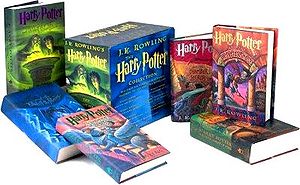 Собрание семи книг о Гарри Поттере на английском языке. |
|
| Автор: |
Дж. К. Роулинг |
|---|---|
| Жанры: |
Роман-сказка, фэнтези |
| Страна: |
|
| Язык оригинала: |
Английский |
| Издательство: |
|
| Переводчики: |
Игорь Оранский |
| Даты публикации: |
26 июня 1997 — 21 июля 2007 |
| Даты публикации на русском языке: |
осень 2000 — 13 октября 2007 |
«Га́рри Поттер» (англ. «Harry Potter») — популярная серия романов английской писательницы Дж. К. Роулинг. Каждый из романов описывает один год из жизни главного героя — мальчика-волшебника по имени Гарри Поттер. Все семь частей стали бестселлерами и переведены на множество языков, в том числе на русский. Последняя, седьмая, часть появилась в продаже 21 июля 2007. На русском языке — 13 октября 2007. Общий тираж книг составил более 325 миллионов экземпляров (на 64 языках)[1] — больше, чем у какой-либо другой серии детских книг.
Содержание
- 1 Книги о Гарри Поттере
- 1.1 Волшебный мир
- 2 Фильмы о Гарри Поттере
- 3 Официальные игры о Гарри Поттере
- 4 История
- 5 Описание мира
- 5.1 Волшебники
- 5.2 Магические способности
- 5.3 Места волшебников
- 6 Переводы
- 7 Упоминания Гарри Поттера в других произведениях
- 8 Пародии
- 9 Эпизодические персонажи
- 9.1 Волшебники
- 9.1.1 Габриель Делакур
- 9.1.2 Орион Блэк
- 9.1.3 Альбус Северус Поттер
- 9.1.4 Мадам Розмерта
- 9.1.5 Грегорович
- 9.1.6 Августа Долгопупс
- 9.1.7 Олливандер
- 9.1.8 Геллерт Грин-де-Вальд
- 9.1.9 Батильда Бэгшот
- 9.1.10 Андромеда Тонкс
- 9.1.11 Тед Тонкс
- 9.2 Волшебные существа
- 9.2.1 Фоукс
- 9.2.2 Крюкохват
- 9.2.3 Кровняк
- 9.2.4 Флоренц
- 9.2.5 Магориан
- 9.2.6 Грохх
- 9.2.7 Винки
- 9.3 Домашние животные
- 9.3.1 Короста
- 9.3.2 Живоглот
- 9.3.3 Букля
- 9.3.4 Миссис Норрис
- 9.1 Волшебники
- 10 Студенты Хогвартса
- 10.1 Студенты Гриффиндора
- 10.1.1 Ромильда Вейн
- 10.1.2 Оливер Вуд
- 10.1.3 Ричи Кут
- 10.1.4 Кормак Маклагген
- 10.1.5 Джимми Пикс
- 10.1.6 Демельза Робинс
- 10.1.7 Джек Слоупер
- 10.1.8 Натали Макдональд
- 10.2 Студенты Слизерина
- 10.2.1 Блейз Забини
- 10.2.2 Маркус Флинт
- 10.2.3 Теодор Нотт
- 10.2.4 Дафна Гринграсс
- 10.3 Студенты Когтеврана
- 10.3.1 Мэнди Броклехарст
- 10.3.2 Эдди Кармайкл
- 10.3.3 Пенелопа Кристал
- 10.3.4 Роджер Дэвис
- 10.3.5 Сандра Фосетт
- 10.3.6 Орла Свирк
- 10.3.7 Лиза Турпин
- 10.3.8 Аккерли Стюарт
- 10.1 Студенты Гриффиндора
- 11 Примечания
- 12 Ссылки
Книги о Гарри Поттере
- Гарри Поттер и философский камень
- Гарри Поттер и Тайная комната
- Гарри Поттер и узник Азкабана
- Гарри Поттер и Кубок Огня
- Гарри Поттер и Орден Феникса
- Гарри Поттер и Принц-полукровка
- Гарри Поттер и Дары Смерти
- Гарри Поттер: предыстория
Волшебный мир
- Фантастические звери и места их обитания
- Квиддич с древности до наших дней
- Сказки барда Бидля
Эксклюзивными правами на издание «Гарри Поттера» на русском языке владеет издательство Росмэн.
Фильмы о Гарри Поттере
Первые 6 книг экранизированы, седьмая снимается в двух частях. Доходы от книг, фильмов, компьютерных игр вывели писательницу на 620-е место в списке самых богатых людей мира. В частности, Роулинг богаче английской королевы Елизаветы II.
- Гарри Поттер и философский камень
- Гарри Поттер и Тайная комната
- Гарри Поттер и узник Азкабана
- Гарри Поттер и Кубок Огня
- Гарри Поттер и Орден Феникса
- Гарри Поттер и Принц-полукровка
- Гарри Поттер и Дары Смерти [2]
Официальные игры о Гарри Поттере
К премьере каждого фильма выпускаются одноимённые игры (Исключение составляет игра «Гарри Поттер: Кубок квиддича») на всех основных платформах, включая PC, PS2, XBox 360, PS3, и, с недавнего времени, Wii.
- Гарри Поттер и философский камень PSone, PC
- Гарри Поттер и тайная комната PSone, PS2, PC
- Гарри Поттер и узник Азкабана PSone, PS2, PC
- Гарри Поттер и Кубок Огня PS,PS2, PC, Xbox, PSP,
- Гарри Поттер и Орден Феникса PS2, PC, XBox, XBox 360, Wii, PSP, PS3, Mobile
- Гарри Поттер и Принц-полукровка [3] Wii, PS3, Xbox 360, PS2, PSP, DS, PC, mac и Mobile.
- Гарри Поттер: Чемпионат мира по квиддичу PS2, Xbox, Nintendo GameCube, Game Boy Advance, PC
В 2001 году к премьере первого фильма компанией Wizards of the Coast начала издаваться коллекционная карточная игра Harry Potter Trading Card Game. Одно время игра была на втором месте среди самых продаваемых игрушек в США, однако в конце 2002 года издание игры было прекращено.
История
Идея первой книги («Гарри Поттер и философский камень») пришла в голову писательнице в 1990 году, когда она ехала на поезде из Манчестера в Лондон, поезд внезапно остановился на полпути между двумя городами, и в окно поезда она увидела худенького мальчика в больших очках. Сразу по приезде Роулинг начала писать. Она часто писала книгу в своём любимом кафе в Эдинбурге за чашкой кофе. За время написания книги она успела пережить смерть матери от рассеянного склероза (31 декабря 1990), уехать в Португалию преподавать английский язык (1991), там выйти замуж за плейбоя Жоржи Арантеса (1992), родить дочь (июль 1993), развестись с мужем (сентябрь 1993), вернуться в Англию (где она продолжала писать книгу, живя на пособие по безработице) и впасть в депрессию. Во время депрессии у Роулинг родилась идея дементоров — существ, высасывающих из человека радость. Тема смерти родителей в книге возникла у Роулинг под впечатлением смерти её матери.
В течение длительного времени разные издательства одно за другим отвергали рукопись, пока в 1995 году небольшое издательство «Блумсберри» (англ. «Bloomsbury») согласилось принять книгу. Книга вышла в свет 26 июня 1997 года.
Существует расхожее мнение, что книга стала популярной благодаря чрезвычайно активной рекламе. В действительности маленькое издательство не имело ни причин устраивать рекламную кампанию в пользу детской книги никому не известного автора, ни денег для такой кампании. Тем более не имела денег для рекламных кампаний сама Джоан Роулинг, в то время бедная мать-одиночка. Книга стала популярной благодаря положительным рецензиям, а также потому, что читатели рекомендовали её друг другу. Неожиданно для издателей (и, возможно, для самой Роулинг) книга завоевала огромную популярность и стала бестселлером. Роулинг начала писать продолжения, и следующие книги стали ещё популярнее, чем первая.
Книги были переведены на множество языков (к настоящему времени около 64). Перевод на русский язык был сделан издательством «РОСМЭН». В переводе были изменены имена некоторых персонажей книги (то есть адаптированы на русский язык). Стоит отметить имя Грозного Глаза. В оригинале его назвали Аластор Муди, но, по причине схожести с русским эвфемизмом гениталий, Муди был переименован в Грюма. Однако когда компания Софт Клаб наотрез отказалась вносить фамилию «Грюм» в перевод серии одноимённых игр, издательству Росмэн пришлось выплатить $15000 за то, чтобы компания Софт Клаб все же согласилась использовать фамилию Грюм. Тем не менее в пиратских (неофициальных) переводах игр была сохранена фамилия Муди.
Описание мира
Действие происходит в нашем мире, в Англии, в 1990-х годах. В отличие от реального мира, среди обычных людей живут волшебники, или маги, имеющие волшебные способности, основная из которых — умение пользоваться волшебными палочками, главной вещью в жизни мага. Об их существовании не знают обычные люди — маглы. Волшебников намного меньше маглов, например в Англии живёт порядка 3 тысяч волшебников [1]. Тем не менее у волшебников есть свои собственные правительства (в Великобритании — Министерство Магии), школы (английская школа — Хогвартс), газеты, «радио», деньги, банки и т. д. Есть даже собственные игры — спортивная игра Квиддич, плюй-камни, волшебные шахматы и другие. Сообщество магов замкнуто и самодостаточно, живёт среди маглов, но не зависит от них и старается не соприкасаться. Волшебники пользуются собственными магазинами, ресторанами, у них свои интересы. Волшебниками могут родиться дети двух магов, а также дети магла и мага (но такие связи очень редки, чаще всего волшебники создают связи внутри своего мира). Также, в очень редких случаях, ребёнок может родиться волшебником у родителей-маглов. Об этом узнает правительство волшебного мира, и оно всё объясняет родителям с просьбой сохранить в тайне их мир и отпустить ребёнка в школу волшебников.
Кроме магов и маглов, есть также сквибы — дети магов, не имеющие магических способностей. Они знают о мире волшебников, но им трудно в нём жить. Сквибов в мире очень мало. Кроме того, есть множество разновидностей магических существ, которых волшебники тоже скрывают от маглов, например: великаны (гигантские создания, похожие на человека и обладающие интеллектом, хоть и небольшим, живут в горах), кентавры (полулюди-полулошади, мудрые и гордые создания, живут в основном в лесах), гоблины (тесно сотрудничают с волшебниками, хотя те часто недооценивают этих небольших человекоподобных созданий), домовые эльфы (обычно являются домашней прислугой волшебников), тролли, фениксы, драконы и другие.
Волшебники
Определяющими для общества магов являются две его особенности.
Во-первых, его члены умеют применять магию. Способность к магии является врождённой и морально нейтральной, а умение колдовать целенаправленно и эффективно приобретается длительным обучением. Человека, лишённого способности к магии, невозможно научить колдовать. Магия пронизывает всю жизнь волшебников, как в виде почти универсального инструмента, так и в виде заколдованных предметов. С помощью магии можно сделать очень многое, от нахождения пропавших объектов до убийства.
Во-вторых, маги уверены, что маглы с ними не смогут мирно сосуществовать. Маглы не знают о существовании волшебников, и это положение возникло не само собой, а является следствием ряда мер, принимаемых волшебниками (в частности, Статутом о секретности). В частности, несовершеннолетние волшебники имеют право применять магию только в школе; запрещено заколдовывать предметы, принадлежащие маглам; любое намеренное открытие магических способностей наказывается. Если всё же маглы обнаружат что-то, заставляющее подозревать магию, специальное подразделение Министерства Магии займётся стиранием соответствующих воспоминаний.
Маглы, которым разрешено знать о магии, — это супруги и ближайшие родственники волшебников и высшие эшелоны власти (в Англии, скорее всего, только премьер-министр; про другие страны книги практически не упоминают).
Магические способности
Способность к магии является врождённой. Она или есть, или её нет: человека, лишённого способности к магии, невозможно научить колдовать. Таких людей волшебники в обиходе называют «ма́глами», а официально — немагическим населением. Способность к магии имеет тенденцию передаваться по наследству. Изредка потомок волшебников не имеет способностей к магии — таких именуют не маглами, а сквибами.
Волшебник, чьи предки были маглами, называется маглорождённым. Если лишь один из предков был маглом, волшебник называется полукро́вкой. Оскорбительное название маглорожденных и полукровок — грязнокро́вки. Если все предки хотя бы до второго поколения были волшебниками, он называется чистокро́вным.
Среди чистокровных волшебников встречается своеобразный расизм — предубеждение против нечистокровных. Особенно такие волшебники ненавидят своих собратьев, женившихся или вышедших замуж за маглов — их называют «предателями крови». Практически все такие расисты, упоминаемые в книге, являются отрицательными или отталкивающими персонажами. Многие из них обманывают себя, считая, что все их предки в течение сотен лет были магами. Иногда они верят, что магическая сила определяется чистотой крови, но это не так. В действительности некоторые из самых сильных магов были полукровками или маглорождёнными.
Некоторые маги обладают способностями, редкими даже в их мире. Так, Гарри Поттер, как и Том Реддл, является змееустом, то есть понимает язык змей, а ещё один герой Роулинг — Нимфадора Тонкс — является метаморфиней, то есть может частично менять свою внешность. Также в волшебном мире есть оборотни — люди, которые под светом полной луны непроизвольно превращаются в свирепого волка (например, Римус Люпин или Фенрир Сивый). Оборотнем может стать любой человек (даже магл), если его укусил другой оборотень в обличии волка. Правительство магов тщательно следит за оборотнями и другими волшебными существами. Также волшебник может быть анимагом, то есть способен превращаться в определённое животное по своему желанию. Этому можно научиться. Однако данная способность должна быть официально зарегистрирована в Министерстве магии (из всех анимагов, действующих в книгах, только Минерва Макконнагал является признанным анимагом).
Места волшебников
Волшебники создали свой тайный мир в разных местах и держат его в секрете от маглов. В книгах упоминается о некоторых местах, принадлежащих волшебникам (большинство из них не могут быть обнаружены маглами благодаря защитной магии): школы волшебства (Хогвартс на севере Англии, Шармбатон во Франции, Дурмстранг в Болгарии и другие), несколько улиц волшебников в Лондоне (Косой переулок, Лютный переулок и другие), посёлок, принадлежащий только магам — Хогсмид (единственный такой посёлок во всей Англии, рядом со школой Хогвартс), специальная платформа на лондонском вокзале Кингс-Кросс, Лес, где проводился финал чемпионата мира по Квиддичу, Министерство Магии Англии под Лондоном, Больница Святого Мунго в Лондоне и многие другие места.
Переводы
Серия книг была переведена на несколько десятков языков (см. Harry Potter in translation). При этом многие имена также были преобразованы[4].
Существует несколько известных переводов серии на русский язык.
Исторически первым был создан перевод Игоря Оранского (только «Философский камень»), изданный в 2000 году издательством «Росмэн» (http://www.rosman.ru) — официальным издателем книг о Гарри Поттере на русском языке.
Перевод Марины Литвиновой (также «Росмэн», 2-я и 3-я книги; «подстройка» 1-й книги под переводы) устроил далеко не всех и подвергался критике. В частности, они были отмечены антипремией «Абзац» (2002).
Поклонниками серии были предприняты сетевые проекты типа «народный перевод» (http://harrypotter.internetmagazin.ru), где коллективы переводчиков-фанатов переводили книги о Гарри по мере их выхода. Большинство переводов оказались близки к первому официальному переводу Оранского.
Существует перевод Марии Спивак («Эм. Тасамая»), характерный более полным переводом всех имён и названий на русский язык, часто с комическим оттенком. Переводы Марии Спивак публиковались изначально на сайте «НИИ (независимое Интернет-издательство) Гарри Поттер», а также на других сайтах (например, http://harrypotter.ru).
В Интернете также проводилось обсуждение целесообразности «Народных переводов». Например, известна публикация «Сыворотка Бенжамена», откликающаяся на статью одного из «критиков», взявшего псевдоним Бенжамен Толстой.
Что ж, если принять в соображение, сколько издательств лишилось лакомого куска в виде прав на «всемирно известный бестселлер», сколько переводчиков не удостоились желанной чести увидеть свою фамилию на титульном листе нашумевшей книги, причина негодования понятна. Если бы «Поттера» перевёл М. Л. Лозинский или Н. М. Любимов, их бы анафемствовали с не меньшей горячностью.
Таблица переводчиков «Росмэна»:
| Книга | Переводчик(и) |
|---|---|
| Философский камень | И. Оранский; обработка М. Литвиновой |
| Тайная комната | М. Литвинова |
| Узник Азкабана | М. Литвинова |
| Кубок огня | М. Литвинова, Н. Литвинова, А. Лях, М. Межуев, Е. Саломатина (под ред. М. Литвиновой) Перевод стихов — А. Лях |
| Орден Феникса | В. Бабков, В. Голышев, Л. Мотылёв |
| Принц-полукровка | М. Лахути, С. Ильин |
| Дары Смерти | М. Лахути, С. Ильин, М. Сокольская |
В статьях в Википедии используется перевод издательства «Росмэн», если не оговорено иное. Ниже приведена таблица соответствий переводов некоторых названий:
| Оригинал | Перевод Игоря Оранского (изначальный) | Перевод Марины Литвиновой (официальный) | Народные переводы (Интернет) | Перевод Марии Спивак (пс. Эм. Тасамая) |
Перевод Бялко-Левитовой[5] |
|---|---|---|---|---|---|
| Hogwarts school of Witchcraft and Wizardry | Школа волшебства Хогвартс | Школа чародейства и волшебства Хогвартс | Школа колдовства и волшебства Хогварц | Школа колдовства и ведьминских искусств Хогвартс | Школа чародейства и колдовства Хогвартс |
| Ravenclaw | Рэйвенкло | Когтевран | Рэйвенкло | Равенкло | Равенклоу |
| Hufflepuff | Хаффлпафф | Пуффендуй | Хаффлпафф | Хуффльпуфф | Хаффлпафф |
| Slytherin | Слайзерин | Слизерин | Слитерин | Слизерин | Слиферин |
| Ron Weasley | Рон Уизли | Рон Уизли | Рон Висли | Рон Уэсли | Рон Уизли |
| Hermione Granger | Гермиона Грэйнджер | Гермиона Грейнджер | Эрмиона Грангер | Гермиона Грэнжер | Гермиона Грейнджер |
| Neville Longbottom | Невилл Лонгботтом | Невилл Долгопупс | Невилл Лонгботтом | Невилль Длиннопопп | Невилль Лонгботтом |
| Severus Snape | Северус Снейп | Северус Снегг | Северус Снэйп | Злодеус Злей | Северус Снейп |
| Voldemort | Вольдеморт | Волан-де-Морт | Волдеморт | Вольдеморт | Волдеморт |
| Dursley | Дарсли | Дурсли | Десли | Дурслей | Дарсли |
| Alastor ‘Mad-eye’ Moody | Аластор Грюм («Грозный Глаз») | Аластор Муди («Дикий глаз») | Аластор Хмури («Шизоглаз») | ||
| Gilderoy Lockhart | Гилдерой Локхарт[6] | Златопуст Локонс | Гилдерой Локхарт | Сверкароль Чаруальд | |
| Horace Slughorn | Горацио Слагхорн | Гораций Слизнорт | Хораце Слугхорн | Гораций Дивангард | |
| Madam Hooch | Мадам Хуч | Мадам Трюк | Мадам Хуч | Мадам Самогони | мадам Хутч |
| Rita Skeeter | Рита Скитер | Рита Москита | Рита Вритер | ||
| Privet Drive | Прайвет Драйв | Тисовая улица | Бирючинный проезд | Бирючиновая улица | Бузинный проезд |
| Diagon Alley | Косой переулок | Косой переулок | Диагон Аллея | Диагон Аллея | Диагональный проулок |
| Knockturn Alley | Лютный переулок | Мрак Аллея | Дрянн Аллея |
Упоминания Гарри Поттера в других произведениях
В пятой и седьмой книгах серии «Тёмная Башня» американского писателя Стивена Кинга именем Гарри Поттера названа модель СаРГ (самонаводящейся ручной гранаты), в обиходе называемая также «снитч»:
— Хочу взглянуть на крышку ящика, — сказал Джейк, когда они присоединились к ней. Сюзанна подвинулась, Джейк поднял крышку, с восхищением уставился на нее. На крышке нарисовали лицо улыбающегося мальчика с похожим на стилизованное изображение молнии шрамом на лбу, в круглых очках. Он замахивался вроде бы волшебной палочкой на подлетающий снитч. Под рисунком они прочитали:
- «СОБСТВЕННОСТЬ 449 ЭСКАДРОНА 24 „СНИТЧА“
- МОДЕЛЬ „ГАРРИ ПОТТЕР“ СЕРИЙНЫЙ № 465-11-AA HPJKR[7]
- Не связывайтесь с 449-ым! Мы вышибем вам мозги!»[8]
В романе Дэна Брауна «Код да Винчи» есть следующий диалог между редактором Фаукманом и профессором Лэнгдоном:
- — Но раз об этом написано столько книг, почему тогда о вашей теории наслышаны единицы?
- — Просто эти книги не в силах повлиять на складывавшееся веками общепринятое мнение. Особенно если учесть, что на формирование этого мнения повлиял бестселлер всех времен и народов.
- Фаукман вытаращил глаза:
- — Только не говорите мне, что в «Гарри Поттере» речь идет о чаше Грааля!
- — Я говорю о Библии.
- Фаукман поежился.
- — Я так и понял.[9]
Также упоминается в сериале клиника J.D. говорит Эллиот Рид про своего брата : Он же не какой-нибудь Гарри Поттер который живет в чуланчике под лестницей.
В книге С.Лукьяненко «Последний дозор» в разговоре семьи Городецких:
- — Такая у папы работа, — спокойно объяснила Светлана, подхватывая дочку на руки. — Ты же знаешь, он борется с темными силами.
- — Как Гарри Поттер, — с некоторым сомнением произнесла Надя, глядя на меня. Наверное, мне не хватало очков и шрама на лбу, чтобы соответствовать высокому образу.
- — Да, как Гарри Поттер, Фэт Фрумос и Люк Скайуокер.
Пародии
- Порри Гаттер
- Таня Гроттер
- Наука побеждать
- АнтиГарриПоттер
- Ларин Пётр
- Барри Троттер
- Парри Хоттер и Изнанка Магии [10]
Эпизодические персонажи
Волшебники
Габриель Делакур
Анджелика Мэнди в роли Габриель Делакур
Габрие́ль Делаку́р (англ. Gabrielle Delacour) — младшая сестра Флёр Делакур. Служила своеобразным призом во втором состязании в Турнире Трёх Волшебников для своей сестры. Симпатичная, честолюбивая девочка. С юных лет знает цену своей красоте.
Была подружкой невесты на свадьбе Билла Уизли и Флёр Делакур.
Во время испытания по спасению людей в Турнире Трёх волшебников Гарри Поттер спасает её одновременно с Роном.
Орион Блэк
Орион Блэк (англ. Orion Black) — отец Сириуса Блэка. Фанатик идеи чистоты крови. Первое упоминание в книге Гарри Поттер и узник Азкабана. Дальнейшая судьба неизвестна, хотя, судя по словам Финеаса Найджелуса Блэка он умер до июня 1996 года, а судя по тому, что Сириус о нем практически не говорил, то выходит, что Орион Блэк ушёл из жизни ещё до 1993 года.
Альбус Северус Поттер
А́льбус Се́верус Поттер (англ. Albus Severus Potter) — средний сын Гарри и Джинни, рожденный в 2007 году и названный в честь двух директоров Хогвартса: Альбуса Дамблдора и Северуса Снегга. Появляется только в эпилоге. Внук Джеймса и Лили Поттеров. Похож на Гарри, как две капли воды. Единственный из троих детей унаследовал глаза матери Гарри.
Отправляя младшего Поттера в школу, папа передаёт ему мантию-невидимку и говорит, чтобы он не боялся распределения.
Мадам Розмерта
Мадам Розме́рта (англ. madam Rosmerta) — хозяйка хогсмидского паба «Три метлы», полнотелая розовощёкая интересная женщина. Далеко не первой молодости: она помнит Джеймса, Сириуса, Римуса и Питера студентами, а они учились в Хогвартсе ещё в середине 70-х. Но мадам Розмерта и до сих пор выглядит вполне привлекательно, а то с чего бы Рон на неё засматривался? Что удивительно для женщины, весь день бегающей между столиков и разносящей заказы — Розмерта носит обувь на каблуке. Вероятно, внешний вид для неё значит больше, чем удобство…
Когда Гарри Поттер учился на шестом курсе, мадам Розмерта попала под действие заклятия Империус и выполняла волю Драко Малфоя. Она подсунула Проклятое ожерелье Кэти Белл, когда девочка выходила из дамского туалета. Также она наложила заклятие Империус на Кэти, поскольку она никак не реагировала на уговоры подруги оставить ожерелье и продолжала нести опаснейший артефакт в школу. Когда Дамблдор и Гарри отправились на поиски крестража, мадам Розмерта дала знак Пожирателям смерти, что Дамблдор ненадолго покинул Хогвартс. Что в свою очередь позволило Малфою привести Пожирателей в школу. Дальнейшая судьба неизвестна.
Грегорович
Грегоро́вич (англ. Gregorovitch) — самый знаменитый болгарский мастер волшебных палочек, видимо так же почитаемый в Восточной Европе, как Олливандер в Великобритании. Грегорович — человек весьма преклонных лет, в начале XX века он уже был известным мастером. Тогда же он совершил большую ошибку: в рекламных целях он рассказывал своим клиентам, что обладает Бузинной палочкой. Дескать, я изучаю её магические свойства и стараюсь применить эти секреты в своих творениях. Кончилось тем, что молодой Геллерт Грин-де-Вальд похитил Бузинную палочку у мастера, и с её помощью пытался подчинить себе весь мир.
После второго прихода Тёмного Лорда Грегорович оставляет бизнес и пытается скрыться. Виктор Крам говорит о том, что он, вероятно, был одним из последних клиентов мастера, а палочка Крама была куплена никак не позже осени 1994 года. Волан-де-Морт занимается поисками Грегоровича лично, полагая, что Бузинная палочка всё ещё у него. Найдя мастера, он подвергает его пыткам. Ничего не добившись, проникает в его мысли и узнаёт о давнем похищении. Затем, не испытывая больше в старике нужды, Тёмный Лорд убивает Грегоровича. [11]
Августа Долгопупс
Авгу́ста Долгопу́пс (англ. Augusta Longbottom) — мать Френка, свекровь Алисы и бабушка Невилла Долгопупс. Пожилая леди. У неё когтистая ладонь она носит длинное зелёное платье, лисий палантин, большую красную сумочку а на голове шляпу с чучелом грифа. Некогда училась вместе с Минервой Макгонагалл, поддерживает дружеские отношения с Гризельдой Марчбэнкс (англ. Griselda Marchbanks), которая когда-то принимала экзамены ЖАБА у самого Альбуса Дамблдора.
Очень властная и гордая женщина. Обо всём имеет собственное мнение, которое не стесняется высказывать весьма прямолинейно. В чём-то они с Макгонагалл похожи: обе строгие, но справедливые, обе не любят ложь и интриганство, обе — отличные колдуньи. Хотя бабушке Невилла уже много лет, она не утратила ни сноровки, ни магической силы. О таких, как она, принято говорить, что это «гвардия старой закалки».
Августа любит и гордится сыном, снисходительно относится к невестке и по-своему любит внука. Правда, все чувства, кроме гордости, миссис Долгопупс, похоже, считает проявлением слабости и старается их не афишировать. [12]
Олливандер
Оллива́ндер (англ. Ollivander) — пожилой волшебник с большими светло-серыми глазами, длинными пальцами. Один из ведущих мастеров волшебных палочек, глава фирмы «Олливандер», владелец магазина в Косом переулке. Семейство Олливандер изготовляет волшебные палочки с 382 года до н. э. Почти все палочки, которыми пользуются персонажи британского происхождения — его работы. Только про три палочки явно сказано, что они не его работы: это палочка Крама, палочка Флёр Делакур и Бузинная палочка.
Во время повествования мистер Олливандер уже очень стар. Отличительной чертой его является то, что он помнит все (!) палочки, которые когда-либо произвёл, и помнит, какая палочка кому досталась. Мало того, тщательные измерения параметров клиента (рост, размах рук, расстояние между различными частями тела и т. п.) требуется мастеру лишь при подборе первой палочки. Впоследствии мистер Олливандер способен создать новую палочку для старого клиента и не прибегая к примеркам. Олливандер создает палочку для Хвоста без особых примерок, а новую палочку Полумны вообще прислал ей по почте. Это великолепный специалист в своей области, но он также интересуется и отношениями между палочкой и хозяином. Кроме того он знает всё или почти всё о Бузинной палочке, но понятия не имеет об остальных Дарах Смерти.
Летом 1996 года неожиданно для многих Олливандер исчезает из Косого переулка, никто не может сказать, куда. Так же неожиданно он «отыскивается» в подвале поместья Малфоев, куда попадают сперва Полумна Лавгуд, а потом и Гарри Поттер с друзьями. Оказывается, старик понадобился Волан-де-Морту. Сначала Тёмный Лорд пытался выяснить, как обойти родство его палочки с палочкой Гарри, а потом выудил из него информацию о Бузинной палочке. Полуживого Олливандера удаётся спасти из плена.
Надо полагать, что после победы над Волан-де-Мортом, старый мастер вернулся к своей деятельности. Тем более, что он заслуженно считается лучшим производителем волшебных палочек во всей Великобритании.
Геллерт Грин-де-Вальд
Ге́ллерт Грин-де-Вальд (англ. Gellert Grindelwald) — персонаж серии книг о Гарри Поттере. Впервые упомянут в первой книге (его имя Гарри Поттер прочитал на карточке от шоколадной лягушки с изображением Дамблдора), более подробно описан в книге седьмой. Грин-де-Вальд являлся самым могущественным тёмным волшебником в мире, уступившим своё первенство лишь Волан-де-Морту. Единственный известный злой волшебник, учившийся не на Слизерине и даже не в Хогвартсе.
Начало своей жизни Геллерт Грин-де-Вальд провёл в Дурмстранге, ставя там различные опыты. За это его выгнали из школы, и он поехал к своей тёте в Годрикову Впадину. Там он познакомился с Альбусом Дамблдором. Геллерт рассказал ему о Дарах Смерти. Они предались мечтам о господстве волшебников над маглами. Тогда они думали и о том, как найти Дары Смерти. Однако позже между Геллертом, Альбусом и Аберфортом (братом Дамблдора) состоялась страшная ссора, в пылу которой погибла Ариана — младшая сестра Дамблдоров. Сразу после трагедии Грин-де-Вальд сбежал.
Затем Грин-де-Вальд установил террористический режим в Европе (скрытое сравнение с фашизмом), убив там многих волшебников, в том числе и дедушку Виктора Крама. Его девиз звучал как «Ради общего блага». Для несогласных с ним основал тюрьму Нурменгард.
Битва Грин-де-Вальда с Альбусом Дамблдором в «Гарри Поттере» почти не описывается. Известно, что директор Хогвартса долго избегал встречи со своим старым другом, во многом из-за того, что боялся узнать, кто из троих участников страшной ссоры (сам Дамблдор, его брат Аберфорт или Грин-де-Вальд) убил Ариану. Однако количество жертв террора Геллерта Грин-де-Вальда неумолимо росло, и невозможно было и дальше оставаться в стороне, хотя он почему-то не применял инферналов. В схватке 1945 года, после окончания Второй мировой Дамблдор оказался сильнее. У Грин-де-Вальда в бою была отнята Бузинная палочка (англ. Elder wand), и он был пожизненно заключен в тюрьму, которую сам и построил. В седьмой книге был убит в своей одиночной камере Волан-де-Мортом, который искал Бузинную палочку.
Батильда Бэгшот
Бати́льда Бэгшот (англ. Bathilda Bagshot) — автор учебника «История магии», соседка семьи Дамблдоров по Годриковой Впадине, двоюродная бабушка Гриндевальда, является одной из самых старых волшебниц, живущих в Англии. Она была уже весьма преклонного возраста, когда к ней на каникулы приехал Гриндевальд, а было это в 1898 или 1899 году. Умерла Батильда скорее всего осенью 1997 года. Во всяком случае, в августе с ней ещё беседовала Рита Скитер, а на Рождество её тело, «которое было мертво к этому моменту уже несколько месяцев», использовалось как маскирующая оболочка для Нагайны.
Андромеда Тонкс
Андроме́да Тонкс (англ. Andromeda Tonks) (в девичестве Блэк) — дочь Кигнуса Блэка и Друэллы Розир, родная сестра Нарциссы Малфой и Беллатрисы Лестрейндж. Скорее всего — средняя сестра (на фамильном дереве Блэков она расположена между Беллой и Цисси). Сестра-близнец Беллатрисы. Различить их могли только по глазам. Чистокровная волшебница, вышедшая замуж за маглорождённого мага Теда Тонкса. Имеет дочь Нимфадору. Тёща Римуса Люпина и бабушка Тедди Люпина. Любимая кузина Сириуса.
Андромеда овдовела в конце зимы 1998 года и потеряла дочь и зятя в том же году 2 мая. Растить внука ей помогал крёстный отец Тедди Гарри Поттер, а также друзья Люпина и Нимфадоры.
Тед Тонкс
Тед Тонкс (англ. Ted Tonks) — маглорождённый волшебник, муж Андромеды Тонкс, отец Нимфадоры Тонкс, которую они с женой называют «Дора». Тесть Римуса Люпина и дедушка Тедди Люпина. Впрочем, до рождения внука он так и не дожил. Теда убили егеря, так называемые «охотники за головами», за деньги сдававшие «грязнокровок» и инородцев про-Волан-де-Мортовскому министерству магии. Это произошло в конце зимы 1998 года.
Волшебные существа
Фоукс
Фоукс
Фо́укс (англ. Fawkes) — феникс, «домашнее животное» Альбуса Дамблдора. Очевидно, Фоукс значит для Дамблдора то же, что и Букля для Гарри Поттера. Феникс и сам привязан к директору настолько, что после его смерти исчезает из Хогвартса насовсем. Выглядит, как рыжевато-малинового цвета птица величиной с лебедя, имеющая сверкающий золотой хвост, длинный, как у павлина, блестящие золотые лапы, острый золотой клюв и чёрные глаза-бусины. Волшебные палочки Гарри и Волан-де-Морта сделаны из перьев хвоста Фоукса.
Имя Фоукса связано не только с легендами, но и с реальными историческими событиями. Возможно, феникс был назван в честь Гая Фокса. Мятежники 5 ноября 1605 года хотели взорвать здание английского парламента. Этот сигнал должен был побудить английских католиков, которых в то время всячески притесняли, к мятежу. Заговорщики спрятали под палатой Лордов 36 бочек с порохом, однако план провалился. О мятежниках узнали власти, многих казнили. Сейчас 5 ноября в Великобритании жгут костры, которые напоминают погребальный костёр феникса.
В книге «Гарри Поттер и тайная комната» Гарри видит Фоукса в кабинете Дамблдора — там феникс выглядит как дряхлая птица, похожая на полуощипанную индюшку. Потом Фоукс внезапно загорается, превращается в огненный шар, а после возрождается из пепла как крохотный сморщенный птенец.
В конце книги Фоукс приносит Гарри Поттеру меч Гриффиндора, находящийся внутри Распределяющей шляпы, и ослепляет Василиска, выклевав ему глаза. После того, как Гарри побеждает Василиска и уничтожает крестраж Волан-де-Морта, Фоукс уносит Гарри, Златопуста Локонса, Джинни и Рона Уизли и поднимает их на поверхность. Слезы Фоукса излечивают Гарри от смертельной раны.
В книге «Гарри Поттер и Орден Феникса» Альбус Дамблдор покидает Хогвартс, исчезнув вместе с Фоуксом.
После смерти Дамблдора Фоукс всю ночь летает вокруг Хогвартса и оплакивает своего хозяина.
Крюкохват
Крюкохват
Крюкохва́т, Гри́пхук, Грифук (англ. Griphook) — персонаж серии романов Дж. К. Роулинг о Гарри Поттере, гоблин, работник волшебного банка Гринготтс.
Первое появление в первой книге, где Крюкохват сопровождает Хагрида и Гарри в сейф с деньгами. В седьмой книге Крюкохват пускается в бега из-за того, что его могут убить Пожиратели смерти. В бегах его сопровождает другой гоблин Кровняк и магглорождённый волшебник Дирк Крессвелл, потом к ним присоединились Тед Тонкс и Дин Томас. В ходе разговора, который подслушивают Гарри с друзьями, Крюкохват рассказывает, что меч Гриффиндора, который ему доверили отнести в сейф Пожиратели, ненастоящий. Вместе с Дином, Гарри, Роном и Гермионой гоблин попадает в плен к «егерям», дальше в особняк Малфоев. Оттуда его спасает Гарри Поттер. Гоблин поражен тем, что волшебник спас гоблина и похоронил домового эльфа. Некоторое время он живёт в коттедже «Ракушка» у Билла и Флёр. Когда Поттер просит его помочь им проникнуть в банк, тот соглашается, но при условии, что они отдадут ему меч, потому что меч принадлежит гоблинам. Гарри дает ему слово, что отдаст меч. Крюкохват не до конца ему верит. Обдумав план, герои проникают в сейф Лестрейнджей, но, когда прибегает охрана, Крюкохват в суматохе прибирает к лапам меч и убегает.
Кровняк
Кровня́к, Го́рнук (англ. Gornuck) — гоблин. Во время властвования Тёмного лорда был в бегах, путешествуя с Дирком Крессвеллом и Крюкохватом. Потом к ним присоединились Тед Тонкс и Дин Томас. Из разговора, подслушанного Гарри, Роном и Гермионой, они узнали, что Кровняк не выполнил приказ Пожирателей смерти и понял, что, если он не сбежит, его убьют. Убит «егерями» (Гарри Поттер и Дары смерти).
Флоренц
Флоренц (англ. Firenze) — кентавр. Впервые появляется в книге «Гарри Поттер и философский камень». Именно Флоренц спасает Гарри Поттера от Волан-де-Морта, сидящего в теле профессора Квиррелла, а потом сажает мальчика себе на спину, чтобы быстрее покинуть опасное место, чем вызывает бешеное возмущение Бейна, главного кентавра. Был изгнан из стада Кентавров, проживающего в Запретном лесу, за предательство, которое Бейн никогда не прощал никому из кентавров: лояльное отношение к людям. В знак изгнания кентавры пометили его ударом копыта (что впоследствии заметил Гарри). По просьбе Альбуса Дамблдора Флоренц стал преподавать Прорицания ученикам Хогвартса с 1995 года. Сивилла Трелони недолюбливала Флоренца, так как вынуждена была разделить с ним преподавание Прорицаний. В «Дарах смерти» сражался в битве за Хогвартс. Был ранен в этой битве, но выжил. Был принят обратно в стадо.
Магориан
Маго́риан (англ. Magorian) — широкоскулый черноволосый кентавр с лошадиным телом гнедой масти. Пользуется авторитетом, часто говорит от имени всего стада. Придерживается мнения, что любое сотрудничество с людьми унижает кентавров. Хочет жить по принципу «мухи отдельно, котлеты отдельно», в смысле люди не вмешиваются в дела кентавров, кентавров не волнуют дела людей.
Грохх
Грохх, Гурп (англ. Grawp) — великан, младший брат Хагрида, сын великанши Фридвульфы. Он был меньше других великанов (всего 16 футов ростом), и потому они обижали его. Хагрид, который ласково называл его Грошиком, забрал Грохха в Хогвартс и поселил его в Запретном Лесу. Это вызвало недовольство кентавров.
Грохх очень силён, он вырывает целые деревья с корнем ради забавы или когда сердится. Хагрид был вынужден держать его связанным, но при большом желании Грохх может разорвать эти верёвки.
Хагрид пытался учить брата английскому языку и однажды познакомил с Гроххом Гарри Поттера и Гермиону Грейнджер, в надежде, что общение с людьми пойдёт ему на пользу. Грохх выучил имя Гермионы — он называл её «Герми» — и ещё несколько английских слов, но его способности весьма ограничены. В седьмой книге участововал в битве за Хогвартс. Грохх сражался с другими великанами, пришедшими с Тёмным Лордом.
Винки
Ви́нки (англ. Winky) — домашний эльф семьи Крауч. Все её предки служили этой семье. Поэтому, когда на чемпионате мира по Квиддичу в 1994 году [13], Барти Крауч уволил её, горю Винки не было границ. Хозяин дал ей одежду после того, как её нашли с палочкой Гарри Поттера, при помощи которой была сделана Тёмная метка. Ответственный министерский работник не потерпел от своей эльфийки такого компрометирующего поведения: ослушаться приказа хозяина оставаться на месте (даром, что это было смертельно опасно), взять чужую палочку (эльфам запрещено даже брать их в руки), наколдовать Метку Тёмного Лорда (хотя Винки божилась и клялась, что знать не знает, как это делается)… Ни мольбы самой эльфийки, ни робкие увещевания стоявших рядом волшебников, ничто не поколебало решения Барти Крауча. Эта сцена, когда безжалостный хозяин необоснованно обвиняет, а потом и увольняет ни в чём не повинного эльфа, потрясла до глубины души Гермиону Грейнджер. С этого момента она становится ярым борцом за их права.
Истинная причина, по которой Крауч дал ей одежду, была совершенно другой. И это знали и Крауч, и Винки. Эльфийка должна была присматривать за сыном Крауч, Барти Крауч-младшим, которого отец тайно вызволил из Азкабана, и затем прятал ото всех в своём доме, постоянно держа нераскаявшегося Пожирателя смерти под заклятием Империус. И Крауч отлично понял, кто мог наколдовать Тёмную метку. Понял, что сын сбросил с себя действие заклятия и дал знать о себе. Именно это так взбесило обычно выдержанного Крауча. И Винки, сознавая свою вину (где ж ей, бедной, было знать, что её вины во всём этом нет), понимая, что без неё хозяину будет ещё сложнее присматривать за сыном, ужасаясь от одной мысли, сколько лишних забот ляжет на плечи её любимого хозяина, со всем жаром, на который способна, просит Крауча не прогонять её.
Оставшись во всех смыслах без дома, Винки встречает домового эльфа Добби, который уже год мыкается без работы. И тогда они вдвоём решают поступить на работу в Хогвартс. Альбус Дамблдор берёт их обоих: в школе живёт и работает самая большая община эльфов, дел хватит и на ещё две пары рук. Но если Добби с радостью берёт и жалованье, и одежду, Винки гордо от всего этого отказывается. Она изо всех сил старается сохранить свою порядочность, как она её понимает: «Да, Винки — запятнавший себя эльф! Но Винки зарплату не требует! Винки так низко не пала! Винки очень-очень стыдно быть свободной!» Своё горе Винки заливает сливочным пивом, постепенно превращаясь в вечно пьяное неопрятное существо. Только Добби продолжает о ней заботиться, остальные эльфы Хогвартса старательно делают вид, что Винки не существует. Но даже находясь уже на другом рабочем месте, даже раздавленная морально, даже абсолютно пьяная, Винки остро переживает за своего старого хозяина и свято оберегает его секреты.
Невероятно огромным потрясением для Винки было увидеть молодого Крауча в замке (она ведь не знала, что Барти-младший покинул родной дом и весь учебный год делал вид, будто он Аластор Грюм). Ещё большим потрясением было услышать его историю и признание, сделанное под действием сыворотки правды, в убийстве своего отца. И уж совсем невозможно представить, что испытала Винки, когда на её глазах Барти Крауча-младшего поцеловал дементор.
Время лечит почти все душевные раны. Пару лет спустя Гарри спрашивает Добби о Винки, и узнаёт, что эльфийка по-прежнему работает на кухне Хогвартса, и пить стала гораздо меньше…
Домашние животные
Короста
Короста
Коро́ста, Струпик (англ. Scabbers) — крыса Рона Уизли, которую он получил «в наследство» от старшего брата Перси, когда пришла пора ехать в Хогвартс. Три года Рон, как до него и Перси, считал Коросту бесполезным домашним животным: никакими магическими свойствами крыса не обладала. Тем не менее, крысу он по-своему любил. И очень огорчился, когда подумал, что её сожрал Живоглот, кот Гермионы.
Каково же было удивление мальчика, когда выяснилось, что под видом крысы все двенадцать лет в семье Уизли жил волшебник-анимаг Питер Петтигрю! Когда давнее преступление Петтигрю, из-за которого он, собственно и прятался ото всех, стало известно Рону, Гермионе и, главное, Гарри Поттеру (именно его родителей предал Питер), трусливый «крыс» предпочёл улизнуть.
Крыса по имени Короста перестала существовать. Если Питер и становился опять крысой, никто не звал его больше этим именем.
Живоглот
Живогло́т, Косолапсус (англ. Crookshanks) — кот Гермионы, которого она купила себе «в подарок на день рождения» в последние дни августа 1993 года. Вообще-то Гермиона собиралась потратить данные ей родителями деньги на сову, но «бедный котик» выглядел таким несчастным, а услужливая ведьмочка-продавщица так разжалобила девочку рассказом, что вот уже долгие годы бедная животинка живёт в магазине, и никто его не покупает… Короче, из магазина Гермиона вышла с хорошим котиком на руках. Рыжий Живоглот сразу не понравился Рону. Главным образом потому, что косо посмотрел на его крысу Коросту. Жаль, Живоглот не умеет разговаривать, а то бы он сразу сказал, какую такую скотину Рон пригрел на груди. Кот-то он не обычный, а с магическими способностями. Роулинг подтвердила, что Живоглот наполовину низл — умное котоподобное существо, способное определять ненадёжных людей.[14]
И в появившемся потом возле Хогвартса волкодаве он сразу распознал волшебника, Сириуса Блэка. Правда, с Сириусом они быстро нашли общий язык и подружились. Теперь Живоглот охотился за Коростой не в силу древних кошачьих инстинктов, а чтобы принести Питера Петтигрю в объятия старого друга, который мечтал поквитаться с предателем. Но тут на стражу безопасности старенькой крыски горой встал не только Рон, но и Гарри Поттер, которые совершенно не догадывались о человеческой составляющей ронового домашнего любимца. Питер в образе Коросты прекрасно понял, кому и зачем понадобился там, за стенами замка. Он инсценирует собственную смерть якобы от зубов и когтей Живоглота и сбегает… Уверенность Гермионы в невиновности её кота в пропаже Коросты стала причиной серьёзной ссоры между ней и Роном.
Только после нахождения Коросты, живой и здоровой, в домике Хагрида, Рон приносит свои извинения. А уж после того, как ребята узнали, кто скрывался под личиной домашнего любимца Рона, отношение того к Живоглоту резко меняется. И нового своего питомца, совёнка Сычика, мальчик первым делом подносит к морде кота. Для проверки. Так, на всякий случай. Чтоб второй раз не обжечься…
Букля
Букля
Бу́кля (англ. Hedwig, в других переводах — Хедвиг, Хедвига) — белоснежная полярная сова, подаренная Гарри Хагридом на его 11 день рождения. Она была куплена в Косом переулке в Торговом Центре «Совы».
Букля была подарена Гарри Поттеру Хагридом на день рождения («Гарри Поттер и философский камень») и с тех пор жила у него 6 лет (1991—1997). За это время Гарри практически не расставался со своей совой. Из книг известно, что Дурсли, опекуны Гарри, недолюбливали сову. Дядя Вернон жаловался на её уханье и вместе с тем не давал ей покидать пределы клетки, чтобы соседи не узнали о волшебных способностях Гарри.
Во время побега с Тисовой улицы («Гарри Поттер и Дары Смерти») один из пожирателей смерти убил Буклю заклинанием «авада кедавра» из волшебной палочки. При этом смерть её была неосознанной.
В конце «Даров Смерти», осознанно идя на смерть, Гарри жалел, что не может погибнуть также быстро и необдуманно, как его умершая сова.
Миссис Норрис
Миссис Норрис — кошка завхоза Хогвартса Аргуса Филча. Шерсть у неё серо-пепельного цвета, с тёмными полосами и отметинами вокруг красноватых глаз. Между Филчем и его кошкой есть некая, похоже, магическая, связь: если миссис Норрис видит какое-то нарушение порядка в коридорах Хогвартса, то минуту спустя на «месте преступления» появляется её хозяин.
Аргус Филч очень любит свою кошку. Когда миссис Норрис подверглась заклятию оцепенения, горю мистера Филча не было предела. Мало того, что он готов был чуть ли не разорвать на месте того, кого считал виновником беды, он в течение нескольких месяцев караулил место нападения на кошку, надеясь поймать злоумышленника.
В романе миссис Норрис играет такую же декоративную роль для мистера Филча, какую играет Клык для Рубеуса Хагрида. [15]
Студенты Хогвартса
Студенты Гриффиндора
Ромильда Вейн
Ромильда Вейн (англ. Romilda Vane) — студентка на два курса младше Гарри Поттера. Известна как девушка, влюбившаяся в Гарри и безуспешно пытавшаяся обратить на себя его внимание. Чистокровная. Волосы — тёмные, глаза — карие.
Впервые описывается в поезде «Хогвартс-Экспресс» по дороге в школу. Ромильда предлагает Гарри оставить едущих вместе с ним Невилла и Полумну и сесть в другое купе, но он отказывается, сказав, к немалому удивлению девушки, что это — его друзья. Когда Гарри набирает факультетскую сборную по квиддичу, пробуется в охотники, но на испытаниях даже не пытается взлететь. Затем, во время учёбного года, пытается обмануть Гарри, дав ему коробку шоколадных конфет с подмешанным в них приворотным зельем. Гарри взял конфеты, но есть их не стал, так как был предупреждён Гермионой о планах Ромильды. Несколькими месяцами спустя этот шоколад во время своего дня рождения случайно съел Рон Уизли и буквально сошёл с ума, начав ни с того ни с сего говорить о своей любви к Ромильде. Сообразив, что произошло, Гарри отвёл Рона к профессору зельеварения Горацию Слизнорту, и тот дал им противоядие. Но Рон отравился, и попал в больничное крыло.
После победного для Гриффиндора матча по квиддичу Ромильда была возмущена, увидев Гарри целующим Джинни Уизли. Позже Джинни говорила, что Ромильда спросила у неё, действительно ли на груди Гарри наколото изображение гиппогрифа. На это Джинни в шутку ответила, что там нарисована венгерская хвосторога, так как подобная легенда делала Гарри «настоящим мачо» в глазах Ромильды.
Оливер Вуд
Оливер Вуд (англ. Oliver Wood) — студент на четыре курса старше Гарри. Капитан и вратарь команды Гриффиндора по квиддичу в 1991—1994 годах, превосходный стратег. Всем известны его длинные и пространные объяснения квиддичных тактик. Страстно увлекается этим видом спорта. Мечтал выиграть Кубок Хогвартса по квиддичу. После матча, проигранного факультету Пуффендуй из-за того, что ловец команды, Гарри Поттер, упал с метлы, увидев дементоров, Оливер был очень подавлен, однако не стал настаивать на переигровке. Был безумно счастлив, когда Гриффиндор взял кубок школы.
В июне 1994 года Оливер Вуд выпускается из Хогвартса и продолжает спортивную карьеру. Его зачисляют во второй состав «Пэддлмир Юнайтед». Об этом он рассказывает бывшим соученикам, когда они все вместе съезжаются на Чемпионате Мира по квиддичу.
Позже, 2 мая 1998 года вместе с остальными участвовал в Битве за Хогвартс. Упоминается о том, что Оливер сражается бок о бок с Невиллом Долгопупсом, а во время часовой передышки помогает ему отнести тела убитых, в частности — Колина Криви — с поля боя.
Чистокровный. Волосы — тёмные, глаза — карие. В фильмах роль Оливера Вуда исполняет Шон Биггерстафф.
Ричи Кут
Ричи Кут (англ. Ritchie Coote) — загонщик Гриффиндорской команды по квиддичу, отобранный Гарри в команду в шестой книге. Описывается как «довольно хлипкий на вид», но очень меткий игрок. Волосы — тёмно-русые.
Кормак Маклагген
Кормак Маклагген (англ. Cormac McLaggen) — студент Хогвартса, учится на факультете Гриффиндор. На год старше Гарри Поттера. В книге «Гарри Поттер и Принц-полукровка» принимал участие в отборе команды Гриффиндора по Квиддичу на роль вратаря. Однако, благодаря Гермионе Грейнджер, оглушившей его заклинанием Конфундус, Маклаггена обошёл Рон Уизли, его и взяли в команду. Ходил на «вечеринку клуба Слизней» вместе с Гермионой Грейнджер. Гермиона весь вечер пыталась от него отделаться и позже сказала Гарри, что он не задал ей ни одного вопроса о ней самой, зато все время говорил о пойманных им мячах. Перед второй игрой Гриффиндора, когда отравленный Рон вышел из строя, Гарри Поттеру пришлось взять в команду Кормака. Маклагген оказался заносчивым. Он стал давать советы другим игрокам, играя при этом хуже. А когда Гарри сделал ему замечание, Кормак сбил Гарри с метлы бладжером, после чего был исключён из команды.
Джимми Пикс
Джимми Пикс (англ. Jimmy Peakes) — студент на три курса младше Гарри, в шестой книге — загонщик команды Гриффиндора по квиддичу. Невысокий, коренастый, сильный и довольно агрессивный игрок. Во время отборочных испытаний ударил по бладжеру с такой силой, что тот оставил внушительную шишку на затылке Гарри; после этого впечатлённый капитан немедленно взял его в команду.
Перед Битвой за Хогвартс пытался остаться в замке и присоединиться к сражавшимся, но был остановлен профессором Макгонагалл.
Демельза Робинс
Демельза Робинс (англ. Demelza Robins) — в шестой книге охотник сборной Гриффиндора по квиддичу. Прекрасный игрок, необыкновенно ловко уворачивалась от бладжеров. Волосы — тёмные, глаза — карие.
Имя «Демельза» Роулинг дала этой героине в честь детского хосписа «Демельза Хаус» в Южном Лондоне, благотворителем которого является исполнитель роли Гарри Поттера Дэниел Редклифф.
Джек Слоупер
Джек Слоупер (англ. Jack Sloper) — загонщик гриффиндорской команды по квиддичу. Вместе с Эндрю Кирком заменял близнецов Уизли. Настолько неловок, что однажды оглушил себя собственной же битой.
Натали Макдональд
Натали Макдональд (англ. Natalie McDonald) — когда Гарри Поттер учился на четвертом курсе, была зачислена распределяющей шляпой на факультет Гриффиндор.
Получила свое имя в честь реальной девочки, которая написала письмо Джоан Роулинг, поскольку была больна раком и боялась не дождаться выхода книги «Гарри Поттер и Кубок Огня». Она очень хотела узнать, что же произойдет с Гарри Поттером в новой книге и просила писательницу рассказать об этом. К сожалению, Джоан в это время не просматривала почту, поскольку заканчивала работу над книгой, поэтому ответ опоздал, и девочка умерла, так и не узнав, что произойдет с Гарри. Джоан дала одной героине книги имя этой девочки и посетила ее родителей, подарив им книгу с автографом.
Студенты Слизерина
Блейз Забини
Блейз Забини (англ. Blaise Zabini) — студент Слизерина, учился на одном курсе с Гарри Поттером. Описывается как «темноволосый, высокий черный парень с высокими скулами и раскосыми глазами». Плохо относится к маглорождённым. Мать Забини — ведьма, известная своей красотой, семь раз была замужем и все её мужья умирали загадочной смертью, оставляя ей большое наследство.
Член «Клуба Слизней».
В фильмах роль Блейза Забини исполняет Луис Кордайс.
На латыни Blaise означает «шепелявит, шепелявость». Так же, по преданию, Блейз — имя учителя Мерлина.
Из-за ошибки перевода в первой книге Блейз представлен как девочка, а в шестой книге это мальчик.
Маркус Флинт
Маркус Флинт (англ. Marcus Flint) — ученик Хогвартса, слизеринец. Родился в 1976 году, поступил в Хогвартс в 1987 году, окончил в 1994 году. Капитан и охотник сборной Слизерина по квиддичу. Принял в сборную Драко Малфоя в 1992 году в качестве ловца. Команда Флинта выигрывала в кубке вплоть до 1992 года (в 1992 — 1993 годах победитель кубка по квиддичу не был выявлен ввиду форс-мажорных обстоятельств, связанных с открытием Тайной Комнаты), но проиграла команде Гриффиндора в 1994 году в финале. Есть одна ошибка. В книге «Гарри Поттер и философский камень» говорится, что Маркус Флинт на шестом курсе и должен был окончить школу еще в 1993 году. Но по утверждению Дж. Роулинг, остался на второй год.
Возможно, это имя позаимствовано у Джона Флинта — персонажа из книги «Остров сокровищ».
Теодор Нотт
Теодор Нотт (англ. Theodore Nott) — студент Слизерина. Родился в 1980 году, ровесник Гарри Поттера. Способен видеть фестралов. Сын Нотта-старшего, Пожирателя Смерти. Упоминается в распределении учеников по факультетам и в пятой книге на уроке по Уходу за Магическими существами, в библиотеке с Малфоем. В шестой книге присутствует на уроке Слизнорта, сидит вместе с Малфоем. Внешность: худощав.
Дафна Гринграсс
Дафна Гринграсс — (англ. Daphne Greengrass) — ученица факультета Слизерин. Родилась в 1980 году, чистокровная волшебница, ровесница Гарри Поттера. Упоминается в пятой книге — именно после нее вызывают на сдачу СОВ Гермиону Грейнджер. Является одной из «свиты» Пэнси Паркинсон. У нее есть младшая сестра Астория Гринграсс, на которой впоследствии женился Драко Малфой.
Фамилия Greengrass переводится как «зеленая трава» или «зеленый луг», что подчеркивает отношение к факультету Слизерин
Студенты Когтеврана
Мэнди Броклехарст
Мэнди Броклехарст (Mandy Brocklehurst) — ровесница Гарри. Она была распределена на Когтевран в первом романе, но с тех пор в текстах книг не упоминалась. Чистота её крови известна только из интервью Роулинг «Гарри Поттер и я».
Эдди Кармайкл
Эдди Кармайкл (Eddie Carmichael) (родился в 1978 или 1979 году) — студент на курс старше Гарри. Выглядит умным, но в то же время и способным на разные хитрости: единственный раз упоминается в книге «Гарри Поттер и Орден Феникса», когда он пытался продать бутыль эликсира Баруффио для интеллектуального роста Гарри и Рону за двенадцать галеонов перед СОВ (Эдди клялся, что он обязан эликсиру оценками «превосходно» по девяти предметам, полученными им год назад). Сделка была оборвана Гермионой, которая, как староста, конфисковала эликсир и спустила его в унитаз.
Пенелопа Кристал
Пенелопа Кристал, она же «Пенни» (Penelope «Penny» Clearwater). Впервые появилась в книге «Гарри Поттер и тайная комната», когда Гарри и Рон врезались в нее, бродя по Хогвартсу в образе Крэбба и Гойла, но её имя стало известно, только когда позже она и Гермиона столкнулись с монстром и окаменели. Позднее предполагалось, что Пенелопа бродила по залам школы ночью, собираясь встретиться со своим тайным поклонником, Перси Уизли, старостой Гриффиндора.
Пенелопа — высокая девушка с длинными чёрными волосами, староста Когтеврана. Очевидно, она начала встречаться с Перси Уизли в конце первого года обучения Гарри, потому что следующим летом остальные братья Уизли заметили, что Перси заперся в своей комнате на все каникулы и постоянно писал кому-то письма. Позже выяснилось, что его другом по переписке была его девушка, Пенелопа. Всё это стало известно Гарри, Гермионе и трём братьям Уизли только в конце второго курса, когда Джинни Уизли рассказала им, как она следила за целующимися Перси и Пенелопой. Перси был огорчен, когда Пенелопа стала жертвой василиска.
Есть небольшая путаница в возрасте Пенелопы и её годах обучения в Хогвартсе. В первой редакции «Тайной комнаты» Пенелопа описывалась как студентка пятого курса, которая на год младше Перси и на три года старше Гарри. В британском издании «Тайной комнаты» 2004 года текст был изменен, и Пенелопа стала, как и Перси, шестикурсницей.
Мельком она появлялась во втором фильме, когда Почти-Безголовый Ник приветствовал её и Перси в Холле, обращаясь к ней как «Мисс Клирвотер». Пенелопу в этой сцене сыграла Гемма Падли. Гермиона использовала её имя как прикрытие в седьмой книге, когда их поймали егеря.
Роджер Дэвис
Роджер Дэвис (Roger Davies) — капитан команды Когтеврана по квиддичу и один из Охотников. Полукровка. Волосы — коричневые, глаза — голубые.
В книге «Гарри Поттер и Кубок Огня» ходил на Святочный Бал с Флёр Делакур. В книге «Гарри Поттер и Орден Феникса» Чжоу Чанг сообщила Гарри, что Роджер предлагал ей встречаться, но она отказалась, более интересуясь Гарри. Позже в той же книге Роджер оказался на свидании с девушкой в Хогсмиде в той же чайной, что и Гарри с Чжоу (и многие другие парочки). Чжоу попробовала использовать интерес Дэвиса к себе, чтобы заставить Гарри ревновать, но только смутила его. Известно, что Роджер старше Гарри на два курса
Сандра Фосетт
Сандра Фосетт (Sandra Fawcett) — возможно, член семьи Фосеттов, живущей неподалеку от Уизли, Лавгудов и Диггори, хотя этот факт не подтверждён. Волосы — рыжие, глаза — голубые. В книге «Гарри Поттер и тайная комната» она была ранена во время встречи в дуэльном клубе. В романе «Гарри Поттер и Кубок Огня» попыталась, но неудачно, незаконно попасть на турнир Трех Волшебников. Впоследствии она была замечена на Святочном Балу. Она потеряла 20 очков факультета, когда Снегг поймал её в саду на свидании с учеником Пуффендуя по имени Стеббинс. В британском издании Фаусетт была пуффендуйкой, а Стеббинс когтевранцем, несмотря на то, что Дамблдор говорил о ней, как о когтевранке, когда она попыталась пересечь возрастную черту.
Её имя неизвестно, но Сандра Фосетт перечислена, как бравшая в библиотеке книгу «Квиддич сквозь века». Чистота её крови неизвестна, но в «Гарри Поттер и Кубок Огня» упоминается, что Фосетты — семья волшебников, поэтому она либо чистокровна, либо полукровка
Орла Свирк
Орла Свирк (Orla Quirke) — студентка младше Гарри на три года. Была распределена на Когтевран в четвёртой книге. Вышла замуж за Денниса Криви. Родила сына Колина. В своём репортаже Роулинг сказала что брак Денниса и Орлы будет счастливым. Полукровка. Волосы — русые, глаза — серо-зелёные.
Лиза Турпин
Лиза Турпин (Lisa Turpin) — ровесница Гарри. Она была распределена на Когтевран в первой книге между Дином Томасом и Роном Уизли. Больше нигде не упоминалась. Волосы — чёрные, глаза — карие.
Аккерли Стюарт
Аккерли Стюарт (Ackerley Stewart) — студент, младше Гарри на три года. Был распределен на Когтевран в четвертой книге. Больше о нем ничего не известно.
Примечания
- ↑ http://www.vesti.ru/doc.html?id=154999&cid=1
- ↑ Будет снят в двух частях
- ↑ http://6.belpotter.by/game.php?subaction=showcomments&id=1242482445&archive=&start_from=&ucat=33&
- ↑ Эквиваленты названий и имён в других языках
- ↑ Источник — файлэха BOOK, ROWLIJ06.HA
- ↑ В некоторых изданиях первой книги в переводе Оранского к ней прилагалась одна из глав «Тайной Комнаты», и там упоминался именно Гилдерой Локхарт.
- ↑ HPJKR — Harry Potter by Joanne Kathleen Rowling
- ↑ С. Кинг, «Тёмная башня», гл. 7, ч. 2
- ↑ Д. Браун, «Код да Винчи», гл. 38
- ↑ Parry Hotter And The Seamy Side of Magic) — 2002 год, автор — К. С. Эллис. В России книга была издана в 2003 году в издательстве Эксмо. Перевод А.Хромовой
- ↑ Поттеромания
- ↑ Поттеромания
- ↑ Гарри Поттер и Кубок Огня
- ↑ http://www.jkrowling.com/textonly/en/extrastuff_view.cfm?id=10
- ↑ http://ru.harrypotter.wikia.com/wiki/Миссис_Норрис
Ссылки
- Эхо Москвы: В круге СВЕТА: Почему Гарри Поттер покорил Россию
- Русский клуб Гарри Поттера
- Проект тематического парка «Волшебный мир Гарри Поттера» в США
|
|||||||
|---|---|---|---|---|---|---|---|
|
|||||||
| Связанные книги | Предыстория • Фантастические звери и места их обитания • Квиддич с древности до наших дней • Сказки барда Бидля | ||||||
| Отдельные игры | Harry Potter Trading Card Game • Lego Creator: Гарри Поттер • Чемпионат мира по квиддичу • Lego Harry Potter: Years 1–4 • Mastering Magic | ||||||
| Персонажи |
Гарри Поттер • Гермиона Грейнджер • Рон Уизли • Рубеус Хагрид • Альбус Дамблдор • Волан-де-Морт • Северус Снегг • Невилл Долгопупс • Полумна Лавгуд • Драко Малфой • Минерва Макгонагалл • Сириус Блэк • Питер Петтигрю • Рита Скитер • Римус Люпин • Аластор Грюм • Долорес Амбридж • Филиус Флитвик • Златопуст Локонс • Гораций Слизнорт • Нимфадора Тонкс • Седрик Диггори • Виктор Крам • Артур Уизли • Молли Уизли • Билл Уизли • Чарли Уизли • Перси Уизли • Фред и Джордж Уизли • Джинни Уизли • Люциус Малфой • Нарцисса Малфой • Корнелиус Фадж • Кингсли Бруствер • Бартемий Крауч младший • Регулус Блэк • Беллатриса Лестрейндж • Ксенофилиус Лавгуд • Джеймс Поттер • Лили Поттер • Олимпия Максим • Флёр Делакур • Добби • Кикимер • Дамблдоры • Реддлы • Мраксы • Дурсли • Уизли • Малфои • Штат Хогвартса |
||||||
| Организации | Хогвартс • Дурмстранг • Шармбатон • Министерство магии • Орден Феникса • Пожиратели смерти • Отряд Дамблдора • Ежедневный пророк • Клуб слизней • Г.А.В.Н.Э. • Инспекционная дружина | ||||||
| Прочее | Волшебные предметы • Волшебные существа • Список заклинаний • Магия • Маглы • Локации • Квиддич • Крестраж • Дары Смерти • Турнир Трёх Волшебников • Хогвартс-Экспресс | ||||||
| Дж. К. Роулинг • Warner Brothers • Bloomsbury • Electronic Arts • Росмэн |
Wikimedia Foundation.
2010.

